US Military Hits Islamic State Targets in Nigeria After Weeks of Warnings
Latest News International: 26th December 2025
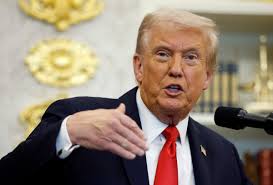

The United States has carried out a series of “powerful and deadly” military strikes against Islamic State (ISIS) militants in northwest Nigeria, President Donald Trump announced on Thursday, framing the operation as a response to extremist violence against civilians. In a post on his social media platform, Trump said he ordered the strikes — conducted on Christmas night — targeting ISIS fighters “who have been targeting and viciously killing, primarily, innocent Christians, at levels not seen for many years, and even centuries.” The US Africa Command (AFRICOM) confirmed that strikes were carried out in Sokoto State in coordination with Nigerian authorities and resulted in the deaths of multiple ISIS combatants.
The announced operation comes amid intensified international concern over ongoing terror and communal violence in parts of Nigeria, where extremist groups including the Islamic State West Africa Province and Boko Haram have long waged insurgent campaigns affecting both Christian and Muslim communities. Nigerian officials emphasised that counter-terror cooperation with the US is part of broader strategic efforts to address militant threats in line with international law and respect for Nigeria’s sovereignty. While the Trump administration justified the strikes as part of its global campaign against terrorism, critics note the complexity of Nigeria’s security situation and caution against oversimplified narratives of religious persecution.
(NNI / Latest news / Latest news india / India latest news/UPSC Preparation)
Anti-India Activist’s Death Sparks Nationwide Protests, Violence in Bangladesh
Latest News International: 19th December 2025
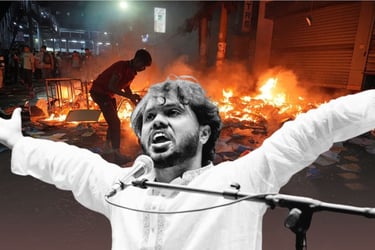

Widespread protests and violent unrest have gripped Bangladesh following the death of Sharif Osman Hadi, a 32-year-old student leader and outspoken critic of pro-India politics, who succumbed to injuries sustained in a shooting last week in Dhaka. Hadi, the convener of Inqilab Mancha and a key figure in the July 2024 uprising that helped overthrow former Prime Minister Sheikh Hasina, was shot by masked assailants on December 12 while campaigning in central Dhaka before being flown to a Singapore hospital for advanced treatment — where he later died after six days on life support.
The announcement of his death triggered massive street protests across the country, with demonstrators blocking highways, torching offices of major newspapers including Prothom Alo and The Daily Star, and clashing with security forces in Dhaka and other cities. Anti-India slogans have surfaced at some rallies, and sit-ins were reported outside Indian diplomatic premises in Chattogram, reflecting rising nationalist sentiment amid the turmoil. Authorities have deployed additional security forces and declared a day of state mourning, while demanding calm and promising a swift investigation into the assassination.
(NNI / Latest news / Latest news india / India latest news/UPSC Preparation)
Diplomatic Strain Looms After Gulf States Crack Down on Pakistani Begging Networks
Latest News International: 18th December 2025


Saudi Arabia has deported an estimated 56,000 Pakistani nationals this year on allegations of engaging in begging and related activities, according to testimony given by the Federal Investigation Agency (FIA) to Pakistan’s National Assembly committee on overseas Pakistanis and human rights. The massive deportation figure comes amid a broader crackdown by Gulf countries on organised begging networks and illegal travel, with the United Arab Emirates also imposing visa restrictions on many Pakistani citizens. Pakistani authorities have reported that tens of thousands more were stopped at airports for questionable travel documents as part of efforts to stem the tide of illegal migration and protect the nation’s international image.
The situation has sparked domestic and diplomatic concern in Islamabad, where officials argue the deportations reflect deeper socio-economic challenges and exploitation by networks that facilitate travel under false pretences, including misuse of visas for Umrah and tourist purposes. Pakistani lawmakers and government representatives are now under pressure to strengthen pre-departure screening, tighten passport controls, and implement tougher penalties for individuals involved in begging abroad — measures officials say are necessary to repair relations with Gulf partners and safeguard the country’s reputation.
(NNI / Latest news / Latest news india / India latest news/UPSC Preparation)
Diplomatic Row Brews After Indian Woman Reports Arunachal Insult At Shanghai Airport
Latest News International: 24th November 2025


An Indian woman’s post alleging harassment at Shanghai International Airport has gone viral, after she claimed a Chinese immigration officer insisted that “Arunachal is in China” while examining her passport. According to her account, the officer repeatedly questioned her Indian identity and demanded to know why her documents listed Arunachal Pradesh, saying she must produce a “China visa” for the state. The woman wrote that the tone and manner of interrogation made her feel singled out and humiliated, prompting sharp reactions from Indian users online.
The incident has sparked diplomatic concern, with many urging the Indian Embassy in Beijing to take the matter up with Chinese authorities. Commentators note that the confrontation reflects China’s ongoing territorial claims over Arunachal Pradesh, which India has consistently maintained as an integral part of the country. Social media users have demanded stronger action to ensure the safety and dignity of Indian travellers abroad. Officials are yet to issue a formal statement, but the woman’s account has reignited debate around China’s handling of Indian passengers and its politically charged territorial assertions.
(NNI / Latest news / Latest news india / India latest news/UPSC Preparation)
Floating Island of the Future: China Develops Nuclear-Resistant Maritime Base
Latest News International: 22nd November 2025
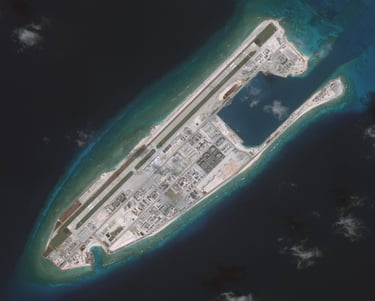

China has embarked on one of its most ambitious engineering projects yet—construction of the world’s first artificial floating island designed to withstand nuclear attacks. Developed by a team of leading naval architects and defense engineers, the island will reportedly use advanced shock-absorption technology, multi-layer composite armor, and a self-sustaining energy grid. According to Chinese research institutes, the structure is capable of maintaining buoyancy and operational integrity even under extreme blast pressure, making it a potential dual-use asset for both civilian and military purposes.
Experts say the floating island could serve as a strategic offshore base, research hub, or disaster-relief center in high-risk zones. The project aligns with China’s broader push toward maritime dominance and resilient infrastructure amid rising global tensions. While Beijing promotes the initiative as a scientific breakthrough, several nations have raised concerns about the island’s possible military applications. Analysts believe the development could reshape naval strategy in the Indo-Pacific, especially as traditional fixed bases become more vulnerable in modern warfare.
(NNI / Latest news / Latest news india / India latest news/UPSC Preparation)
UK to Rewrite Immigration Policy: Big Impact Expected for Indian Students, Professionals
Latest News International: 21st November 2025

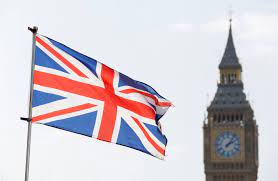
The UK government has announced a sweeping overhaul of its immigration policy, aimed at reducing overall migrant numbers and tightening eligibility criteria across work, study, and dependent visas. The proposal includes raising the minimum salary threshold for skilled worker visas, stricter English language requirements, and potential limits on dependents—changes that could significantly impact the Indian workforce, which forms one of the largest migrant groups in the UK. Officials say the reforms are designed to protect local jobs and manage rising migration pressures, but critics warn they may hurt industries facing chronic labour shortages.
For Indians, the changes are likely to affect working professionals, students, and families seeking to migrate or remain in the UK. Higher salary bars may make it harder for early-career tech, healthcare, and hospitality workers to qualify, while students could face tighter rules for bringing dependents. Migration experts note that the policy shift may push many Indians to explore alternative destinations such as Canada, Australia, and Germany, unless the UK introduces sector-specific relaxations. The final framework is expected to be released soon, triggering strong debate across businesses, universities, and diaspora communities.
(NNI / Latest news / Latest news india / India latest news/UPSC Preparation)
Major Boost For Armed Forces: US OKs $93 Million Defence Package For India
Latest News International: 20th November 2025

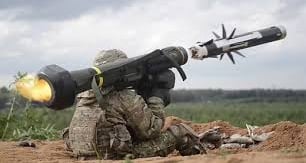
The United States has approved a $93 million foreign military sale to India, which includes advanced Javelin anti-tank guided missiles and Excalibur precision artillery projectiles, strengthening New Delhi’s modernisation drive. The US Defense Security Cooperation Agency (DSCA) confirmed the clearance, stating that the weapons package will enhance India’s ability to counter evolving ground-based threats and bolster its preparedness along sensitive border regions. The Javelin system, known for its fire-and-forget capability, is widely used by NATO forces and has seen significant combat success.
Officials said the sale marks another step forward in the growing India-US strategic partnership, particularly at a time of increasing regional instability and global security challenges. The Excalibur projectiles—GPS-guided and highly accurate—will significantly upgrade India’s artillery precision, reducing collateral damage in complex terrains. Defence analysts believe the approval signals Washington’s continued trust in India as a key security partner in the Indo-Pacific, and opens the door for deeper cooperation in high-end defence technologies.
(NNI / Latest news / Latest news india / India latest news/UPSC Preparation)
Tense Exchange: Trump Rejects Questions, Reinforces Support for Saudi Leadership
Latest News International: 19th November 2025
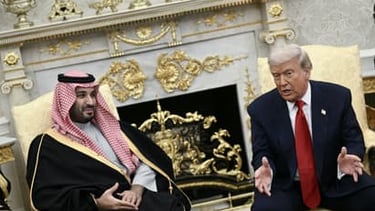

Former U.S. President Donald Trump sparked fresh controversy after angrily brushing off a reporter who questioned him about the murder of journalist Jamal Khashoggi. The tense exchange occurred during a media interaction when Trump was asked whether he still believed the Saudi Crown Prince bore no responsibility for the killing. Trump abruptly cut off the question, dismissing it as “asked a thousand times” and insisting reporters should “move on.” His reaction quickly spread across social media, drawing criticism from rights activists and political commentators.
Despite global outrage over the 2018 killing, Trump once again defended the Saudi Crown Prince, stating that the U.S.–Saudi partnership was “too important to jeopardize.” He emphasised economic and strategic ties, reiterating earlier claims that the crown prince had denied involvement. Critics argue that Trump’s repeated efforts to downplay the U.S. intelligence assessment undermine accountability and embolden authoritarian regimes. The incident has reignited debate over Washington’s moral obligations in foreign policy and Trump’s longstanding stance on the Khashoggi case.
(NNI / Latest news / Latest news india / India latest news/UPSC Preparation)
Sheikh Hasina’s Unshakeable Path: Survival, Power, Upheaval, and Now a Death Verdict
Latest News International: 18th November 2025
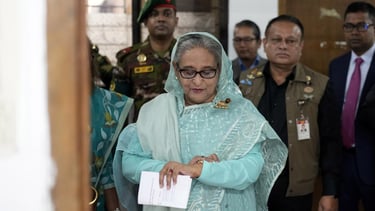

Sheikh Hasina’s journey over the past five decades is one of the most dramatic political narratives in South Asia. Her rise began after surviving the 1975 massacre that claimed the lives of her father, Bangladesh’s founding leader Sheikh Mujibur Rahman, and most of her family. Living in exile for years, she returned to Bangladesh to rebuild her party and ultimately led the Awami League to multiple electoral victories. During her long tenure as Prime Minister, she shaped national policy, accelerated economic growth, and maintained tight control over political opposition—earning both admiration and criticism at home and abroad.
That same polarizing leadership now frames her most turbulent moment yet: a death sentence handed down by a special tribunal, a ruling that has deepened political divides across Bangladesh. Critics claim the verdict is politically motivated, while supporters of the court argue it reflects accountability after years of alleged rights violations and authoritarian practices under her government. As protests spread and diplomatic concerns grow, Hasina’s 50-year story—marked by survival, power, and relentless conflict—enters its most uncertain chapter, leaving the future of Bangladesh’s political landscape hanging in the balance.
(NNI / Latest news / Latest news india / India latest news/UPSC Preparation)
Washington Signals Breakthrough, Says India–US Trade Agreement Nearing Completion
Latest News International: 14th November 2025
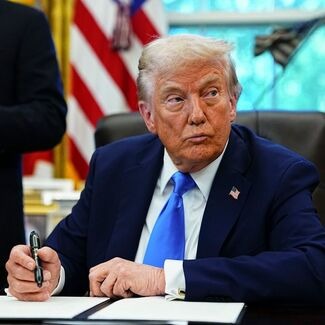

The United States has indicated that a long-awaited trade agreement with India may finally be within reach, with senior officials citing “encouraging progress” in ongoing negotiations. According to sources in Washington, both sides have resolved several long-standing issues related to tariffs, market access, and regulatory barriers. The renewed optimism follows a series of high-level meetings this quarter, during which negotiators reportedly narrowed gaps on key sectors, including pharmaceuticals, agriculture, and digital trade.
Officials say the two countries are now aiming to conclude the deal before the end of the year, marking a major step in strengthening economic ties between the world’s two largest democracies. A successful agreement is expected to boost bilateral trade, attract new investments, and reduce friction in industries affected by recent tariff disputes. Analysts believe a year-end deal would send a strong geopolitical message as well, reflecting deepening strategic cooperation between India and the US amid shifting global economic alignments.
(NNI / Latest news / Latest news india / India latest news/UPSC Preparation)
Pakistan’s Defence Minister Provokes India, Claims Readiness For Two-Front Battle
Latest News International: 13th November 2025
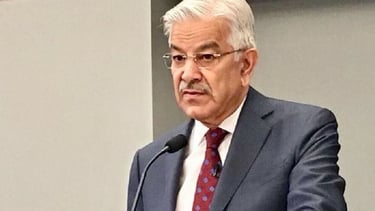

Pakistan’s Defence Minister Khawaja Asif has once again courted controversy with his latest remarks claiming that Islamabad is “ready for a two-front war” against India. Speaking during a public event, Asif accused New Delhi of “expansionist ambitions” and warned that Pakistan would not hesitate to respond militarily if provoked. His statement comes amid renewed tensions along the Line of Control (LoC) and a series of diplomatic exchanges between the two nations over regional security and cross-border terrorism.
Experts, however, see Asif’s comments as more rhetoric than readiness. Defence analysts argue that Pakistan, facing severe economic and political instability, is in no position to sustain any major military conflict. New Delhi has not issued an official response, but sources indicate that India views the remarks as yet another attempt by Islamabad to divert attention from its internal crises. The provocative statement underscores the fragile state of South Asian geopolitics, where verbal warfare often fuels real-world military and diplomatic friction.
(NNI / Latest news / Latest news india / India latest news/UPSC Preparation)
“Kidnapping of Five Indians in Mali Highlights Growing Terror Threat; Embassy Steps In”
Latest News International: 10th November 2025

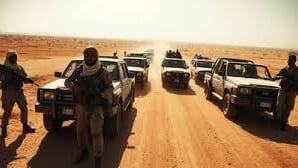
Five Indian nationals working for an electrification‐project company in western Mali were abducted by armed men near the town of Kobri on November 6, according to security sources and the company involved. The group was among a larger contingent of Indian workers in the region that has witnessed an intensifying campaign of violence and kidnappings by jihadist organisations linked to Jama’at Nusrat al‑Islam wal Muslimin (JNIM) and other terror groups.
In response, the Embassy of India, Bamako has confirmed awareness of the incident and stated that it is working closely with Malian authorities and the employer to secure the safe release of the captives “as quickly as possible.” Delhi has also expressed serious concern, citing the incident as a symptom of deepening instability in Mali under military rule and escalating jihadist operations.
(NNI / Latest news / Latest news india / India latest news/UPSC Preparation)
Saudi Arabia Launches Second Global Harmony Initiative with ‘India Week’
Latest News International: 04th November 2025, UPSC Preparation
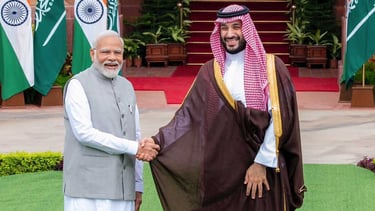

Saudi Arabia has inaugurated the second edition of its “”Global Harmony initiative””, beginning with “India Week” as part of the ongoing Riyadh Season. Spearheaded by the Ministry of Media, the programme celebrates the contributions and cultural heritage of the Kingdom’s diverse expatriate communities, reinforcing values of inclusivity and cross-cultural understanding under Saudi Vision 2030.
Celebrating Diversity under Vision 2030
The initiative, part of the broader “”Quality-of-Life Program””, aims to promote cultural coexistence and recognise residents’ roles in enriching Saudi Arabia’s social and economic fabric. It highlights the professional, artistic, and social achievements of various communities who have made the Kingdom their home.
‘India Week’ Showcases Cultural Bridges
The celebrations began with “India Week”, honouring the strong historical and cultural ties between India and Saudi Arabia. Events include traditional dance and music performances, art exhibitions, food festivals, and craft showcases, featuring Indian artists and cultural icons. The opening ceremony underscored the spirit of friendship between the two nations, drawing large participation from the Indian diaspora in Riyadh.
Diplomatic Support and Cultural Exchange
Indian Ambassador to Saudi Arabia, “”Dr Suhel Ajaz Khan””, praised the initiative, noting its role in strengthening people-to-people connections. He described it as an “excellent effort to build cultural bridges and reaffirm historical bonds.” The collaboration between the “”Ministry of Media”” and the “”General Entertainment Authority (GEA)”” marks an expanded effort to make cultural diversity a cornerstone of Saudi Vision 2030’s social reforms.
Exam Oriented Facts
Event: Second edition of Global Harmony initiative launched on 2 November 2025.
Organisers: Saudi Ministry of Media in partnership with the General Entertainment Authority.
Focus: Celebrating residents’ cultural contributions; aligns with Saudi Vision 2030.
Inaugural theme: “India Week” featuring art, music, cuisine, and handicrafts.
Global Harmony’s Wider Scope
Following “India Week”, the initiative will spotlight 13 other cultures, including those of the Philippines, Indonesia, Egypt, Yemen, Jordan, Uganda, and Ethiopia. Each will feature concerts, traditional showcases, and community events designed to celebrate Saudi Arabia’s multicultural mosaic. Through such inclusive celebrations, the Kingdom continues to project itself as an evolving hub of cultural harmony and global engagement.
(NNI / Latest news / Latest news india / India latest news/UPSC Preparation)
North Korea Unveils Hwasong-20 ICBM at Military Parade
Latest News International: 13th October 2025, UPSC Preparation
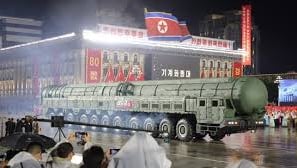

North Korea showcased its latest nuclear missile and expanded military arsenal during a grand parade in Pyongyang on 10 October 2025. The event marked the 80th anniversary of the ruling Workers’ Party and drew high-level foreign dignitaries from China, Russia, and Vietnam. Leader Kim Jong Un emphasised military strength and diplomatic outreach, signalling a shift towards greater regional influence and closer ties with Russia amid ongoing global tensions.
New Missile and Military Display
North Korea revealed the Hwasong-20, a new intercontinental ballistic missile (ICBM) described as its most powerful nuclear weapon. This missile is yet to be tested but is believed capable of striking the continental United States. The parade also featured advanced tanks, artillery, and drones, denoting a balanced focus on both nuclear and conventional military forces. Tens of thousands of spectators witnessed the event despite rain, boosting nationalistic fervour.
Diplomatic Significance of Foreign Attendance
The presence of Chinese Premier Li Qiang, Russian Security Council Deputy Head Dmitry Medvedev, and Vietnamese Communist Party General Secretary To Lam telld North Korea’s growing diplomatic stature. Kim Jong Un stood centre stage with these leaders, reflecting efforts to break international isolation. These visits show North Korea’s strategy to build a united front against the US-led West and expand its geopolitical role.
North Korea-Russia Military Cooperation
Kim praised North Korean troops fighting alongside Russian forces in Ukraine, calling their contribution heroic and ideologically . Thousands of North Korean soldiers have been deployed to support Russia’s war efforts, including battles near the Kursk border. Medvedev lauded their bravery and proposed deeper bilateral cooperation, signalling a strengthening alliance amid Western sanctions and diplomatic pressures.
Shift in North Korea’s Foreign Policy
Since the collapse of nuclear talks with the US in 2019, North Korea has avoided dialogue with Washington and Seoul. Kim recently urged Washington to abandon demands for nuclear disarmament as a precondition for talks. His recent visit to China and meetings with Russian and Vietnamese leaders show a pivot towards regional partnerships. Russia’s invasion of Ukraine has intensified these ties, with North Korea supplying weapons and troops to Moscow.
Military Modernisation and Strategic Goals
Kim’s regime continues to prioritise nuclear weapons development while simultaneously enhancing conventional forces. The parade’s display of drones and artillery reflects a broader military modernisation. The strategic goal remains deterrence against perceived threats from the US, South Korea, and their allies. North Korea’s growing military capabilities and diplomatic initiatives aim to secure regime survival and regional influence.
(NNI / Latest news / Latest news india / India latest news/UPSC Preparation)
“India Rebukes Pakistan’s Annual UN Propaganda: ‘Delusional Tirade’ Condemned”
Latest News International: 07th October 2025
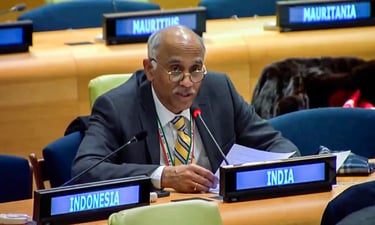

At a United Nations Security Council debate on the Women, Peace and Security agenda, India’s Permanent Representative Ambassador Parvathaneni Harish launched a blistering critique of Pakistan’s repeated statements on Jammu & Kashmir, calling them a “delusional tirade” that New Delhi is forced to listen to every year. He told the Council that such rhetoric served as a distraction from deeper issues and was steeped in propaganda, adding that India’s record on women, peace, and security was “unblemished.”
Harish also invoked the horrors of the 1971 Operation Searchlight, asserting that Pakistan’s military had conducted systematic genocide and sanctioned mass rapes of hundreds of thousands of women, holding Islamabad accountable for its historical abuses rather than lecturing others. He said that a country which “bombs its own people” cannot credibly argue on human rights.
(NNI / Latest news / Latest news india / India latest news/UPSC Preparation)
World Green Economy Summit 2025
Latest News International: 05th October 2025, UPSC Preparation
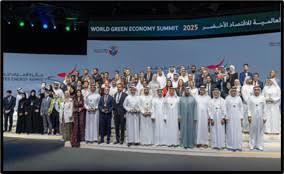

The 11th World Green Economy Summit (WGES) opened in Dubai in 2025, attracting over 3,300 participants from more than 30 countries. The summit, held at the Dubai World Trade Centre, focused on accelerating the global green economy through innovation and collaboration. It was co-located with the Water, Energy, Technology, and Environment Exhibition (WETEX 2025), reinforcing Dubai’s role as a hub for sustainable development and climate action.
Summit Theme and Participation
The event’s theme was Innovating for Impact – Accelerating the Future of the Green Economy. Policymakers, business leaders, investors, and innovators gathered to discuss ways to achieve net-zero emissions and promote green transformation. Nearly 80 international speakers from government, industry, and academia shared insights and strategies.
Key Focus Areas
Discussions brought into light technology integration, policy frameworks, climate finance, equity, and youth engagement. Emphasis was placed on the role of small and medium enterprises (SMEs) in pioneering sustainable technologies. Policy reforms aimed at speeding up global climate goals featured prominently.
Regional Climate Initiatives
The Arab Foundations Forum (AFF) introduced the first Arab Regional Climate Commitment. This initiative unites foundations, civil society, and public and private sectors to address the climate crisis with solutions rooted in local realities and equity. AFF’s CEO, Naila Farouky, stressed philanthropy’s role in supporting bold ideas and frontline communities.
Global Partnerships and Accountability
WGES 2025 focused on building partnerships and securing actionable commitments. Key topics included renewable energy, circular economies, and equitable climate strategies. The summit telld the importance of accountability and transparency in sustainability pledges to ensure real progress.
Global Alliance on Green Economy (GAGE) Initiatives
GAGE revealed its 2024-2025 portfolio of flagship initiatives. These projects aim to assist member countries in transitioning to greener economies. The alliance supports collaborative efforts to encourage innovation and sustainable growth worldwide.
(NNI / Latest news / Latest news india / India latest news/UPSC Preparation)
“Good Neighbours, Good Friends”: Xi Emphasizes Strategic Stability with India
Latest News International: 31st August 2025
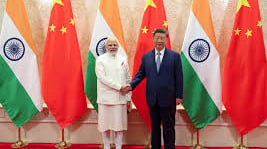

At the Shanghai Cooperation Organisation (SCO) Summit held in Tianjin, Chinese President Xi Jinping underscored the importance of cementing India–China friendship during a bilateral meeting with Prime Minister Narendra Modi. He described their countries using the vivid metaphor of the “dragon and elephant coming together,” stressing that being friends, good neighbours, and partners is the “right choice” for both nations. Xi highlighted the intertwined historical roots and responsibilities of the two ancient civilizations, advocating for long-term strategic stability rather than rivalry.
Both leaders agreed that border disputes should not define bilateral relations and emphasized that enhanced trust, respect, and sensitivity are vital for sustained cooperation. Modi reaffirmed India’s commitment to moving relations forward on these principles and acknowledged positive progress on issues like border management and renewed connectivity. Their dialogue signals a diplomatic thaw and a strategic recalibration, pointing toward renewed engagement based on shared heritage and common global challenges.
(NNI / Latest news / Latest news india / India latest news/UPSC Preparation)
US Supreme Court Upholds Mississippi Social Media Age Law
Latest News International: 16th August 2025, UPSC Preparation


The Supreme Court recently declined to block a Mississippi law that requires age verification and parental consent for social media use by minors. This ruling marks moment in ongoing legal battles over regulating online platforms to protect children. The law aims to address concerns about social media’s impact on youth mental health and safety.
Background
The law mandates that social media companies verify users’ ages and obtain parental consent for minors under 18. It also obliges platforms to make reasonable efforts to prevent minors from accessing harmful content. Violations can result in fines up to $10,000. The law targets safety issues like sexual abuse, trafficking, and exploitation.
Legal Challenges and Court Responses
Tech companies led by NetChoice, representing giants like Google, Meta, and Snap Inc., challenged the law. They argued it violates the First Amendment by restricting free speech and threatens user privacy. A federal judge initially blocked the law, citing constitutional concerns. However, the 5th U.S. Circuit Court of Appeals allowed enforcement while the case proceeds. The Supreme Court’s recent refusal to stay the law means it remains active during litigation.
Broader National Context
Similar laws have been enacted in states like California, Georgia, and Florida, reflecting widespread concern over youth social media use. These laws face ongoing legal scrutiny. The Supreme Court also recently upheld a Texas law restricting minors’ access to online pornographic content. The growing trend indicates increasing regulatory efforts to balance digital freedom with child protection.
Implications for Social Media and Society
The enforcement of such laws may change how minors access social media, potentially reducing exposure to harmful content. Critics warn about censorship and privacy risks. Supporters argue these measures are necessary to combat rising rates of youth depression and anxiety linked to social media. The legal outcomes will shape future digital policy and platform responsibilities.
(NNI / Latest news / Latest news india / India latest news/UPSC Preparation)
Third UN Conference on Landlocked Developing Countries
Latest News International: 11th August 2025, UPSC Preparation
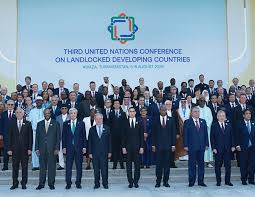

The Third United Nations Conference on Landlocked Developing Countries (LLDC3) convened in Awaza, Turkmenistan in 2025. It gathered global leaders and experts to address challenges unique to 32 landlocked developing countries. These nations, home to over 600 million people, face barriers in trade, infrastructure, and economic growth due to their lack of sea access. The conference aims to encourage partnerships and accelerate sustainable development through the newly adopted Awaza Programme of Action (APoA) for 2024–2034.
Context and Significance
LLDCs represent 7% of the global population but contribute just over 1% to the world economy and trade. This disparity marks structural inequalities. The conference emphasised that these challenges are not insurmountable. Instead, it focused on solutions to unlock the potential of LLDCs through cooperation and innovation.
Awaza Programme of Action (APoA)
Adopted by the UN General Assembly in December 2024, APoA offers a strategic framework for the next decade. It targets key areas such as trade facilitation, infrastructure development, climate resilience, and financing. Major initiatives include regional agricultural research hubs to improve food security and a dedicated infrastructure investment finance facility to mobilise funds. The programme also supports the establishment of a high-level panel on freedom of transit and a WTO work programme tailored to LLDC needs.
Global Solidarity and Environmental Focus
The conference brought into light the importance of aligning economic growth with environmental sustainability. Turkmenistan’s President stressed that economic activities should support nature, not oppose it. This approach reflects a growing consensus that sustainable development must integrate ecological stewardship with economic planning.
Changing the Narrative on LLDCs
For decades, LLDCs have been defined by geographic disadvantages such as remoteness and lack of seaport access. The conference sought to shift this narrative by emphasising their resource wealth, resilience, and ambition. LLDCs are no longer to be seen as isolated or constrained but as active partners in the global economy with development potential.
Multistakeholder Engagement
LLDC3 included diverse forums engaging youth, women leaders, private sector representatives, and parliamentarians. These platforms aimed to amplify varied perspectives and encourage inclusive development. Special initiatives such as the LLDC Global Business Network and South-South Cooperation Ministerial Meeting were launched to strengthen collaboration and business opportunities.
Implementation
The conference marked a new decade of ambition for LLDCs. The Awaza Programme of Action will guide international and national efforts to overcome barriers and promote sustainable growth. The focus remains on partnerships, innovation, and resilience to transform LLDCs into thriving economies by 2034.
(NNI / Latest news / Latest news india / India latest news/UPSC Preparation)
Cascade Schengen Visa
Latest News International: 02nd August 2025, UPSC Preparation
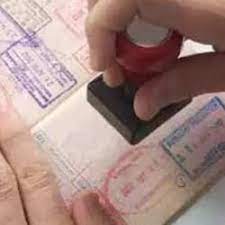

The European Commission introduced a new fast-track Schengen visa system for Indian travellers. This “cascade” system rewards applicants with a clean visa history by offering long-term, multiple-entry visas. It simplifies travel across 29 European countries in the Schengen Area. The scheme aims to strengthen people-to-people contacts and facilitate easier movement for trusted travellers.
About the Schengen Visa
A Schengen visa permits non-EU nationals to enter and move freely within the Schengen Area. The area includes 29 countries, mostly EU members and some European Free Trade Association states. Visa holders can stay up to 90 days within any 180-day period. The visa covers tourism, business, family visits, medical treatment, and cultural events. It does not allow employment.
The Cascade Visa Scheme Explained
The cascade visa system grants longer validity visas based on prior travel history. It uses a tiered approach:
A 1-year visa for travellers with three Schengen visas in the last two years.
A 2-year visa for holders of a 1-year multiple-entry visa used in the past two years.
A 5-year visa for those with a 2-year multiple-entry visa used in the last three years.
Applicants must apply from their home country and provide evidence of travel purpose. Transit and country-specific visas are excluded from eligibility. Misuse, such as overstaying or illegal work, can lead to disqualification.
Benefits for Indian Travellers
Indian citizens with two Schengen visas in the past three years qualify for a 2-year multi-entry visa. This visa can later be upgraded to five years if the passport is valid. The visa allows free travel across all Schengen countries without restrictions on travel purpose. However, the 90 days in 180 days stay rule remains. The scheme provides convenience and encourages repeat travel.
Policy and International Cooperation
The cascade system is part of the 2020 Schengen Visa Code reform. It favours regular travellers and aligns with EU priorities on trade and business mobility. Currently, only Indian, Turkish, and Indonesian nationals are eligible. The European Commission may extend the scheme to other countries based on diplomatic ties and readmission agreements.
Schengen Area Member Countries
The Schengen Area includes 25 of the 27 EU states, excluding Cyprus and Ireland. It also covers Iceland, Liechtenstein, Norway, and Switzerland. Internal border checks are generally abolished, promoting seamless travel. External borders have harmonised controls based on strict criteria to maintain security and order.
(NNI / Latest news / Latest news india / India latest news/UPSC Preparation)
NATO Pledge Sparks Global Military Spending Surge
Latest News International: 12th July 2025
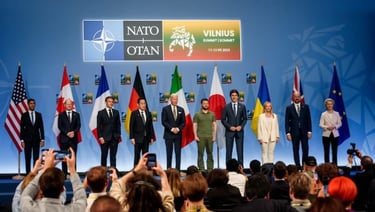

The NATO summit of June 2025 marked shift in global defence policy. Member countries agreed to raise military spending to 5% of GDP by 2035. This is more than double the previous 2% target. The decision reflects rising global tensions and conflicts, including new wars in South Asia and the Middle East. GKToday outlines the historical trends, key players, and broader implications of increasing military expenditures worldwide.
Historical Trends in Military Spending
Global military spending peaked during the Cold War, reaching 6.1% of world GDP in 1960. The end of the Cold War saw a decline, with spending dropping to 2.1% in 1998. Since 2015, a slow rise began, reaching 2.5% in 2024. The year 2024 saw a 9.4% increase in spending, the largest since 1988, driven by conflicts like Russia-Ukraine and Israel-Gaza. Recently, new conflicts between India-Pakistan and Israel-Iran further escalated defence budgets.
Top Military Spenders
The United States leads global military expenditure with $997 billion, followed by China ($314 billion), Russia ($149 billion), Germany ($88.5 billion), and India ($86.1 billion). Together, the top 15 spenders account for nearly 80% of all military spending. NATO members combined spent $1.5 trillion in 2024, about 55% of global spending. In GDP terms, Saudi Arabia (7.3%), Poland (4.2%), and the US (3.4%) are among the highest. Most other top spenders allocate between 1.3% and 2.6%.
Impact on Public Goods and Development
Rising military budgets threaten funding for health, education, and welfare. Studies show increased defence spending crowds out government health expenditure, especially in low- and middle-income countries. Spain rejected the new NATO target, citing welfare budget cuts. The UN’s budget is minuscule compared to military spending—$44 billion versus $2.7 trillion globally. Funding shortfalls have forced the UN to reduce its budget amid growing humanitarian needs.
Military Spending and Sustainable Development Goals
Higher defence budgets hamper progress on poverty reduction, health coverage, and climate action. Ending extreme poverty requires $70 billion annually, a fraction of global military spending. Lack of health services affects 4.5 billion people worldwide. Military activities also increase greenhouse gas emissions. NATO’s proposed spending rise could add 200 million tonnes of emissions yearly, worsening climate crises amid record heatwaves.
India’s Defence and Social Spending
India spends 2.3% of GDP on defence, with recent emergency allocations of ₹50,000 crore for weapon replenishment. Public health expenditure remains low at 1.84% of GDP, below national targets and much less than developed countries. Increased militarisation risks diverting resources from critical social sectors. Regional conflicts and public support for military strength may deepen this imbalance.
Geopolitical and Economic Implications
NATO’s spending hike aims to counter perceived threats from Russia, whose economy is much smaller. This imbalance fuels fear-driven militarisation. Countries like Lebanon and Ukraine have spent over a quarter of their GDP on military efforts, illustrating the economic strain of conflict. The global surge in defence budgets signals a shift towards remilitarisation with wide-ranging human and economic costs.
(NNI / Latest news / Latest news india / India latest news/UPSC Preparation)
Russia's Unprecedented Drone Strike Prompts NATO Air Response
Latest News International: 10th July 2025
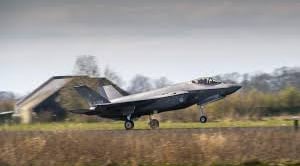

In the early hours of July 9, 2025, Russia executed its most extensive aerial assault on Ukraine since the onset of the conflict, deploying 728 drones and 13 missiles, including Iranian-designed Shahed drones and Kinzhal hypersonic missiles. The attack targeted multiple Ukrainian cities, notably Lutsk, a critical logistical hub near the Polish border. Ukrainian President Volodymyr Zelenskyy reported that the majority of the drones were intercepted by Ukraine's air defenses, which utilized interceptor drones, mobile fire units, and electronic warfare systems.
The proximity of the strikes to NATO member Poland prompted the scrambling of NATO fighter jets to safeguard alliance airspace. Poland's armed forces were placed on high alert as a precautionary measure. In response to the escalation, President Zelenskyy urged the international community to impose stricter sanctions on Russia, particularly targeting its oil sector, to curtail the financial resources fueling its military operations.
(NNI / Latest news / Latest news india / India latest news/UPSC Preparation)
Putin Rushes Out of Forum for Phone Call, Jokes About Trump Being ‘Offended’
Latest News International: 04th July 2025
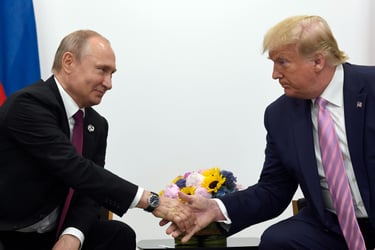

Russian President Vladimir Putin caused a stir at a recent public event after abruptly leaving mid-session, casually stating, “Trump could get offended,” in response to a phone call he reportedly had to take. The offhand comment was caught on camera and quickly went viral, sparking speculation about the nature of the call and reigniting debates about Putin’s relationship with former U.S. President Donald Trump. While the Kremlin did not confirm whether Trump was indeed on the other end of the line, the remark raised eyebrows internationally.
The moment, laced with Putin’s characteristic sarcasm or calculated messaging, triggered widespread commentary on social media and in political circles. Some viewed it as a deliberate attempt to show ongoing lines of communication with Trump amid the 2024 U.S. presidential campaign, while others dismissed it as a dry joke. Either way, the episode underscores the continuing fascination with the Putin-Trump dynamic — a relationship marked by controversy, strategic ambiguity, and mutual admiration that still commands global attention.
(NNI / Latest news / Latest news india / India latest news/UPSC Preparation)
DRDO Offers 28 Weapon Systems for Emergency Procurement
Latest News International: 25th June 2025, UPSC Preparation
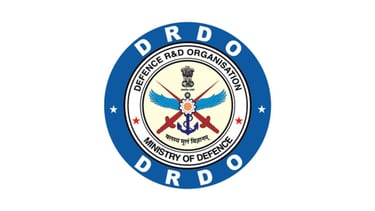

The Defence Research and Development Organisation (DRDO) of India has made move to enhance the capabilities of the armed forces. It has offered 28 existing weapon systems for emergency procurement. This initiative aligns with the government’s push for self-reliance in defence manufacturing. The emergency procurement allows the Army, Navy, and Air Force to acquire new weapon systems or replenish existing ones as needed.
Overview of Emergency Procurement
Emergency procurement is a process that enables the armed forces to quickly acquire essential weaponry. This is crucial during times of heightened security threats. The DRDO’s offer includes various weapons such as rockets, missiles, grenades, and anti-drone systems. This flexibility ensures that the forces can respond effectively to evolving military needs.
Significance of Operation Sindoor
Operation Sindoor serves as a very important example of the effectiveness of indigenously developed weapons. During this operation, the Indian defence forces successfully countered a threat from Pakistan. The performance of weapons like the BrahMos supersonic cruise missile and the MRSAM air-edge fence missile system showcased the capabilities of homegrown technology. The operation’s success has reinforced the government’s commitment to enhancing indigenous defence production.
Details of the Offered Weapon Systems
The DRDO’s list includes 28 weapon systems tailored for different branches of the armed forces. The Army can select from 14 systems, the Navy from eight, and the Air Force from six. This diverse range of options allows each force to address its specific operational requirements. The inclusion of both private defence manufacturers and public sector undertakings in the procurement process also promotes a collaborative approach to defence production.
Impact on Defence Manufacturing
This initiative is expected to boost the Indian defence manufacturing sector. By encouraging local production, the government aims to reduce dependency on foreign suppliers. The involvement of private players alongside PSUs is a strategic move to encourage innovation and competitiveness in the defence industry. This shift towards self-reliance is crucial for national security and economic growth.
Future Prospects
The DRDO’s proactive approach in offering these weapon systems indicates a robust future for India’s defence capabilities. The ongoing developments in indigenous technology will likely lead to more advanced weaponry. The government’s focus on self-reliance will continue to shape the landscape of defence procurement and manufacturing in India.
(NNI / Latest news / Latest news india / India latest news/UPSC Preparation)
EU Proposes Ban on Russian Gas Imports by 2027
Latest News International: 21st June 2025, UPSC Preparation
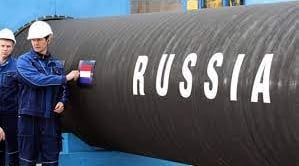

The European Commission has recently proposed a legally binding ban on the import of Russian gas and liquefied natural gas (LNG) by 2027. This decision follows the EU’s commitment to sever its longstanding energy ties with Russia, a move prompted by the geopolitical tensions arising from Russia’s invasion of Ukraine in 2022. The proposal aims to ensure that EU member states cannot block the ban, particularly Hungary and Slovakia, which have expressed opposition.
Implementation Timeline
The ban will be implemented in stages. Starting from January 1, 2026, all new Russian gas and LNG contracts signed in 2025 will be prohibited. Short-term contracts, defined as those lasting less than one year and signed before June 17, 2025, will face a ban from June 17, 2026. The final phase will see a prohibition on existing long-term contracts beginning January 1, 2028, effectively ending the EU’s reliance on Russian gas.
Legal Framework
The Commission has crafted the ban using EU trade and energy law, allowing it to pass with a reinforced majority rather than requiring unanimous approval. This strategy aims to circumvent potential vetoes from Hungary and Slovakia. The legal measures will also permit companies to invoke “force majeure” clauses in their contracts, enabling them to exit agreements due to unforeseen circumstances.
Impact on Member States
Hungary and Slovakia, which still import amounts of Russian gas, have raised concerns about rising energy costs associated with the transition. These countries have vowed to block sanctions requiring unanimous consent. However, the Commission’s proposal ensures that they will have until January 1, 2028, to phase out their imports, including short-term contracts.
Alternatives to Russian Gas
As the EU moves to replace Russian gas supplies, it is exploring alternative energy sources. The EU has the capacity to import 250 billion cubic metres of LNG annually, although it utilised less than half of this last year. The bloc is likely to increase imports from the United States, responding to pressures from US leadership. Countries like Spain, Belgium, the Netherlands, and France have expressed their support for the ban, indicating that they are ready to transition to non-Russian sources.
Challenges Ahead
The transition poses legal and financial challenges. European companies face potential penalties and arbitration risks if they withdraw from contracts. The Commission has stated that companies must disclose contract details to customs authorities to enforce the ban effectively. Moreover, the price of alternatives to Russian gas is a concern, as Russian gas was previously sold at a discount.
Broader Energy Context
While the focus is on gas, the EU has also imposed sanctions on most Russian oil imports. Exceptions remain for Hungary and Slovakia, which still rely heavily on Russian oil. The Commission has proposed that these countries create national plans to reduce their oil dependence by the end of 2027. Future proposals may also address the EU’s reliance on Russian nuclear fuel.
(NNI / Latest news / Latest news india / India latest news/UPSC Preparation)
"Israel's Attack on Natanz Nuclear Facility Escalates Tensions with Iran"
Latest News International: 18th June 2025
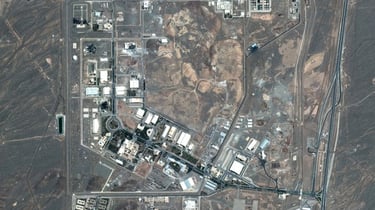

On June 17, 2025, the International Atomic Energy Agency (IAEA) confirmed that an Israeli airstrike directly targeted Iran's underground uranium enrichment facility at Natanz. Initially, the IAEA believed only the above-ground pilot enrichment plant had been destroyed, with the underground complex sustaining indirect damage. However, new high-resolution satellite imagery revealed direct impacts on the underground enrichment halls, indicating significant damage to the facility's infrastructure. The IAEA continues to update its assessments, as it has not been able to inspect the sites directly. This strike is part of a series of Israeli attacks on Iran's nuclear infrastructure that began on June 13, 2025. While the Natanz site suffered direct hits, other major nuclear sites in Iran, such as Isfahan and Fordow, have not reported significant changes. The Isfahan site experienced destruction to multiple facilities, including a plant critical for preparing uranium for enrichment. Fordow appears largely undamaged following a secondary strike.
The Israeli airstrikes have raised regional and international concerns about potential nuclear fallout, although experts note the primary hazard is chemical—particularly hydrofluoric acid—should uranium gas contact water vapor. Nuclear reactors like Bushehr present a significantly higher risk if targeted, leading to potential disasters similar to Chernobyl or Fukushima. Despite limited radiation risks to the broader population, experts emphasize the localized threat to facility workers and the possibility of chemical exposure. In response to the attacks, Iran has announced plans to construct a third enrichment site, escalating tensions further. The international community continues to monitor the situation closely, urging de-escalation and diplomatic solutions to avert broader conflict.
(NNI / Latest news / Latest news india / India latest news/UPSC Preparation)
"Israel’s Airstrike on South Pars Gas Field Marks Significant Escalation in Iran-Israel Relations"
Latest News International: 14th June 2025, UPSC Preparation

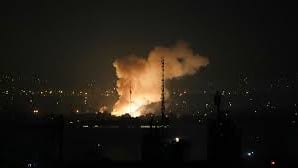
In a significant escalation of hostilities, Israel has conducted an airstrike on Iran's South Pars gas field, the world's largest natural gas field, located in the Persian Gulf. The attack targeted a natural gas processing facility, leading to an explosion and fire. The South Pars field, shared between Iran and Qatar, holds an estimated 1,800 trillion cubic feet of in-situ natural gas, representing a substantial portion of global reserves. This strike is part of a broader Israeli campaign that has also targeted Iran’s nuclear and military infrastructure, including air defense systems and missile bases .
The implications of this attack are profound, not only for the immediate geopolitical landscape but also for global energy markets. The South Pars field is a critical component of Iran's energy infrastructure, supplying natural gas for electricity generation and industrial use. Disruptions to its operations could exacerbate Iran's economic challenges and potentially affect global energy supplies, especially if tensions lead to further instability in the region. The international community watches closely, as this development may signal a shift towards more direct confrontations in the ongoing Israel-Iran conflict .
(NNI / Latest news / Latest news india / India latest news/UPSC Preparation)
Global Carbon Pricing Trends 2025
Latest News International: 14th June 2025, UPSC Preparation


Countries worldwide are increasingly adopting carbon pricing mechanisms to address greenhouse gas emissions. A recent report by the World Bank marks that carbon pricing now encompasses nearly two-thirds of the global Gross Domestic Product (GDP). The total number of operational carbon pricing instruments has surged from five in 2005 to 80 in 2025. Key players such as India, Brazil, and Türkiye are actively developing these instruments.
About Carbon Pricing Instruments
Carbon pricing aims to internalise the external costs of greenhouse gas emissions. These costs include damage to crops, healthcare expenses, and property loss from climate-related events. Carbon pricing methods typically involve a price on emitted carbon dioxide (CO2). The three main types of carbon pricing instruments are:
Emissions Trading Systems (ETS): Governments set a cap on GHG emissions. Companies can trade emission units to meet their targets. If they reduce emissions, they can sell excess units.
Carbon Taxes: A direct tax is levied on GHG emissions or the carbon content of fossil fuels. This encourages companies to lower their emissions to reduce tax liabilities.
Carbon Credit Trading: Companies can trade credits that represent one tonne of carbon equivalent. These credits are generated through activities that either reduce emissions or sequester carbon.
Economic Impact of Carbon Pricing
Carbon pricing is not only a tool for emission reduction but also a potential revenue source for governments. The World Bank report indicates that 43 carbon taxes and 37 ETSs currently generate over $100 billion. These instruments cover approximately 28% of global GHG emissions, with the power sector being the most affected.
Sectoral Coverage of Carbon Pricing
The coverage of carbon pricing varies by sector. The power sector has the highest coverage, followed by industry, mining, buildings, land transport, and aviation. However, sectors like waste management and agriculture remain largely unregulated under current carbon pricing frameworks.
Growth of Carbon Credit Markets
Carbon credit markets are gaining traction, attracting private finance for projects aimed at reducing emissions. Nature-based carbon removal projects have seen investment, raising an estimated $14 billion in early 2024. The compliance market, which includes domestic and international obligations, is the primary driver of demand for carbon credits.
Trends in Voluntary Carbon Markets
Voluntary carbon markets, operated by independent organisations, allow private entities to purchase carbon credits. Recent trends indicate a growing interest in nature-based removals and clean cooking projects. Demand for engineered carbon removal solutions, such as direct air capture, is also on the rise, with new purchasing commitments emerging in 2024.
(NNI / Latest news / Latest news india / India latest news/UPSC Preparation)
Operation Secure
Latest News International: 13th June 2025, UPSC Preparation


Global operation was launched to combat cybercrime. Codenamed ‘Operation Secure’, this initiative involved law enforcement agencies from 26 countries. The operation aimed to dismantle malicious infrastructure linked to information-stealing malware. Interpol coordinated these efforts, collaborating with private sector partners such as Group-IB, Kaspersky, and Trend Micro.
Operation Secure
Operation Secure ran from January to April 2025. It focused on identifying and taking down over 20,000 malicious IP addresses and domains associated with cybercriminal activities. The operation successfully eliminated 79% of the identified suspicious IPs.
International Collaboration
Law enforcement from countries including India, Vietnam, and Sri Lanka participated in the operation. They worked together to locate servers, map networks, and execute targeted takedowns. This collaborative effort strengthened international cybersecurity measures.
Key Achievements
The operation resulted in the seizure of 41 servers and over 100 GB of data. In total, 32 suspects were arrested for their involvement in illegal cyber activities. The operation also notified more than 216,000 potential victims, advising them to change passwords and secure accounts.
Role of Infostealer Malware
Infostealer malware was identified as a primary tool for cybercriminals. This software extracts sensitive data from infected devices. Commonly stolen data includes browser credentials, passwords, and credit card details. The logs harvested by infostealers are often traded on the cybercriminal underground.
Impact on Victims and Cybersecurity
Authorities reported identifying numerous victims across participating countries. In Vietnam, 18 suspects were arrested, while Sri Lanka and Nauru also saw multiple arrests. Victims were informed to take immediate action to protect their information.
Command-and-Control Servers
The operation revealed 117 command-and-control servers in Hong Kong. These servers acted as hubs for launching phishing and online fraud campaigns. The identification of these servers was crucial in disrupting ongoing cybercriminal activities.
Future Implications
Operation Secure marks the growing threat of cybercrime and the importance of international cooperation. The operation served as a model for future initiatives aimed at combating cyber threats.
(NNI / Latest news / Latest news india / India latest news/UPSC Preparation)
Pakistan’s Role in UNSC
Latest News International: 12th June 2025
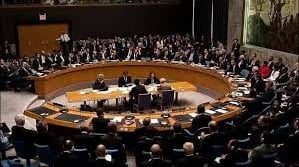

Pakistan secured roles in the United Nations Security Council (UNSC) as an elected non-permanent member for the 2025-26 term. It now chairs the 1988 Taliban Sanctions Committee and serves as the Vice Chair of the 1373 Counter-Terrorism Committee. Additionally, Pakistan is a Co-Chair in two informal working groups. This development raises questions about Pakistan’s influence and the implications for India.
Pakistan’s Election and Committee Roles
Pakistan’s recent election as a non-permanent member of the UNSC was part of the Asia-Africa grouping. This membership made it eligible to chair subsidiary bodies of the Council. The structure of the UNSC allows non-permanent members to take leadership roles in committees. Permanent members do not chair these committees to avoid conflicts of interest.
About the Committees
The 1988 Taliban Sanctions Committee monitors sanctions against individuals and entities linked to the Taliban. The 1373 Counter-Terrorism Committee focuses on member states’ responsibilities to combat terrorism in line with UNSCR 1373. Both committees require consensus among members for decisions, limiting unilateral actions.
Implications of Pakistan’s Chairmanship
Pakistan’s role in the 1988 Committee allows it to set the agenda and monitor sanctions. However, it does not possess special powers to unilaterally impose or lift sanctions. The political dynamics within the UNSC, particularly the influence of other members, will shape Pakistan’s effectiveness in this role.
Limitations of Influence
Pakistan’s ability to influence the 1988 Committee is constrained. The Taliban’s status as de facto rulers complicates sanctions discussions. Additionally, the technical nature of the Counter-Terrorism Committee focuses on capacity building rather than punitive measures. Pakistan’s record of violating UNSCR 1373 provisions further undermines its credibility in counter-terrorism discussions.
Concerns for India
Despite Pakistan’s roles, these positions do not pose a direct threat to Indian interests. The effectiveness of the UNSC and its subsidiary bodies in combating terrorism has been questioned. Pakistan’s past attempts to leverage its UNSC roles for political gain, particularly regarding Kashmir, indicate its strategic intentions.
The Broader Context
Pakistan’s upcoming presidency of the UNSC in July 2025 raises concerns about its potential to influence discussions on contentious issues. While procedural advantages exist, the presidency does not grant substantive powers. The challenges faced by the UNSC in addressing terrorism remain concern for all member states.
(NNI / Latest news / Latest news india / India latest news/UPSC Preparation)
LA’s Massive Illegal Migrant Population Fuels Ongoing Immigrant Protests
Latest News International: 11th June 2025


Los Angeles, home to an estimated 900,000 undocumented migrants, has become a focal point for immigrant protests, drawing national attention to issues of immigration policy, human rights, and social justice. The city’s diverse and sizable immigrant population faces numerous challenges, including fears of deportation, limited access to services, and ongoing struggles for legal recognition. These conditions have galvanized communities to organize protests demanding comprehensive immigration reform, better protections, and pathways to citizenship.
The city’s status as a cultural and economic hub attracts many migrants seeking opportunities, but it also makes LA a battleground for debates on immigration enforcement and humanitarian concerns. Activists argue that the protests are not just about numbers but about the dignity and rights of people living in the shadows. The ongoing demonstrations highlight broader national tensions while underscoring the urgent need for policy changes that address the realities faced by millions of undocumented immigrants in the United States.
(NNI / Latest news / Latest news india / India latest news/UPSC Preparation)
Japanese Space Mission Hakuto-R
Latest News International: 09th June 2025, UPSC Preparation


The recent failure of the Japanese space mission Hakuto-R has brought into light the challenges faced by private space companies in achieving successful lunar landings. The mission, launched by ispace, aimed to land the Resilience lander on the Moon. However, mission control lost communication with the spacecraft during its final descent, leading to a crash landing. This incident marks ispace’s second failed attempt to land on the lunar surface, following a similar fate in 2023.
About Hakuto-R Mission
The Hakuto-R mission was designed to demonstrate the capabilities of private space enterprises in lunar exploration. The Resilience lander was launched in January 2025 aboard a SpaceX Falcon 9 rocket. It followed a low-energy transfer trajectory to the Moon, allowing for system checks during its journey. The target landing site was Mare Frigoris, chosen for its smooth terrain.
Communication Loss and Crash Details
As the lander descended from a 100 km orbit, it successfully initiated its main engine for deceleration. However, communication was lost shortly after. The laser rangefinder, crucial for measuring altitude, experienced delays. Consequently, the lander could not decelerate adequately, resulting in a hard landing on the lunar surface.
Previous Failures and Challenges
The Hakuto-R mission is not an isolated case. In the past two years, multiple private companies have attempted lunar landings, with only one mission achieving success. The complexity of the final landing phase is a common challenge, as seen in other failed missions like Chandrayaan-2 and Luna-25.
NASA’s Role in Lunar Exploration
NASA has been actively promoting lunar exploration through its Commercial Lunar Payload Services (CLPS) programme. This initiative encourages private companies to develop capabilities for lunar missions. Several companies, including Astrobotic Technologies and Firefly Aerospace, are part of this programme, denoting a growing interest in lunar exploration.
Future Prospects for Private Lunar Missions
Despite recent failures, there is a renewed urgency among private space companies to establish a presence on the Moon. The goal is to create facilities for long-term research and habitation. As more companies prepare for upcoming missions, the lessons learned from failures like Hakuto-R will be crucial for future success.
(NNI / Latest news / Latest news india / India latest news/UPSC Preparation)
Ohio’s Proposed Bills on Foreign Land Ownership
Latest News International: 08th June 2025, UPSC Preparation
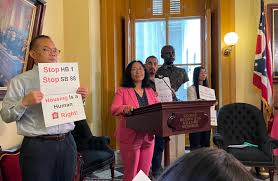

Ohio lawmakers introduced two bills aimed at restricting land ownership for foreign nationals and specific categories of Green Card holders. This legislative move aligns with a growing trend across various Republican-controlled states in the United States. The focus is on national security and the need to mitigate foreign influence on American land, particularly near military and critical infrastructure.
Background of the Legislation
The proposed House Bill 1 and Senate Bill 88 aim to create a 25-mile zone around military bases, power stations, and other essential facilities. This initiative is part of a broader national effort to limit foreign land ownership due to perceived security threats. Over the past two years, at least 22 states have enacted similar restrictions, primarily targeting agricultural and critical infrastructure properties.
Scope of the Bills
Unlike laws in states such as Florida and Texas, which specifically target nations deemed as “foreign adversaries,” Ohio’s bills would apply to all Green Card holders. This includes foreign nationals from countries not typically considered adversarial. The legislation represents shift in property rights, as it would affect legal permanent residents alongside foreign entities.
Legal Implications
If passed, these bills could face constitutional challenges under the Equal Protection Clause of the 14th Amendment. Legal experts argue that any law discriminating against individuals based on immigration status may be deemed unconstitutional. Provisions that previously required foreign adversaries to sell existing land holdings have been removed, indicating a potential shift in legislative strategy.
Public Response and Criticism
The proposed legislation has sparked considerable public outcry. Critics, including civil rights groups and community members, argue that the bills are overly broad and discriminatory. Testimonies from various individuals highlight concerns that the legislation promotes xenophobia and undermines the contributions of immigrants to society.
Current Status of the Bills
As of now, neither House Bill 1 nor Senate Bill 88 has been scheduled for a vote. The bills are still in the early stages of the legislative process and may undergo changes. Lawmakers and legal experts continue to monitor the situation closely, anticipating potential legal challenges should the bills be enacted.
Broader Context of Land Ownership Laws
The trend of restricting land ownership by non-citizens reflects broader national security concerns. Various states are increasingly scrutinising foreign investment in land and property. This trend raises questions about the balance between national security and property rights. The implications for immigrants and Green Card holders are , as these laws could reshape the landscape of property ownership in the United States.
(NNI / Latest news / Latest news india / India latest news/UPSC Preparation)
Trump Travel Ban 2025
Latest News International: 06th June 2025, UPSC Preparation
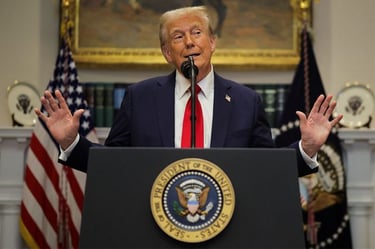

US President Donald Trump announced a travel ban affecting citizens from twelve countries. This decision follows a recent terror attack in Colorado, denoting national security concerns. The ban aims to prevent individuals from nations deemed high-risk due to inadequate vetting processes.
Countries Affected by the Ban
The travel ban includes citizens from Afghanistan, Myanmar, Chad, the Republic of Congo, Equatorial Guinea, Eritrea, Haiti, Iran, Libya, Somalia, Sudan, and Yemen. Additionally, partial restrictions apply to travellers from Burundi, Cuba, Laos, Sierra Leone, Togo, Turkmenistan, and Venezuela.
Reasons for the Ban
The ban is justified by several factors. These include a perceived threat to US national security from limited screening processes. Countries were selected based on high visa overstay rates and the presence of terrorist actors, including state-sponsored terrorism. The US government specifically identified Iran, Somalia, and Cuba as threats.
Exemptions to the Ban
Certain individuals are exempt from the ban. This includes those already holding visas, permanent residents, and dual nationals. These exemptions aim to mitigate the impact on individuals who have already been vetted.
Historical Context of Travel Bans
Trump’s 2025 ban follows a history of similar restrictions during his previous term. The first ban in 2017 faced legal challenges and was overturned by federal judges. Subsequent attempts were made, with varying degrees of success. The Supreme Court upheld a third iteration of the ban in 2018, reinforcing the president’s authority over national security matters.
Legal Considerations
Legal experts suggest that the 2025 ban may withstand scrutiny better than previous versions. The administration appears to have learned from past legal challenges. The focus on administrative issues rather than solely on Muslim-majority countries may also provide a stronger legal foundation.
Political Implications
The travel ban aligns with Trump’s broader immigration policy agenda. It reflects a systematic crackdown on immigration, including denying asylum-seekers and increasing enforcement measures. The announcement signals a continuation of Trump’s national security focus and his administration’s approach to immigration.
(NNI / Latest news / Latest news india / India latest news/UPSC Preparation)
Japan’s Innovative Approach to Artificial Intelligence Legislation
Latest News International: 05th June 2025, UPSC Preparation


Japan introduced law aimed at encouraging artificial intelligence (AI) research and development. This legislation, known as the Act on the Promotion of Research, Development and Utilisation of Artificial Intelligence-Related Technologies, seeks to position Japan as a leader in the global AI landscape. The law diverges from stringent regulatory frameworks like the European Union’s AI Act, instead promoting an innovation-driven environment.
Key Features of Japan’s AI Law
The Act establishes an Artificial Intelligence Strategy Headquarters under the Cabinet. This body is responsible for formulating a national Basic Plan for AI. The plan encompasses foundational research, industrial deployment, international collaboration, and public education. The law avoids rigid regulatory frameworks and focuses on enabling innovation and encouraging cooperation among stakeholders.
Comparison with the European Union’s AI Act
In contrast to Japan’s approach, the EU’s AI Act employs a risk-based classification system. It categorises AI systems into tiers, imposing strict obligations on developers, especially in high-risk areas. The EU framework is comprehensive, prioritising human dignity and digital sovereignty. Non-compliance results in penalties and scrutiny.
The Philosophy Behind Japan’s Approach
Japan’s legislation is based on two core assumptions. First, innovation ecosystems flourish in a low-regulation environment. Second, voluntary cooperation, guided by national coordination, can mitigate AI-related risks. The law assigns roles to local governments, universities, research institutions, businesses, and the public, promoting a collaborative framework.
Challenges and Risks
While Japan’s model encourages innovation, it raises concerns about accountability. The absence of clear standards may lead to unreported AI-related harms. Questions arise regarding bias, disinformation, and algorithmic failures. The challenge lies in ensuring that voluntary principles translate into effective safeguards in sensitive sectors like healthcare and defence.
Geopolitical Context and International Cooperation
Japan’s AI law reflects its strategic response to economic challenges, including a shrinking workforce and global competition. The law mandates international cooperation and norm-setting, aligning Japan with emerging global standards. This proactive stance is crucial as countries worldwide explore varying approaches to AI regulation.
Global Perspectives on AI Regulation
Countries like the United States and the United Arab Emirates (UAE) are adopting different strategies. The U.S. is moving towards legislative clarity with the AI Disclosure Act, while the UAE is implementing a state-led AI strategy that combines strategic investment with targeted regulation. Each approach reflects national priorities and cultural contexts.
The Future of Japan’s AI Legislation
Japan’s law is a gamble on institutional trust. It relies on collaboration among government, research institutions, and businesses to ensure ethical AI innovation. The success of this model depends on effective coordination and the ability to adapt policies based on real-world feedback. The law includes provisions for future reviews, acknowledging the need for continuous refinement.
(NNI / Latest news / Latest news india / India latest news/UPSC Preparation)
France’s Nuclear Sharing Proposal and European Defence
Latest News International: 04th June 2025, UPSC Preparation


Recent developments have positioned France at the forefront of European security discussions. On May 14, 2025, President Emmanuel Macron indicated France’s willingness to consider the stationing of its nuclear weapons in other European countries. This statement emerges amidst heightened security concerns due to the Russia-Ukraine conflict. Macron’s proposal aligns with France’s ambition for “European strategic autonomy,” aimed at enhancing the European Union’s independent defence capabilities.
Context of Nuclear Sharing
Nuclear sharing refers to arrangements where a nuclear-armed state places its nuclear weapons in allied non-nuclear states. The United States has implemented this model within NATO for decades, deploying B61 tactical nuclear bombs in five member countries. This strategy aims to reinforce alliance solidarity while sharing nuclear risks.
France’s Nuclear Arsenal
France possesses approximately 290 nuclear warheads, delivered by submarine-launched ballistic missiles and Rafale jets. The potential extension of France’s nuclear deterrent through overseas deployment raises logistical and doctrinal questions. Analysts suggest that an increase in warheads may be necessary to ensure credible deterrence if France pursues this path.
Implications for Deterrence
The proposal to deploy French nuclear weapons in Europe comes with mixed implications. Advocates argue that this move could strengthen deterrence against Russia by augmenting NATO‘s nuclear capabilities. However, such deployments may provoke a strong Russian response, escalating tensions further. Russia has previously reacted negatively to NATO’s military expansion, viewing it as a threat.
Legal Considerations
The legality of nuclear sharing under international law is complex. The 1968 Nuclear Non-Proliferation Treaty (NPT) prohibits nuclear-weapon states from transferring nuclear weapons. Current NATO nuclear sharing arrangements are defended as NPT-compliant, as the U.S. retains ownership and control of the weapons. However, this interpretation remains contentious among non-proliferation advocates.
Strategic Evolution
France’s openness to nuclear sharing marks shift in its strategic posture. Traditionally, France has maintained a strictly national approach to its nuclear deterrent. This evolving stance reflects the changing security landscape in Europe and the need for collective security measures in response to external threats.
(NNI / Latest news / Latest news india / India latest news/UPSC Preparation)
India-Mongolia Joint Military Exercise Nomadic Elephant
Latest News International: 02nd June 2025, UPSC Preparation
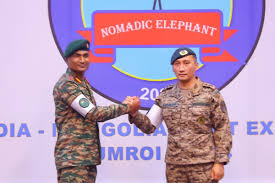

The 17th edition of the India-Mongolia Joint Military Exercise, dubbed Nomadic Elephant, is set to be held in Ulaanbaatar, Mongolia. This military collaboration will be held from 31st May to 13th June 2025. It is an annual event alternating between India and Mongolia. The previous exercise took place in Umroi, Meghalaya, in July 2024. This exercise aims to enhance interoperability between the two nations’ armed forces.
Exercise Details
Nomadic Elephant is a bilateral military exercise between India and Mongolia. It focuses on joint training for counter-terrorism and counter-insurgency operations under a United Nations mandate. The exercise facilitates the sharing of operational experiences and aims to strengthen military ties between the two nations.
Participating Forces
The Indian contingent consists of 45 personnel, primarily from the Arunachal Scouts battalion. The Mongolian Armed Forces will also field a similar-sized unit, represented by a 150-strong Special Forces team. Both contingents will engage in various training activities.
Training Activities and Objectives
The exercise includes a range of training activities such as endurance training, reflex shooting, room intervention, small team tactics, and rock craft training. Additionally, this edition incorporates aspects of cyber warfare to enhance complexity. The overall objective is to improve joint operational capabilities in semi-conventional operations within mountainous terrain.
Tactical Drills and Operations
Key tactical drills during the exercise will include responses to terrorist actions, establishment of a joint command post, and securing landing sites. Other operations will involve small team insertion and extraction, special heliborne operations, and the use of drones and counter-drone systems. These drills are designed to enhance the interoperability of both armies.
Historical Context and Evolution
The Nomadic Elephant exercise began in 2004, with the first edition held in Mongolia. Since then, it has evolved, with various editions conducted in both countries. Each iteration has aimed to encourage defence cooperation and improve military relations.
Broader Defence Cooperation
Beyond the Nomadic Elephant exercise, India and Mongolia maintain a Joint Working Group for Defence Cooperation, which meets annually. India also participates in the annual Mongolian military exercise, Khan Quest. This ongoing collaboration puts stress on the commitment of both nations to regional security and stability.
(NNI / Latest news / Latest news india / India latest news/UPSC Preparation)
US Court Strikes Down Trump’s Tariffs on Imports
Latest News International: 31st May 2025, UPSC Preparation
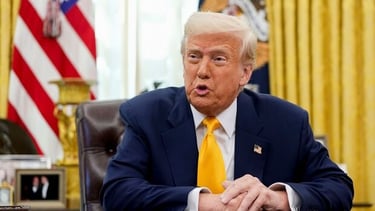

On May 28, 2025, the US Court of International Trade ruled against tariffs imposed by President Donald Trump on Canada, Mexico, and China. The court found that the President exceeded his authority under the International Emergency Economic Powers Act of 1977. This ruling stems from a case brought by twelve states and several businesses challenging the legality of the tariffs. The court’s decision has implications for the scope of presidential powers regarding economic measures.
Background of the Case
The tariffs in question were introduced by President Trump on April 2, 2025. He justified these tariffs as necessary to combat high tariffs on American goods and to address issues related to international drug cartels. Twelve states, including New York and Arizona, argued that the tariffs unfairly burdened them and did not specifically target the stated threats. The combined cases raised critical questions about the limits of presidential emergency powers.
Role of the US Court of International Trade
The US Court of International Trade is responsible for reviewing civil actions related to international trade. Established in 1890, its mandate has evolved to ensure national uniformity in judicial decisions affecting imports. The court has exclusive jurisdiction over cases involving the United States and its agencies concerning international trade laws.
Key Rulings of the Court
The court ruled that the International Emergency Economic Powers Act does not grant the President unlimited authority to impose tariffs. It stated that tariffs must address specific threats defined under the Act. The ruling brought into light that the President’s powers were curtailed in 1977, and tariffs could not be imposed unconditionally or without legal justification.
Implications of the Ruling
The court’s decision indicates that the President’s assertion of tariff-making authority was excessive. The ruling may set a precedent limiting future executive actions regarding economic sanctions and tariffs. It also puts stress on the need for a clear legal framework governing the imposition of tariffs.
Next Steps Following the Ruling
Following the court’s decision, the Trump administration has the option to appeal to the US Court of Appeals for the Federal Circuit. The White House has expressed its intent to challenge the ruling, asserting that it is within the President’s rights to address national emergencies. The administration’s response will be very important in determining the future of trade policy.
Current Tariff Situation
As it stands, the tariffs of 25% on Mexican and Canadian products and 20% on Chinese products remain in effect until further legal actions are resolved. The court has mandated that the Trump administration revise its tariff orders within ten days, potentially altering the landscape of US trade relations.
(NNI / Latest news / Latest news india / India latest news/UPSC Preparation)
France Approves Bill for Assisted Dying
Latest News International: 30th May 2025, UPSC Preparation


On May 27, 2025, France’s National Assembly passed bill allowing adults with unbearable and incurable illnesses to choose assisted dying. This decision marks a very important shift in France’s approach to end-of-life care. The bill aims to provide individuals with the right to die with dignity under strict conditions.
Details of the Legislation
The bill allows adults over 18 with serious, incurable illnesses causing constant suffering to request assisted dying. A team of doctors will evaluate the request. The process includes a 15-day review period followed by a 2-day waiting period. If approved, patients can self-administer the medication or receive assistance.
Public Opinion and Political Support
Polling indicates over 90% of the French population supports the right to die with dignity. President Emmanuel Macron endorses the bill, stating it empowers individuals and respects personal wishes. The legislation garnered support primarily from centrist and left-wing parties, while conservative and religious groups opposed it.
Concerns and Safeguards
Critics, including some doctors and religious leaders, express concerns about potential misuse and pressure on vulnerable individuals. They advocate for improved palliative care as an alternative. In response, lawmakers passed a complementary law to enhance palliative care access across France.
Parliamentary Process and Future Steps
The bill will proceed to the Senate for further debate. If approved, it could become law by 2026. This legislative move positions France alongside Belgium and the Netherlands, where assisted dying is already legal.
Comparison with Other Countries
Assisted dying laws vary across Europe. The Netherlands and Belgium have legalised both active euthanasia and assisted suicide since 2002. Luxembourg decriminalised active euthanasia in 2009, while Switzerland permits assisted dying. Other countries, such as Spain and Portugal, have recently adopted similar laws.
Current Legal Context in France
France currently permits passive euthanasia and deep sedation before death. However, active end-of-life options require individuals to seek assistance in other countries. The new legislation aims to provide a more humane solution for those suffering without hope of recovery.
Ethical Considerations
The debate surrounding assisted dying raises ethical questions about autonomy, dignity, and the role of healthcare providers. Advocates argue that individuals should have the right to choose their end-of-life path, while opponents stress the importance of comprehensive palliative care.
(NNI / Latest news / Latest news india / India latest news/UPSC Preparation)
Cholera Outbreak in Sudan
Latest News International: 29th May 2025, UPSC Preparation
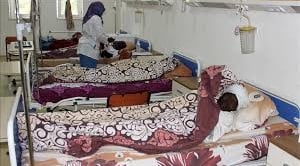

Sudan is facing a severe cholera outbreak as reported by the health ministry. The country has recorded 2,700 infections and 172 deaths within a week. Khartoum state is the most affected area, accounting for 90 percent of these cases. This surge in cholera cases is attributed to ongoing conflict and the destruction of vital infrastructure.
Current Situation
The cholera outbreak coincides with escalating violence between the Sudanese army and the paramilitary Rapid Support Forces (RSF). The conflict has severely disrupted water and electricity supplies, particularly in Khartoum. Residents have been forced to rely on unsafe water sources due to the failure of water treatment facilities.
About Cholera
Cholera is an acute diarrhoeal disease caused by ingesting contaminated water or food. It can lead to death within hours if untreated. However, it is preventable and treatable with access to clean water, proper sanitation, and timely medical care. The current outbreak marks the critical need for these resources.
Impact of Conflict on Healthcare
Sudan’s healthcare system is in a state of crisis. The World Health Organisation reports that up to 90 percent of hospitals have closed at some point during the ongoing war. Health facilities are often targeted, leading to looting and destruction. This has severely limited access to medical care for the population.
Role of Humanitarian Organisations
Organisations like Doctors Without Borders (MSF) are working to address the health crisis. They report that many water treatment stations are non-functional due to power outages caused by drone strikes. MSF’s medical coordinator has brought into light the urgent need for clean water from the Nile, which is currently unavailable.
Broader Humanitarian Crisis
The conflict has resulted in the world’s largest displacement and hunger crisis. Over 13 million people have been displaced, and tens of thousands have lost their lives. The situation continues to deteriorate, exacerbating health issues like cholera and other preventable diseases.
(NNI / Latest news / Latest news india / India latest news/UPSC Preparation)
Russia’s Sukhoi Su-57E Fighter Jet Challenges
Latest News International: 28th May 2025, UPSC Preparation
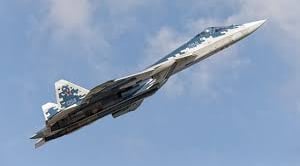

The Sukhoi Su-57E represents Russia’s ambition to compete in the global fifth-generation fighter market. Despite efforts to promote this aircraft, challenges persist. The recent Langkawi International Maritime and Aerospace Exhibition (LIMA 2025) in Malaysia brought into light these difficulties. The expected showcase of the Sukhoi Su-57E did not materialise, as only a scale model was displayed. This absence raises critical questions about the aircraft’s readiness for export.
Overview of the Sukhoi Su-57E
The Sukhoi Su-57E is the export version of the Su-57. It aims to rival advanced fighters like the F-22 and F-35. This aircraft is designed for stealth and supermaneuverability. It is equipped with long-range air-to-air missiles, such as the R-37M, capable of hitting targets up to 400 kilometres away. Russia positions the Su-57E as a potential game-changer in the global defence market.
Export Ambitions and Challenges
Russia has targeted several countries for Sukhoi Su-57E sales, including India, Malaysia, and Algeria. The aircraft is seen as a strong contender in Asia and North Africa. However, despite claims of imminent foreign sales, no confirmed buyers have emerged. Algeria is often speculated as a potential first customer, but official announcements are lacking.
India’s Involvement and Exit
India was once a key partner in the development of a fifth-generation fighter with Russia. The FGFA project aimed to create a joint fighter but ended in 2018 due to concerns over costs and delays. Despite this, Russia continues to court India, offering incentives like early deliveries and local production under the Make in India initiative. However, India has not made any commitments.
Malaysia’s Defence Programme
Malaysia’s MRCA programme seeks to replace its ageing MiG-29 fighters. Initially, it considered several fourth-generation jets. However, the focus is now shifting towards advanced platforms. The absence of the Sukhoi Su-57E at LIMA 2025 may further hinder its chances of being selected as a contender in Malaysia’s defence plans.
(NNI / Latest news / Latest news india / India latest news/UPSC Preparation)
East African Countries Unite Against Kala-Azar
Latest News International: 26th May 2025, UPSC Preparation
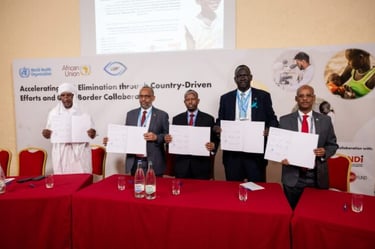

Chad, Djibouti, Ethiopia, Somalia, South Sudan, and Sudan signed a memorandum of understanding (MoU) to eradicate visceral leishmaniasis, commonly known as kala-azar. This event occurred during the 78th World Health Assembly in Geneva, organised by the African Union and the World Health Organization (WHO). Kala-azar is a neglected tropical disease (NTD) with high fatality rates, primarily affecting the underprivileged in East Africa.
About Kala-Azar
Kala-azar is caused by a parasite and presents severe symptoms such as fever, fatigue, weight loss, and organ enlargement. If untreated, it can be fatal. The majority of cases are found in Eastern Africa, where over 70% of the global burden exists. Children under 15 make up half of those affected, denoting the urgent need for targeted interventions.
Neglected Tropical Diseases (NTDs)
NTDs are a group of diseases that predominantly affect impoverished populations in tropical regions. They pose public health challenges due to their complex epidemiology and association with environmental factors. Effective control requires innovative strategies and cooperation among nations.
Recent Developments and Strategies
The MoU aims to boost investment in kala-azar elimination and develop effective strategies for public health concerns. Luis Pizarro from the Drugs for Neglected Diseases initiative (DNDi) emphasised the need for new oral treatments and medical innovations. The signatory countries plan to implement a framework established in June 2024 for disease elimination.
Regional Cooperation
The MoU encourages cross-border cooperation among countries, with Cameroon, Niger, Nigeria, Senegal, and Tanzania joining efforts to tackle other NTDs. Surveillance platforms like the Integrated Disease Surveillance and Response framework play important role in monitoring disease spread across borders.
Global Progress on NTDs
As of May 2025, 56 countries have successfully eliminated at least one NTD. Countries such as Togo and Benin have made strides, demonstrating that coordinated efforts can lead to success. The WHO reports that many African nations have also made progress in eliminating one or two NTDs in recent years.
Call for Action
The Call for Action urges endemic countries to collaborate on region-specific strategies. It advocates for sharing information and jointly planning health policies to combat NTDs effectively. The interconnected nature of these diseases necessitates a unified response to achieve lasting solutions.
(NNI / Latest news / Latest news india / India latest news/UPSC Preparation)
Ex-Harvard Worker Stole Human Heads, Skin. Then Sold It In Black Market
Latest News International: 25th May 2025


Cedric Lodge, the former manager of Harvard Medical School's morgue, has pleaded guilty to federal charges related to the theft and sale of human body parts. Between 2018 and March 2020, Lodge removed various body parts—including heads, brains, skin, and bones—from donated cadavers used for educational and research purposes. He transported these remains to his home in New Hampshire, where, along with his wife Denise, he sold them on the black market. The sales were conducted through online platforms and in-person exchanges, with payments totaling over $37,000. Denise Lodge has also pleaded guilty to charges related to the scheme.
The scandal has drawn widespread condemnation and legal action. Lodge faces a maximum sentence of 10 years in prison for the interstate transport of stolen human remains. Several individuals involved in the related cases have already received about one year in prison. The investigation was led by the FBI, the U.S. Postal Inspection Service, and local police. Harvard University has not commented on the matter.
(NNI / Latest news / Latest news india / India latest news/UPSC Preparation)
Donald Trump Warns Apple Of 25% Tariffs If iPhone Manufacturing Not Shifted To US From India
Latest News International: 24th May 2025
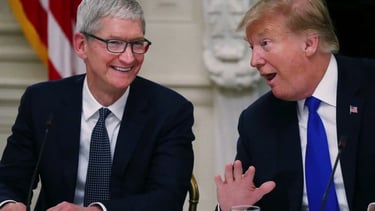

President Donald Trump has issued a stern warning to Apple, threatening a 25% tariff on iPhones manufactured outside the United States, including those produced in India. This move intensifies the ongoing trade tensions between the U.S. and its global partners. Trump emphasized that Apple must relocate its iPhone manufacturing to the U.S. to avoid the hefty tariff, a stance that has raised concerns among investors and industry analysts. Apple's stock experienced a notable decline following the announcement, reflecting market apprehension over the potential impact of such a policy.
In response to previous tariff threats, Apple has significantly increased its iPhone production in India, aiming to mitigate the effects of U.S. import duties on Chinese-manufactured goods. Reports indicate that Apple has airlifted approximately 1.5 million iPhones from India to the U.S. to circumvent the higher tariffs imposed on Chinese imports. However, with the new 25% tariff looming over iPhones made outside the U.S., including those from India, Apple faces a challenging decision. The company must weigh the feasibility of shifting its entire iPhone production to the U.S. against the potential cost implications and logistical hurdles such a move would entail.
(NNI / Latest news / Latest news india / India latest news/UPSC Preparation)
India’s Tariffs on Steel and Aluminium Imports
Latest News International: 24th May 2025, UPSC Preparation
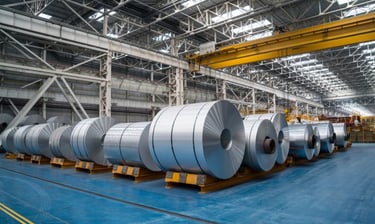

India has recently announced its intention to impose tariffs on $7.6 billion worth of imports from the United States. This decision comes as a direct response to the U.S. reinstating 25% tariffs on steel and aluminium. The Government of India aims to mirror the impact of these tariffs on its own exports. The new tariffs will take effect thirty days after notification, on May 9, 2025.
Background of Tariffs
Recently, U.S. President Donald Trump reinstated tariffs on steel and aluminium, eliminating previous exemptions. This protectionist policy aims to support domestic industries against unfair trade practices. Trump had first introduced these tariffs in March 2018. India’s response began in June 2019 when it faced the removal from the Generalized System of Preferences (GSP) by the U.S.
India’s Retaliatory Measures
India’s tariffs target 28 items, including agricultural products like apples and walnuts. The country views these measures as necessary to protect its trade interests. In 2020, the U.S. expanded its tariff regime to include derivatives of steel and aluminium. The trade situation improved briefly under President Joe Biden but reverted under Trump’s renewed administration.
WTO Involvement
India has notified the World Trade Organisation (WTO) about its tariffs. The U.S. claims its tariffs are justified under national security statutes. However, India and other nations argue that these measures are safeguards. India contends that mandatory consultations before implementing such tariffs did not occur, reserving the right to suspend obligations that affect its trade adversely.
Impact on Indian Industries
The 2018 tariffs raised concerns about the competitiveness of Indian exports in the U.S. market. Finished steel exports to the U.S. saw declines in FY 2019-20 and FY 2020-21. Recent data shows a 44.21% increase in exports until February 2025, following a previous decline. Steel manufacturers express caution regarding the new measures, fearing volatility in global markets.
Broader Implications
Experts suggest that India’s actions may affect ongoing negotiations with the U.S. India’s approach contrasts with the U.S.’ unilateralism, positioning it as a defender of multilateral trade norms. The tariffs align with India’s Make in India initiative, aiming to boost domestic industries. The outcome will depend on the U.S.’ response to India’s proposed tariffs.
(NNI / Latest news / Latest news india / India latest news/UPSC Preparation)
West Nile Virus Detected in UK Mosquitoes
Latest News International: 23rd May 2025, UPSC Preparation
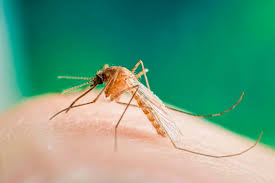

In July 2023, the UK Health Security Agency (UKHSA) reported the first detection of the West Nile virus (WNV) in mosquitoes in the United Kingdom. Aedes vexans mosquitoes were collected from wetlands near the River Idle in Nottinghamshire during a surveillance programme. This event marks the potential spread of mosquito-borne diseases in new regions, influenced by climate change.
About West Nile Virus
West Nile virus is a single-stranded RNA virus belonging to the Flavivirus genus. It primarily circulates between birds and mosquitoes. Humans and horses are incidental hosts, meaning they do not play role in the virus’s transmission cycle. Most human infections are asymptomatic. However, approximately 20% of those infected may exhibit flu-like symptoms.
Symptoms and Severity
While most cases remain mild, severe outcomes can occur. In rare instances, WNV can lead to neurological conditions such as encephalitis and meningitis. These complications are more common in older adults and individuals with weakened immune systems. Awareness of these symptoms is crucial for early diagnosis and treatment.
Current Risk Assessment
The UKHSA currently assesses the risk to the general public as very low. There is no evidence of the virus circulating in local bird or mosquito populations beyond the detected samples. However, health authorities are enhancing surveillance and advising healthcare professionals to consider WNV in cases of unexplained neurological symptoms.
Comparative Analysis with Dengue
WNV is often compared with other mosquito-borne diseases like dengue fever. While both are flaviviruses, they differ in symptoms and severity. Dengue typically presents with high fever, severe headache, and joint pain. In contrast, WNV may result in flu-like symptoms or neurological complications.
(NNI / Latest news / Latest news india / India latest news/UPSC Preparation)
UK Experiences Driest Spring in a Century
Latest News International: 22nd May 2025, UPSC Preparation
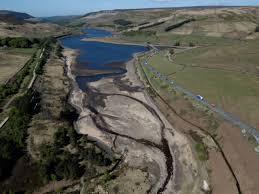

The United Kingdom is currently facing an unprecedented dry spell. The Meteorological Office has declared this spring as the driest in over a century. Average rainfall has plummeted to just 80 mm, lower than the typical 229 mm. This situation has raised concerns about potential summer droughts as the dry weather is expected to continue.
Current Weather Conditions
This spring, the UK has experienced unusually low rainfall. Some regions have seen 20 consecutive days without any precipitation. The Environment Agency has classified the risk of drought this summer as ‘medium’. Reservoirs are currently in a healthy state but could be impacted if dry conditions persist.
Impact of Sunshine
Alongside the lack of rain, the UK has enjoyed record-breaking sunshine. April was the sunniest month recorded, following a notably bright March. May’s sunshine levels also remain above average. This combination of high temperatures and low rainfall contributes to the ongoing dryness.
Historical Context
The last official drought in the UK occurred in the summer of 2022, affecting around 19 million people. During that period, reservoir levels were about 90% full. In contrast, current levels are around 80%. This historical perspective marks the severity of the current situation.
Government and Agency Responses
The National Drought Group has stated that while no areas are officially in drought, the risk remains. Water companies are urged to enhance water supply safeguards. Although hosepipe bans are not in place yet, they may be introduced if the dry spell continues.
Regional Variations
While some areas like Wales and south-west England have received adequate rainfall since March, overall precipitation remains below average. Regions such as Greater London and Yorkshire are experiencing particularly severe dry conditions.
Future Projections
Meteorologists predict that the dry weather will persist for at least another week. Continuous monitoring by the Environment Agency and Natural Resources Wales will be crucial in managing water resources and preparing for potential drought conditions.
(NNI / Latest news / Latest news india / India latest news/UPSC Preparation)
UK-EU Reset Deal
Latest News International: 21st May 2025, UPSC Preparation
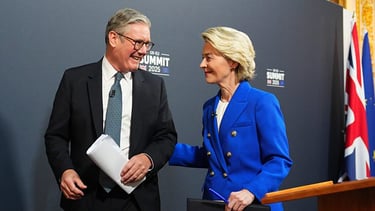

The United Kingdom and the European Union are currently engaged in negotiations to establish a new framework for their relationship. This comes five years after Brexit, which saw the UK officially leave the EU. Recent discussions have focused on a comprehensive security agreement and a fishing deal that allows EU vessels continued access to UK waters. Both parties view this as a necessary step in light of changing geopolitical dynamics, particularly the ongoing conflict in Ukraine.
About Brexit
Brexit is a portmanteau of Britain and exit. It refers to the UK’s decision to leave the EU, following a referendum in 2016. The vote was influenced by a desire for greater sovereignty over laws and borders. The UK officially exited the EU on January 31, 2020, entering an 11-month transition period during which it adhered to EU regulations.
The Need for a Reset Deal
The geopolitical landscape has shifted dramatically since Brexit. The war in Ukraine has heightened security concerns across Europe. Both the UK and EU have imposed sanctions on Russia, seeking to pressure President Putin for a ceasefire. Additionally, the return of a Eurosceptic US administration has complicated transatlantic relations, making a strong UK-EU partnership more critical.
Key Components of the Deal
Fishing Agreement – The new deal allows EU fishing boats continued access to UK waters until 2038. This extends the current agreement, set to expire in 2026, and includes annual quotas and fishing licenses.
Agrifood Veterinary Deal – This arrangement reduces border checks on food exports from the UK. It allows the UK to sell certain food products in the EU, although it may require future regulatory alignment.
Security Deal – A formal defence pact has been signed, promoting cooperation and information-sharing. The UK can access the £150 billion Security Action for Europe fund, which aims to support defence projects and create jobs.
Youth Mobility Scheme – A new initiative will allow young people aged 18 to 35 to work and travel between the UK and EU for up to three years. This scheme will have annual visa quotas.
Passport Gates – British travellers will benefit from e-gates at EU airports. New systems will simplify travel for pets, reducing the need for repeated veterinary checks.
Carbon Tax Alignment – The UK will link its carbon system with the EU’s Carbon Border Adjustment Mechanism. This aims to save £800 million in taxes and protect British industries from EU tariffs. Despite these advancements, the deal maintains key positions of the Labour Party, including no single market access, no customs union, and no free movement of people.
(NNI / Latest news / Latest news india / India latest news/UPSC Preparation)
Operation Gideon’s Chariots
Latest News International: 20th May 2025, UPSC Preparation
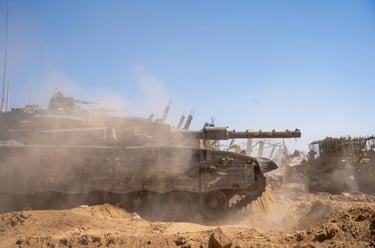

Israel has initiated a military offensive called Operation Gideon’s Chariots aimed at pressuring Hamas for the release of Israeli hostages. This announcement follows a series of intense airstrikes and coincides with U.S. President Donald Trump’s recent tour of the Middle East, which notably did not include Israel.
Background of the Operation
Operation Gideon’s Chariots derives its name from a biblical figure known for his military prowess. The operation’s primary objective is to compel Hamas to release the remaining hostages while simultaneously diminishing the group’s influence in Gaza. Israeli authorities believe that out of the 57 hostages, around 23 may still be alive.
Key Components of the Offensive
The operation is multifaceted and includes several critical elements:
A substantial ground incursion by Israeli Defence Forces (IDF) into Gaza.
The seizure and control of strategic territories within the Gaza Strip.
Civilian displacement from northern and central Gaza towards southern regions.
Efforts to prevent Hamas from obstructing humanitarian aid.
Military Mobilisation and Goals
Thousands of Israeli troops, including reservists, are mobilised for the operation. Israeli Prime Minister Benjamin Netanyahu has stated that the goal is to dismantle Hamas, which has governed Gaza for nearly two decades. The ground operation was strategically timed to commence after President Trump’s Middle East tour concluded.
Humanitarian Concerns
President Trump has acknowledged the severe humanitarian crisis in Gaza, stating that many people are suffering. Despite this recognition, discussions regarding the long-term future of Gaza remain unresolved. Trump has suggested transforming Gaza into a “freedom zone,” a concept he proposed earlier that involves U.S. control and development of the area into a luxury hub.
Rising Casualties in Gaza
The Gaza Health Ministry has reported alarming casualty figures. Over 150 people were killed in just 24 hours due to Israeli strikes, with many victims being women and children. Local officials estimate the total death toll could reach between 250 to 300 in recent days. Hospitals in the region are overwhelmed with the influx of casualties.
International Reactions
The international community is closely monitoring the situation. Calls for a ceasefire and resumption of humanitarian aid have intensified, yet the violence continues unabated. The dynamics of the conflict are further complicated by geopolitical factors, including U.S. involvement and regional alliances.
(NNI / Latest news / Latest news india / India latest news/UPSC Preparation)
US’ Proposed Remittance Transfer Tax for Non-Residents
Latest News International: 20th May 2025, UPSC Preparation
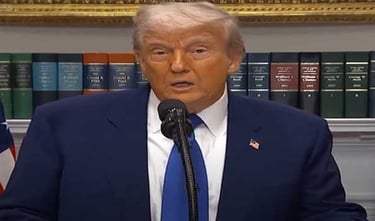

The proposed remittance transfer tax is change for non-resident Indians (NRIs) in the United States. The House Ways and Means Committee has advanced the “One Big Beautiful” Tax Act. This legislation aims to extend provisions from the 2017 Tax Cuts and Jobs Act. It introduces a 5% tax on remittances sent abroad. This tax could affect many NRIs who regularly send money to their families in India. The bill is awaiting Senate review and is expected to be finalised by 4 July 2025.
What is Remittance Transfer Tax?
The remittance transfer tax is a proposed 5% tax on money sent from the US to other countries. It will apply to all qualifying transfers made on or after 1 January 2026. This tax is calculated based on the amount transferred, not on income. For example, sending $10,000 to India would incur an additional $500 in tax.
Who Will Be Affected?
The tax primarily targets non-citizen residents in the US. This includes NRIs on H1B, L1, or F1 visas and Green Card holders. Anyone who is not a verified US citizen will be impacted. There are limited exemptions for verified US citizens and transfers through qualified remittance providers.
How Will the Tax Be Collected?
The tax will be collected at the point of transfer. Remittance providers, such as banks or money transfer services, will collect the tax from the sender. They must deposit the tax with the US Treasury Department quarterly. If a provider fails to collect the tax, they will be liable for the payment.
Anti-Abuse Provisions
To prevent tax avoidance, the proposal includes anti-abuse rules. These rules target indirect methods used to evade the tax. For instance, using third parties or shell accounts to funnel money could result in penalties. This ensures compliance and fairness in tax collection.
Preparing for the New Tax
NRIs should take practical steps to prepare for the remittance tax. They should start tracking their remittances and maintaining clear records. Reviewing US residency and citizenship status is crucial. Staying informed about the bill’s progress in Congress is necessary, as amendments may occur. Consulting a tax advisor can help individuals assess their unique tax situations.
Implications of the Tax
If enacted, the remittance transfer tax will increase the cost of sending money abroad. This change will affect NRIs, especially those with ongoing financial obligations in India. The cumulative impact of this tax could be substantial over time.
(NNI / Latest news / Latest news india / India latest news/UPSC Preparation)
UN’s Global Report on Food Crises
Latest News International: 20th May 2025, UPSC Preparation


In 2024, the world faced an alarming rise in acute hunger. The UN’s Global Report on Food Crises brought into light that over 295 million people across 53 nations experienced severe food shortages. This marked the sixth consecutive year of increasing hunger levels. Conflict, economic shocks, and climate change were identified as primary contributors to this crisis. The situation is particularly dire in regions like the Gaza Strip, South Sudan, and Haiti.
Current State of Global Hunger
The report revealed that 22.6% of the assessed population faced acute food insecurity in 2024. This was an increase of 13.7 million from the previous year. The number of individuals experiencing famine rose to 1.9 million, more than double the figure from 2023. Conflict was the leading cause, impacting around 140 million people in 20 countries.
Key Drivers of Food Insecurity
Conflict and violence were identified as the main drivers of hunger in many regions. Areas such as Gaza and Sudan experienced catastrophic food shortages due to ongoing conflicts. Additionally, economic shocks like inflation and currency devaluation affected 59.4 million people across 15 countries. These factors contributed to a worsening food crisis, especially in Afghanistan, South Sudan, and Yemen.
Role of Humanitarian Aid
The report warned of a bleak outlook for 2025, as humanitarian aid funding is projected to decline . Major donor countries have reduced their contributions, which has disrupted operations in critical regions. The report indicated that funding for humanitarian food sectors could drop by up to 45%. This reduction in aid is expected to exacerbate existing food insecurity.
Impact on Vulnerable Populations
Children and women are disproportionately affected by hunger. In conflict zones, they often bear the brunt of food shortages and blockades. The report marks the urgent need for targeted interventions to protect these vulnerable groups. Without immediate action, the situation is likely to deteriorate further.
Economic Factors Influencing Hunger
Economic instability has emerged as factor in food insecurity. The global economy is facing high uncertainty due to various issues, including US tariffs and a weakening dollar. These economic shocks have led to increased hunger levels, particularly in regions already struggling with conflict and climate challenges.
Climate Change and Food Security
Extreme weather events have also been linked to rising hunger levels. The report noted that 18 countries faced food insecurity due to climate-related disruptions. This marks the interconnectedness of climate change and food security, necessitating a comprehensive approach to address both issues.
(NNI / Latest news / Latest news india / India latest news/UPSC Preparation)
Former President Joe Biden Faces Health Challenge with Prostate Cancer Diagnosis
Latest News International: 19th May 2025
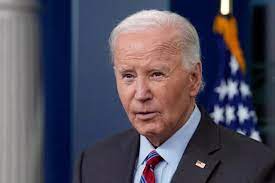

Former U.S. President Joe Biden has been diagnosed with an aggressive form of prostate cancer, according to a statement from his office. The diagnosis followed a routine physical examination in Philadelphia, where a prostate nodule was discovered due to increasing urinary symptoms. The cancer, characterized by a Gleason score of 9, indicates a high risk of rapid spread but is hormone-sensitive, allowing for treatment options. Biden and his family are currently reviewing medical plans with his healthcare team.
This diagnosis comes after Biden's successful removal of a basal cell carcinoma from his chest in 2023. Prostate cancer is one of the most common cancers among American men, with nearly 300,000 diagnoses and over 35,000 deaths annually. The Biden family has expressed gratitude for the support and well-wishes from the public and political figures across the spectrum.
(NNI / Latest news / Latest news india / India latest news/UPSC Preparation)
Netanyahu Proposes Terms for Ending Gaza War, Including Hamas Disarmament
Latest News International: 19th May 2025
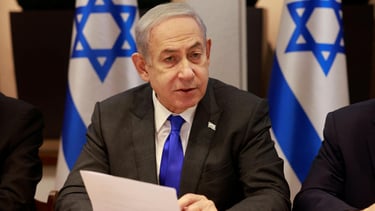

Israeli Prime Minister Benjamin Netanyahu has indicated a potential willingness to end the ongoing conflict in Gaza, contingent upon Hamas agreeing to specific terms. In recent indirect negotiations held in Doha, Netanyahu's office outlined that Israel would consider concluding the war if Hamas commits to disarming and allowing the exile of its leadership. These discussions also encompass proposals for a truce and a potential hostage exchange deal. However, Israeli officials have emphasized that any resolution must ensure the demilitarization of Gaza and the dismantling of Hamas's military and governing capabilities.
The humanitarian situation in Gaza remains dire, with over 53,000 reported deaths and more than 121,000 injuries since the conflict's escalation in October 2023. Israel has recently resumed the entry of basic humanitarian aid into Gaza to alleviate the worsening crisis. Despite these efforts, the path to a lasting ceasefire remains uncertain, as both sides continue to hold firm on their demands.
(NNI / Latest news / Latest news india / India latest news/UPSC Preparation)
The Resistance Front
Latest News International: 18th May 2025, UPSC Preparation
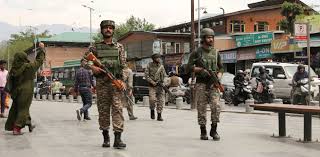

India is advocating for the United Nations to label The Resistance Front (TRF) as a terrorist organisation. This push follows a deadly terror attack in Pahalgam, Jammu and Kashmir, which resulted in 26 fatalities. India aims to present evidence to the UN Security Council’s 1267 Sanctions Committee, denoting TRF’s connections to Pakistan-based terror groups.
The Resistance Front
TRF emerged in 2019, shortly after the revocation of Article 370 in Jammu and Kashmir. It is considered a front for the Pakistan-based group Lashkar-e-Taiba (LeT). TRF has been linked to numerous violent acts, including targeted killings and arms trafficking. This group operates under the guise of a local entity while maintaining ties to larger terrorist networks.
India’s Dossier Submission
India’s government is compiling a dossier for the UNSC. This dossier includes intelligence, digital forensics, and investigative findings. The aim is to demonstrate TRF’s terrorist activities and its operational links to Pakistan. Indian officials assert that TRF recruits local youth into militancy.
UNSC 1267 Sanctions Committee
The UNSC 1267 Sanctions Committee was established in 1999 to impose sanctions on entities linked to Al-Qaeda and ISIS. The committee implements travel bans, asset freezes, and arms embargoes. Listing an entity can severely restrict its operations and financial resources.
Listing Process and Challenges
A member state must propose a listing to the sanctions committee, including evidence of terrorist involvement. The process requires consensus from all 15 committee members. This consensus requirement can be influenced by geopolitical factors, often leading to delays or rejections of proposals.
Historical Context of Designations
Past instances show how political considerations can obstruct listings. For example, the case of Masood Azhar, leader of Jaish-e-Mohammed, faced repeated blocks from China. Only after diplomatic pressure was he listed in 2019.
TRF’s Activities and Tactics
TRF has been implicated in various violent incidents in Kashmir. Investigations reveal its use of digital channels for recruitment and coordination. The group initially claimed responsibility for the Pahalgam attack but later retracted this claim, suggesting external influence on its operations.
Diplomatic Efforts and Geopolitical Hurdles
India’s push for TRF’s designation has faced resistance from Pakistan and China. Both countries have used procedural tactics to block references to TRF in UNSC statements. This has raised concerns about Pakistan’s support for the group.
(NNI / Latest news / Latest news india / India latest news/UPSC Preparation)
Birthright Citizenship
Latest News International: 17th May 2025, UPSC Preparation
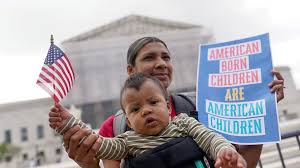

The US Supreme Court is reviewing a very important case that could redefine American citizenship. The case centres on an executive order from President Donald Trump aimed at ending birthright citizenship for children born in the US to undocumented immigrants and temporary visa holders. This order challenges the longstanding interpretation of the Citizenship Clause in the Fourteenth Amendment, which has guaranteed citizenship to anyone born on US soil since its ratification in 1868.
About Birthright Citizenship
Birthright citizenship, or jus soli, grants automatic citizenship to anyone born within a country’s borders. The principle is rooted in English common law. The Fourteenth Amendment states that all persons born in the US are citizens, with exceptions for children of foreign diplomats and those born during hostile occupations. The amendment was established to ensure citizenship for formerly enslaved individuals.
The Executive Order’s Implications
Trump’s executive order seeks to reinterpret the Citizenship Clause. If upheld, it would mean that children of undocumented immigrants and temporary visa holders would not automatically receive US citizenship. This could lead to increase in the population of stateless individuals. Critics fear it may complicate immigration pathways and exacerbate the existing challenges within the immigration system.
Legal Challenges and Judicial Resistance
Three federal judges have issued nationwide injunctions against the executive order, denoting judicial resistance to many of Trump’s policies. The Trump administration has claimed that these injunctions undermine its authority. The administration argues that universal injunctions impede its ability to implement policies effectively.
Global Context of Birthright Citizenship
The United States is not unique in its practice of birthright citizenship. At least 37 other countries, mainly in South America and the Caribbean, also grant citizenship to anyone born on their soil. Conversely, many European nations, including India, do not follow this principle. This global perspective raises questions about the implications of the proposed changes in US law.
Potential Consequences of the Ruling
If the Supreme Court rules in favour of the executive order, it could lead to sweeping changes in US immigration policy. Parents with non-immigrant visas would have to apply for dependent visas for their US-born children. This could drastically alter the legal status of millions of children and complicate family reunification processes.
Historical Context and Precedents
The current case is the first federal attempt to override birthright citizenship since the Fourteenth Amendment was ratified. Previous exceptions to jus soli have included Indigenous people and residents of unincorporated territories. This ruling could set a precedent for future executive actions with limited congressional oversight.
(NNI / Latest news / Latest news india / India latest news/UPSC Preparation)
Global EV Outlook 2025
Latest News International: 17th May 2025, UPSC Preparation
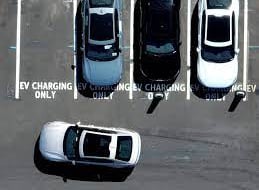

In 2024, China emerged as the leading exporter of electric vehicles (EVs), commanding a 40% share of global exports. The Global EV Outlook 2025 report marks how affordable Chinese models have influenced the electric car market, particularly in emerging economies. Countries such as Thailand, Brazil, and Mexico saw a remarkable increase in the adoption of Chinese electric cars. However, recent tariff changes pose challenges to this growth.
Chinese Electric Vehicles in Emerging Markets
Chinese electric cars are priced competitively in several emerging markets. In countries like Indonesia, Thailand, and Mexico, the cost of the cheapest battery electric vehicles (BEVs) is comparable to that of the least expensive internal combustion engine (ICE) models. This pricing strategy has catalysed a surge in EV adoption. In Thailand, for instance, the average price of a Chinese EV was lower than that of conventional vehicles in 2024.
Market Shares and Trends
In Brazil, Chinese imports accounted for 85% of the country’s EV sales by 2024, rise from 60% in 2023. The price gap between BEVs and ICE vehicles in Brazil shrank dramatically, from over 100% to 25%. Conversely, in India, high import duties and the availability of local models limited Chinese EVs to less than 15% of the market share.
Impact of Tariffs on Exports
The introduction of new tariffs in various regions is complicating the landscape for Chinese EV exports. In 2024, the European Union implemented OEM-specific countervailing duties aimed at counteracting alleged subsidies for Chinese manufacturers. The United States and Canada followed suit with tariffs exceeding 100%. These measures have prompted Chinese manufacturers to consider establishing overseas production facilities to mitigate the impact of tariffs.
Future Manufacturing Strategies
Chinese OEMs are planning to expand their manufacturing capabilities abroad. This includes establishing assembly plants in Brazil and Türkiye, aimed at serving local markets and facilitating exports. By 2026, the overseas manufacturing capacity of Chinese OEMs is projected to nearly double, reaching over 4.3 million vehicles annually. Europe and Southeast Asia are expected to be key locations for these new plants.
Challenges Ahead
The report warns that rising trade policies and tariffs could hinder the growth of EV sales in various markets. Tariffs may particularly affect EV batteries and their components, which are traded extensively worldwide. A global shift towards higher tariffs could lead to increased battery prices, counteracting the price declines observed since 2015.
(NNI / Latest news / Latest news india / India latest news/UPSC Preparation)
India’s Space Nutrition Experiments
Latest News International: 17th May 2025, UPSC Preparation
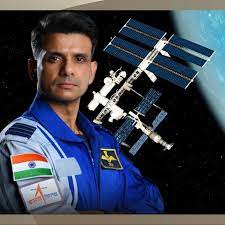

India is poised to make advancements in space nutrition through pioneering experiments aboard the International Space Station (ISS). These initiatives, announced by Dr. Jitendra Singh, aim to explore sustainable food sources for long-duration space missions. The experiments are part of India’s BioE3 Biotechnology policy and highlight the country’s commitment to global leadership in biotechnology.
Microgravity and Edible Microalgae
The first experiment will assess the impact of microgravity on edible microalgae. These organisms are rich in proteins, lipids, and bioactive compounds. They have a rapid growth cycle, with some species capable of doubling in biomass within 26 hours. The research will examine key growth parameters and changes in various biological components in a space environment. The goal is to identify the best microalgal species for use in space missions.
Advantages of Microalgae in Space
Microalgae offer numerous benefits for sustaining life in space. They can efficiently absorb carbon dioxide and produce oxygen, which is vital for closed environments like spacecraft. Their high biomass yield in photobioreactors makes them a space-efficient choice for food production. This capability is essential for long-duration missions where resources are limited.
Cyanobacteria Research
The second experiment will focus on cyanobacteria, specifically Spirulina and Synechococcus. Researchers will compare their growth in urea versus nitrate media under microgravity conditions. This study aims to understand their metabolic responses and explore their potential as a “superfood.” The rapid growth and efficient photosynthesis of these organisms make them ideal for recycling human waste into usable resources during space travel.
Self-Sustainability in Space Missions
The recycling carbon and nitrogen from human waste is critical for achieving self-sustainability in spacecraft and future extraterrestrial colonies. By leveraging cyanobacteria, missions can create a closed-loop system that supports human life without relying on external supplies.
The DBT-ICGEB Biofoundry
The experiments are supported by the newly inaugurated DBT-ICGEB Biofoundry in New Delhi. This state-of-the-art facility employs a Design, Build, Test, and Learn (DBTL) cycle to develop biotechnological innovations. It focuses on microbial platforms and aims to create products for various sectors, including food, agriculture, and pharmaceuticals. The Biofoundry’s capabilities enable technology transfer to startups and manufacturers.
(NNI / Latest news / Latest news india / India latest news/UPSC Preparation)
US to Lift Sanctions on Syria
Latest News International: 16th May 2025, UPSC Preparation


US President Donald Trump announced change in policy by lifting sanctions imposed on Syria. This decision comes during his visit to Saudi Arabia, where he expressed a desire to give Syria a chance for recovery and growth. The sanctions, originally placed to penalise the Assad regime, have had a devastating impact on the Syrian populace. The shift signals a potential thaw in relations between the US and the new Syrian leadership under President Ahmed al-Sharaa.
Background of Sanctions
The US imposed sanctions on Syria beginning in 1979, designating it as a state sponsor of terrorism. These sanctions were aimed at restricting military and financial support to the Assad regime. Additional sanctions were enacted in 2004 and intensified during the Syrian civil war starting in 2011. These measures included asset freezes, investment bans, and restrictions on petroleum imports, which crippled the Syrian economy.
Ahmed al-Sharaa’s Rise to Power
Ahmed al-Sharaa, previously known as Abu Mohammed al-Golani, emerged as Syria’s interim president in January 2025 after leading a successful offensive against Bashar al-Assad. His leadership is marked by a controversial past, including affiliations with al-Qaeda. Despite this, al-Sharaa has sought to distance his government from extremist elements, presenting a more moderate image to the international community.
Reasons for Lifting Sanctions
The lifting of sanctions is seen as a response to al-Sharaa’s efforts to gain legitimacy. His government has committed to cooperating on counterterrorism and supporting minority rights. The US decision also reflects a broader international interest in re-engaging with Syria, especially from regional powers like Saudi Arabia and Turkey, which have advocated for the sanctions’ removal.
Implications for Syria’s Future
Removing sanctions could enable Syria to reintegrate into the global economy. Humanitarian organisations may find it easier to operate, and foreign investment could increase. The sanctions had previously hindered economic recovery, leaving high unemployment and poverty rates. Experts suggest that while this move may facilitate initial recovery, challenges remain for the new government.
Regional Dynamics and International Reactions
The announcement has elicited mixed reactions. While Gulf nations support the new leadership as a counterbalance to Iranian influence, Israel remains cautious due to al-Sharaa’s militant background. The United Nations welcomed the move, viewing it as essential for Syria’s reconstruction efforts after years of conflict.
(NNI / Latest news / Latest news india / India latest news/UPSC Preparation)
India’s Trade Relations with Turkey and Azerbaijan
Latest News International: 16th May 2025, UPSC Preparation
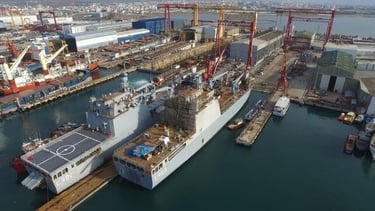

Recent tensions between India, Turkey, and Azerbaijan have arisen due to their support for Pakistan in the ongoing conflict. India has launched Operation Sindoor to target terror camps in Pakistan. Due to Turkey’s support for Pakistan, calls were made for boycotting Turkish products and tourism. Online platforms have issued advisories against travel to Turkey and Azerbaijan. Indian traders have begun to boycott Turkish goods, impacting trade relations .
Trade Relations
India has maintained trade relations with Turkey and Azerbaijan for decades. A bilateral trade agreement was signed in 1973. The India-Turkiye Joint Commission on Economic and Technical Cooperation was established in 1983. These agreements aimed to enhance economic collaboration.
Current Trade Dynamics
India’s exports to Turkey reached USD 5.2 billion from April to February 2024-25. This is a decrease from USD 6.65 billion in the previous year. Exports to Azerbaijan were USD 86.07 million in the same period. This is a slight decline from USD 89.67 million in 2023-24. India’s imports from Turkey were USD 2.84 billion, down from USD 3.78 billion. Imports from Azerbaijan stood at USD 1.93 million, a rise from USD 0.74 million. Overall, India enjoys a trade surplus with both nations.
Major Products Traded
Key exports to Turkey include mineral fuels, electrical machinery, and auto parts. Other exports consist of organic chemicals, pharmaceuticals, and cotton. Major imports from Turkey are marbles, apples, and mineral oil. Similarly, India’s exports to Azerbaijan include tobacco, tea, and chemicals. Imports from Azerbaijan feature animal fodder and essential oils.
Impact of Recent Developments
The recent conflict and India’s retaliatory actions have strained these trade ties. The backing of Pakistan by Turkey and Azerbaijan has led to a negative perception of their products in India. This may further reduce trade volumes. The calls for boycotts indicate a growing sentiment against Turkish goods among Indian consumers.
People-to-People Ties
Cultural and educational exchanges exist between India and these nations. Approximately 3,000 Indians reside in Turkey, including around 200 students. In Azerbaijan, over 1,500 Indians live there. These communities encourage connections that could influence trade and diplomatic relations.
Tourism Trends
Tourism has been aspect of India’s relations with Turkey and Azerbaijan. In 2023, around 300,000 Indian tourists visited Turkey. Over 200,000 Indians travelled to Azerbaijan. Recent advisories against travel could affect future tourism numbers.
(NNI / Latest news / Latest news india / India latest news/UPSC Preparation)
Afrikaners
Latest News International: 15th May 2025, UPSC Preparation
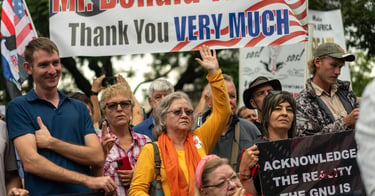

A group of Afrikaners arrived in the United States as refugees. This move was facilitated by the Trump administration, which expedited their applications for citizenship. The Afrikaners, who are white South Africans, travelled from Johannesburg on a government-sponsored charter flight. Their arrival has sparked debate regarding their refugee status and the broader implications for US-South Africa relations.
Who Are Afrikaners?
Afrikaners are descendants of Dutch settlers in South Africa, dating back to the 17th century. They primarily speak Afrikaans, a language derived from Dutch. Comprising about 7% of South Africa’s population, Afrikaners hold a disproportionate amount of land ownership, approximately 70%. Most Afrikaners are engaged in agriculture.
Reasons for Refugee Status
The Trump administration’s decision to grant refugee status stems from an executive order issued in February 2025. This order was a response to South Africa’s land expropriation law, which permits the government to seize land without compensation. Trump condemned this law as a severe human rights violation, claiming it threatened Afrikaners’ safety.
Claims of Genocide
Allegations of genocide against Afrikaners have been propagated by a small group of conservative Afrikaners. These claims suggest systemic violence and discrimination against white farmers in South Africa. Influential figures, including Elon Musk, have echoed these concerns, framing them within a narrative of racial injustice.
US-South Africa Relations
The relationship between the United States and South Africa has been strained in recent years. The US government has expressed discontent with South Africa’s foreign policy, particularly its ties to Russia and Iran. Additionally, South Africa‘s legal actions against Israel in international courts have further complicated diplomatic ties.
Impact on Aid and Support
Following the executive order, the Trump administration suspended funding to South Africa. This included cuts to USAID, which has been crucial for health initiatives, particularly in combating HIV/AIDS. The PEPFAR programme has been instrumental in supporting South Africa’s health infrastructure, with millions of dollars allocated annually.
(NNI / Latest news / Latest news india / India latest news/UPSC Preparation)
U.S.-Saudi Investments in 2025
Latest News International: 15th May 2025, UPSC Preparation
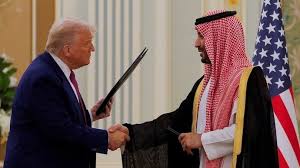

U.S. President Donald Trump visited Saudi Arabia. During this visit, the U.S. and Saudi Arabia signed the largest defense cooperation agreement in U.S. history, worth $142 billion. The focus of the visit was on encouraging economic ties rather than security issues, reflecting a shift in priorities.
Investment Commitments
Saudi Arabia committed to investing $600 billion in the U.S.
Of this, $300 billion worth of deals were signed during the U.S.-Saudi Investment Forum in Riyadh.
Plans to scale up the investment to $1 trillion in a second phase.
This investment is part of Saudi Arabia’s broader strategy to diversify its economy beyond oil.
Defence Agreements
The U.S. agreed to sell Saudi Arabia an extensive arms package. The deal includes purchases from over a dozen U.S. defense firms in areas such as:
Air and missile defense
Air force and space technology
Maritime security
Communications systems
Discussions also took place on Saudi Arabia’s potential acquisition of Lockheed Martin’s F-35 fighter jets, though not confirmed in the final deal.
Vision 2030 and Economic Diversification
Saudi Arabia’s Vision 2030 aims to transform the kingdom’s economy. This includes ambitious projects, such as NEOM, a futuristic city that is planned to be as large as Belgium. The economic diversification efforts are crucial as oil revenue accounted for 62% of government income last year. The kingdom is working to reduce its reliance on oil, especially in light of fluctuating prices and rising costs.
Regional Dynamics
Trump’s visit occurred amid complex geopolitical tensions in the Middle East. The U.S. has maintained strong ties with Saudi Arabia, rooted in an agreement where the kingdom supplies oil in exchange for security. However, relations have been strained due to past incidents, such as the Khashoggi killing. Trump’s current administration aims to boost these ties while addressing regional security concerns.
Israel and Middle East Peace Efforts
Notably, Trump did not include Israel in his itinerary, raising questions about its significance in U.S. foreign policy. Ongoing military operations in Gaza and Lebanon have complicated the peace process. The U.S. is also engaged in discussions with Iran regarding its nuclear programme. However, the prospects for a Palestinian state remain uncertain, impacting potential agreements with Saudi Arabia.
(NNI / Latest news / Latest news india / India latest news/UPSC Preparation)
Global Shipping Emissions Levy
Latest News International: 15th May 2025, UPSC Preparation
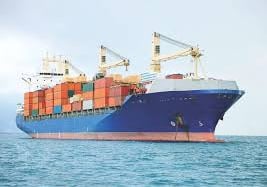

The maritime industry is undergoing changes to address climate change. The International Maritime Organization’s Marine Environment Protection Committee recently voted on a new emissions levy. This decision marks a very important moment in global shipping regulations. The proposed Market-Based Measure (MBM) aims to balance environmental needs with economic fairness.
Key Proposals at MEPC-83
Five major proposals were discussed at the meeting. The International Chamber of Shipping suggested a fixed levy for each tonne of CO₂ emitted. China proposed a market-driven approach allowing ships to trade compliance units. The European Union recommended a fixed greenhouse gas levy managed by an IMO fund. India offered a ‘bridging mechanism’ targeting under-compliant ships while rewarding those using zero or near-zero fuels. Singapore enhanced India’s model with a GHG Fuel Standard and a tiered system for emissions.
Voting Outcome and Next Steps
The MEPC-83 voted 63 to 16 in favour of Singapore’s hybrid model as the Net Zero Framework. This makes international shipping the first global industry to adopt a mandatory emissions levy. However, the decision is not final. It requires amending Annex VI of the MARPOL convention, which will undergo a six-month review. A two-thirds majority is needed for final adoption. Currently, the outcome remains uncertain due to abstentions and potential objections from member states.
National Interests and Geopolitical Tensions
The meeting brought into light the clash of national interests in climate diplomacy. Oil-exporting countries resisted transitions to green fuels. Small island nations pushed for higher carbon levies to fund green initiatives. Meanwhile, large shipping nations advocated for minimal levies to maintain competitiveness. The diverse positions reflect the challenges the IMO faces in achieving a universally acceptable emissions framework.
Importance of Green Shipping
Shipping is responsible for about 2.8% of global greenhouse gas emissions, making it contributor to climate change. Without intervention, emissions could rise drastically by 2050. The IMO has been implementing measures since 2011 to reduce emissions. Targets include a 40% reduction in carbon intensity by 2030 and net-zero emissions by 2050, aligning with global climate goals.
Equity in Climate Responsibility
The principle of ‘common but differentiated responsibilities’ is being challenged in recent discussions. Wealthier nations are perceived to be shifting the burden onto developing countries. This raises concerns about equity in climate action and the historical responsibilities of developed nations.
India’s Position and Future Prospects
India faces short-term challenges from the new MBM framework but stands to benefit in the long run. The impact on maritime logistics costs will be manageable. India’s investment in green hydrogen positions it well for future opportunities in clean energy exports. This aligns with the IMO’s reward thresholds for greenhouse gas emissions, creating a pathway for India to become a global hub for green fuels.
(NNI / Latest news / Latest news india / India latest news/UPSC Preparation)
India’s Financial Support to the Maldives
Latest News International: 14th May 2025, UPSC Preparation
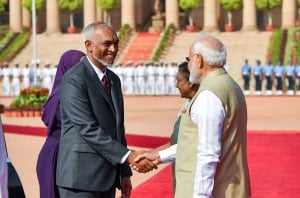

India extended financial assistance to the Maldives by rolling over a $50 million Treasury Bill. A Treasury Bill (T-bill) “rollover” means using the amount received from a maturing T-bill to purchase a new one, thereby continuing the investment for another term. This decision came at the request of the Maldivian government, amid rising economic challenges. Both India and China are the Maldives’ primary creditors, competing for influence in this strategically important Indian Ocean nation. The Maldives faces substantial debt, with public debt exceeding 134% of its GDP.
Financial Assistance Details
India’s State Bank has rolled over its subscription to a Treasury Bill for another year. This financial support is part of a government-to-government arrangement aimed at providing emergency assistance.
Economic Context
The Maldives has been struggling with low foreign exchange reserves and high external debt. As of late 2024, its total public debt reached $9.4 billion, reflecting increase over the previous year. The country is also facing credit rating downgrades from agencies like Fitch and Moody’s, which limit access to new financing.
Impact of Financial Support
The rollover of the Treasury Bill is expected to support the Maldivian government’s ongoing fiscal reforms. It is seen as a demonstration of India’s commitment to its ‘Neighbourhood First’ policy, which emphasises strengthening ties with neighbouring countries. The assistance is crucial for the Maldives as it navigates its economic challenges.
Strategic Importance of the Maldives
The Maldives holds strategic importance for both India and China. Its location in the Indian Ocean makes it a key player in regional dynamics. India’s financial support is not only a gesture of friendship but also a strategic move to maintain influence in the region amidst competition with China.
Future Outlook
The Maldives faces a spike in debt servicing in 2025 and 2026. The continuation of financial support from India will be essential for the country’s economic stability. The relationship between India and the Maldives is likely to evolve as both nations navigate their economic and geopolitical landscapes.
(NNI / Latest news / Latest news india / India latest news/UPSC Preparation)
Trump’s Executive Order on Prescription Drug Pricing
Latest News International: 14th May 2025, UPSC Preparation
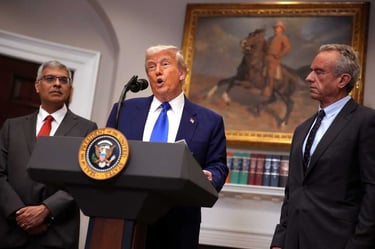

President Donald Trump announced initiative aimed at reducing prescription drug prices in the United States. This move revives his earlier efforts from his first term, focusing on a policy known as “Most Favored Nation” (MFN). The executive order promises to cut drug prices by as much as 80%. This follows years of rising costs that have burdened American patients compared to other nations.
Background
The United States spends approximately $400 billion annually on prescription drugs. Prices for medications are often three times higher than in other countries. This discrepancy has raised concerns about healthcare affordability and accessibility for American citizens.
Most Favored Nation Policy
The MFN policy aims to align Medicare drug prices with the lowest prices paid in other high-income countries. This includes nations like Canada and Germany. The goal is to ensure that American patients are not overcharged for medications available elsewhere at lower prices.
Legal Challenges and Legislative Changes
During Trump’s first term, the MFN policy faced legal challenges from the pharmaceutical industry. These challenges led to its suspension by the Biden administration. However, the Inflation Reduction Act of 2022 allowed Medicare to negotiate prices for a limited number of drugs, removing some legal barriers for the MFN policy.
Expected Impact
Trump’s executive order is projected to reduce drug prices , with estimates ranging from 30% to 80%. However, experts warn that such drastic cuts could limit patient access to certain medications. The pharmaceutical industry is likely to oppose these changes vigorously.
Historical Context of Drug Pricing Policies
Previous administrations have attempted to address rising drug costs. Trump’s MFN policy is a continuation of this trend. It reflects ongoing debates about balancing affordable healthcare with the interests of pharmaceutical companies.
Public Reaction and Industry Response
Public response to the announcement has been mixed. While many patients welcome the prospect of lower prices, the pharmaceutical industry expresses concern about potential impacts on drug availability and innovation. Analysts predict that any ambitious executive actions may face further legal challenges.
(NNI / Latest news / Latest news india / India latest news/UPSC Preparation)
US-China Trade War Truce
Latest News International: 14th May 2025, UPSC Preparation
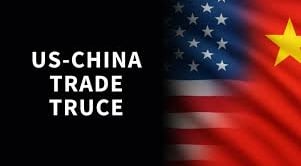

The recent truce between the United States and China marks shift in their ongoing trade war. Announced on May 12, 2025, this agreement aims to roll back several tariffs and countermeasures that have characterised the economic relationship between the two nations. The deal represents important step towards stabilising international trade and reducing economic tensions.
Tariff Adjustments
The United States will reduce its tariffs from 145% to 30%. China will decrease its tariffs from 125% to 10%. Tariffs imposed before April 2 remain intact. This includes additional tariffs on specific products such as electric vehicles and steel. The reduction signifies a compromise but does not eliminate tariffs entirely.
Non-Tariff Barriers
China has agreed to pause non-tariff barriers imposed against the U.S. since April 2. These barriers included adding rare earths to its controlled export list and blacklisting certain American firms. However, the specifics of how these measures will be rolled back remain unclear.
Impact on Rare Earths
The agreement does not clarify whether China’s rare earths restrictions will be lifted. This uncertainty poses challenges for U.S. companies reliant on these materials. The lack of specific mention of the U.S. in China’s announcement complicates the situation.
Long-term Trade Goals
The ultimate goal is to reform China’s economy from a mercantilist exporter to a balanced consumer economy. This shift could lead to a reduction in the U.S. trade deficit. However, achieving this will require changes in both U.S. and Chinese economic policies.
Challenges Ahead
Despite the positive developments, challenges remain. Tariffs are unlikely to return to pre-Trump levels. The need for deep economic reforms in China is a complex issue. Additionally, the U.S. must navigate its own fiscal policies and trade strategies carefully to avoid exacerbating trade deficits.
(NNI / Latest news / Latest news india / India latest news/UPSC Preparation)
The State of Global Nursing Workforce in 2025
Latest News International: 14th May 2025, UPSC Preparation
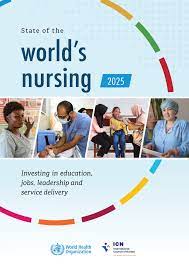

The 2025 edition of the “State of the World’s Nursing” report by WHO marks the critical role of nurses in achieving the Sustainable Development Goals (SDGs). As the largest occupational group in healthcare, nurses are essential for addressing health inequities. The report presents comprehensive data on nursing education, practice, and remuneration. It puts stress on the importance of investing in nursing to enhance health systems worldwide.
Nursing Workforce
The global nursing workforce increased from 27.9 million in 2018 to 29.8 million in 2023. Despite this growth, disparities exist in nurse availability across regions. Approximately 78% of nurses are concentrated in countries that only represent 49% of the global population.
Challenges in Low- and Middle-Income Countries
Low- and middle-income countries face challenges in employing and retaining nurses. These nations are increasing nurse graduates faster than high-income countries. However, population growth outpaces job creation, leading to underemployment. Countries need to enhance domestic investments to create nursing jobs and improve working conditions.
Foreign-Born Nurses
One in seven nurses globally is foreign-born, with 23% in high-income countries. This reliance on international migration raises concerns about the sustainability of nursing workforces. Upper middle-income countries have 8% foreign-born nurses, while lower middle-income and low-income countries have 1% and 3%, respectively.
Gender Dynamics in Nursing
Women comprise 85% of the global nursing workforce. Gender equity remains a pressing issue within the profession. The report marks the need for policies that support gender equality and empower female nurses.
Mental Health and Well-Being of Nurses
Mental health support for nurses is inadequate. Only 42% of countries provide mental health provisions for nursing staff. Increased workloads and trauma from the COVID-19 pandemic exacerbate these issues. Addressing mental health is crucial for retaining skilled professionals and ensuring quality care.
Policy Recommendations
The report outlines 12 policy priorities alongside five additional recommendations for strengthening nursing. It calls for action from policymakers, nursing associations, and other stakeholders to drive investments in nursing. This is vital for achieving universal health coverage and other health-related SDGs.
Reporting Improvements
The report is based on data from 194 countries, showing a 33% increase in reporting since 2020. This improvement in data collection enhances the understanding of global nursing challenges and opportunities.
(NNI / Latest news / Latest news india / India latest news/UPSC Preparation)
New Crocodile Species in Mexico
Latest News International: 13th May 2025, UPSC Preparation


Scientists from Canada, Mexico, and Panama have discovered two new crocodile species near the Yucatán coast. These were found on Cozumel island and Banco Chinchorro atoll. This brings the number of New World crocodile species from 4 to 6. Previously known species are American, Morelet’s, Cuban, and Orinoco crocodiles.
Background of the Discovery
A team of researchers studied crocodile populations on Cozumel Island and the Banco Chinchorro atoll. These isolated habitats were previously thought to house local populations of the widespread American crocodile (Crocodylus acutus). The new species are not just local variants of the American crocodile. They are genetically distinct from known species. Names for the new species are yet to be given, but may reflect their island origins.
Methodology of the Research
The team employed DNA sequencing and anatomical analysis to differentiate the crocodile species. They captured and safely released crocodiles to collect blood and scale samples. This fieldwork was crucial in understanding the genetic diversity of these reptiles.
Findings of Genetic Analysis
The analysis revealed genetic differentiation between the island populations and their mainland counterparts. Researchers concluded that the crocodiles from Cozumel and Banco Chinchorro represent distinct evolutionary lineages. This was a surprising outcome, as the American crocodile was previously considered a single species across its range.
Population Status and Vulnerability
Each of the newly identified species consists of fewer than 1,000 breeding individuals. Their small populations make them particularly vulnerable to environmental threats. Habitat loss and climate change pose risks to their survival. Their habitats are under threat due to shoreline development and tourism. Cozumel alone saw over 1.5 million cruise ship tourists in the first three months of 2025. These pressures threaten not just the crocodiles but also ecosystems like coral reefs.
Future Research Directions
Further studies are necessary to understand the full extent of crocodile biodiversity in tropical ecosystems. Researchers aim to explore the ecological roles of these newly discovered species. Continued monitoring of their populations will be vital for effective conservation.
(NNI / Latest news / Latest news india / India latest news/UPSC Preparation)
Ceasefire Agreements
Latest News International: 12th May 2025, UPSC Preparation
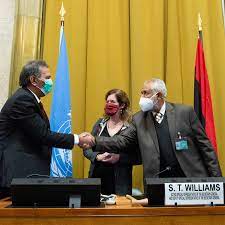

Recent developments in international relations highlight the importance of ceasefire agreements. On a recent Saturday, the Directors General of Military Operations from India and Pakistan agreed to a ceasefire, halting all military actions. This agreement reflects ongoing efforts to manage tensions and prevent escalation in conflict zones.
What Is a Ceasefire?
A ceasefire is an agreement between conflicting nations to halt military activities temporarily. It aims to create a truce but does not signify the end of hostilities. Ceasefires can be formal or informal and often arise from third-party intervention. They serve as important step towards peace but do not legally end the state of war.
Types of Ceasefire Agreements
Ceasefire agreements can vary in scope. They typically outline the timing of the ceasefire, prohibited acts, and the separation of armed forces. Prohibited acts may include military violence and non-military threats. Agreements often establish ceasefire lines or buffer zones to maintain peace.
Verification and Monitoring
Effective ceasefire agreements include provisions for verification and monitoring. These may involve UN peacekeeping forces or joint monitoring commissions. Such mechanisms help ensure compliance and prevent violations, which can lead to renewed hostilities.
Legal Implications of Breaching a Ceasefire
International law addresses ceasefires but does not impose strict legal consequences for breaches. Ceasefires are seen as preliminary steps towards peace. However, the Hague Regulations outline remedies for violations. Serious breaches allow affected parties to resume hostilities or seek punishment for offenders.
Historical Context of Ceasefires
The concept of ceasefires has evolved over time. Historically, terms like truce and armistice were distinct. The establishment of the United Nations in 1945 led to the flexible use of ‘ceasefire’ in international law. This shift has allowed for a more adaptable approach to conflict resolution.
Key Components of Ceasefire Agreements
Ceasefire agreements typically include several critical components. These include the timing of the ceasefire, definitions of prohibited acts, and provisions for the separation of forces. Additionally, they may address the repatriation of prisoners and the return of displaced persons.
(NNI / Latest news / Latest news india / India latest news/UPSC Preparation)
IMF Loan Approval to Pakistan
Latest News International: 12th May 2025, UPSC Preparation
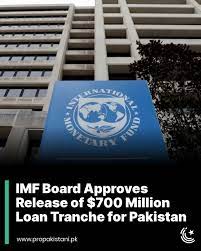

The International Monetary Fund (IMF) recently approved a $1 billion loan to Pakistan as part of its Extended Fund Facility (EFF). This decision follows Pakistan’s request for financial assistance amid economic challenges. The EFF aims to support countries facing balance of payments issues due to structural weaknesses.
About the Extended Fund Facility (EFF)
The EFF is a financial assistance programme for countries with serious medium-term economic problems. These problems often stem from structural weaknesses. Such weaknesses can include inadequate infrastructure, a poorly educated workforce, and excessive government borrowing. The EFF provides loans that require repayment, offering longer engagement and repayment periods to facilitate necessary reforms.
Pakistan’s Economic Context
Pakistan’s economy has struggled for decades. The country has faced stagnation in GDP growth, with a total GDP of $338 billion in 2023, lower than in 2017. Inflation rates have also surged, peaking at 29.1% in 2023. High population growth, low savings, and inadequate infrastructure investments have contributed to this economic decline. The country has repeatedly relied on loans from the IMF and other international entities.
Reasons for IMF Loan Approval
The IMF approved the latest loan tranche after reviewing Pakistan’s policy and administrative reforms. The government has made progress in stabilising the economy. Inflation dropped to a historic low of 0.3% in April 2025. Improvements in foreign exchange reserves and reduced overall borrowings have also been noted. Key fiscal reforms, such as the Agricultural Income Tax, have strengthened policy credibility.
Implications of the Loan
The IMF’s support is crucial for Pakistan’s economic recovery. However, it raises concerns about the potential misuse of funds. India has expressed dissent, denoting Pakistan’s history of using IMF loans for military purposes. The effectiveness of the EFF in addressing Pakistan’s structural issues remains to be seen.
Future Prospects for Pakistan
Pakistan faces challenges ahead. The need for structural reforms is paramount. Continued reliance on international loans may hinder long-term economic stability. The government’s ability to implement effective reforms will determine the success of the EFF and Pakistan’s economic future.
(NNI / Latest news / Latest news india / India latest news/UPSC Preparation)
IEA’s Global Methane Tracker 2025
Latest News International: 11th May 2025, UPSC Preparation


Methane is a potent greenhouse gas and is responsible for about 30% of the increase in global temperatures since the Industrial Revolution. Its atmospheric concentration has risen , now being 2.5 times higher than preindustrial levels.
Sources of Methane Emissions
The main sources of methane emissions include agriculture, energy, and waste. The energy sector alone accounts for over 35% of human-related methane emissions. Within this sector, oil operations contributed around 45 million tonnes, natural gas operations nearly 35 million tonnes, and abandoned wells around 3 million tonnes. Coal also plays a role, emitting over 40 million tonnes, with contributions from abandoned mines and end-use equipment.
The Role of Bioenergy
Bioenergy is another source, responsible for approximately 18 million tonnes of methane emissions. This primarily results from the incomplete combustion of traditional biomass used for cooking and heating in developing countries. Modern bioenergy technologies, such as biogas and biofuels, also contribute to methane emissions but offer lower emissions options if managed correctly.
Reducing Methane Emissions
The IEA suggests that up to 70% of methane emissions from the fossil fuel sector could be reduced using current technologies. For the oil and gas sectors, 75% of emissions could be mitigated through measures like upgrading equipment and sealing leaky wells. The report marks the importance of addressing emissions from abandoned facilities, which could rank among the largest sources of fossil fuel methane emissions globally.
Global Methane Pledge
The Global Methane Pledge (GMP) aims to collectively reduce methane emissions by at least 30% from 2020 levels by 2030. However, many countries have yet to commit to specific measures. Notably, high-emission countries such as China and India have not joined GMP. Only a small number of Nationally Determined Contributions (NDCs) include concrete measures for reducing energy-related methane emissions.
Financial Implications
The financial requirements for reducing methane emissions are substantial. The IEA estimates that $175 billion is needed for the oil and gas sector and $85 billion for the coal sector to achieve reductions. The responsibility for funding these measures largely falls on fossil fuel companies, which could cover these costs with a minimal impact on their net income.
Challenges in Implementation
Despite the potential for reductions, actual implementation of methane reduction strategies remains limited. Many countries underestimate their methane emissions, leading to discrepancies between reported figures and IEA estimates. The financing gap for methane abatement in low- and middle-income countries is considerable, denoting the need for international cooperation and investment.
(NNI / Latest news / Latest news india / India latest news/UPSC Preparation)
"US Diplomatic Efforts Intensify as Pakistan Launches Retaliatory Strikes on India"
Latest News International: 10th May 2025
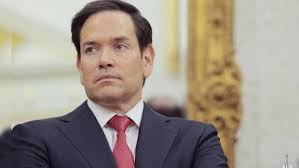

In a critical diplomatic move, U.S. Secretary of State Marco Rubio engaged in a phone conversation with Pakistan's Army Chief, General Asim Munir, on May 9, 2025, urging both nations to pursue de-escalation strategies to prevent further conflict. The appeal came amid escalating hostilities between India and Pakistan, following a series of missile strikes and military operations by both sides. Rubio expressed the U.S.'s willingness to assist in initiating constructive dialogue, emphasizing the importance of avoiding a broader regional crisis .
The situation has drawn international concern, with the United States, G7 nations, and other global actors calling for restraint and diplomatic engagement. Pakistan's recent military operation, "Bunyan-un-Marsoos," targeted multiple Indian sites, including missile storage facilities, in response to India's missile strikes on Pakistani air bases. The conflict has resulted in significant casualties and heightened fears of a potential nuclear escalation. Diplomatic efforts, including Secretary Rubio's outreach, aim to facilitate communication between the two nuclear-armed neighbors and prevent further deterioration of regional stability .
(NNI / Latest news / Latest news india / India latest news/UPSC Preparation)
"International Community Urges Restraint as Turkey Supports Pakistan"
Latest News International: 10th May 2025
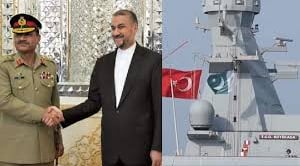

As tensions between India and Pakistan escalate, Turkey's involvement has garnered significant attention. President Recep Tayyip Erdogan's recent visit to Pakistan underscored the strengthening of bilateral ties, with 24 agreements signed, including defense collaborations. Erdogan's remarks advocating for a dialogue-based resolution to the Kashmir issue, in line with UN resolutions, have been met with strong disapproval from India, which maintains that Kashmir is an integral part of its territory .
Turkey's support extends beyond diplomatic statements. The nation has been a significant supplier of military equipment to Pakistan, including drones and naval assets. This deepening defense partnership has implications for regional security dynamics, particularly concerning India's strategic interests. While Turkey positions itself as a mediator, its actions suggest a more aligned stance with Pakistan, raising questions about its role in the broader South Asian geopolitical landscape.
(NNI / Latest news / Latest news india / India latest news/UPSC Preparation)
Saudi Arabia’s Nuclear Programme Plans
Latest News International: 10th May 2025, UPSC Preparation


Saudi Arabia is pursuing a civil nuclear programme as part of its Vision 2030 economic strategy. This initiative aims to reduce carbon emissions and optimise oil exports. Discussions with the United States are ongoing, focusing on cooperation in nuclear energy development. However, regional politics and proliferation concerns complicate these negotiations.
Motivations for Nuclear Development
Saudi Arabia seeks to diversify its energy sources. Currently, 68% of its electricity comes from gas and 32% from oil. The kingdom uses 1.4 million barrels of crude daily for power generation. Developing nuclear power could reduce this dependency. It would also support energy-intensive processes like water desalination. Additionally, if Iran develops nuclear weapons, Saudi Arabia feels compelled to follow suit, raising proliferation concerns.
Strategic Interests for the United States
The United States stands to gain strategically and commercially from a nuclear deal. Civil nuclear cooperation could enhance US-Saudi relations and facilitate diplomatic efforts regarding Israel. A deal would enable US companies to participate in building Saudi nuclear facilities.
Legal Framework and Non-Proliferation
Under the U.S. Atomic Energy Act of 1954, the US can negotiate civil nuclear agreements. These agreements must meet non-proliferation criteria to prevent the misuse of nuclear technology. Congressional review is required for such pacts, ensuring oversight and compliance with international standards.
Potential Partners Beyond the US
If talks with the US falter, Saudi Arabia has alternative options. Countries like China, Russia, South Korea, and France have expressed interest in collaborating on nuclear projects. Each partner’s selection will depend on technological capabilities, financing options, and geopolitical considerations.
Uranium Enrichment Challenges
A critical issue is whether the US will allow uranium enrichment facilities in Saudi Arabia. The potential for producing highly enriched uranium raises concerns about weaponisation. Safeguards in any agreement will be vital to prevent misuse. Additionally, Saudi investments in US enrichment plants may be necessary to secure technology and expertise.
Diplomatic Implications
Israel has voiced strong opposition to a Saudi nuclear programme, complicating US diplomatic efforts. The kingdom’s commitment to non-proliferation under the Nuclear Non-Proliferation Treaty remains important factor. Balancing regional security concerns with energy ambitions will be challenge for Saudi Arabia and its partners.
(NNI / Latest news / Latest news india / India latest news/UPSC Preparation)
Joseph Nye and the Concept of Soft Power
Latest News International: 10th May 2025, UPSC Preparation


Joseph Nye, an influential American political scientist, passed away on May 6, 2025, at the age of 88. He was renowned for introducing the term “soft power” in international relations. Nye’s work shaped the understanding of how nations exert influence without resorting to coercion.
About Soft Power
Soft power is defined as a nation’s ability to influence others through attraction rather than force or payment. Nye articulated this concept in his 2004 book, “Soft Power – The Means to Success in World Politics.” He argued that soft power includes cultural appeal, political values, and foreign policies that are seen as legitimate or moral. This contrasts with hard power, which relies on military and economic strength.
Historical Context and Development
Nye introduced soft power during a period of perceived American decline amidst rising global competitors. He believed that military and economic might was insufficient for global leadership. Instead, he suggested that countries could achieve their goals through persuasion and cultural influence. He also developed the idea of “complex interdependence,” denoting that global affairs are shaped by a web of relationships rather than mere power struggles.
Examples of Soft Power in Action
Nye provided examples of soft power in practice. Hollywood films, for instance, serve as cultural ambassadors, showcasing American values and lifestyles. Similarly, the global rise of South Korean pop culture illustrates how a country can enhance its image abroad through cultural exports. These phenomena demonstrate the effectiveness of soft power in shaping perceptions and encouraging positive relations.
Criticism and Challenges
Despite its significance, the concept of soft power has faced criticism. Some scholars argue that hard power remains the primary means of securing a nation’s position in international politics. Critics contend that military strength and economic resources overshadow the subtleties of attraction and persuasion. Nye acknowledged these critiques but maintained that soft power plays important role in a comprehensive understanding of global influence.
The Future of American Soft Power
In recent years, Nye expressed concerns about the diminishing effectiveness of American soft power. He noted that the political climate under President Donald Trump shifted focus towards coercion and transactional relationships. Nye argued that this approach undermined the liberal values that traditionally supported American influence. He brought into light specific instances, such as Trump’s foreign policy decisions, which he believed eroded the foundations of American soft power.
(NNI / Latest news / Latest news india / India latest news/UPSC Preparation)
Article 51 of the UN Charter
Latest News International: 09th May 2025, UPSC Preparation
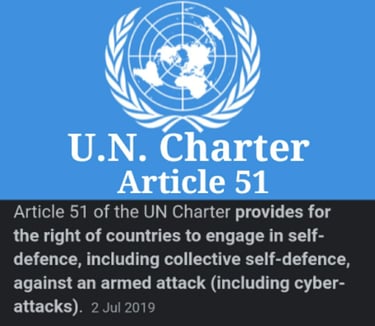

Article 51 of the United Nations Charter, adopted in 1945, addresses the right to self-defence for member states. This provision has implications for international relations and conflict resolution. It allows nations to defend themselves from armed attacks until the Security Council intervenes. Pakistan invoked it recently in response to Operation Sindoor.
UN Charter
The United Nations Charter serves as the foundational legal document of the United Nations.
It was signed on June 26, 1945, in San Francisco at the close of the United Nations Conference on International Organization, and officially came into effect on October 24, 1945.
The Charter itself is an international treaty, making it a legally binding document under international law for all UN Member States.
It outlines fundamental principles of international relations, such as the sovereign equality of states and the ban on the use of force in global affairs.
It has been amended three times—in 1963, 1965, and 1973.
Context of Article 51
The article was established to provide a legal framework for self-defence. It acknowledges that states have the inherent right to protect themselves against aggression. This right is crucial in maintaining national sovereignty while ensuring collective security.
Key Provisions of Article 51
Article 51 states that nothing in the Charter impairs the right of individual or collective self-defence if an armed attack occurs against a member state. Actions taken under this right must be reported to the Security Council immediately. This requirement ensures that states do not misuse their right to self-defence.
Application in State-to-State Conflict
Article 51 has been primarily invoked in situations of direct aggression between states. For example, if one country attacks another, the attacked state can respond militarily. However, this response must be proportional and necessary to the threat faced.
Controversies in Counterterrorism
The application of Article 51 becomes contentious in counterterrorism efforts. States often justify military actions against non-state actors, such as terrorist groups, under this provision. However, the legitimacy of such actions is debated. Critics argue that targeting non-state actors may not meet the threshold of an armed attack as defined in the Charter.
India and Pakistan
The ongoing conflict between India and Pakistan illustrates the complexities of Article 51. India has conducted military operations, such as Operation Sindoor, citing self-defence against terrorist threats. Pakistan, however, contends that these actions violate international norms under Article 51, as they do not constitute an armed attack.
Security Council’s Role
The Security Council plays important role in overseeing actions taken under Article 51. While states have the right to defend themselves, the Council retains authority to address threats to international peace. This balance aims to prevent unilateral actions that could escalate conflicts.
(NNI / Latest news / Latest news india / India latest news/UPSC Preparation)
Anak Krakatau Volcano
Latest News International: 09th May 2025, Indonesia,UPSC Preparation
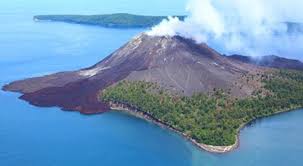

In December 2018, the Anak Krakatau volcano in Indonesia erupted catastrophically, leading to a deadly tsunami that claimed over 400 lives. Recent research marks that the volcano had been experiencing gradual slippage for years prior to the disaster. This phenomenon was detectable through satellite radar technology, suggesting that the disaster could have been predicted with proper monitoring.
2018 Eruption
The eruption of Anak Krakatau resulted in the southwest flank collapsing into the ocean. This triggered a tsunami that devastated coastal communities in Java and Sumatra. Thousands were injured and damage was inflicted on infrastructure. The event remains one of Indonesia’s most lethal natural disasters in recent history.
Silent Slippage and Its Detection
Research from Penn State reveals that the volcano’s flank had been slowly moving for over a decade. The team employed Interferometric Synthetic Aperture Radar (InSAR) to analyse satellite data. This technique allows for the detection of minor changes in the Earth’s surface. The findings indicated periods of acceleration in slippage, particularly in the months leading up to the eruption.
Implications
The study puts stress on the potential for predictive monitoring of volcanoes. By using remote sensing data, researchers could have identified the instability of Anak Krakatau. The lack of ground-based monitoring instruments contributed to the inability to predict the disaster. This marks a critical gap in volcano monitoring systems in high-risk areas.
Acceleration as a Warning Sign
The research identified that the volcano experienced approximately 15 meters of slippage from 2006 to 2018. Notably, there were periods of acceleration that could serve as red flags for impending collapse. The gradual movement was likened to a slow landslide, which can escalate into a catastrophic event.
Future Monitoring Strategies
The findings advocate for the integration of InSAR technology for near-real-time monitoring of oceanic volcanoes. This method could provide valuable vital information about volcanic behaviour, especially in areas lacking traditional monitoring systems. The study suggests that even without ground-based data, satellite radar could be instrumental in detecting changes in volcanic activity.
Challenges in Ground-Based Monitoring
Ground-based monitoring presents challenges, including safety concerns and high costs. Deploying instruments in active volcanic regions is often complicated by the need for permits and funding. The research indicates that InSAR could complement ground-based methods, offering a more comprehensive approach to volcano monitoring.
(NNI / Latest news / Latest news india / India latest news/UPSC Preparation)
US Congressman
Ro Khanna’s Firm Message to Pakistan After Operation Sindoor
Latest News International: 08th May 2025

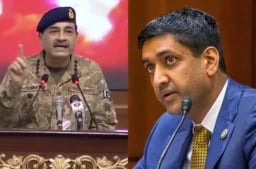
US Congressman Ro Khanna has issued a stern warning to Pakistan, urging the country to refrain from any retaliatory actions following India’s Operation Sindoor. The operation, aimed at tackling human trafficking and ensuring the safety of women, has been met with international recognition, but Khanna’s comments highlight the delicate geopolitical tensions between India and Pakistan. The Congressman, known for his diplomatic stance, emphasized the importance of de-escalation and cooperation in the region.
Khanna’s warning comes amid growing concerns over potential military or political escalations, especially following significant operations like Sindoor. He stressed that retaliation would only lead to further instability and harm, both to Pakistan and the broader South Asian region. Instead, Khanna advocated for a path of dialogue and peaceful resolution, underscoring that efforts to combat human trafficking and related issues should transcend political conflict. The Congressman’s call for calm was directed at fostering regional security and mutual respect among neighboring nations.
(NNI / Latest news / Latest news india / India latest news/UPSC Preparation)
Priti Patel Highlights India’s Operation Sindoor in UK Parliament
Latest News International: 08th May 2025
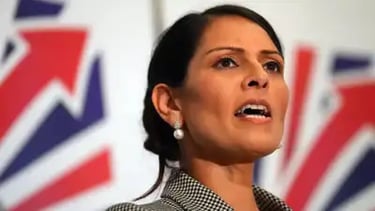

In a significant move, British Member of Parliament Priti Patel recently gave a public shoutout to India’s Operation Sindoor during a speech in the UK Parliament. The operation, which is part of India’s ongoing efforts to combat human trafficking and ensure the safety and dignity of women, has garnered international attention for its proactive approach. Patel, who has long been an advocate for women's rights and tackling human trafficking, expressed strong support for the operation’s objectives, highlighting the importance of global collaboration in fighting such crimes.
Patel’s recognition of Operation Sindoor comes at a time when human trafficking remains a critical issue across the world. In her address, she emphasized how the initiative exemplifies India’s commitment to protecting vulnerable women and children from exploitation. She further stressed the need for stronger international partnerships to combat trafficking, calling on the UK to deepen its cooperation with India and other nations involved in similar efforts. Patel’s remarks underscore the growing global acknowledgment of the need to protect human rights and support international law enforcement actions.
(NNI / Latest news / Latest news india / India latest news/UPSC Preparation)
Israel’s Plan for Gaza Strip
Latest News International: 08th May 2025, UPSC Preparation
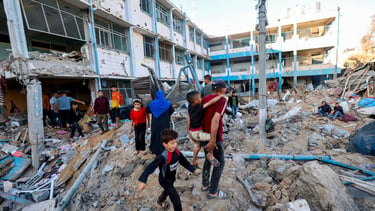

Israeli PM Netanyahu announced a plan to expand military operations in Gaza through the operation, named “Gideon’s Chariots”. It aims to defeat Hamas, rescue hostages, and retain captured areas. Netanyahu emphasized no temporary withdrawal — troops will hold captured territory permanently. According to the United Nations Office for the Coordination of Humanitarian Affairs (OCHA), Israel has limited Palestinian access to 70% of Gaza by designating large sections as no-go zones or enforcing evacuation orders.
Gaza Strip
The Gaza Strip is a small territory located in the eastern Mediterranean. It borders Egypt to the southwest and Israel to the north and east. The region is home to over two million people, making it one of the most densely populated areas in the world. The conditions in Gaza have often been described as an “open-air prison” due to the severe restrictions on movement and access to resources. Recently, Israel’s Security Council approved a plan to reoccupy Gaza, marking escalation in the ongoing conflict.
Historical Background
The Gaza Strip has a complex history, particularly since the establishment of Israel in 1948. The formation of Israel led to the displacement of approximately 750,000 Palestinians. This mass exodus set the stage for future conflicts. The Six-Day War in 1967 resulted in Israel capturing Gaza from Egypt, solidifying its control over the territory.
The Six-Day War of 1967
The conflict began on June 5, 1967, after tensions escalated due to Egypt’s closure of the Straits of Tiran. Israel launched a pre-emptive strike against Egyptian airfields. Within six days, Israel had seized Gaza, the Sinai Peninsula, the Golan Heights, and the West Bank. The war resulted in civilian displacement and established Israeli military governance in Gaza.
Occupation and Resistance
Following the 1967 war, Israel established settlements in Gaza, leading to increased Palestinian resentment. The first intifada, or uprising, began in 1987, reflecting widespread discontent. This period saw violent clashes resulting in thousands of deaths. Hamas emerged during this time, opposing the Israeli occupation and the peace process initiated by the Oslo Accords in 1993.
The Oslo Accords and Their Fallout
The Oslo Accords aimed to establish a framework for peace and Palestinian self-determination. However, the accords faced strong opposition from Hamas, which argued that they undermined the rights of Palestinian refugees. Continued Israeli settlement expansion in occupied territories further complicated the situation, leading to the breakdown of the peace process by 2000.
The Second Intifada and Withdrawal
The second intifada erupted in 2000, marked by violent confrontations between Palestinians and Israeli forces. This uprising resulted in heavy casualties on both sides. In 2005, Israel unilaterally withdrew from Gaza, citing the unsustainable costs of conflict. However, it retained control over Gaza’s borders, airspace, and coastal waters, maintaining influence over the territory.
Current Situation
The situation in Gaza remains dire. The recent approval for reoccupation by Israel signals a potential escalation in military action. The humanitarian crisis continues, with limited access to essential services and a high population density exacerbating the challenges faced by residents.
(NNI / Latest news / Latest news india / India latest news/UPSC Preparation)
IMO’s Net-Zero Framework
Latest News International: 07th May 2025, UPSC Preparation
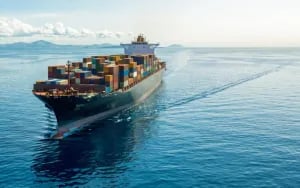

The International Maritime Organization (IMO) is set to implement its Net-Zero Framework in 2027, pending adoption in 2025. This framework aims to reduce greenhouse gas emissions from maritime shipping. It introduces a complex two-tier compliance system and differential pricing for remedial units. This approach requires collaboration between shipowners and charterers to navigate its implications effectively.
Compliance Structure
The IMO’s compliance structure features a two-tier system. This system allows for differential pricing on remedial units. Shipowners must meet specific greenhouse gas intensity (GFI) targets. Non-compliance will lead to penalties or the need to purchase credits. The direct compliance target mandates a 21% reduction in GFI by 2030, escalating to 43% by 2035.
Interaction with Existing Regulations
The Net-Zero Framework will supplement, not replace, existing regulations like the EU Emissions Trading System (ETS) and the FuelEU Maritime regulation. Current obligations under these frameworks remain intact. The potential for future alignment between EU rules and the IMO framework is under discussion to prevent regulatory conflicts.
Fuel Pathways and Transitional Technologies
The framework is inclusive of various alternative fuels. It acknowledges the role of transitional technologies like LNG. Currently, LNG dual-fuel vessels represent portion of the alternative fuel-capable fleet. Continued recognition of LNG as a transitional fuel is vital for maintaining its commercial viability.
Life-Cycle Assessment Guidelines
The IMO’s Life-Cycle Assessment (LCA) Guidelines are crucial for accurately estimating GHG emissions. Proposed changes include accounting for indirect land-use change (ILUC) from biofuels, accurately measuring methane emissions from LNG, and considering nitrous oxide emissions from ammonia. These amendments are necessary to ensure the framework does not inadvertently promote high-emitting fuels.
Black Carbon and Emission Factors
Black carbon is climate pollutant in shipping but is currently not included in the LCA Guidelines. The IMO is considering mandatory measures to address black carbon emissions. Including black carbon in the LCA Guidelines could impact the overall emissions profile of maritime shipping.
Future Challenges and Opportunities
The maritime industry faces considerable uncertainty regarding the operational and contractual implications of the Net-Zero Framework. Key challenges include adapting to evolving climate rules and understanding their interaction with existing regulations. However, this framework also presents opportunities for innovation in fuel technology and emissions reduction strategies.
(NNI / Latest news / Latest news india / India latest news/UPSC Preparation)
Druze Community
Latest News International: 07th May 2025, UPSC Preparation


The ongoing conflict in Syria continues to reveal deep-seated sectarian tensions. Recent clashes near Damascus have involved Islamist factions, security forces, and the Druze minority. This violence puts stress on the precarious security situation following the overthrow of Bashar al-Assad. The new authorities in Syria claim to seek stability, yet suspicions linger due to their jihadist connections.
Background of the Syrian Conflict
Syria has endured over a decade of civil war. The Assad regime initially regained control of major cities and highways. However, regions like Idlib and areas inhabited by the Druze remain outside government control. The civil war has left Syria fractured along sectarian lines, with various factions vying for power.
Recent Clashes and Their Causes
Violence erupted after an audio clip surfaced, allegedly featuring a Druze cleric criticising Prophet Mohammed. This incited anger among Sunni Islamists, leading to attacks on Druze community members. Armed Druze fighters responded, escalating the conflict in areas such as Jaramana and Sweida.
The Druze Community
The Druze are a unique religious minority with roots in Ismailism, an offshoot of Shia Islam. The name “Druze” comes from Muhammad bin Ismail Nashtakin ad-Darazi, an early preacher. They emerged in 11th century Egypt, recognising key Abrahamic prophets and believing in reincarnation. Their sacred texts include the Kitab al-Hikma (Book of Wisdom). The Druze community is tightly knit, with a strong emphasis on cultural identity and limited intermarriage. Conversion is not allowed into the Druze faith. This community is highly secretive and strongly bonded, with marriages outside the community being extremely rare.
Geographic Presence
Around 1 million Druze live mainly in Syria, Lebanon, Jordan, and Israel.
In Syria, Druze live in southern Damascus, Sweida province, and Golan Heights.
After Israel captured Golan in 1967 and annexed it in 1981, Druze stayed in their villages.
About 25,000 Druze live in Golan Heights; around 25% of them have Israeli citizenship.
In Israel overall, around 1.5 lakh Druze live.
Israel’s Role
During Syria’s civil war, Israel allegedly helped Druze in southern Syria.
Now, after Islamists took power, Israel claims to defend the Druze while also expanding control over Syrian land in Golan.
Critics argue that Israel is using the situation to justify further intervention and land occupation.
Israel’s current war on Gaza has caused over 50,000 Palestinian deaths, mostly women and children.
Future Prospects
The Druze face a challenging choice between aligning with domestic Islamists or relying on foreign powers. Their historical experiences of persecution shape their current outlook. As the situation evolves, the Druze community’s fate remains uncertain amidst ongoing violence and political instability.
(NNI / Latest news / Latest news india / India latest news/UPSC Preparation)
India gets U.S. support in fight against terror
Latest News International: 02nd May 2025, UPSC Preparation
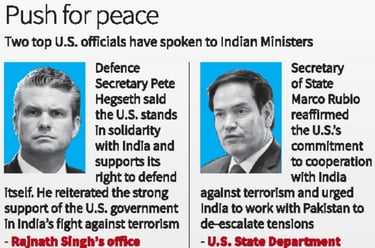

The U.S. stands “in solidarity” with India and supports its “right to defend itself”, Secretary of Defence Pete Hegseth said in a conversation with Defence Minister Rajnath Singh, while the latter said Pakistan had a “history” of supporting, training, and funding terrorist organisations, the first direct reference to Pakistan by a senior Minister in the aftermath of the Pahalgam terror attack.
The call between the Defence Ministers came after U.S. Secretary of State Marco Rubio spoke to both External Affairs Minister S. Jaishankar and Pakistan Prime Minister Shehbaz Sharif, calling on India and Pakistan to “work together” to de-escalate tensions.
Naval exercises
Meanwhile, the Indian Navy and the Pakistan Navy began simultaneous exercises in the Arabian Sea with both issuing ‘Nav Area’ warnings amid speculation of punitive strikes by the Indian military and a tense situation between the two countries. On the Line of Control (LoC), there was no let-up in ceasefire violations which have been going on for a week now.
“Secretary Hegseth said the U.S. stands in solidarity with India and supports India’s right to defend itself. He reiterated the strong support of the U.S. government in India’s fight against terrorism,” Mr. Singh’s office said in a post on X. “During the conversation, Mr. Singh said that Pakistan has a history of supporting, training, and funding terrorist organisations. He further said that it is important for the global community to explicitly and unequivocally condemn and call out such heinous acts of terrorism,” the post added.
“[I] Discussed the Pahalgam terrorist attack with U.S. Secretary of State Rubio,” Mr. Jaishankar wrote on his X account. “Its perpetrators, backers and planners must be brought to justice,” he added.
‘Peace and security’
The U.S. State Department readout on the call said Mr. Rubio “expressed his sorrow for the lives lost in the horrific terrorist attack in Pahalgam, and reaffirmed the United States’s commitment to cooperation with India against terrorism,” adding that he “encouraged India to work with Pakistan to de-escalate tensions and maintain peace and security in South Asia”.
Mr. Rubio’s note urging talks joined a number of other countries including the U.K., Saudi Arabia, Kuwait and others who have spoken at high levels in both Delhi and Islamabad, even as India prepares its next response to Pakistan over the Pahalgam attack. Meanwhile, in Islamabad, a statement from Mr. Sharif’s office said the Pakistani Prime Minister had asked the U.S. to ask India to “dial down the rhetoric and act responsibly”.
A day after the terror attack, U.S. President Donald Trump spoke to Prime Minister Narendra Modi during which he strongly condemned the terror attack and expressed “full support” to India to “bring to justice” the perpetrators of this heinous attack.
Since the terror attack, Pakistan issued area warning or NOTAMs (Notice to Airmen) for almost every day, while the Indian Navy too had carried out several missile firings. India had notified naval firing at four locations off Gujarat from April 30 to May 3, while Pakistan had notified naval drills from April 30 to May 2. On Thursday, Pakistan issued additional notifications for air/sea traffic for naval missile and gun firing in the upper reaches of the Arabian Sea, as per opensource intelligence handle Damien Symon on ‘X’.
(NNI / Latest news / Latest news india / India latest news/UPSC Preparation)
Modi greets Carney, signalling a reset in India-Canada relations
Latest News International: 30th April 2025, UPSC Preparation
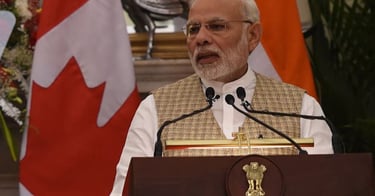

PM’s reference to the two countries sharing ‘democratic values’ with ‘commitment to rule of law’ paints a significant picture of political hope for positive bilateral ties, after two years of tensions following allegations in the Hardeep Nijjar killing case.
Prime Minister Narendra Modi on Tuesday congratulated Canadian Prime Minister Mark Carney on the re-election of the Liberal Party in Canada, highlighting the ties of New Delhi and Ottawa in upholding democratic values. The comments, a rare positive exchange between the two countries in over two years, indicate the possibility of a reset in ties as the Carney government takes shape.
Mr. Carney’s takeover from the former PM Justin Trudeau, who had tense relations with the Indian government, signals a warm development in bilateral ties. Last week, Mr. Carney, who was in the midst of campaigning, had posted a message on social media condemning the Pahalgam terrorist attack. Additionally, the poor electoral result of the New Democratic Party (NDP) and the resignation of its leader Jagmeet Singh, who had pro-Khalistan sympathies, also suggest an opportunity to restore ties.
“India and Canada are bound by shared democratic values, a steadfast commitment to the rule of law, and vibrant people-to-people ties,” Mr. Modi wrote in a post on X. “I look forward to working with you to strengthen our partnership and unlock greater opportunities for our people,” he said, addressing the new Canadian head of government.
Mr. Modi’s reference to the “rule of law” is significant, given Canada’s accusation that Indian government agents were involved in the June 2023 killing of Khalistani separatist Hardeep Singh Nijjar. This allegation triggered several tit-for-tat measures, including the expulsion of envoys from each other’s embassies.
In the first sign of a thaw, New Delhi has forwarded the paperwork for its next High Commissioner to Canada, Dinesh Patnaik, who is currently India’s Ambassador to Spain. Sources told The Hindu that both Canada and India are expected to begin work on returning other diplomats to their respective capitals, replacing those who had been expelled.
All eyes will be on whether Mr. Carney, a former Governor of the Bank of Canada and previously the Bank of England, will restart talks on the India-Canada Comprehensive Economic Partnership Agreement (CEPA) trade pact, which were suspended after the Nijjar investigation began. Another point of interest is whether he will invite India as a special guest to the G7 Summit he is set to host in Canadian city of Alberta later this year.
“Carney has the opportunity to fix what Trudeau broke. India has already signalled it is willing to engage constructively with the new government. The two countries can move ahead pragmatically, rebuild trust, bolster economic ties, engage on security issues and reboot the stalled trade agreement,” said former High Commissioner to Canada Ajay Bisaria, calling this an “inflection point” in the India-Canada relationship.
In Canada, analysts are urging the new Carney government to prioritise re-engaging with India. According to former diplomat David McKinnon, however “serious” the Nijjar case may be, it should not “dictate the entirety” of Canadian foreign policy.
“We must stay focused on the bigger picture: an unstable, rapidly evolving global order where economic and security partnerships are more essential than ever. Letting investigations and court proceedings unfold without unnecessary political interference is key to restoring dialogue and finding a potential way out — just as it was in a related case in the United States,” Mr. McKinnon wrote in an analysis for the Asia-Pacific Foundation of Canada think–tank.
Mr. Carney’s unexpected leadership role and the Liberals’ unprecedented win are attributed partly to a Canadian backlash against the U.S.’s coercive economic measures under the Trump administration. On the campaign trail, he had said he would seek to diversify ties with “like-minded countries”.
“There are opportunities to rebuild the relationship with India. There needs to be a shared sense of values around that commercial relationship, and if I am Prime Minister, I look forward to the opportunity to build that,” he said at a campaign event.
(NNI / Latest news / Latest news india / India latest news/UPSC Preparation)
Long-term and diplomatic visas of Pakistani nationals will remain valid: officials
Latest News International: 29th April 2025, UPSC Preparation
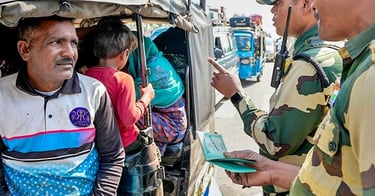

Long-term visas (LTVs) and official or diplomatic visas will remain valid even after the April 29 deadline when Indian visas issued to Pakistani citizens will be revoked.
Officials here clarified that of the 16 categories of visas issued by India to Pakistan nationals, two would remain valid after Tuesday and the validity of the LTVs would not be affected by the religious identity of the visa holders.
On April 23, Foreign Secretary Vikram Misri announced that all visas issued to Pakistan nationals under the SAARC Visa Exemption Scheme (SVES) would be revoked on April 26. Briefing presspersons on April 23, Mr. Misri urged all Pakistani nationals with “valid endorsements” to exit India through the Integrated Check Post at Attari by May 1.
The rest of the visas such as “visa on arrival”; those issued to business persons, visitors, film industry workers, and journalists; and visas issued for transit, conference, mountaineering, and tourist groups were revoked on April 27. Apart from these, pilgrim visas and group pilgrim visas to religious minorities of Pakistan were revoked.
The official notification said the deadline for visa for officials and diplomats from Pakistan would be determined by the External Affairs Ministry.
An official note circulated by the Ministry on April 24 said the LTVs would remain valid after April 29 only in cases of Pakistani Hindu visitors.
Referring to that decision, the official note had declared: “The revocation of visas does not apply to the Long Term Visas (LTVs) already issued to Hindu Pakistani nationals, which remain valid.”
But an official source said on Monday that “all” LTVs issued to Pakistani citizens will remain valid after April 29.
(NNI / Latest news / Latest news india / India latest news/UPSC Preparation)
India ‘in touch’ with students facing visa issues in the U.S.
Latest News International: 18th April 2025, UPSC Preparation
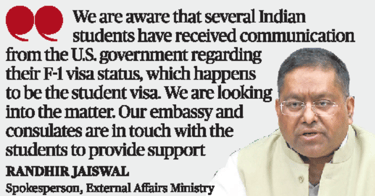

MEA shifts stance from earlier advice to merely follow U.S. rules, and now offers support; it also suggests legal steps for injunctions against deportation; U.S. student visas to Indians see 30% dip.
The Indian government’s missions in the United States are in contact with Indian students there who have received emails revoking their visa status, and have offered them “support”, the External Affairs Ministry said on Thursday.
The comments mark a shift from a previous statement that merely advised students to “follow the law”. To Indians vulnerable to the Trump administration’s crackdown, who face action by the Departments of State and Homeland Security, the Ministry’s statement indicates it is taking their plight more seriously than in the past.
While some have been sent notices after being identified as participants in student protests, especially in favour of the Palestinian cause, a number of Indians have received notices as their names appear in government databases for minor infractions, including traffic violations.
“We are aware that several Indian students have received communication from the U.S. government regarding their F-1 visa status, which happens to be the student visa. We are looking into the matter. Our embassy and consulates are in touch with the students to provide support,” Ministry spokesperson Randhir Jaiswal said at a weekly press briefing.
In a similar briefing on March 21, the spokesperson had said that visa and immigration policies lay within the “sovereign functions of a country”, adding that when “Indian nationals are abroad, they must comply with local laws and regulations”.
Mr. Jaiswal’s latest statement came in response to The Hindu’s query about the specific case of Indian student Chinmay Deore. Assisted by the American Civil Liberties Union (ACLU), Mr. Deore and three other foreign students enrolled at universities in Michigan filed a joint petition calling for their visa status to be restored in the U.S.’s SEVIS database, which stands for the Student and Exchange Visitor Information System.
Mr. Deore, who is in his final year of a bachelor’s degree programme at Wayne State University, had received an email from the university’s international students office informing him of his SEVIS status being terminated, as he had been “identified in a criminal records check and/or has had their VISA revoked”. However, the petition maintained that none of the four student petitioners, including Nepali citizen Yogesh Joshi and two Chinese students, had been charged with, let alone convicted of, any crime in the U.S.
Ministry officials did not confirm whether they were directly assisting Mr. Deore, but did say that they were advising students similarly affected to pursue a “legal route” to obtain an injunction on the deportation proceedings against them so they can complete their studies.
This week, a court in Wisconsin ordered a stay on the deportation of another Indian student, Isser Dasani, who was due to graduate next month in a computer engineering programme at the University of Madison-Wisconsin.
Drop in F-1 visas
Such actions against foreign students is one more worry for those applying for education in the U.S.
In addition to long visa wait times, the number of student visas issued in February, the first month after U.S. President Donald Trump took over, has dropped nearly 30% from last year.
According to U.S. State Department’s visa statistics analysed by The Hindu, the number of F-1 (student) visas issued at the U.S. Embassy in Delhi and the U.S. consulates in Mumbai, Chennai, Hyderabad, and Kolkata have dropped from 514 in February 2024 to 360 in February 2025.
(NNI / Latest news / Latest news india / India latest news/UPSC Preparation)
UN Secretary General Pays Tribute to Brigadier General Amitabh Jha
Latest News International: 28th December 2024, UPSC Preparation
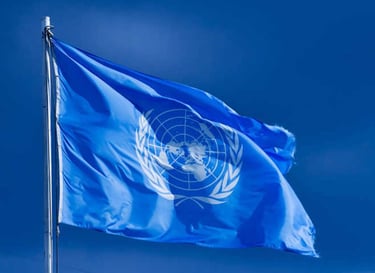

UN Secretary-General Antonio Guterres recently honored Brigadier General Amitabh Jha of India, who served with the United Nations Disengagement Observer Force (UNDOF) in the Golan Heights. Guterres praised Jha’s leadership and commitment to UN peacekeeping missions.
Brigadier Jha’s Role in UN Peacekeeping
Brigadier Jha was the Deputy Force Commander of UNDOF from April 2023. He acted as Force Commander during critical periods following the Assad Government’s fall in Syria. His leadership was vital in maintaining peace and stability in a turbulent region.
Previous Service and Contributions
Before UNDOF, Jha was a Military Observer with the United Nations Stabilisation Mission in the Democratic Republic of the Congo (MONUSCO) from 2005 to 2006. This experience enhanced his skills in conflict resolution and international diplomacy.
Indian Army’s Tribute
The Indian Army expressed deep sorrow over Brigadier Jha’s untimely passing due to medical reasons. They acknowledged his service and contributions to peacekeeping efforts, reflecting the loss felt within the military community.
rigadier Jha joined the UNDOF mission on April 14, 2023, as an Infantry Officer. Prior to this, he commanded a brigade in India’s mountainous glacier regions. He led a specialised unit and demonstrated a keen interest in military diplomacy, geopolitics, and unconventional warfare.
Personal Life and Hobbies
Aside from his military career, Jha was passionate about sports and enjoyed hiking in the mountains. His love for the outdoors complemented his professional pursuits, showcasing a well-rounded personality dedicated to both service and personal interests.
(NNI / Latest news / Latest news india / India latest news/UPSC Preparation)
Australia’s Online Safety Amendment (Social Media Minimum Age) Bill, 2024
Latest News International: 28th December 2024, UPSC Preparation


Australia’s House of Representatives has recently passed the “Online Safety Amendment (Social Media Minimum Age) Bill, 2024”, which aims to protect children under 16 from accessing social media platforms. If approved by the Senate and granted Royal Assent, it will establish a legal framework for online safety.
Current Situation
There is currently no minimum legal age for social media use in Australia. Most platforms, however, restrict accounts for children under 13, following U.S. guidelines. The new bill seeks to address the risks associated with social media for younger users.
Key Provisions of the Bill
The bill mandates social media platforms to implement measures to prevent children under 16 from creating accounts. Platforms such as TikTok, Facebook, and Instagram will be affected. The term “reasonable steps” is not explicitly defined in the legislation, leaving room for interpretation.
Compliance and Penalties
Failure to comply with the new regulations could lead to fines, potentially reaching $49.5 million. The eSafety Commissioner will oversee the implementation of guidelines to ensure compliance and promote online safety.
Age Verification and Privacy Concerns
Age verification technologies are a central aspect of the bill. These technologies may collect personal data, raising privacy issues. To mitigate risks, the law mandates the destruction of personal data once it is no longer necessary.
The new rules will not take effect until at least 12 months post-enforcement. During this period, the government plans to consult stakeholders and evaluate suitable age verification technologies.
Criticism and Comparison with Other Countries
The bill has faced criticism for being rushed and potentially ineffective. Critics argue that banning children from social media may not be the optimal solution. Comparatively, Australia is among the first nations to propose such legislation, while the U.S. has struggled with similar attempts.
In India, there are no legal restrictions on children’s social media access. Platforms are required to adhere to rules against online crimes but are shielded from liability for third-party content under Section 79 of the IT Act. The Government of India has not announced plans for similar age restrictions.
(NNI / Latest news / Latest news india / India latest news/UPSC Preparation)
India Launches First UG Minor in Quantum Technologies
Latest News International: 27th December 2024, UPSC Preparation


The All India Council for Technical Education (AICTE) and the National Quantum Mission (NQM) have initiated India’s first Undergraduate Minor Program in Quantum Technologies. This program aims to equip students with skills in quantum technology and enhance India’s position in the global quantum landscape.
Programme Overview
The Undergraduate Minor Program focuses on four key areas – Quantum Computation and Simulation, Quantum Communication and Cryptography, Quantum Sensing, and Quantum Materials and Devices. It is designed to create a skilled workforce capable of meeting the demands of the evolving quantum industry.
Curriculum Structure
Students can commence the program in their third semester. They will have the opportunity to select 18 credits from over 30 available courses. This structure allows for flexibility and customization according to the resources of their respective institutions.
Hands-on Learning Approach
The programme emphasizes practical experience through project-based learning. This approach ensures that students gain hands-on experience in quantum technologies, preparing them for real-world applications.
AICTE, in collaboration with leading institutions like the IITs, will implement Faculty Development Programs (FDPs). These initiatives aim to enhance the quality of education by training teachers in quantum technology.
Infrastructure and Resources
To support the programme, advanced quantum laboratories will be established. These labs will provide students with practical experience and facilitate research in quantum technologies.
The AICTE and NQM aim to address challenges such as teacher training and infrastructure development. Their objective is to ensure the smooth implementation of the programme in the next academic session, thereby encouraging a robust talent pool in quantum technologies across India.
(NNI / Latest news / Latest news india / India latest news/UPSC Preparation)
Rwanda Declares End to Marburg Virus Outbreak
Latest News International: 27th December 2024, UPSC Preparation


Rwanda has officially declared the end of its first Marburg Virus Disease (MVD) outbreak as of December 20, 2024, followed a 42-day monitoring period with no new cases reported. The outbreak, which began on September 27, 2024, resulted in 66 confirmed cases and 15 fatalities, primarily affecting health workers.
About Marburg Virus Disease
Marburg Virus Disease is a severe and often fatal illness. It is caused by the Marburg virus, which is transmitted from fruit bats to humans. The disease is characterized by a high fatality rate, averaging around 50%. Transmission occurs through direct contact with infected bodily fluids, contaminated surfaces, or materials.
Key Outbreak Statistics
During the recent outbreak in Rwanda, the fatality rate was notably lower at approximately 23%. The outbreak saw a rapid increase in cases, particularly among healthcare professionals, due to their exposure while treating infected colleagues.
Rwandan health authorities implemented several measures to control the outbreak. These included rigorous case tracking, testing, contact tracing, and public education. The health authorities collaborated closely with the World Health Organization (WHO) and other partners, which facilitated a rapid reduction in case numbers.
International Support and Collaboration
The WHO provided support, deploying experts in Marburg and Ebola viruses. They mobilised 39 health professionals from various countries, marking the largest response team ever sent for such an outbreak. This collaboration was crucial in managing the crisis effectively.
Currently, there are no approved vaccines or treatments for MVD. However, several candidates are in development, including a single-dose vaccine from the Sabin Vaccine Institute, which is undergoing Phase 2 trials. WHO continues to assist Rwanda in supporting survivors through long-term care initiatives.
(NNI / Latest news / Latest news india / India latest news/UPSC Preparation)
Bald Eagle Officially Recognised as America’s National Bird
Latest News International: 27th December 2024, UPSC Preparation


The bald eagle, a powerful symbol of the United States, has received formal recognition as the national bird, conferred by President Joe Biden through legislation passed by Congress. The bald eagle is distinguished by its striking white head, yellow beak, and brown body, embodying the spirit of American strength.
Historical Significance
The bald eagle has been associated with the United States since 1782. It was chosen for its majestic appearance and represents freedom and bravery. The eagle has appeared on the Great Seal of the United States since its design was finalized.
The Great Seal of the United States
The Great Seal features the bald eagle prominently. It holds an olive branch and arrows, symbolizing peace and military readiness, respectively. The shield on its chest resembles the American flag, representing unity and patriotism. The motto “E Pluribus Unum,” meaning “Out of many, one,” further signifies the unity of the states.
Recently, the bald eagle was officially designated as the national bird through new legislation. This act rectifies a historical oversight regarding the eagle’s status. The recognition puts stress on the importance of the bald eagle in American culture and identity.
Characteristics of the Bald Eagle
The bald eagle is known for its impressive wingspan, which can reach up to 2.3 metres. Its keen eyesight allows it to spot prey from great distances. The bird primarily feeds on fish but is also known to scavenge.
Once endangered, the bald eagle has made a remarkable recovery due to conservation efforts. Habitat protection and banning harmful pesticides have contributed to its resurgence. The species is now listed as least concern by conservation organisations.
(NNI / Latest news / Latest news india / India latest news/UPSC Preparation)
China’s J-20 Stealth Fighter Jet
Latest News International: 27th December 2024
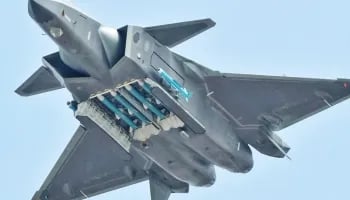

Recent social media activity has showcased new Chinese combat aircraft, reflecting advancements in aerospace technology, coincide with notable anniversaries, including the J-20 stealth fighter’s rollout and Mao Zedong’s birthday.
New Aircraft Specifications
One of the newly revealed aircraft features a large, three-engine design. It has a unique cockpit and diamond-shaped wings without vertical tails. The aircraft employs split rudders for yaw control, reminiscent of the Northrop Grumman B-2. Its engines include a top inlet for enhanced stealth and two bottom inlets shaped like caret symbols, which are less stealthy. The aircraft’s size suggests the presence of an internal weapons bay.
Test Flight Observations
The aircraft was captured during a test flight over a populated area in China. It was accompanied by a Chengdu-made J-20S fighter, indicating a potential chase mission. Experts speculate that this aircraft may be the anticipated J/H-XX “regional bomber,” intended for high-altitude precision strikes, or part of China’s sixth-generation fighter initiative.
Additional Aircraft Designs
Further social media posts revealed a second warplane with a more conventional fighter design. This aircraft features cranked arrow wings and possibly folding tailfins. The images were timestamped December 22, 2024, though the exact timing of the photos remains uncertain.
The unveiling of these new warplanes coincides with dates in Chinese aviation history. The announcements occurred on the 13th anniversary of the J-20’s rollout and Mao Zedong’s 131st birthday. While the Chinese government has not officially acknowledged these aircraft, the lack of effort to remove the images from social media suggests a level of acceptance.
China continues to advance its military aviation capabilities. The country is developing the H-20 long-range stealth bomber and the JH-XX fighter-bomber. Reports confirm that a sixth-generation fighter is also in the works, indicating a robust commitment to modernising its air force.
(NNI / Latest news / Latest news india / India latest news/UPSC Preparation)
UAE Emerges as Africa’s Top Investor
Latest News International: 27th December 2024
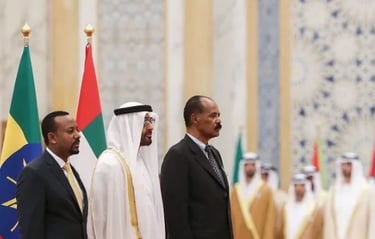

The UAE has solidified its position as Africa’s largest investor in new business projects, committing $110 billion (£88 billion) to various initiatives from 2019 to 2023, with $72 billion specifically allocated to renewable energy. This investment trend has outpaced traditional investors like the UK, France, and China, who are reducing their involvement in the continent.
Investment Focus Areas
The UAE’s investments primarily target green energy and infrastructure. African leaders have expressed appreciation for this financial interest, recognizing the urgent need for investment in energy transitions. The UAE’s strategy aligns with its goal of diversifying away from oil and gas reliance.
Key Players and Projects
Notable entities include Dubai’s DP World, which operates six African ports, and Abu Dhabi Ports, which has expanded into Guinea, Egypt, and Angola. A deal in Zambia saw a company linked to Sheikh Tahnoon bin Zayed acquire a 51% stake in Mopani Copper Mines for $1.1 billion.
Challenges Faced by Investments
Despite the ambitious plans, several projects encounter obstacles. A $34 billion green hydrogen initiative in Mauritania is still in the planning phase. Additionally, financial issues at Zambia’s state-owned ZESCO have stalled solar energy projects. Concerns about smuggling have also arisen, with reports indicating that $115.3 billion in unaccounted gold was exported from Africa to Dubai between 2012 and 2022.
As African nations increasingly depend on UAE financing, critics have raised alarms about potential risks. There are fears that heightened attention could encourage criminal activities, particularly in gold trading.
UAE’s Economic Positioning
Recently, the UAE’s Ministry of Economy reported that it is the top investor from the Gulf Cooperation Council (GCC) and the fourth-largest global investor in Africa. Over the past decade, the UAE has invested $60 billion in the continent and hosts over 21,000 African companies across vital sectors. Furthermore, the UAE serves as a major export market for African goods.
(NNI / Latest news / Latest news india / India latest news/UPSC Preparation)
Pakistan’s Nuclear Deception: Lessons for American Intelligence
Latest News International: 26th December 2024
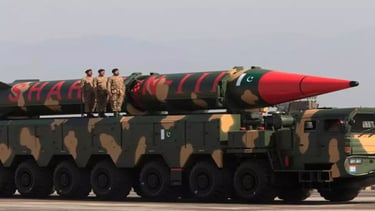

A recent revelation about Pakistan’s nuclear strategy has sent shockwaves through Washington, exposing how Islamabad kept the United States in the dark about critical developments in its nuclear weapons program for decades. The report, based on declassified documents and insider accounts, highlights the strategic ambiguity Pakistan employed to outmaneuver American intelligence and secure its position as a nuclear power.
A History of Strategic Deception
Pakistan’s pursuit of nuclear weapons began in earnest after its defeat in the 1971 war with India, which led to the creation of Bangladesh. Determined to match India’s nuclear capabilities, Pakistan’s leadership, under Prime Minister Zulfikar Ali Bhutto, embarked on a covert mission to develop nuclear weapons. Despite repeated American attempts to monitor and prevent this progress, Pakistan employed a mix of deception, diplomacy, and clandestine operations to keep its nuclear ambitions under wraps.
According to analysts, Pakistan relied on an elaborate network of international suppliers, including European companies and black-market operators, to acquire critical technology and materials. Figures like Abdul Qadeer Khan, often referred to as the "father of Pakistan’s nuclear bomb," played a pivotal role in bypassing export controls and sanctions.
The ‘Smoking Gun’ Moments
Washington’s intelligence agencies were not completely unaware of Pakistan’s activities. Key moments in the 1980s and 1990s, such as the discovery of uranium enrichment facilities and intercepted communications, raised red flags. However, successive US administrations, particularly during the Cold War, often turned a blind eye due to Pakistan’s strategic importance in countering Soviet influence in Afghanistan.
Former CIA officials have admitted that despite mounting evidence, political considerations often took precedence. “We knew they were up to something, but Pakistan’s cooperation against the Soviets made it a delicate balancing act,” said a retired intelligence officer.
A Wake-Up Call for Washington
The current report sheds light on how Pakistan’s nuclear doctrine evolved in secrecy, with Islamabad frequently shifting its narrative to suit its strategic interests. For example, while publicly advocating for a nuclear-free South Asia, Pakistan was simultaneously expanding its arsenal and perfecting delivery mechanisms, including short-range ballistic missiles.
Washington’s frustration grew in the late 1990s when Pakistan conducted its first nuclear tests in response to India’s nuclear explosions. The tests not only confirmed Islamabad’s nuclear capabilities but also underscored the failure of US non-proliferation efforts in the region.
Geopolitical Implications
Pakistan’s nuclear program continues to pose challenges for global security. The country now possesses one of the fastest-growing nuclear arsenals in the world, raising fears of an arms race in South Asia. Moreover, concerns about the security of Pakistan’s nuclear assets persist, particularly given the presence of extremist groups in the region.
For the US, the revelations serve as a stark reminder of the limitations of intelligence and diplomacy in preventing nuclear proliferation. They also highlight the need for a more nuanced approach to addressing the strategic calculus of nations like Pakistan, which view nuclear weapons as essential to their survival.
What Lies Ahead?
Experts argue that Washington must reassess its policy towards Pakistan, balancing its non-proliferation goals with the need to maintain regional stability. Strengthening oversight mechanisms, enhancing intelligence-sharing with allies, and engaging Pakistan in meaningful dialogue on nuclear safety are among the recommendations being put forth.
Meanwhile, Islamabad has dismissed the concerns as "biased narratives" aimed at undermining its sovereignty. A Pakistani government spokesperson stated, “Our nuclear program is purely for defensive purposes and is fully secured against any threats.”
Global Reactions
The revelations have prompted mixed reactions worldwide. India has reiterated its call for greater international scrutiny of Pakistan’s nuclear activities, while China, a close ally of Pakistan, has remained largely silent. Analysts fear that any escalation in US-Pakistan tensions could further complicate an already volatile regional dynamic.
Conclusion
As Washington grapples with the implications of these revelations, the broader question remains: How can the global community effectively address the challenges posed by nuclear proliferation while respecting the sovereignty and security concerns of individual nations? The answers may define the contours of US foreign policy in South Asia for years to come.
(NNI / Latest news / Latest news india / India latest news/UPSC Preparation)
China’s Ambitious Dam Raises Environmental and Geopolitical Questions
Latest News International: 26th December 2024
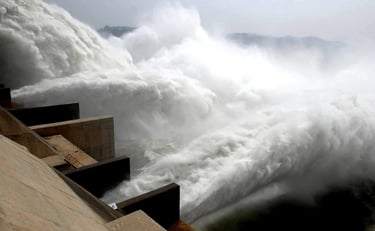

China’s ambitious plan to construct the world’s largest hydroelectric dam on the Yarlung Tsangpo River in Tibet has raised serious geopolitical and environmental concerns in India. The dam, set to outsize even the massive Three Gorges Dam, is part of China’s 14th Five-Year Plan and aims to generate 60 gigawatts of electricity—nearly three times the capacity of the Three Gorges project.
While China touts the dam as a significant step toward achieving its renewable energy targets, the project’s strategic location near the Indian border has led to growing apprehensions about its downstream impact on India’s northeastern states.
The Yarlung Tsangpo and Its Importance
The Yarlung Tsangpo River originates in Tibet and flows into India as the Brahmaputra River, nourishing vast agricultural and ecological systems in the northeastern states and Bangladesh. The river is a lifeline for millions of people, and any significant alteration in its flow could have far-reaching consequences.
China’s proposed mega-dam is to be built in the Medog region, close to the Indian border in Arunachal Pradesh. Medog is strategically important for China, as it provides a vantage point for hydrological control over the Brahmaputra.
India’s Concerns
India’s primary concerns revolve around the following issues:
Water Security: The dam could enable China to control the flow of water into the Brahmaputra, potentially impacting agriculture, drinking water supply, and livelihoods in India’s northeastern states. In extreme scenarios, China could withhold or release excessive water, leading to droughts or floods.
Geopolitical Leverage: The project adds to China’s leverage in bilateral relations with India, as control over transboundary rivers can be a powerful strategic tool.
Environmental Impact: Experts warn that such a massive dam in a seismically active region like the Himalayas could have catastrophic consequences. Landslides, earthquakes, and flooding risks could escalate, endangering lives on both sides of the border.
Downstream Ecology: Altering the river’s natural flow could severely affect biodiversity and aquatic ecosystems downstream, disrupting fish migration and harming flora and fauna dependent on the river.
China’s Position
China has downplayed India’s concerns, stating that the project is intended solely for clean energy generation. However, Beijing’s lack of transparency regarding its plans has fueled suspicions. Historically, China has resisted entering into any binding water-sharing agreements with India, relying instead on informal data-sharing arrangements.
India’s Response
India is exploring multiple strategies to address the potential impact of the dam:
Diplomatic Engagement: India is pushing for a more comprehensive water-sharing agreement with China to ensure equitable utilization of transboundary rivers.
Strengthening Water Infrastructure: India has initiated several projects to improve water storage and management in its northeastern states to mitigate potential disruptions.
International Collaboration: India is engaging with downstream countries like Bangladesh to present a united front in demanding transparency from China. Joint efforts could increase pressure on Beijing to adhere to international norms for transboundary river management.
Monitoring Mechanisms: Indian agencies are enhancing satellite and ground-based monitoring of water flows and dam construction activities in Tibet to better anticipate and respond to changes.
Expert Opinions
Environmentalists and strategic experts have called for urgent action. “India needs to prioritize river diplomacy with China. The Brahmaputra’s significance cannot be overstated, and any disruption in its flow would be disastrous,” said Brahma Chellaney, a renowned strategic thinker.
Others emphasize the need for long-term regional cooperation. “South Asia’s rivers don’t recognize national borders. Collaborative frameworks are essential to ensure sustainable water management,” said Dr. Shilpi Srivastava, an environmental researcher.
The Road Ahead
As China moves forward with its plans, India must navigate a complex web of diplomatic, environmental, and strategic challenges. The construction of the world’s largest dam in Tibet is not just a bilateral issue but a regional one that could reshape the dynamics of water politics in South Asia.
For now, India’s focus remains on preparedness, transparency, and international cooperation to safeguard its water security and ecological balance.
(NNI / Latest news / Latest news india / India latest news/UPSC Preparation)
Who is Aisake Valu Eke,Tonga’s New Prime Minister?
Latest News International: 26th December 2024
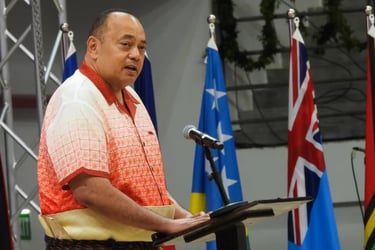

Aisake Valu Eke has recently been appointed as the Prime Minister of Tonga, replacing Hu’akavameiliku Siaosi Sovaleni, who resigned on December 9. Eke will officially assume office in February 2024 and has a notable political background, having first entered parliament in 2010.
Political Career
Eke was elected to parliament in 2010 as an independent candidate for Tongatapu 5. He won with 24.1% of the vote, marking achievement as it was the only seat on Tonga’s main island not secured by the Democratic Party. He served as Minister of Finance from 2014 to 2017, demonstrating his expertise in economic matters.
Education and Early Career
Eke earned a PhD from the University of Southern Queensland in 2013. His research focused on the quality of public sector services in Tonga. Before his parliamentary career, he held the position of Secretary at the Ministry of Finance, gaining valuable experience in governance.
In 2011, Eke protested against a parliamentary decision to grant large allowances to MPs on sick leave abroad. He argued that the government should conserve public funds during economic difficulties. His stance brought into light his commitment to fiscal responsibility.
Ministerial Tenure
Eke was appointed Minister of Finance in January 2014 after a budget disagreement led to the dismissal of his predecessor. He retained this role under Prime Minister ’Akilisi Pohiva. However, he faced challenges during his tenure, including abstaining from a vote of no confidence against his own government in March 2017, which ultimately led to his resignation.
Eke’s term as Prime Minister will be brief, lasting less than a year. Tonga is scheduled to hold its next election in November 2025. The Parliament consists of 17 members elected by the public and 9 elected by hereditary chiefs, with two members unable to vote in the recent proceedings.
(NNI / Latest news / Latest news india / India latest news/UPSC Preparation)
Maia Sandu Begins Second Term as President of Moldova
Latest News International: 26th December 2024
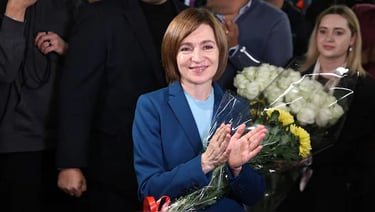

Maia Sandu has commenced her second term as President of the Republic of Moldova. She was re-elected in a runoff election held this November, having originally won the presidency in 2020, which reflects continued public support for her vision and policies.
Key Goals of Maia Sandu
Ms. Sandu has outlined several primary objectives for her new term, which aims to enhance European integration, improve national security, and stimulate economic growth. These goals are crucial for Moldova’s development and alignment with European standards.
European Integration
European integration is a central theme of Ms. Sandu’s agenda. She intends to strengthen Moldova’s ties with the European Union. This involves adopting reforms that align with EU regulations and standards. Enhanced cooperation with EU member states is also a priority.
National Security
National security is another focus for Ms. Sandu. She recognises the importance of a stable and secure environment for Moldova. Efforts will be made to boost defence capabilities and improve intelligence operations. Building partnerships with international security organisations is essential for achieving these goals.
Economic growth is vital for the prosperity of Moldova. Ms. Sandu plans to implement policies that promote investment and entrepreneurship. She aims to create a favourable business environment to attract both local and foreign investors. Enhancing infrastructure and supporting small and medium enterprises will also be part of her strategy.
Public Participation
Ms. Sandu has called for active participation from all citizens. She believes that achieving her goals requires collective effort and engagement. Encouraging civic involvement and dialogue will be essential for encouraging a sense of community and shared responsibility.
The new term presents both challenges and opportunities for Ms. Sandu. Her administration will need to navigate complex political landscapes while pursuing ambitious goals. The success of her presidency will depend on effective governance and collaboration with various stakeholders.
(NNI / Latest news / Latest news india / India latest news/UPSC Preparation)
Ukraine’s Christmas Nightmare: Russia’s "Massive Attacks" Spark Global Outrage
Latest News International: 25th December 2024


Christmas turned into a day of mourning in Ukraine as Russia launched a series of "massive attacks" on multiple cities, leaving a trail of destruction and casualties. Ukrainian officials reported widespread missile strikes targeting critical infrastructure and residential areas, further escalating the already devastating conflict.
Kyiv, Kharkiv, and Odesa were among the cities hit by the latest wave of strikes. Air raid sirens blared throughout the country, forcing citizens to spend Christmas Day in underground shelters. Ukrainian President Volodymyr Zelensky condemned the attacks, calling them "an act of terror designed to inflict maximum pain on civilians during a sacred holiday."
Local authorities reported dozens of casualties, including civilians, with homes, schools, and hospitals reduced to rubble. Emergency workers were seen pulling survivors from the debris, while power outages plunged several regions into darkness during freezing winter conditions.
The Ukrainian military claimed to have intercepted several missiles using air defense systems but acknowledged that the scale of the assault overwhelmed their defenses. In response, Ukrainian forces launched counteroffensives, targeting Russian military positions in occupied territories.
The international community has strongly condemned the attacks. The European Union and the United States issued statements expressing solidarity with Ukraine and vowed to provide additional support, including air defense systems and humanitarian aid.
Russia has justified the strikes as targeting "military infrastructure," a claim dismissed by Ukraine as baseless. The timing of the attack, coinciding with Christmas, has drawn global outrage, further isolating Moscow diplomatically.
As the war enters another year, the Christmas assault underscores the unrelenting brutality of the conflict and the heavy toll it continues to exact on the Ukrainian people.
(NNI / Latest news / Latest news india / India latest news/UPSC Preparation)
Amid Attacks on Hindus, US Urges Bangladesh to Protect Rights of All Faiths
Latest News International: 25th December 2024
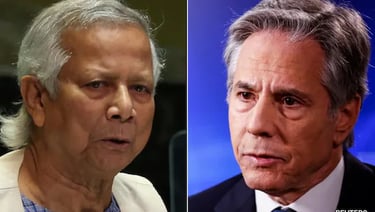

The United States has urged Bangladesh to take swift and effective measures to ensure the safety and protection of all religious communities, including Hindus, following a spate of reported attacks on minority groups in the country. The US Department of State issued a statement emphasizing the need to uphold the rights of all faiths and ensure justice for those affected by religious violence.
The statement comes in the wake of increasing reports of targeted attacks on Hindu communities during religious festivals and instances of vandalism at temples and homes. Advocacy groups have raised concerns about the deteriorating condition of religious minorities in Bangladesh, accusing authorities of failing to act decisively against perpetrators.
US officials have called for Bangladesh to uphold its commitment to pluralism and religious freedom, key principles enshrined in its constitution. "The safety and dignity of all communities must be preserved, and steps must be taken to hold accountable those responsible for violence," said a US State Department spokesperson.
Bangladesh’s government has responded by reiterating its commitment to protecting minority rights, with Prime Minister Sheikh Hasina directing law enforcement agencies to ensure strict action against those involved in communal violence. She also urged citizens to maintain harmony and not fall prey to instigators aiming to disrupt peace.
Human rights organizations have welcomed the US statement but stressed the need for sustained international pressure to ensure concrete action on the ground. Experts believe that such incidents could tarnish Bangladesh’s reputation as a secular democracy and strain its relationships with key international allies.
The Hindu community in Bangladesh constitutes less than 10% of the population, and incidents of communal violence have sparked fears among the minority population, prompting calls for better protections and stricter law enforcement.
(NNI / Latest news / Latest news india / India latest news/UPSC Preparation)
Kazakhstan Aviation Disaster: Azerbaijan Airlines Plane Crashes With 67 Aboard
Latest News International: 25th December 2024
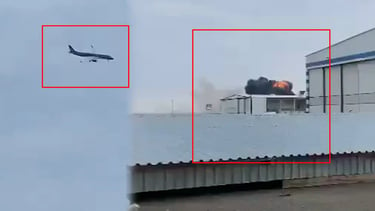

In a tragic aviation accident, an Azerbaijan Airlines passenger plane carrying 67 people onboard crashed near Aktau city in Kazakhstan on Monday. The aircraft, which was en route from Baku to Aktau, reportedly lost control during its descent and burst into flames upon impact.
Eyewitnesses described a massive explosion followed by thick plumes of smoke rising from the crash site, located in a remote area near the Aktau International Airport. Emergency responders, including firefighters, paramedics, and law enforcement, rushed to the scene to contain the fire and assist with rescue operations.
Preliminary reports indicate that the aircraft encountered technical difficulties shortly before landing. While the exact cause of the crash remains unknown, investigators from Azerbaijan and Kazakhstan have been deployed to the site to conduct a thorough inquiry.
Local authorities have confirmed that the plane was carrying 60 passengers and 7 crew members. As of now, there is no official confirmation regarding casualties, but initial reports suggest there may be survivors among the wreckage. Hospitals in Aktau have been put on high alert to handle potential injuries.
Azerbaijan Airlines has expressed its condolences to the families of those affected and promised full cooperation with the investigation. In a statement, the airline said, "We are deeply saddened by this tragic incident. Our priority remains supporting the families of passengers and crew during this difficult time."
This incident has raised questions about the safety protocols of regional airlines and the maintenance of aging aircraft. Aviation experts have called for enhanced safety measures to prevent such disasters in the future.
(NNI / Latest news / Latest news india / India latest news/UPSC Preparation)
ISRO’s PSLV-C60/SPADEX Mission
Latest News International: 25th December 2024, UPSC Preparation
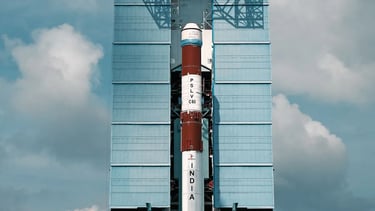

The PSLV-C60/SPADEX mission is scheduled for launch on December 30, 2024, at 9:58 PM IST, at the Satish Dhawan Space Centre in Sriharikota. The Indian Space Research Organisation (ISRO) has confirmed these details through social media announcements. The mission aims to demonstrate in-space docking technology, vital for future lunar explorations and the establishment of India’s Bharatiya Antariksh Station (BAS).
Mission Objectives
The primary objective of the PSLV-C60/SPADEX mission is to showcase the docking and undocking capabilities of two small spacecraft, designated SDX01 (Chaser) and SDX02 (Target). These spacecraft will operate in low-Earth orbit. The mission also seeks to test power transfer between the docked units, supporting future advancements in in-space robotics.
Launch Vehicle and Preparation
The PSLV-C60 launch vehicle has been fully integrated and positioned at the First Launch Pad in Sriharikota. This step marks the final preparations for the satellite integration and the imminent launch. The spacecraft will be deployed into a 470 km circular orbit, with a planned separation distance of 10-20 km post-launch.
Once in orbit, the two spacecraft will align and perform the docking manoeuvre. Following successful docking, the mission will test the power transfer system, which is crucial for future missions involving cooperative spacecraft. After completing the docking tests, the spacecraft will undock and carry out separate tasks for a duration of up to two years.
Indigenous Technology Development
Key technologies for this mission have been developed in India, including docking mechanisms, sensors, and power transfer systems. The SpaDeX spacecraft were meticulously designed at the UR Rao Satellite Centre, with integration and testing conducted at Ananth Technologies in Bengaluru. This mission marks step towards enhancing India’s capabilities in space exploration.
(NNI / Latest news / Latest news india / India latest news/UPSC Preparation)
India Launches First Bio-Bitumen Highway Stretch
Latest News International: 25th December 2024, UPSC Preparation
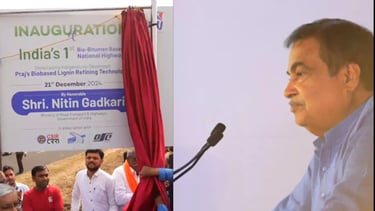

India has recently inaugurated its first bio-bitumen-based National Highway stretch on NH-44 in Mansar, Nagpur, Maharashtra, utilizes lignin-based bio-bitumen technology, developed through collaborative efforts involving Praj Industries, CSIR-CRRI, NHAI, and Oriental.
What is Bio-Bitumen?
Bio-bitumen is a sustainable alternative to traditional bitumen. It is derived from lignin, a natural polymer found in plant cell walls. This material serves as a binder, providing similar properties to conventional bitumen but with ly lower environmental impact.
Importance of Lignin
Lignin is abundant in agricultural waste and is a renewable resource. By using lignin, this project addresses the shortage of traditional bitumen, which currently sees 50% of its supply imported into India. The shift to bio-bitumen reduces dependency on imports and promotes local production.
Environmental Benefits
The use of bio-bitumen contributes to global sustainability goals. It is estimated to cut greenhouse gas emissions by at least 70% compared to fossil-based alternatives. Additionally, this initiative prevents stubble burning, which is contributor to air pollution.
This project aligns with India’s vision for Aatmanirbhar Bharat, promoting self-reliance and large-scale domestic production. The initiative not only supports the economy but also generates revenue for bio-refineries, contributing to sustainable development.
CNG Production from Biomass
Union Minister Nitin Gadkari announced 400 projects aimed at producing CNG from biomass, with 40 already completed. These projects have utilised 60 lakh tonnes of stubble, offering a cleaner fuel alternative while reducing pollution from stubble burning. Gadkari brought into light that farmers will transition from mere food producers to energy and resource providers. By converting agricultural waste into valuable bio-bitumen, farmers can contribute to India’s sustainable future.
(NNI / Latest news / Latest news india / India latest news/UPSC Preparation)
2nd India-Iran-Armenia Trilateral Talks in NewDelhi
Latest News International: 16th December 2024, UPSC Preparation
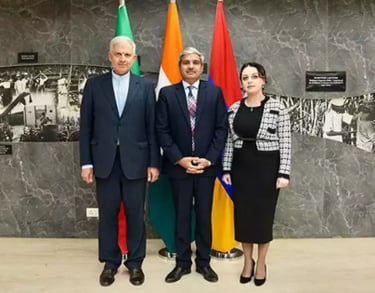

The second round of India-Iran-Armenia Trilateral Consultations occurred recently in New Delhi, centered on enhancing the International North-South Transport Corridor (INSTC) and the strategic importance of Chabahar Port. This meeting was built on the first consultation held in Yerevan in April 2023.
Objectives of the Consultations
The primary aim was to improve connectivity among the three nations. Participants discussed enhancing trade, tourism, and cultural exchanges. They also emphasized the need for collaboration in international forums to address regional challenges.
Key Agreements
All parties acknowledged the significance of robust cooperation under the INSTC framework. They brought into light Chabahar Port’s very important role in facilitating trade routes. Armenia introduced its “Crossroads of Peace” initiative, aimed at improving regional connectivity.
India was represented by J.P. Singh, Joint Secretary of the PAI Division. Iran’s delegation was led by Hashem Ashja’ Zadeh, Director General of the South Asia Division. Armenia’s team was headed by Anahit Karapetyan, Head of the Asia-Pacific Department.
Armenia’s Commitment to INSTC
Armenia took step towards joining the INSTC by approving a $200 million loan for the Kajaran tunnel project. This initiative aims to enhance connectivity with Iran and facilitate access to the INSTC.
Routes and Infrastructure Developments
The INSTC features three main routes near the Caspian Sea. These include the Trans-Caspian Route, the Eastern Route, and the Western Route. Azerbaijan is working to optimise infrastructure for faster transit from Mumbai to St. Petersburg.
Countries like Uzbekistan are expressing interest in utilising the INSTC and Chabahar Port for better market access. The INSTC serves as an alternative to China’s Belt and Road Initiative, which India opposes due to its passage through disputed territories.
(NNI / Latest news / Latest news india / India latest news/UPSC Preparation)
ADB Approves $500 Million Loan for India’s Sustainable Infrastructure
Latest News International: 16th December 2024, UPSC Preparation
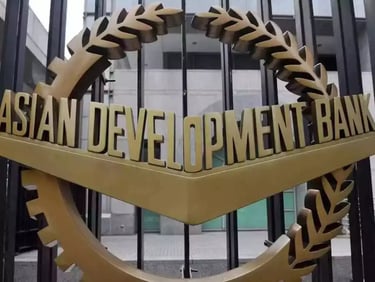

The Asian Development Bank (ADB) has recently approved a substantial loan aimed at boosting India’s economic growth through sustainable infrastructure. This initiative targets critical sectors requiring investment and aims to promote eco-friendly practices within infrastructure development.
Loan Details
ADB has sanctioned a loan of $500 million to the India Infrastructure Finance Company Limited (IIFCL). This funding will be dedicated to enhancing long-term capital availability for various sustainable infrastructure projects across India.
The loan will support projects in key sectors including transportation, energy, urban development, education, and healthcare. These sectors have been identified as lacking adequate funding, making this financial support crucial for their development.
The objective of the loan is to improve IIFCL’s capacity to incorporate green practices in infrastructure projects. This will involve establishing a dedicated sustainability unit within IIFCL to oversee the implementation of eco-friendly initiatives.
Framework Development
The loan will facilitate the creation of a comprehensive framework for environmental practices. This framework will guide the integration of sustainability into project planning and execution, ensuring environmental considerations are prioritised.
As part of the initiative, a scoring system will be developed to assess the sustainability of projects. This system will provide a structured approach to evaluate and enhance the environmental performance of infrastructure developments.
Addressing Climate Challenges
India faces climate change risks, including floods, droughts, and cyclones. The funding aims to ensure that infrastructure projects are designed with these environmental challenges in mind, promoting resilience against climate impacts.
There exists a considerable funding gap for climate-related projects in India, estimated at $1 trillion. ADB’s support is essential to bridge this gap, as public sector funding alone is insufficient to meet the demands for sustainable infrastructure development.
(NNI / Latest news / Latest news india / India latest news/UPSC Preparation)
Switzerland Suspends ‘Most Favoured Nation Status’ to India
Latest News International: 16th December 2024, UPSC Preparation


Switzerland has announced the removal of the most-favored-nation (MFN) clause from its tax agreement with India. This decision follows a Supreme Court ruling in 2023 concerning Nestle, which clarified the applicability of the MFN clause. The change will affect Indian companies with investments in Switzerland.
Background of the Tax Agreement
India and Switzerland first established their tax agreement in 1994. The agreement underwent updates in 2000 and 2010 to adapt to evolving economic conditions. These updates aimed to facilitate smoother financial relations between the two countries.
Changes to Dividend Tax Rates
Starting January 1, 2025, the tax rate on dividends for Indian companies in Switzerland will increase to 10%. This is a notable rise from the previous rate of 5%. The change will raise tax liabilities for Indian firms, impacting their competitiveness in the Swiss market.
Supreme Court Ruling and Its Implications
Switzerland has announced the removal of the most-favored-nation (MFN) clause from its tax agreement with India. This decision follows a Supreme Court ruling in 2023 concerning Nestle, which clarified the applicability of the MFN clause. The change will affect Indian companies with investments in Switzerland.
Background of the Tax Agreement
India and Switzerland first established their tax agreement in 1994. The agreement underwent updates in 2000 and 2010 to adapt to evolving economic conditions. These updates aimed to facilitate smoother financial relations between the two countries.
Changes to Dividend Tax Rates
Starting January 1, 2025, the tax rate on dividends for Indian companies in Switzerland will increase to 10%. This is a notable rise from the previous rate of 5%. The change will raise tax liabilities for Indian firms, impacting their competitiveness in the Swiss market.
(NNI / Latest news / Latest news india / India latest news/UPSC Preparation)
US Announces New Military Aid for Ukraine
Latest News International: 05th December 2024, UPSC Preparation
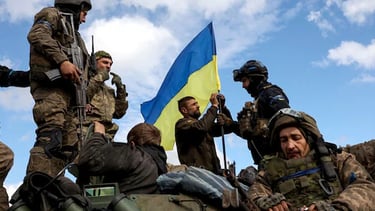

The United States has revealed a new military aid package for Ukraine, which totals $725 million and also includes critical supplies to enhance Ukraine’s defence capabilities. The announcement comes amid growing tensions with Russia and aims to boost Ukraine’s military readiness.
Key Components of the Aid Package
The package features a second shipment of landmines and also includes weapons designed to counter aircraft. Additionally, it provides equipment for combating armoured vehicles. These tools are essential for Ukraine’s ongoing conflict with Russia.
Timeline for Aid Delivery
The Biden administration is prioritising swift delivery, which aims to dispatch the aid before the inauguration of President-elect Donald Trump. The urgency stems from concerns over future military support under Trump’s leadership. His administration may alter or reduce aid to Ukraine.
There is uncertainty regarding future US military aid. The incoming Trump administration may adopt a different approach. This could lead to a decrease in military support for Ukraine. The situation remains fluid, with potential implications for regional security.
Broader Context of US-Ukraine Relations
The aid package is part of a long-term relationship between the US and Ukraine. It puts stress on the US’s support for democratic values in Eastern Europe. The ongoing conflict with Russia marks the need for continued assistance. The US aims to strengthen Ukraine’s position in this geopolitical struggle.
Important Facts for Exams:
Landmines: Landmines are explosive devices placed on the ground. They pose risks to military and civilian populations. Their use is controversial due to humanitarian concerns and long-term dangers.
Geopolitical Struggle: Geopolitical struggle refers to the competition for power in international relations. It often involves military, economic, and ideological conflicts. This struggle shapes the dynamics between nations.
Military Aid Package: A military aid package includes financial and material support for armed forces. It aims to enhance defence capabilities. Such packages are vital for nations facing external threats.
(NNI / Latest news / Latest news india / India latest news/UPSC Preparation)
Strengthening Nepal-China Relations in 2024
Latest News International: 05th December 2024, UPSC Preparation
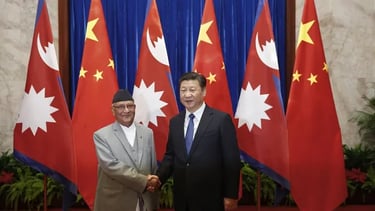

Chinese President Xi Jinping and Nepali Prime Minister KP Sharma Oli met recently to enhance bilateral ties. Both leaders expressed a commitment to deepening their partnership, which coincides with the upcoming 70th anniversary of diplomatic relations.
Historical Context
China and Nepal established diplomatic relations in 1955, which has evolved over decades, focusing on mutual respect and cooperation. The two nations have shared interests in economic development and regional stability.
Key Agreements
During their meeting, Xi and Oli signed a joint statement. This statement outlines their commitment to strengthen cooperation in various sectors. It also marks the importance of mutual respect and equality in their partnership.
Infrastructure and Investment
China aims to enhance practical cooperation with Nepal. Key areas include infrastructure, transportation, and energy. Xi encouraged Chinese businesses to invest in Nepal, which would boost economic growth.
Cultural Exchange Initiatives
Xi supported Nepal’s plan to declare 2025 as “Visit Nepal Year in China.” This initiative aims to promote tourism and cultural exchange. It encourages Nepali citizens to explore opportunities in China for business and education.
Xi reaffirmed China’s respect for Nepal’s sovereignty and development path. He expressed support for Nepal’s independence and territorial integrity. Oli reiterated Nepal’s commitment to the one-China principle.
Opposition to Foreign Interference
Oli promised that Nepal would not allow any groups to use its territory against China. He opposed foreign interference in China’s internal matters. This stance reflects Nepal’s dedication to maintaining strong ties with China.
Both leaders expressed a desire for continued collaboration, which aim to protect the interests of developing countries. Their partnership is expected to evolve further in the coming years.
Important Facts for Exams:
Belt and Road Initiative: The Belt and Road Initiative is a global development strategy initiated by China. It focuses on infrastructure investment and economic cooperation across Asia, Europe, and Africa, enhancing connectivity.
One-China Principle: The one-China principle asserts that there is only one sovereign state under the name China. Nepal supports this principle, reaffirming its commitment to China’s territorial integrity and sovereignty.
(NNI / Latest news / Latest news india / India latest news/UPSC Preparation)
EU Invests €4.6 Billion in Clean Hydrogen
Latest News International: 05th December 2024, UPSC Preparation


The European Commission (EC) has announced an investment in clean hydrogen and decarbonization technologies and aims to enhance the EU’s commitment to climate neutrality. The funding will be sourced from the EU Emissions Trading System (EU ETS).
EU Emissions Trading System Overview
The EU ETS was established in 2005, and charges industries for carbon emissions. Key sectors include electricity, steel, cement, and aviation. The system expanded in 2023 to include more sectors. Stricter emission reduction targets were also introduced, are projected to generate €40 billion in revenue from 2020 to 2030.
Funding Breakdown
The EC plans to invest €4.6 billion in clean technologies, including two new funding programs worth €3.2 billion. Of this, €1 billion will support electric vehicle battery production. Additionally, €1.2 billion will promote renewable hydrogen production. This funding is facilitated through the European Hydrogen Bank.
The Innovation Fund is one of the largest programmes for net-zero technologies. It is important component of the European Green Deal Industrial Plan. The fund encourages investments in low-carbon solutions. It aims to help the EU achieve climate neutrality.
Selected Projects for 2024
For 2024, the EC has selected 85 projects for funding. These projects focus on decarbonisation technologies. They will receive €4.8 billion from the Innovation Fund. This selection is a step forward in Europe’s green transition.
These investments reflect the EU’s commitment to reducing carbon emissions. They also signify a push towards sustainable technologies. The initiatives are expected to stimulate economic growth in green sectors.
Important Facts for Exams:
European Hydrogen Bank: This institution supports renewable hydrogen production. It plays a critical role in financing clean energy projects. Its establishment is vital for the EU’s climate goals.
EU Emissions Trading System (EU ETS): Established in 2005, this system charges industries for carbon emissions. It has expanded to include more sectors. The projected revenue is €40 billion by 2030.
Innovation Fund: This fund is one of the largest for net-zero technologies. It encourages low-carbon investments. It is integral to the European Green Deal Industrial Plan.
Decarbonisation Technologies: These technologies aim to reduce carbon emissions . They are essential for achieving climate neutrality. The EU has selected 85 projects for funding in 2024.
(NNI / Latest news / Latest news india / India latest news/UPSC Preparation)
India-UK 2+2 Foreign and Defence Dialogue
Latest News International: 05th December 2024, UPSC Preparation
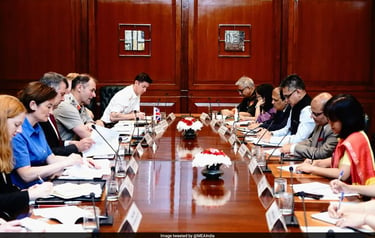

India and the UK recently convened the second 2+2 Foreign and Defence Dialogue in New Delhi, aimed to enhance their Comprehensive Strategic Partnership. High-level officials from both nations participated in the discussions.
Key Participants
India was represented by Piyush Srivastava from the Ministry of External Affairs and Vishwesh Negi from the Ministry of Defence. The UK delegation included Ben Mellor from the Foreign, Commonwealth & Development Office and Shimon Fhima from the Ministry of Defence.
Focus Areas
The dialogue concentrated on several critical areas. Trade, defence, and innovation were primary topics. Both nations reviewed the India-UK Roadmap 2030. This roadmap outlines their strategic partnership goals.
Free Trade Agreement
Discussions included the potential for a Free Trade Agreement (FTA). Both countries aim to enhance economic cooperation. This agreement could boost bilateral trade. Enhancing defence cooperation was focus. Both nations committed to improving cybersecurity collaboration. This initiative aims to address emerging threats effectively.
Emerging Technologies
Advancing innovation in emerging technologies was brought into light. Both sides recognised the importance of collaboration in this field. Joint efforts could lead to technological advancements. Clean energy initiatives were discussed. Both countries seek to promote sustainable practices. Health cooperation was also a key topic, aiming to improve public health outcomes.
Cultural and Educational Exchanges
Promoting cultural and educational exchanges was emphasised. These exchanges encourage mutual understanding and strengthen ties. They are essential for building long-term relationships.
The dialogue reviewed ongoing projects like the Technology and Security Initiative. The UK-India Infrastructure Finance Bridge was also discussed. These projects aim to enhance collaboration.
Vision for Indo-Pacific
Both nations reaffirmed their shared vision for peace in the Indo-Pacific. They focus on maintaining a free, open, and inclusive environment. This commitment is crucial for regional stability.
The meeting concluded with plans for the next dialogue in the UK in 2025. This agreement signifies a commitment to strengthening the partnership further. The focus will remain on achieving shared goals.
Important Facts for Exams:
2+2 Dialogue – The 2+2 Dialogue involves foreign and defence ministers from India and the UK. It aims to enhance strategic partnerships and address global and regional security challenges.
India-UK Roadmap 2030 – The India-UK Roadmap 2030 outlines strategic goals for bilateral cooperation. It focuses on trade, defence, innovation, and cultural exchanges, aiming for enhanced collaboration by 2030.
Technology and Security Initiative – The Technology and Security Initiative encourages collaboration on defence technologies. It aims to address emerging threats and enhance cybersecurity between India and the UK.
UK-India Infrastructure Finance Bridge – The UK-India Infrastructure Finance Bridge supports infrastructure projects. It aims to enhance investment and collaboration in sustainable infrastructure development between the two nations.
(NNI / Latest news / Latest news india / India latest news/UPSC Preparation)
"Moscow Signals Intensified Strikes if Western Pressure Continues"
Latest News International: 04th December 2024
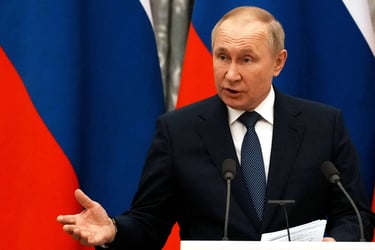

Russia has warned of escalating military actions in Ukraine if Western nations continue their pressure and military support for Kyiv. Russian Deputy Foreign Minister Sergei Ryabkov stated that Western countries are underestimating Moscow’s resolve to defend its security interests, signaling that intensified strikes could follow. This comes as Russia and Ukraine exchange heavy attacks, with both sides targeting key installations and cities. Russian officials criticized U.S. arms shipments to Ukraine, viewing them as provocations exacerbating the conflict eadlines Suggestions:**
(NNI / Latest news / Latest news india / India latest news/UPSC Preparation)
"Hasina Blames Yunus for Rising Communal Attacks on Hindus and Christians in Bangladesh"
Latest News International: 04th December 2024
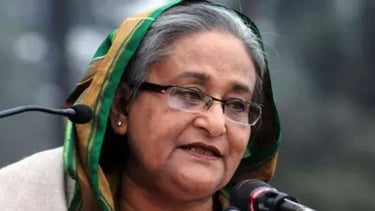

In her first public address following her ouster, former Bangladeshi Prime Minister Sheikh Hasina accused interim leader Muhammad Yunus of orchestrating "genocide" against minority communities in Bangladesh. Speaking from New York, Hasina sharply criticized Yunus for failing to protect religious and ethnic minorities, including Hindus, Buddhists, and Christians, amidst rising communal violence under his leadership. She alleged that the Yunus government has perpetuated violence and ignored efforts to hold perpetrators accountable.
Reports by organizations like Transparency International Bangladesh reveal over 2,000 incidents of communal violence since the start of Yunus's regime, with minorities bearing the brunt of attacks on their homes, businesses, and places of worship. Hasina emphasized that such actions have strained India-Bangladesh relations, further complicating the region's geopolitical dynamics.
(NNI / Latest news / Latest news india / India latest news/UPSC Preparation)
9th International Conference on Waste to Worth
Latest News International: 04th December 2024, UPSC Preparation
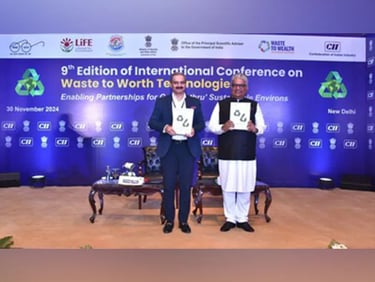

The 9th International Conference on Waste to Worth brought into light India’s commitment to sustainable practices. Bhupender Yadav, Minister of Environment, stressed the need for a skilled workforce in recycling technologies, which focused on innovation and global partnerships to tackle waste management issues.
Importance of Waste as a Resource
Yadav emphasised that waste should not be viewed as a burden. Instead, it should be seen as a valuable resource. Sustainable practices are vital for economic, environmental, and social well-being.
Key Government Policies
Several initiatives were introduced to enhance waste management. These include the Plastic Waste Management Rules and E-Waste Management Rules. The Construction and Demolition Waste Management Rules aim to promote eco-friendly practices in industries. The Motor Vehicle Scrap Policy also supports sustainable production.
National Circular Economy Framework (NCEF)
Tokhan Sahu introduced the NCEF as a roadmap for smart cities, which focuses on efficient waste management. It is crucial for achieving India’s urban development goals.
Baldeo Purusharth brought into light the significance of grassroots solutions. Ideas can emerge from anyone, including children. Systems are needed to harness this collective ingenuity for effective waste management.
Advanced Recycling for Net-Zero Goals
Masood Mallick discussed the importance of decarbonising materials. Advanced recycling can transform steel, glass, and plastics into valuable resources. This approach is essential for achieving net-zero emissions.
The conference launched the second edition of NCEF. It provides guidance for industries to adopt sustainable business models. The CII 4R Awards recognised companies excelling in waste-to-worth practices.
Participation and Discussions
Over 300 delegates attended, including industry leaders and policymakers. Topics included governance, circular economy transitions, and sustainable growth opportunities. An exhibition showcased cutting-edge waste-to-worth technologies.
The conference reaffirmed India’s dedication to becoming a global leader in sustainability. It brought together diverse stakeholders to drive innovative solutions in waste management.
Important Facts for Exams:
NCEF: The National Circular Economy Framework aims to create smart cities. It focuses on efficient waste management practices. This framework is essential for India’s urban development goals.
CII 4R Awards: The CII 4R Awards recognise companies excelling in waste-to-worth practices. Winners include Schindler India and EverEnviro. These awards promote innovative approaches to converting waste into resources.
Grassroots Solutions: Grassroots solutions are vital for effective waste management. Ideas can emerge from anyone, including children. Harnessing collective ingenuity enhances sustainability efforts in circular economy practices.
(NNI / Latest news / Latest news india / India latest news/UPSC Preparation)
World Maritime Technology Conference 2024
Latest News International: 04th December 2024, UPSC Preparation


The World Maritime Technology Conference (WMTC) is event in the maritime industry, which occurs every three years, attracting global attention. Recently, it will be hosted in Chennai from December 4 to 6, which marks India’s first time hosting the conference in 15 years.
Historical Context
The last WMTC took place in Mumbai in 2009 and the previous conference was held in Copenhagen in April 2022. This event faced delays due to the COVID-19 pandemic. Other cities that have previously hosted include Shanghai, Houston, and St. Petersburg.
Key Themes of the Conference
Discussions will centre on climate change and sustainability. Global political dynamics affecting the maritime industry will also be examined. Attendees will engage in dialogues about the future of maritime technology and practices.
The first day will feature a special evening session. Renowned author and mythologist Devdutt Pattanaik will be the guest speaker. This will be followed by a formal dinner for networking opportunities.
Focus Areas for Attendees
Over the next two days, various subjects will be explored. Technical advancements in maritime technology will be a priority. Business challenges and market trends will also be discussed. Participants will gain vital information about the evolving maritime landscape.
Networking Opportunities
The conference will provide ample networking opportunities. Attendees can connect with industry leaders and experts. Collaborative initiatives may emerge from these interactions.
The WMTC plays important role in shaping maritime policies, which encourages innovation and sustainability in the sector. The conference aims to encourage international cooperation among maritime professionals.
Important Facts for Exams:
WMTC – The World Maritime Technology Conference occurs every three years. It is event for the maritime industry. The next conference will be in Chennai, India.
COVID-19 Pandemic: The pandemic caused delays in various global events. The last WMTC was held in April 2022. It was previously scheduled for earlier dates but faced disruptions.
(NNI / Latest news / Latest news india / India latest news/UPSC Preparation)
Marburg Virus Outbreak in Africa
Latest News International: 04th December 2024, UPSC Preparation
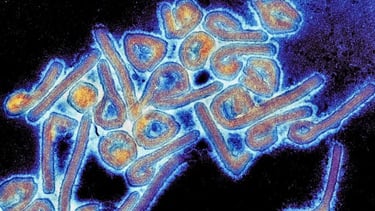

The Marburg virus has recently emerged as health threat in Africa, which has led to at least 15 deaths and hundreds of infections in Rwanda. The virus has rapidly spread across 17 African countries within the last two months.
Transmission and Symptoms
The Marburg virus is primarily transmitted by fruit bats. Human infections can occur through direct contact with infected bodily fluids or contaminated surfaces. Symptoms typically manifest between two to 21 days after exposure. Initial symptoms include high fever, headaches, and body aches. By the third day, patients may experience diarrhoea, abdominal pain, and vomiting.
Severe Symptoms and Complications
Around day five, severe symptoms can develop, which may include bleeding from various body parts, such as the eyes, ears, nose, mouth, or gums. In some cases, swelling of the testicles may occur later. Death often occurs between days eight and nine, usually due to severe blood loss and shock.
Healthcare workers and individuals involved in funeral practices are at increased risk of infection. Direct contact with infected persons or their fluids heightens the likelihood of transmission.
Travel Advisory
The UK Health Security Agency has issued a travel warning. It advises caution for those visiting affected regions, including Rwanda, Burundi, and several others in Africa. The advisory also mentions other diseases like Clade 1 and Oropouche fever prevalent in these areas.
Prevention and Treatment
Currently, there are no vaccines or specific antiviral treatments available for Marburg virus. However, early medical intervention can improve survival rates. Rehydration and symptomatic treatment are crucial for affected individuals.
Important Facts for Exams:
Clade 1: Clade 1 refers to a specific lineage of viruses. It is known for causing severe diseases. This clade is prevalent in certain regions, including parts of Africa.
Oropouche Fever: Oropouche fever is a viral disease transmitted by mosquitoes. Symptoms include fever, headache, and joint pain. It is endemic in parts of South America and the Caribbean.
Fruit Bats: Fruit bats are primary carriers of the Marburg virus. They play important role in the virus’s transmission to humans. Their habitats span various regions, including Africa and Asia.
(NNI / Latest news / Latest news india / India latest news/UPSC Preparation)
Russia’s RS-28 Sarmat Missile Overview
Latest News International: 03rd December 2024, UPSC Preparation
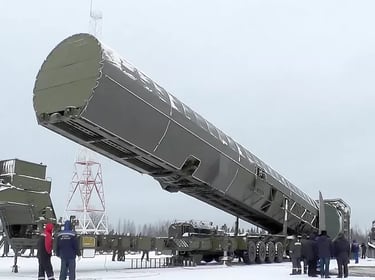

Russia is advancing its military capabilities with the RS-28 Sarmat intercontinental ballistic missile, known as “Satan 2,” is element of Russia’s nuclear strategy. Despite facing challenges and some unsuccessful tests, its deployment is imminent.
Missile Specifications
The Sarmat missile measures 116 feet in length and weighs 220 tonnes, which boasts a range of 6,200 to 11,180 miles. This range allows it to target locations across the United States and Europe, which can carry up to 15 nuclear warheads. Each warhead can strike different targets.
Speed and Stealth
The Sarmat can travel at speeds exceeding 12,000 mph, enables it to reach parts of Europe in approximately three minutes. The missile incorporates advanced stealth technology to avoid detection by enemy radar systems.
The warheads on the Sarmat are immensely powerful. They can be up to 2,000 times more destructive than the atomic bombs dropped on Hiroshima and Nagasaki. This capability enhances Russia’s deterrent strategy.
Development History
The Sarmat was first tested in April 2022, officially entered combat service in 2023. President Vladimir Putin introduced the missile in 2018 as a countermeasure to the U.S. Prompt Global Strike system.
Strategic Importance
Putin claims the Sarmat is unmatched by any other missile globally. All components are manufactured domestically, ensuring Russia’s independence from foreign suppliers. The missile is part of a broader arsenal that includes the Kinzhal and Avangard missiles.
The Sarmat has generated international attention. Its deployment is viewed with concern by Western nations. Analysts continue to monitor Russia’s strategic military developments closely.
Important Facts for Exams:
RS-28 Sarmat – The RS-28 Sarmat, known as “Satan 2,” is an advanced intercontinental ballistic missile developed by Russia. It can carry 15 nuclear warheads, enhancing deterrence.
Prompt Global Strike – The U.S. Prompt Global Strike system aims to strike targets swiftly and accurately. Russia’s Sarmat missile was introduced partly as a countermeasure to this strategic capability.
Kinzhal – The Kinzhal is a Russian air-launched hypersonic missile. It can travel at speeds exceeding Mach 10, making it difficult to intercept and enhancing Russia’s military capabilities.
Avangard – The Avangard is a hypersonic glide vehicle developed by Russia. It can manoeuvre during flight, making it challenging for missile defence systems to predict and intercept its trajectory.
(NNI / Latest news / Latest news india / India latest news/UPSC Preparation)
Top UN Court Hears Landmark Climate Change Case
Latest News International: 03rd December 2024, UPSC Preparation
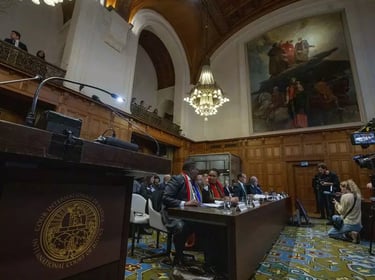

The International Court of Justice (ICJ) is currently hearing a very important case regarding nations’ obligations to combat climate change. This case could set a precedent for future lawsuits worldwide. Vanuatu, a small island nation, spearheads the initiative for an advisory opinion on this critical issue. The hearings began on Monday and will last for two weeks.
Vanuatu’s Role
Vanuatu is the first to present its arguments, which seeks to clarify the legal responsibilities of countries in addressing climate change. This initiative reflects the urgency felt by many small island nations facing severe climate impacts.
Importance of Advisory Opinions
The ICJ’s advisory opinions, while not legally binding, carry considerable weight. They influence international law and can guide national courts in their rulings. Experts predict that the court’s opinion will be cited in climate-related litigations globally.
Context of Recent Climate Agreements
The hearings follow criticisms of the COP29 summit’s outcomes. Developing nations deemed the $300 billion annual climate finance pledge by 2035 inadequate. They argue this amount does not meet the urgent needs of vulnerable countries.
Key Arguments Presented
Ralph Regenvanu, Vanuatu’s climate envoy, advocates for the phasing out of fossil fuels. He calls for increased financial support for nations severely impacted by climate change. Regenvanu also argues that historical emissions leading to climate damage should be deemed illegal.
Participation of Major Emitters
The hearings will also involve input from major greenhouse gas emitters. The United States and China, alongside OPEC, will present their perspectives. Their involvement marks the global stakes in the climate crisis.
The hearings will continue until December 13. The court’s opinion is expected to be released in 2025. This timeline indicates the lengthy process of addressing such complex legal and environmental issues.
Important Facts for Exams:
Vanuatu: Vanuatu is a small island nation in the South Pacific. It is known for its unique culture and biodiversity. The country faces severe threats from climate change impacts.
International Court of Justice (ICJ): The ICJ is the principal judicial organ of the United Nations. It settles legal disputes between states. Its advisory opinions influence international law and policy.
COP29: COP29 refers to the 29th Conference of the Parties to the UNFCCC. It focuses on climate change negotiations. The conference aims to enhance global cooperation on climate action.
(NNI / Latest news / Latest news india / India latest news/UPSC Preparation)
Trump Slams Biden’s Pardon for Hunter, Calls It an Abuse of Power
Latest News International: 02nd December 2024
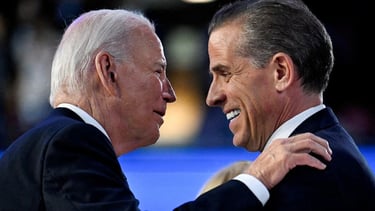

Donald Trump has criticized President Joe Biden’s decision to pardon his son Hunter Biden, calling it a "miscarriage of justice." The pardon was issued for Hunter Biden, who had been convicted on charges related to tax violations and firearm possession. Trump took to Truth Social, questioning whether the pardon extended to those involved in the January 6 Capitol riot, whom he refers to as "J-6 hostages." Biden defended the pardon, arguing that Hunter’s case was politically motivated and emphasizing that similar cases typically don't lead to felony charges.
(NNI / Latest news / Latest news india / India latest news/UPSC Preparation)
Global Arms Sales Soar as Defense Contractors Benefit from Geopolitical Instability
Latest News International: 02nd December 2024
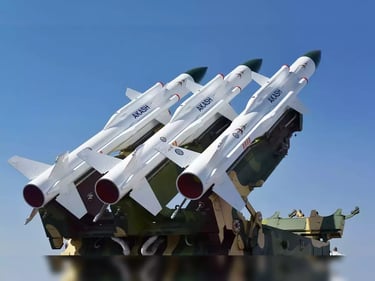

As global conflicts and regional tensions escalate, the world's top 100 defense suppliers have witnessed a significant uptick in arms sales. According to recent reports, companies specializing in military goods and services saw their combined sales soar, benefiting from growing defense budgets in response to ongoing wars and security concerns. The increase comes amid heightened spending on military equipment spurred by conflicts like the war in Ukraine, rising tensions in the Asia-Pacific, and geopolitical rivalries across the globe.
U.S.-based defense companies remain dominant, accounting for the largest share of global arms sales. In 2020, American defense firms collectively generated $285 billion in sales, comprising over half of the top 100's total arms revenues. Chinese and European companies have also seen notable growth, capitalizing on defense modernization efforts and regional defense needs.
The increase in arms sales reflects a trend of governments prioritizing defense and military readiness, even amid economic challenges. Analysts suggest that the demand for advanced weapons systems, including air defense, space technology, and cyber warfare capabilities, is driving much of the sales growth.
Despite disruptions caused by the COVID-19 pandemic and supply chain issues, the defense sector has remained resilient, with major firms continuing to invest in expanding their portfolios and capabilities. As tensions persist in various regions, it is expected that defense companies will continue to see strong growth in arms sales throughout the coming years.
(NNI / Latest news / Latest news india / India latest news/UPSC Preparation)
Belgium Becomes Pioneer, Grants Maternity Leave and Employment Protections to Sex Workers
Latest News International: 01st December 2024
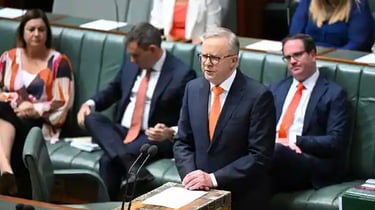

Belgium Becomes the First Country to Grant Sex Workers Maternity Leave and Employment Benefits
In a historic move, Belgium has become the first country in the world to extend employment benefits, including maternity leave, health insurance, and sick leave, to sex workers. This new law, which takes effect in December 2024, gives legal recognition to sex work, providing workers with the same social protections as those in other professions.
The law, which follows Belgium's decriminalization of sex work in 2002, ensures that sex workers are covered under employment contracts. This legislation grants them the right to refuse clients, demand safer working conditions, and receive protection from exploitation. Employers will also be required to implement safety measures, such as emergency buttons in workplaces, and provide sex workers with a reference person to address any concerns. The law also safeguards workers' rights to maternity leave, pensions, and other benefits that were previously inaccessible to those in the industry.
This change comes after years of advocacy by sex worker unions, including UTSOPI, and government consultations. While hailed as a progressive step by human rights organizations, critics worry about the broader societal implications of further legitimizing the sex industry.
(NNI / Latest news / Latest news india / India latest news/UPSC Preparation)
"Israel and Hezbollah Agree to Fragile Ceasefire Amid Escalating Tensions"
Latest News International: 01st December 2024
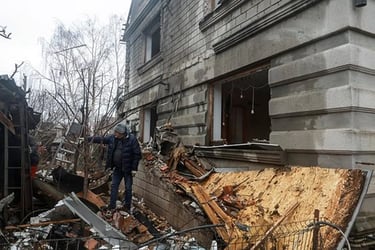

This week’s international news saw notable developments across the Middle East and beyond:
France and ICC Warrants: France made headlines after its statement that Israeli Prime Minister Netanyahu, and Defense Minister Gallant, who face ICC warrants over alleged war crimes in Gaza, have immunity. This move has sparked controversy, with human rights organizations criticizing the decision, especially after France's role in securing a ceasefire between Israel and Hezbollah.
Israel-Hezbollah Ceasefire: Following intense negotiations, a fragile ceasefire between Israel and Hezbollah, brokered by France and the U.S., came into effect. While tensions remain high, there are signs of cautious optimism as the two sides hold their ground. Analysts fear that this peace could be temporary, given the volatile nature of the region.
Syrian Rebels’ Advance: Syrian rebel forces, including jihadist factions, have launched a rapid offensive, capturing key positions in Aleppo amid government weakness. This surge in rebel activity follows the entry of new fighters into the city, complicating the ongoing conflict.
(NNI / Latest news / Latest news india / India latest news/UPSC Preparation)
India and Maldives Enhance Currency Cooperation
Latest News International: 24th November 2024, UPSC Preparation
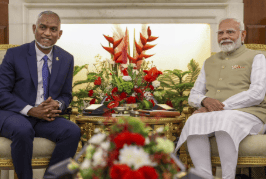

The Reserve Bank of India (RBI) and the Maldives Monetary Authority (MMA) have recently signed a very important agreement, which aims to facilitate transactions using local currencies. The Indian Rupee (INR) and the Maldivian Rufiyaa (MVR) will now be used for invoicing and payments between both countries.
Agreement Details
The agreement was signed by RBI Governor Shaktikanta Das and MMA Governor Ahmed Munawar. It allows businesses to conduct trade in their currencies. This initiative aims to simplify cross-border transactions.
Utilizing local currencies will reduce transaction costs, which will also speed up payment settlements. Businesses can avoid foreign exchange risks associated with third currencies, which will enhance financial efficiency in trade.
Previous Agreements
Last year, the RBI signed a similar agreement with the Central Bank of the UAE. This indicates a trend towards promoting local currencies in international trade. Such agreements aim to strengthen economic ties with multiple nations.
Economic Impact
The collaboration is expected to boost trade between India and the Maldives. It will improve financial relationships and encourage economic cooperation. The agreement is step towards enhancing bilateral trade.
Future Prospects
The agreement may encourage more businesses to engage in trade using INR and MVR. It can lead to increased investments between the two countries. This initiative may also develop the foreign exchange market for both currencies.
Strengthening economic ties is crucial for both nations. This agreement reflects a commitment to deeper cooperation. It marks the importance of regional partnerships in enhancing economic stability.
Important Facts for Exams:
RBI: The Reserve Bank of India regulates the country’s monetary policy. It plays important role in maintaining financial stability and promoting economic growth through various initiatives and agreements.
MMA: The Maldives Monetary Authority is responsible for the country’s monetary policy. It aims to ensure financial stability and promote sustainable economic growth through effective regulation and financial oversight.
INR: The Indian Rupee is the official currency of India. It is one of the most traded currencies in Asia and plays role in regional trade agreements and economic cooperation.
MVR: The Maldivian Rufiyaa is the currency of the Maldives. It is essential for domestic transactions and increasingly important for international trade, especially with India through recent agreements.
(NNI / Latest news / Latest news india / India latest news/UPSC Preparation)
India and Nigeria Strengthen Maritime Security Ties
Latest News International: 18th November 2024, UPSC Preparation
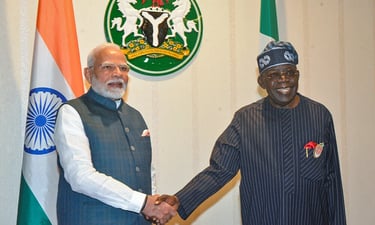

India and Nigeria recently agreed to enhance cooperation in maritime security, which occurred during Prime Minister Narendra Modi’s state visit to Nigeria. It marked the first visit by an Indian Prime Minister in 17 years. President Bola Tinubu invited Modi to discuss various collaborative efforts.
Key Discussions
Modi and Tinubu met at the presidential villa in Abuja. They discussed topics such as economic development, defence, healthcare, and food security. Both leaders expressed a commitment to encouraging bilateral relations.
Maritime Security Focus
The Gulf of Guinea and the Indian Ocean face increasing threats. India and Nigeria agreed to take coordinated action against piracy. They aim to safeguard vital maritime trade routes. This collaboration is crucial for both nations’ economic interests.
Nigeria seeks to attract more Indian investments. The country is also looking for affordable lines of credit. These efforts aim to boost Nigeria’s economy and create job opportunities.
Investment Pledges
During the G20 summit last year, Nigeria secured nearly $14 billion in investment pledges from Indian investors. Jindal Steel and Power committed $3 billion to Nigeria’s steel sector. This investment marks India’s growing economic interest in Nigeria.
Indian Presence in Nigeria
Over 200 Indian companies currently operate in Nigeria. These companies contribute to various sectors, including manufacturing and services. Their presence supports Nigeria’s economic development and job creation.
The collaboration between India and Nigeria is poised for growth. Both countries recognise the importance of partnership in addressing common challenges. Continued dialogue will likely lead to further agreements in various sectors.
Important Facts for Exams:
Gulf of Guinea: The Gulf of Guinea is an important body of water in West Africa. It is crucial for maritime trade and faces increasing piracy threats.
Maritime Security: Maritime security involves protecting trade routes from threats. India and Nigeria agreed to coordinate actions against piracy in crucial maritime areas for economic interests.
(NNI / Latest news / Latest news india / India latest news/UPSC Preparation)
North Korea’s ‘Noise Bombing’
Latest News International: 18th November 2024, UPSC Preparation
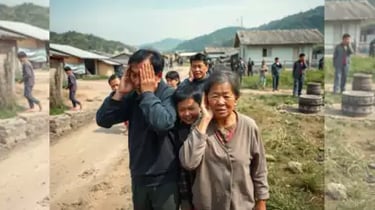

Tensions between North and South Korea have risen, impacting Dangsan village near the border, where loudspeakers from the North play disturbing sounds, disrupting residents’ daily lives.
Loudspeaker Strategy
North Korea uses loudspeakers for psychological warfare. The sounds include gongs, howls, and screams. These noises are designed to unsettle South Koreans. Villagers report extreme distress and sleepless nights.
Impact on Residents
Dangsan village has 354 residents, many elderly. The constant noise leads to insomnia and headaches. Some villagers have reported negative effects on livestock. The situation is described as “bombing without shells.”
Community Response
To combat the noise, residents keep windows shut. Some have added Styrofoam for insulation. Children avoid outdoor activities due to the disturbances. Politicians have expressed sympathy during visits.
Historical Context
The Korean War ended without a peace treaty. Tensions have escalated over the years. North Korea’s leader, Kim Jong-un, has adopted a hardline approach. Dialogue with South Korea and the US has ceased.
South Korean President Yoon Suk-yeol advocates for spreading freedom. He aims to penetrate North Korea‘s information blackout. Experts suggest recommitting to agreements to reduce slander. Peaceful dialogue remains a distant hope.
Recent Developments
North Korea has destroyed transport links with the South. This includes demolishing railways and roads. Disruption of GPS signals has also occurred. These actions heighten tensions further along the border.
Important Facts for Exams:
Psychological Warfare: Psychological warfare refers to tactics used to influence emotions. North Korea employs loudspeakers for this purpose. The sounds aim to unsettle South Korean citizens. This strategy has caused important distress among residents.
Korean War: The Korean War lasted from 1950 to 1953. It ended without a formal peace treaty. Tensions between North and South Korea persist. This unresolved conflict continues to impact both nations.
(NNI / Latest news / Latest news india / India latest news/UPSC Preparation)
Marxist-Led Government: Sri Lanka’s Newly Elected President Appoints Cabinet
Latest News International: 18th November 2024
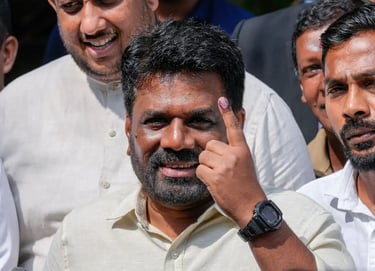

Colombo, November 18, 2024: Sri Lanka’s newly elected president, President’s Anura Kumara Dissanayake, has announced his Cabinet, marking a pivotal moment in the country’s political landscape. After securing a hard-fought victory in the national elections, the president, who hails from the Marxist-leaning [Party Name], has outlined his vision for economic reform, social justice, and strengthening the country’s democratic institutions.
The Cabinet, which includes key figures from the National People’s Power Party, as well as several technocrats, reflects a blend of socialist ideals and pragmatic governance. The president, who has long advocated for economic equality and greater state control over critical industries, has promised to tackle the country’s ongoing economic crisis while focusing on the welfare of the working class.
In his address following the Cabinet announcement, the president emphasized the need for comprehensive reforms to address Sri Lanka’s high inflation, unemployment, and crippling national debt. "We are committed to creating an economy that works for everyone — not just the elites, but for the people of Sri Lanka who have suffered long enough under the weight of economic inequality," he said.
Key Appointments
Among the notable appointments, a prominent figure from the president’s party, has been appointed as the new Finance Minister. Appointee’s is known for advocating pro-poor policies and has been a staunch critic of the privatization of state-owned enterprises. The new Cabinet also includes Appointee’s, a leading voice on education and social services, who will head the Ministry of Education and Social Welfare.
The president’s Cabinet is seen as a decisive step toward fulfilling his election promises of reducing Sri Lanka’s reliance on foreign loans and improving domestic production. A key area of focus will be the revitalization of agriculture, energy independence, and enhancing public sector efficiency.
"One of our primary goals will be to reduce Sri Lanka’s dependency on foreign debt by boosting domestic industries and ensuring that resources are allocated where they are most needed — to our people," the president stated in his speech.
Challenges Ahead
Despite the optimism surrounding his Cabinet appointments, the new president faces significant challenges, including Sri Lanka's ongoing economic crisis, rising unemployment, and the growing burden of foreign debt. The country’s financial troubles have been compounded by the aftermath of the COVID-19 pandemic, the Easter Sunday attacks, and severe natural disasters, which have strained the economy.
Opposition parties, however, have raised concerns about the president’s ability to address the deep-rooted issues facing Sri Lanka without significant international support. Critics have questioned the effectiveness of the president’s Marxist-leaning policies in the context of Sri Lanka’s globalized economy and the need for foreign investment.
The president’s administration will also be under scrutiny for its handling of Sri Lanka’s relations with international partners, especially with countries like China, India, and the West, which have played a significant role in the island nation’s economic recovery efforts.
Looking Ahead
As the president embarks on this new chapter of governance, all eyes will be on the implementation of his policies and whether he can balance his party's socialist ideals with the practical needs of a modern economy. His success or failure in revitalizing Sri Lanka’s economy will likely determine the future of his presidency and the direction of the country’s political landscape.
For now, the president has vowed to remain committed to his agenda of social equality, economic self-sufficiency, and restoring faith in Sri Lanka’s democratic institutions. His Cabinet appointments, he said, are a reflection of this vision.
(NNI / Latest news / Latest news india / India latest news/UPSC Preparation)
Modi Honored with Nigeria’s GCON Award, Strengthening Ties Between India and Nigeria
Latest News International: 17th November 2024
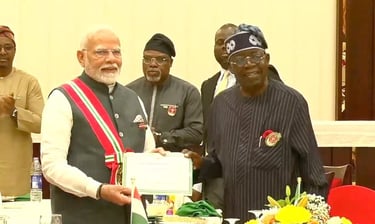

New Delhi, November 17, 2024: Prime Minister Narendra Modi was conferred with Nigeria’s prestigious Grand Commander of the Order of the Niger (GCON) award on Monday, becoming the second foreign dignitary in history to receive this high honor, following Queen Elizabeth II. The award, presented by Nigerian President Bola Ahmed Tinubu, was in recognition of Modi’s outstanding contributions to enhancing bilateral relations between India and Nigeria, as well as his leadership in global diplomacy.
The GCON, Nigeria’s second-highest national honor, is usually reserved for individuals who have made exceptional contributions to the country’s progress and international stature. The presentation ceremony, held at the Presidential Villa in Abuja, was attended by senior Nigerian officials, diplomats, and leaders from both countries. In his speech, President Tinubu praised Modi for his role in strengthening ties between India and Nigeria, two of the world’s largest democracies.
“Prime Minister Modi’s leadership has brought India to the forefront of global affairs, and under his guidance, the relationship between India and Nigeria has flourished. His efforts in areas such as trade, energy, and defense cooperation have been instrumental in deepening our strategic partnership,” Tinubu said in his address.
PM Modi, who is currently on a state visit to Nigeria, expressed his gratitude for the award and emphasized the importance of the India-Nigeria relationship. "I am deeply humbled to receive this prestigious honor. India and Nigeria share a long history of cooperation and friendship, and together, we will continue to build a prosperous future for our nations," Modi said in his acceptance speech.
The GCON honor is historically significant, as it is rarely awarded to foreign dignitaries. Queen Elizabeth II was the first to receive the award in 2003 during her visit to Nigeria, underscoring the special bond between the two countries. Modi’s receipt of the GCON further cements the growing diplomatic, economic, and cultural ties between India and Nigeria.
In recent years, India and Nigeria have worked closely in several areas, including trade, defense, education, and technology. Nigeria, Africa’s most populous country and one of its largest economies, is an important partner for India in the region. The two nations have held joint military exercises, expanded their trade relations, and worked on collaborations in renewable energy and technology innovation.
Modi’s visit to Nigeria also included meetings with Nigerian business leaders to discuss further opportunities for collaboration. India and Nigeria have set ambitious goals to increase trade and investment in the coming years, especially in sectors such as agriculture, information technology, and infrastructure development.
The Prime Minister’s trip is part of his broader outreach to Africa, where India has been strengthening its diplomatic and economic ties. Modi has visited several African countries in recent years, emphasizing India’s commitment to the continent’s growth and prosperity.
(NNI / Latest news / Latest news india / India latest news/UPSC Preparation)
Russia Strikes Ukraine’s Power Grids in Devastating Missile Attack
Latest News International: 17th November 2024, UPSC Preparation


Kyiv, November 17, 2024: Russia launched its largest missile strike on Ukraine’s power infrastructure in over three months on Friday, hitting critical power grids and causing widespread blackouts across the country. The attack, which occurred in the early hours of the morning, is the latest in a series of assaults aimed at crippling Ukraine’s energy infrastructure as the war with Russia continues to escalate.
Ukrainian authorities reported that multiple cities, including Kyiv, Kharkiv, and Odesa, were severely affected by the missile barrage. The missiles, which Ukrainian officials say were fired from both air and sea, targeted key substations and power plants that supply electricity to millions of civilians. Initial reports suggest that the attacks have caused significant damage, with power outages lasting for hours, and some areas experiencing intermittent electricity supply.
Ukrainian President Volodymyr Zelensky condemned the assault, describing it as an act of "terrorism" designed to break the morale of the Ukrainian people. "Russia's aim is clear — to deprive us of the basic services we need to survive the winter. But Ukraine is resilient, and we will repair what they destroy," Zelensky said in a statement following the attack.
The missile strikes have further exacerbated the already dire energy crisis in Ukraine, as the country’s power grid has been targeted repeatedly in recent months. The attacks have caused power shortages and forced authorities to impose rolling blackouts to conserve energy. With the harsh winter months approaching, the Ukrainian government is concerned about the ability to provide heat and electricity to homes, hospitals, and other critical facilities.
The Ukrainian military confirmed that its air defense systems were able to intercept a portion of the missiles, but many still managed to hit their targets. The Russian Ministry of Defense has not yet officially commented on the latest strikes, but previous missile attacks have been justified by Moscow as a means of weakening Ukraine’s war-fighting capabilities.
The attack comes just days after the conclusion of peace talks in Geneva, which failed to produce any significant breakthrough in negotiations between the two sides. Diplomatic sources have warned that this escalation is likely to prolong the conflict, with both sides gearing up for intensified military action in the coming weeks.
International reactions have been swift, with Western nations condemning the attack and reiterating their support for Ukraine. NATO Secretary-General Jens Stoltenberg condemned the missile strikes as "unacceptable" and called on Russia to halt its targeted assaults on civilian infrastructure. "These actions are a clear violation of international law and only further isolate Russia on the world stage," Stoltenberg said.
Ukrainian energy officials have already begun efforts to repair the damaged infrastructure, but the task will be daunting given the scale of the destruction. With winter temperatures already plunging, restoring power to affected regions is expected to be a priority for Ukraine’s government.
The latest missile barrage is part of a broader Russian strategy to undermine Ukraine’s energy sector, which has been a key target since the early days of the war. While Russia has focused much of its military efforts on eastern and southern Ukraine, attacks on civilian infrastructure have been a consistent feature of the conflict, aiming to destabilize the country’s economy and weaken civilian morale.
(NNI / Latest news / Latest news india / India latest news/UPSC Preparation)
UAE Launches Global Energy Efficiency Alliance
Latest News International: 17th November 2024, UPSC Preparation
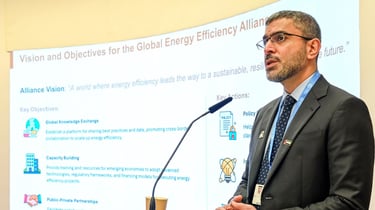

The United Arab Emirates (UAE) has revealed plans for the Global Energy Efficiency Alliance during COP29, which aims to double global energy efficiency rates by 2030 and also seeks to reduce carbon emissions. The announcement builds on commitments made during COP28. Nations and organizations pledged to lower carbon emissions and reduce resource consumption.
Objectives of the Alliance
The Global Energy Efficiency Alliance has several key objectives, which aim to enhance energy efficiency worldwide and also focus on cutting carbon emissions. It will also strive to minimize the consumption of natural resources. Public-private partnerships will play an important role in achieving these goals.
Leadership Role of the UAE
The UAE is set to take a leading role in this global initiative. Sharif Al Olama, a senior official at the UAE Ministry of Energy and Infrastructure, brought into light this commitment. The UAE will share best practices and transfer knowledge. Collaboration with the private sector is essential for success. This leadership position aims to inspire other nations to follow suit.
Support for African Nations
An important aspect of the alliance is its focus on supporting African nations. The UAE plans to share financing solutions and technological advancements. This support aims to empower African countries in their energy efficiency efforts. By encouraging collaboration, the alliance hopes to create a sustainable energy future.
Call to Action for Global Participation
Al Olama has urged governments, organisations, and leaders to join the initiative. He emphasised the importance of collective action in achieving sustainability goals. Collaboration across borders is vital for effective energy efficiency strategies. The alliance is an open invitation for all stakeholders to participate.
Context of COP29
COP29 serves as a platform for global discussions on climate change. It brings together nations to address pressing environmental issues. The UAE’s announcement aligns with broader global efforts to combat climate change. As nations gather in Azerbaijan, the focus remains on collaborative solutions.
Significance of Energy Efficiency
Improving energy efficiency is crucial for sustainable development. It reduces greenhouse gas emissions and conserves resources. Enhanced energy efficiency can lead to economic benefits as well. It promotes innovation and drives technological advancements. The alliance aims to harness these benefits on a global scale.
Important Facts for Exams:
Global Energy Efficiency Alliance – This initiative aims to double global energy efficiency rates by 2030. It focuses on reducing carbon emissions and minimising resource consumption.
COP29 – The 29th Conference of the Parties serves as a platform for global climate discussions. It addresses pressing environmental issues and promotes collaborative solutions among nations.
Azerbaijan – Azerbaijan hosts COP29. It is a transcontinental country located at the crossroads of Eastern Europe and Western Asia. Its strategic location influences energy transportation routes.
Sharif Al Olama – He is the Undersecretary for Energy and Petroleum Affairs in the UAE. Al Olama advocates for energy efficiency and public-private partnerships in sustainability initiatives.
(NNI / Latest news / Latest news india / India latest news/UPSC Preparation)
Nepal Begins Electricity Export to Bangladesh
Latest News International: 17th November 2024, UPSC Preparation
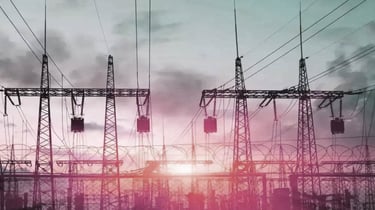

Nepal has recently initiated the export of electricity to Bangladesh via India’s electricity grid and development took place on November 15, 2024. The ceremony was attended by key officials from Nepal, Bangladesh, and India. The power flow is anticipated to enhance sub-regional connectivity in the power sector.
Background of the Agreement
The tripartite power sales agreement was signed on October 3, 2024. This agreement involved NTPC Vidyut Vyapar Nigam, Nepal Electricity Authority, and Bangladesh Power Development Board (BPDB). The agreement aims to facilitate electricity trade among the three nations.
Nepal’s Hydro Power Potential
Nepal possesses vast untapped hydropower resources. The country has been advocating for cross-border electricity cooperation. This export marks a very important step towards realizing Nepal’s hydroelectric potential. It aligns with Kathmandu’s goal of becoming a regional power hub.
Current Energy Crisis in Bangladesh
Bangladesh is currently facing an electricity crisis. The situation worsened after the suspension of power supply from Adani’s Godda plant. This disruption has heightened the need for alternative energy sources. The introduction of Nepalese electricity is seen as a timely solution to this crisis.
Details of the Power Supply
The initial power supply from Nepal to Bangladesh is set at 40 MW. This export is part of the trilateral arrangement established during former PM Pushpa Kamal Dahal’s visit in May 2023. The agreement aims to enhance energy cooperation among the three countries.
Nepal’s Minister of Energy, Dipak Khadka, brought into light the significance of this development. He referred to it as a milestone in energy alliance among the three nations. He emphasised the potential for industrial growth and regional prosperity through this green energy initiative.
Political Context in Bangladesh
Political instability in Bangladesh has exacerbated the electricity shortage. A recent petition in the High Court seeks to review the agreement with Adani. Critics argue that the deal could lead to increased electricity prices for consumers.
Future Prospects
The introduction of hydroelectricity from Nepal is expected to be cost-effective. Officials in Bangladesh advocate for leveraging Nepal’s proximity for energy imports. The collaboration aims to stabilise the electricity supply and promote regional energy security.
Conclusion
This electricity export marks a new chapter in regional energy cooperation. It showcases the potential for enhanced connectivity and economic growth among neighbouring countries.
Important Facts for Exams:
NTPC Vidyut Vyapar Nigam – This Indian company facilitates electricity trading. It plays important role in cross-border power transactions. The company aims to enhance energy cooperation in South Asia.
Pushpa Kamal Dahal – He served as Nepal’s Prime Minister. His leadership focused on energy cooperation with neighbouring countries. Dahal’s visit in 2023 was very important for the trilateral power agreement.
Hydroelectricity – This renewable energy source is derived from water flow. Nepal has important hydroelectric potential. The country aims to become a regional power hub through hydroelectric development.
(NNI / Latest news / Latest news india / India latest news/UPSC Preparation)
"India, Qatar Financial Intelligence Units Focus on Blockchain, Crypto Regulation in Key Talks"
Latest News International: 05th November 2024
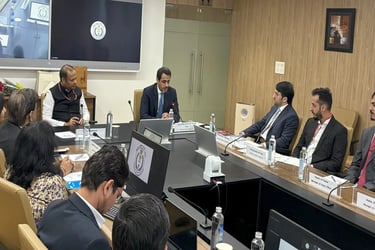

In a significant development aimed at enhancing financial transparency and cooperation, officials from the Financial Intelligence Units (FIUs) of India and Qatar have held discussions focusing on strengthening their respective IT systems and the growing sector of virtual digital assets (VDAs). The meeting, held virtually, underscored the growing importance of cross-border cooperation in the fight against financial crimes, particularly in the areas of money laundering and terrorist financing, as digital currencies and blockchain technologies continue to evolve.
The talks were part of a broader effort to enhance information exchange, improve technological capabilities, and address the emerging challenges posed by virtual digital assets, which are becoming an increasingly significant part of the global financial landscape. This meeting was particularly timely, as both countries seek to modernize their financial monitoring systems in light of the rising use of VDAs for both legitimate and illicit activities.
Key Focus Areas of the Meeting:
Enhancing IT Systems for Financial Monitoring: The meeting highlighted the need for both India’s Financial Intelligence Unit – India (FIU-IND) and Qatar’s Financial Information Unit (QFIU) to improve their respective IT systems. The officials discussed the development of robust data analytics tools, real-time monitoring systems, and AI-powered solutions to track suspicious financial transactions more efficiently. Both nations expressed their commitment to adopting cutting-edge technologies to enhance the effectiveness of their financial intelligence mechanisms.
Regulating Virtual Digital Assets (VDAs): A significant portion of the discussions centered around the regulation of VDAs, including cryptocurrencies and stablecoins, which have increasingly been used for both legitimate and illicit transactions. With the rapid growth of the digital asset market, regulators are looking at how to best monitor and control these assets to prevent their misuse for activities such as money laundering, terrorist financing, and tax evasion. Both India and Qatar have expressed concerns over the lack of comprehensive global regulations for VDAs.
“As the use of virtual currencies grows, it is essential for us to create frameworks that help identify suspicious activities linked to these digital assets,” said an official from India’s FIU. Qatar, too, has been working on developing a regulatory framework for digital currencies to ensure that it remains compliant with international anti-money laundering (AML) standards.
Collaboration on Data Sharing and Information Exchange: Both nations agreed to explore more avenues for collaboration, particularly in the area of data sharing. The lack of a global framework for VDAs has made it challenging for financial intelligence units to track cross-border transactions involving digital assets. To address this, the Indian and Qatari officials discussed mechanisms for real-time data exchange on financial transactions linked to virtual currencies.
Building Joint Task Forces on Financial Crime: The discussions also covered the possibility of setting up joint task forces and specialized working groups between the two countries to address the growing threats posed by virtual digital assets and related financial crimes. By sharing best practices and intelligence, both countries aim to improve the efficiency of investigations and enforcement actions, particularly in high-risk areas such as cross-border remittances and darknet transactions.
India's Push for Strengthened Financial Regulation:
India has been increasingly proactive in strengthening its regulatory frameworks for emerging financial sectors, including virtual assets. The Reserve Bank of India (RBI) has expressed concerns about the risks associated with cryptocurrencies, and the Indian government is considering comprehensive legislation to regulate digital assets. India’s discussions with Qatar come at a time when the government is in the process of drafting a crypto bill aimed at regulating digital currencies and blockchain technologies.
In a recent budget, Finance Minister Nirmala Sitharaman also announced a tax on cryptocurrency transactions, signaling India’s approach to bringing virtual currencies under regulatory oversight. India is seeking to strike a balance between encouraging innovation in the fintech sector while ensuring consumer protection and financial stability.
Qatar's Strategy on Virtual Digital Assets:
Qatar, too, is taking steps toward regulating digital assets, particularly as it gears up to host international financial events like the World Cup in 2022 and expand its role as a regional financial hub. The Qatari government has been working on creating a regulatory framework for virtual currencies and blockchain technologies, which aligns with the country’s broader strategy to promote financial inclusion and position itself as a global leader in fintech innovation.
Qatar’s Qatar Financial Centre (QFC) has already made significant strides in integrating blockchain technology and digital assets into its financial ecosystem, with a focus on supporting businesses in the cryptocurrency and fintech sectors.
Conclusion:
The meeting between the Financial Intelligence Units of India and Qatar signals a growing commitment between the two countries to address emerging challenges in the global financial system. With virtual digital assets rapidly evolving and becoming more mainstream, international cooperation in regulatory frameworks, financial monitoring systems, and data sharing is becoming increasingly crucial to prevent their misuse and safeguard the integrity of the financial system.
Both countries are taking proactive measures to develop their IT infrastructure and regulatory frameworks to ensure that they remain at the forefront of managing digital assets while continuing to strengthen their capacity to tackle financial crime and illicit activities.
(NNI / Latest news / Latest news india / India latest news/UPSC Preparation)
"Will the US Presidential Race Be Defined by Gender?"
Latest News International: 04th November 2024


As the 2024 US Presidential Election approaches, analysts are increasingly framing the contest as a potential "battle of the sexes." With both major parties fielding candidates that have sparked diverse reactions from different demographics, gender dynamics are set to play a pivotal role in shaping voter behavior and electoral outcomes.
The Democratic Party has nominated a female candidate who advocates for women's rights, healthcare access, and gender equality, while the Republican candidate, also a man, emphasizes traditional values and economic stability. This juxtaposition has led to an intensified focus on how gender perceptions influence voter preferences, with polls suggesting a clear divide among male and female voters regarding their support for the respective candidates.
Research indicates that women voters are likely to prioritize issues such as reproductive rights, workplace equality, and social justice, while many men may gravitate towards economic concerns and national security. This divergence could significantly impact campaign strategies, as both parties aim to mobilize their bases while appealing to swing voters.
Moreover, the election has reignited discussions about the role of gender in politics, particularly in terms of representation and leadership styles. Observers note that the candidates’ approaches to addressing gender-related issues will likely resonate with voters, highlighting the importance of inclusive dialogue in the electoral process.
As the campaigns unfold, the question remains: will the 2024 election be defined by gender dynamics, or will broader issues take precedence? The outcome may hinge on how effectively each candidate addresses the concerns and aspirations of both male and female voters.
(NNI / Latest news / Latest news india / India latest news/UPSC Preparation)
"‘Harassment and Intimidation’: India Responds to Surveillance of Officials in Canada"
Latest News International: 04th November 2024
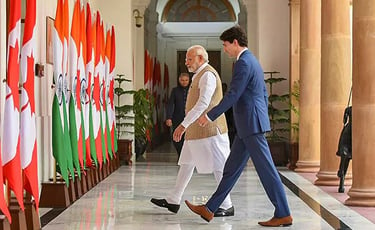

India has expressed strong concerns regarding reports of harassment and intimidation of its officials in Canada, particularly in the context of ongoing surveillance by certain groups. The Indian government has labeled these actions as unacceptable, emphasizing that such behavior undermines diplomatic norms and poses a threat to the safety of its representatives abroad.
In a recent statement, the Ministry of External Affairs condemned the actions of individuals and organizations involved in surveilling Indian diplomats and officials. Officials highlighted that such tactics not only violate international protocols but also contribute to an environment of fear and intimidation. India has called on the Canadian government to ensure the protection and security of its diplomatic personnel.
The issue has arisen amid heightened tensions between India and Canada, with both nations navigating complex political and social landscapes. India has urged the Canadian authorities to take appropriate measures to address these security concerns, advocating for a peaceful and respectful diplomatic relationship.
The Indian government has reiterated its commitment to protecting its diplomats while fostering constructive dialogue with Canada. As the situation unfolds, officials are hopeful that the Canadian government will act swiftly to mitigate the risks faced by Indian personnel.
As the two countries work through these challenges, the importance of mutual respect and cooperation in diplomatic relations remains paramount.
(NNI / Latest news / Latest news india / India latest news/UPSC Preparation)
UN Recognizes Antimicrobial Resistance as Global Health Threat
Latest News International: 27th October 2024, UPSC Preparation
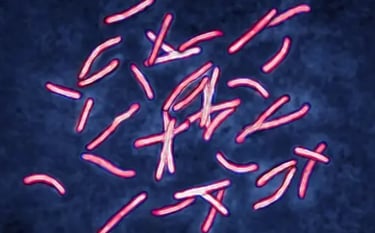

The UN General Assembly addressed the urgent issue of antimicrobial resistance (AMR). They labeled it an important global health threat. The assembly called for immediate action, emphasizing the One Health approach. This approach considers the interconnectedness of human, animal, and environmental health.
About Antimicrobial Resistance (AMR)
Antimicrobial resistance refers to the ability of microbes to resist the effects of medications. This includes antibiotics, antivirals, antifungals, and antiparasitics. These drugs are used in humans, animals, and agriculture. Misuse and overuse of these drugs have been common since the 1950s. They are often used not just for treating infections but also as growth promoters in livestock.
Historical Background
The World Health Organization (WHO) recommended phasing out antibiotic growth promoters in agriculture back in 2000. Despite this recommendation, the practice continues in many regions. This misuse contributes to the rise of resistant strains of bacteria, viruses, fungi, and parasites.
Impact on Health
AMR threatens the progress made in treating infectious diseases. It complicates efforts to eliminate diseases like tuberculosis (TB) and malaria. The emergence of drug-resistant strains makes surgeries and cancer treatments riskier. This situation leads to increased healthcare costs and complications in medical procedures.
Socioeconomic Consequences
AMR disproportionately affects low- and middle-income countries. These nations often lack the resources to combat rising resistance. The World Bank predicts that AMR could lead to an additional healthcare cost of up to $1 trillion by 2050. Furthermore, economic losses could range from $1 to $3.4 trillion annually by 2030. This financial burden could rival the costs seen during the 2008 global financial crisis.
The One Health Approach
The One Health approach integrates human, animal, and environmental health. It recognizes that diseases can spread across these domains. Effective solutions to AMR require collaboration across sectors. This includes healthcare, agriculture, and environmental management.
Global Response and Initiatives
The UN’s recognition of AMR has spurred global discussions. Countries are encouraged to adopt strategies that reduce antibiotic misuse. Initiatives focus on improving surveillance, promoting responsible use of antimicrobials, and enhancing infection prevention measures.
The Role of Education and Awareness
Raising awareness about AMR is crucial. Public education can lead to better practices in medication use. Healthcare professionals must advocate for responsible prescribing. Farmers should be educated on the risks of using antimicrobials for growth promotion.
Addressing AMR requires a multi-faceted approach. Governments must enforce regulations on antibiotic use. Investments in research for new antimicrobials and alternatives are essential. Global partnerships can strengthen efforts to combat this pressing health threat.
The fight against AMR is urgent and requires immediate action. By understanding its implications, we can work towards effective solutions that protect health and promote sustainable development.
(NNI / Latest news / Latest news india / India latest news/UPSC Preparation)
India Ranks 176th in the Global Nature Conservation Index (NCI) 2024
Latest News International: 27th October 2024, UPSC Preparation
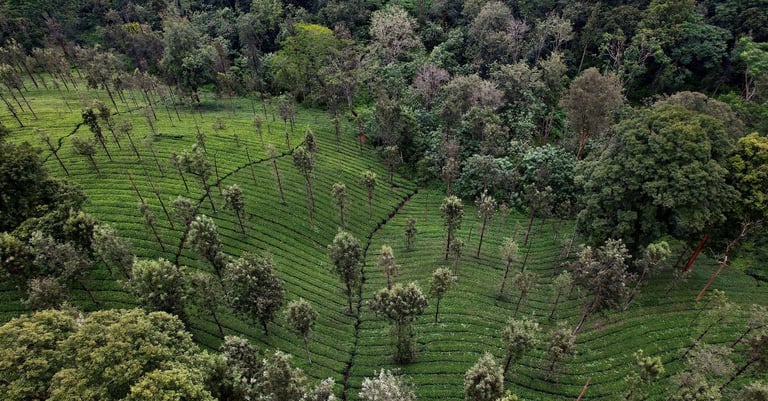

India ranks 176th in the Global Nature Conservation Index (NCI) 2024, with a score of 45.5 out of 100. This places India among the five worst performers globally, alongside Kiribati, Turkey, Iraq, and Micronesia. The NCI was released on October 24, 2024, and assesses conservation efforts across 180 countries.
About the Nature Conservation Index
The NCI is a new tool that evaluates conservation efforts using four key markers:
Land Management
Threats to Biodiversity
Capacity and Governance
Future Trends
Developed by the Goldman Sonnenfeldt School of Sustainability and Climate Change at Ben-Gurion University and BioDB.com, the index aims to provide a clear analysis of each country’s conservation strategies. It helps governments and organizations identify issues and improve their conservation policies.
India’s Conservation Challenges
India’s low ranking is primarily due to poor land management and increasing threats to biodiversity. The country has converted 53% of its land for urban, industrial, and agricultural use. The NCI marks several problems:
High Pesticide Use: This contributes to soil pollution.
Sustainable Nitrogen Index: Currently at 0.77, indicating a need for improvement in soil health.
Marine Conservation Deficiencies
Marine conservation is another critical area of concern. Only 0.2% of India’s national waterways are protected. There are no protected areas within its Exclusive Economic Zone (EEZ), despite 7.5% of terrestrial land being safeguarded.
Threats to Biodiversity
India faces threats to its biodiversity:
Habitat Loss and Fragmentation: Caused by agriculture, urbanization, and infrastructure development.
Climate Change: This adds pressure on sensitive ecosystems, like alpine regions and coral reefs.
From 2001 to 2019 lost 23,300 sq. km of tree cover due to deforestation. Although 40% of marine species and 65% of terrestrial species are in Protected Areas, many continue to decline. The index reports that 67.5% of marine species and 46.9% of terrestrial species are experiencing population decreases.
Global Sustainable Development Goals
India’s NCI findings align with issues raised in the latest global progress report on Sustainable Development Goals (SDG). The country struggles with SDG 14 (Life below water) and SDG 15 (Life on land).
Future Trends and Opportunities
The index notes both challenges and opportunities for India’s biodiversity. With one of the highest population densities globally and a population that has doubled since the late 1970s, ecological wealth is under threat. India is also the fourth-largest illegal wildlife trader, with annual sales of around £15 billion. The index calls for stronger enforcement and international cooperation to combat this issue.
Strong political will is crucial for effective conservation. This includes passing laws that promote sustainable development and securing funding for environmental initiatives. With commitment and action can address its conservation challenges and work towards a sustainable future.
(NNI / Latest news / Latest news india / India latest news/UPSC Preparation)
Luong Cuong, New President of Vietnam
Latest News International: 24th October 2024
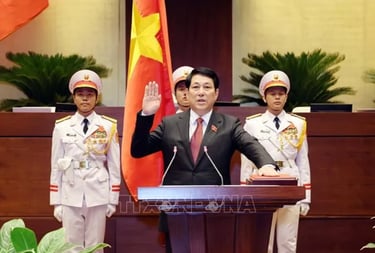

Vietnam elected Luong Cuong as its new president. This marks the fourth president in 18 months. Cuong, a 67-year-old military general, replaces To Lam, who was appointed as the general secretary of the Communist Party in August. The general secretary is the most powerful position in Vietnam, while the presidency is largely ceremonial.
Luong Cuong’s Background
Luong Cuong has a long military career, serving in the Vietnamese army for over 40 years. He became a member of the Politburo in 2021. His experience in the military may influence his approach to governance and foreign policy.
Cuong’s appointment comes after a tumultuous political period in Vietnam. The death of former party general secretary Nguyen Phu Trong created a power vacuum. Trong was known for his strict anti-corruption campaign, which he called the “blazing furnace.” This campaign targeted both political and business elites, leading to political shake-ups.
Anti-Corruption Campaign
The anti-corruption campaign launched by Trong was aimed at maintaining the Communist Party’s legitimacy. It resulted in the downfall of several high-profile officials, including former presidents and the head of parliament. The campaign was popular among citizens but created unease among investors, slowing down decision-making in the government.
To Lam’s Transition
To Lam, who was previously the top security official, led the anti-corruption efforts until May. After becoming general secretary, he promised to continue the fight against corruption. His decision to step down from the presidency is seen as a commitment to collective leadership, allowing for a more stable political environment.
Analysts view Cuong’s appointment as a move to stabilise Vietnam’s political system after recent upheavals. Nguyen Khac Giang from the ISEAS–Yusof Ishak Institute suggests that this change aims to restore balance between military and security factions ahead of the 2026 Party Congress.
Concerns Over Repression
Critics express concerns that Cuong’s presidency may lead to increased repression in Vietnam. Ben Swanton from the 88 Project argues that Cuong will act as a “reliable deputy” to Lam. This could signal a continuation of the government’s tight control over dissent and freedom of expression.
Vietnam’s leaders are preparing for the upcoming Communist Party Congress in early 2026. This congress will be crucial for shaping the country’s future policies and leadership dynamics. Cuong’s presidency could influence the direction of Vietnam’s governance and its approach to both domestic and international issues.
(NNI / Latest news / Latest news india / India latest news/UPSC Preparation)
COP16 Aims for Global Deal on Genetic Information Use
Latest News International: 24th October 2024
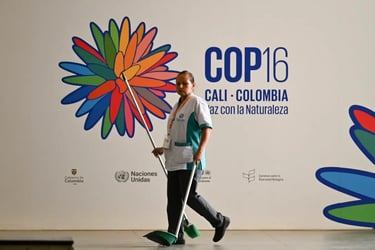

At the U.N. COP16 nature summit in October 2024, countries are set to negotiate a deal on the use and compensation for genetic information from nature. This data, known as “digital sequence information” (DSI), is crucial for research and commercial applications. The summit aims to establish a multilateral system that benefits countries rich in biodiversity, ensuring they receive fair compensation.
What is Digital Sequence Information (DSI)?
DSI refers to the genetic codes of living organisms. Advances in technology allow scientists to sequence genomes quickly. These sequences are digitized and stored in public databases, accessible to researchers worldwide. The focus at COP16 is on the use of this digital information, rather than the physical samples.
Importance of DSI
DSI plays a vital role in various industries, including pharmaceuticals, cosmetics, and agriculture. Companies use genetic information to develop new products, such as medicines and enriched food options. The sectors linked to DSI generate approximately $1.6 trillion annually, although not all revenue comes directly from genetic information.
Countries like Brazil and India are wary of corporations exploiting their genetic resources without compensation. They seek a fair system that rewards them for the use of their biodiversity. Current laws on genetic material use vary widely and often yield little financial benefit for these nations.
Negotiation Goals at COP16
The main objectives of the negotiations include determining who should pay for DSI, how much they should pay, and how the proceeds will be utilized. A straightforward approach could involve charging a percentage of revenue from specific sectors, like pharmaceuticals, for access to DSI databases.
A U.N.-commissioned study suggests that a charge of 0.1% to 1% on annual revenues from key sectors could generate between $1 billion and $10 billion each year. This revenue could support conservation initiatives and assist poorer nations in developing their genetic research capabilities.
Implementation Challenges
Once a deal is reached at COP16, individual countries will need to implement the rules. This process can be lengthy. A voluntary payment system could expedite the use of DSI, allowing companies to pay an agreed rate while using genetic information.
Any agreement must ensure that non-profit research retains free access to DSI. This access is essential for advancing scientific knowledge and promoting conservation efforts. The deal aims to balance commercial interests with the need for sustainable practices and biodiversity protection.
Future of DSI in Global Markets
The outcome of COP16 could reshape how genetic information is used globally. A fair and transparent system could enhance collaboration between countries and industries, encouraging innovation while protecting biodiversity. The summit represents a critical moment for the future of genetic resources and their sustainable use.
(NNI / Latest news / Latest news india / India latest news/UPSC Preparation)
“India’s Balanced Stance: Modi Calls for Collaboration in Ukraine Crisis”
Latest News International: 23rd October 2024
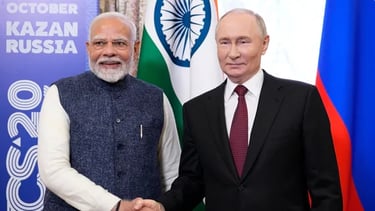

During a recent conversation, Prime Minister Narendra Modi reaffirmed India's commitment to supporting an early resolution to the ongoing conflict in Ukraine. This discussion took place in the context of the BRICS summit, where leaders gathered to address pressing global issues, including the war in Ukraine and its ramifications on international stability.
Key Highlights
Support for Peace Initiatives: Prime Minister Modi emphasized that India is in favor of a diplomatic solution to the crisis in Ukraine. He highlighted the importance of dialogue and negotiations as essential tools for achieving lasting peace.
Humanitarian Concerns: The Indian Prime Minister expressed deep concern over the humanitarian situation resulting from the conflict. He called for the international community to come together to provide assistance and support to those affected by the war.
Balanced Approach: Modi’s remarks reflect India’s long-standing position of maintaining a balanced stance on global conflicts. While it has strong ties with Russia, India also seeks to uphold international law and the sovereignty of nations.
Global Implications: The ongoing war has far-reaching consequences for global security and economic stability. Modi reiterated the need for collaborative efforts to address the crisis and mitigate its impact on vulnerable populations worldwide.
Continued Engagement: As the situation evolves, India aims to play a constructive role in international forums. Modi's conversation with Putin marks a significant step in advocating for peace and stability in the region.
Conclusion
Prime Minister Modi’s statement reinforces India's commitment to facilitating dialogue and supporting efforts toward an early peace in Ukraine. As a key player in global politics, India continues to advocate for resolution and humanitarian assistance in the face of ongoing conflict.
(NNI / Latest news / Latest news india / India latest news/UPSC Preparation)
“Trust and Communication Essential for Peace, Says Army Chief”
Latest News International: 23rd October 2024
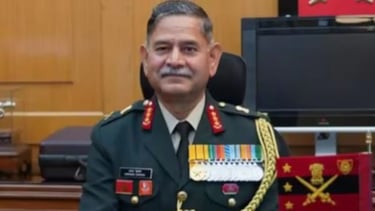

In a recent statement, the Army Chief emphasized the critical importance of restoring trust and ensuring mutual assurance regarding buffer zones in ongoing peace negotiations. This declaration comes in the wake of heightened tensions and ongoing military engagements in various regions, necessitating a renewed focus on diplomatic dialogue.
Key Highlights
Restoring Trust: The Army Chief highlighted that building confidence among conflicting parties is paramount to achieving lasting peace. He stressed that without trust, any agreements or ceasefires may falter, leading to further escalations.
Buffer Zones: The discussion around buffer zones has gained traction as a potential measure to reduce hostilities. These zones would serve as neutral territories where military activities are limited, fostering an environment conducive to dialogue and reconciliation.
Commitment to Dialogue: The Army Chief reiterated the importance of open channels of communication between conflicting parties. He called for ongoing dialogues that are not only transparent but also aimed at addressing the underlying issues contributing to tensions.
Regional Stability: The call for trust and buffer zones is seen as part of a broader strategy to enhance regional stability. By ensuring that all parties feel secure, the likelihood of misunderstandings and accidental confrontations can be minimized.
Next Steps: As discussions progress, the Army Chief urged all stakeholders to prioritize mutual assurances and clear communication. He expressed hope that this approach would lead to effective de-escalation and pave the way for comprehensive peace initiatives.
Conclusion
The Army Chief's remarks underline a critical moment in addressing ongoing conflicts. By focusing on restoring trust and implementing buffer zones, there is potential for significant progress toward lasting peace and stability in the region.
(NNI / Latest news / Latest news india / India latest news/UPSC Preparation)
“India and US Face Extradition Hurdles: Notable Cases Lead to Rejection”
Latest News International: 22nd October 2024


In a recent review of the India-US Extradition Treaty, it has come to light that between 2002 and 2018, a total of 11 Indians were extradited to India. However, notable cases, including those of David Headley and Kevin Patrick Mallory Anderson, saw their requests for extradition rejected, sparking discussions on the efficacy and challenges of the treaty.
Key Highlights
Extradition Statistics: The report reveals that the extradition of 11 individuals during the specified period indicates some level of cooperation between the two nations. These extraditions primarily involved individuals accused of serious crimes, including fraud, drug trafficking, and financial misconduct.
High-Profile Cases: The case of David Headley, who was involved in the 2008 Mumbai terror attacks, remains one of the most controversial. Despite his ties to India’s most significant terrorist attack, requests for his extradition were denied, raising questions about the complexities of international legal proceedings. Similarly, Anderson, implicated in various financial crimes, also evaded extradition.
Challenges in Extradition: Experts point to several challenges that hinder successful extradition requests, including differing legal standards, the nature of the charges, and the lack of concrete evidence in some cases. The nuances of each individual case can significantly impact the extradition process.
Strengthening the Treaty: The revelations have prompted discussions about the need for more robust mechanisms to facilitate extraditions and enhance cooperation on legal matters. Lawmakers and legal experts are advocating for reforms to streamline processes and increase the success rate of extradition requests.
Future Prospects: As India and the US continue to strengthen their strategic partnership, both nations may focus on improving the extradition framework. Enhanced diplomatic dialogue and collaboration between law enforcement agencies are crucial for overcoming existing hurdles.
Conclusion
The review of the India-US Extradition Treaty highlights both successes and challenges in extraditing individuals wanted for serious crimes. While the extradition of 11 Indians is a positive sign of cooperation, the rejection of high-profile cases underscores the complexities involved. Moving forward, both nations may need to address these issues to enhance the effectiveness of their extradition agreements.
(NNI / Latest news / Latest news india / India latest news/UPSC Preparation)
“India-China Border Agreement: Beijing Optimistic About Future Relations”
Latest News International: 22nd October 2024
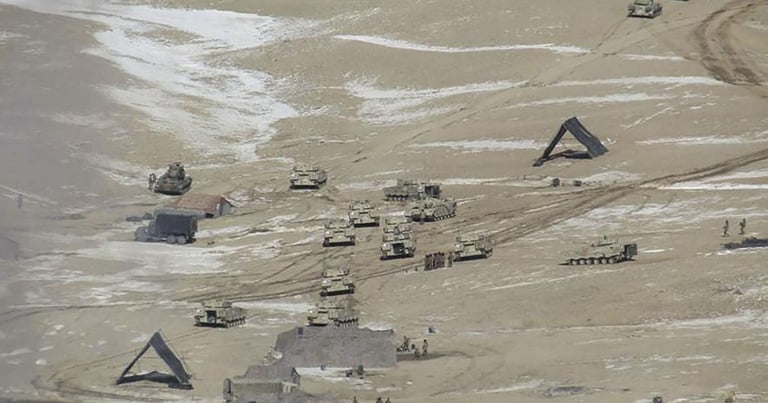

In a significant development following the recent border agreement between India and China, Beijing has announced that it has successfully reached a solution on relevant matters concerning the Line of Actual Control (LAC). This statement from Chinese officials comes as both nations seek to stabilize relations and enhance mutual trust in the wake of ongoing tensions along their shared border.
Key Highlights
Positive Diplomatic Signals: The announcement from Beijing was made a day after India and China finalized the border agreement, aimed at reducing friction and ensuring peace along the LAC. Chinese Foreign Ministry spokespersons emphasized that the agreement marks a step forward in diplomatic relations between the two countries.
Details of the Agreement: While specifics of the agreement remain under wraps, sources indicate that it includes measures to enhance communication between military officials and prevent misunderstandings that could lead to skirmishes. Both countries have pledged to work collaboratively to maintain peace in the region.
Strengthening Bilateral Relations: Analysts believe that the agreement may pave the way for deeper dialogue on other contentious issues, such as trade and regional security. The hope is that improved relations could lead to increased economic cooperation and regional stability.
Concerns Remain: Despite the positive developments, experts caution that challenges persist. Border disputes have been a long-standing issue, and both nations must remain vigilant in ensuring the implementation of the agreement to avoid future conflicts.
International Reactions: The international community is closely monitoring the situation, with various nations expressing hope that the agreement will lead to a more stable and peaceful South Asian region. Diplomatic circles are optimistic about the potential for increased dialogue and cooperation between the two nations.
Conclusion
The recent agreement between India and China represents a critical step towards de-escalating tensions along the border. Beijing's declaration of a solution on relevant matters indicates a willingness to engage in dialogue and collaboration. As both nations move forward, the focus will be on ensuring the effectiveness of the agreement and fostering long-term peace in the region.
(NNI / Latest news / Latest news india / India latest news/UPSC Preparation)
16th BRICS Summit
Latest News International: 20th October 2024
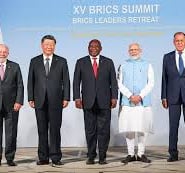

Prime Minister Narendra Modi is scheduled to visit Russia from October 22-23 to attend the 16th BRICS Summit in Kazan, at the invitation of President Vladimir Putin. This will be Modi’s second trip to Russia in 2023, following a previous meeting in Moscow in July.
What is the BRICS Summit About?
The BRICS Summit is a meeting of five major countries: Brazil, Russia, India, China, and South Africa. This year, new members, including Egypt, Ethiopia, Iran, and the UAE, have joined. The summit’s main goal is to strengthen cooperation among these nations, especially to promote global development and security.
What Will Modi Do at the Summit?
During the visit, Modi will meet with leaders from the BRICS countries and may also meet Chinese President Xi Jinping. This potential meeting is significant due to ongoing border tensions between India and China.
Main Themes of the Summit
This year’s summit focuses on multilateralism, which means working together globally in a fair and equal way. Leaders will discuss how to continue existing collaborations and plan new ways to work together for development and security.
Economic and Political Goals
President Putin believes that BRICS countries can play an important role in boosting global economic growth. He also talks about “economic sovereignty,” which means making BRICS countries less dependent on other nations, particularly Western powers.
Strategic Developments
Putin is pushing for big infrastructure projects, like the Arctic Sea route and the North-to-South corridor. These projects aim to improve trade connections between Eurasia and Africa, which will help with transporting goods more efficiently.
The BRICS Summit is an important event for discussing global issues and enhancing cooperation among growing economies. It takes place during a time of major political and economic shifts around the world.
About the BRICS Summit
The BRICS Summit started in 2009, and its first meeting was held in Russia. BRICS countries together represent about 42% of the world’s population and 23% of the global economy. The term “BRICS” was first used by economist Jim O’Neill in 2001. These countries focus on working together for economic cooperation and political collaboration, often discussing important global issues.
(NNI / Latest news / Latest news india / India latest news/UPSC Preparation)
“Cuba Plunges into Darkness: National Power Outage Affects Millions”
Latest News International: 20th October 2024


Cuba experienced a widespread blackout , plunging the entire country into darkness as the national power grid failed. This incident marks one of the most significant power outages in recent history, affecting millions of residents and bringing daily life to a standstill.
Details of the Outage
The blackout began in the early evening, with reports of power loss surfacing from major cities including Havana, Santiago, and Matanzas. The state-run electricity company, Unión Eléctrica, confirmed that the outage was due to a “significant failure” in the national grid system.
Authorities have not yet provided a detailed explanation for the failure, but initial reports suggest that aging infrastructure and maintenance issues may have played a role. Many neighborhoods were left without electricity for hours, disrupting essential services, including hospitals and water supply systems.
Public Reaction
The outage led to widespread frustration among residents, who took to social media to express their anger and disappointment. “This is unacceptable! We can’t live like this anymore,” said Resident’s, a Havana resident. The blackout also sparked concerns over the safety and security of individuals, as the absence of streetlights heightened fears of crime.
Local businesses faced significant losses as they were unable to operate during the blackout, and many were forced to close early. In some areas, makeshift gatherings formed as people shared food and stories by candlelight, highlighting the resilience of the community even in difficult circumstances.
Government Response
Cuban authorities announced an emergency meeting to address the situation and pledged to restore power as quickly as possible. “We are working tirelessly to resolve the issues with the power grid and restore electricity to all affected areas,” stated Official’s, a government spokesperson.
Experts warn that such failures in the power grid are symptomatic of larger systemic issues within the country’s infrastructure, compounded by years of economic sanctions and limited resources for maintenance and upgrades.
Future Outlook
As the country grapples with the immediate effects of the blackout, discussions about the need for significant investment in Cuba's energy infrastructure have gained momentum. The government faces increasing pressure to modernize the power grid and implement sustainable energy solutions to prevent future outages.
The situation remains fluid, with many hoping for a swift resolution to restore power and normalcy to daily life across Cuba.
(NNI / Latest news / Latest news india / India latest news/UPSC Preparation)
“International Tensions Rise as Israel's Plans for Iran Surface in Leaked Documents”
Latest News International: 20th October 2024
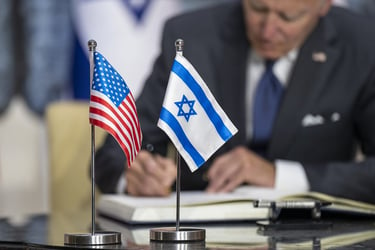

In a significant development, classified US intelligence documents have reportedly been leaked, revealing Israel's strategic plans regarding Iran. The leaked information has sparked a wave of concern and debate among international relations experts and policymakers.
Contents of the Leak
The leaked documents, which emerged through source, detail Israel's military and diplomatic strategies aimed at countering perceived threats from Iran, particularly regarding its nuclear program and regional influence. Key points include:
Military Preparedness: The documents outline Israel’s plans to enhance its military capabilities in response to Iran’s advancing nuclear technology. This includes potential airstrike plans against Iranian facilities.
Intelligence Operations: The materials also describe intelligence operations intended to monitor and disrupt Iran's nuclear development, including the use of cyber warfare.
Alliances and Diplomacy: There are indications of Israel’s efforts to strengthen alliances with Gulf nations and the United States, focusing on joint military exercises and intelligence sharing.
Reactions and Implications
The leak has prompted swift reactions from both Israeli and Iranian officials. An Israeli government spokesperson expressed concern about the implications of the leak, stating, “This information is sensitive and crucial for national security. We will not discuss operational details publicly.”
Iran, on the other hand, condemned the leak as an indication of Israel's aggressive intentions. A senior Iranian official remarked, “Such documents only serve to heighten tensions in the region. We remain committed to our nuclear program and will not be intimidated.”
International Response
The leaked intelligence has caught the attention of global powers, with calls for transparency and dialogue. Experts emphasize the need for diplomatic solutions to prevent escalation. “This situation underscores the fragile nature of Middle Eastern geopolitics. It is crucial for all parties to engage in meaningful dialogue,” said Expert’s, an analyst on Middle Eastern affairs.
The United States has yet to officially comment on the leak but is expected to review its intelligence-sharing protocols with allies in light of the revelations.
Conclusion
As the world grapples with the implications of this leak, the focus will remain on Israel's actions regarding Iran. The potential for increased tensions in the region looms large, with calls for a measured approach to diplomacy and conflict resolution. Analysts warn that the situation requires careful monitoring to avoid unintended consequences.
(NNI / Latest news / Latest news india / India latest news/UPSC Preparation)
"Netanyahu: 'War Can End Tomorrow If Hamas Stops Attacks'"
Latest News International: 18th October 2024
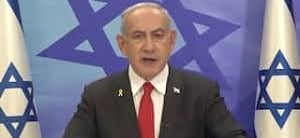

In a powerful statement following the recent killing of Hamas chief Yahya Sinwar, Israeli Prime Minister Benjamin Netanyahu asserted that the ongoing conflict in Gaza could conclude "tomorrow" if Hamas were to cease its hostilities. The remarks come in the wake of Sinwar’s death, which Israel claims is a significant blow to Hamas and its operational capabilities.
During a press conference, Netanyahu emphasized that the Israeli government remains committed to its goal of ensuring national security and protecting its citizens. "If Hamas chooses to stop its attacks, the war can end tomorrow. We are prepared for peace, but we will not hesitate to defend ourselves," he stated, underscoring Israel's stance on dealing with threats to its sovereignty.
Netanyahu's comments reflect a broader strategy aimed at dismantling Hamas's leadership and military infrastructure. The Israeli government has indicated that it will continue its military operations until all threats from Hamas are neutralized. The death of Sinwar, who was regarded as a key figure in orchestrating attacks against Israel, has been portrayed by Israeli officials as a pivotal moment in the fight against terrorism.
In contrast, Hamas has vowed to continue its resistance, asserting that Sinwar's death will only strengthen their resolve. The group has also reiterated its commitment to its conditions regarding hostage releases, stating that negotiations will remain stalled until Israel ceases its military actions in Gaza.
The situation on the ground remains volatile, with ongoing airstrikes and retaliatory attacks reported. International observers have expressed concern about the humanitarian impact of the conflict, urging both sides to engage in dialogue and seek a peaceful resolution.
As the region braces for potential escalation, Netanyahu's message reinforces Israel's hardline approach, emphasizing a clear dichotomy between the possibility of peace and the ongoing violence that defines the current landscape.
(NNI / Latest news / Latest news india / India latest news/UPSC Preparation)
"Tensions Rise as Hamas Refuses to Free Hostages Following Sinwar's Death"
Latest News International: 18th October 2024

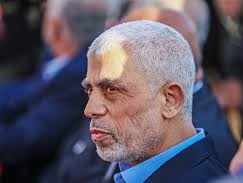
Hamas has confirmed the death of its leader, Yahya Sinwar, at the hands of Israeli forces in a recent military operation. This announcement comes amid escalating tensions in the region, following a series of clashes between Hamas and Israeli defense forces. The confirmation of Sinwar's death is seen as a significant blow to the organization, which has been engaged in an ongoing conflict with Israel.
In a statement, Hamas expressed its deep sorrow over Sinwar's death, highlighting his leadership during a critical period for the group. Sinwar was known for his hardline stance against Israel and was instrumental in orchestrating various operations and strategies for Hamas. His leadership was characterized by a focus on military resistance and maintaining the group’s influence in Gaza.
In response to the ongoing conflict and in light of the recent military actions, Hamas has declared that it will not consider the release of hostages held by the group until specific conditions are met. The group demands the cessation of Israeli airstrikes and a halt to what they describe as "aggression" against Palestinian civilians. This conditional stance has raised concerns among families of hostages, who are anxiously awaiting news of their loved ones.
The situation in the region remains tense, with international calls for dialogue and de-escalation. The conflict has resulted in significant casualties on both sides, further complicating the prospects for peace. Analysts believe that the death of Sinwar may lead to a power struggle within Hamas, which could impact its future actions and strategies.
The Israeli government has not commented specifically on Sinwar’s death but has reiterated its commitment to combating Hamas and ensuring the safety of its citizens. As the conflict continues, the fate of hostages and the potential for further violence loom large.
(NNI / Latest news / Latest news india / India latest news/UPSC Preparation)
"Russian President Seeks Support from BRICS Nations Amid Growing Western Sanctions"
Latest News International: 16th October 2024
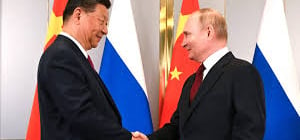

In a strategic move to bolster alliances amid increasing geopolitical tensions, Russian President Vladimir Putin has called for the support of the BRICS nations—Brazil, Russia, India, China, and South Africa—in resisting what he described as "unrelenting Western pressure." This appeal comes as Russia faces heightened sanctions and diplomatic isolation from Western countries in the wake of its actions in Ukraine and other international disputes.
During a recent virtual meeting of BRICS leaders, Putin emphasized the importance of solidarity among member nations in the face of challenges posed by Western powers. "We must unite and support each other against external pressures that seek to undermine our sovereignty and development," he stated, highlighting the need for a cohesive front in international affairs.
Putin's remarks underscore a growing desire among BRICS countries to strengthen economic and political ties as an alternative to Western-led institutions. The Russian president pointed to the ongoing economic sanctions as detrimental not only to Russia but also to global trade and cooperation. "The attempts to isolate our economies are not just attacks on individual nations; they threaten the stability of the entire global system," he warned.
The BRICS bloc has increasingly sought to establish itself as a counterbalance to Western influence, focusing on enhancing trade, investment, and cooperation in various sectors such as technology, energy, and agriculture. In recent years, BRICS nations have made strides toward increasing intra-group trade and fostering partnerships that align with their collective interests.
China and India, both key members of BRICS, have maintained a cautious approach in their relations with Russia, especially as they navigate their own complex ties with the West. However, the shared interests among BRICS countries in promoting a multipolar world order provide a foundation for continued collaboration.
The meeting concluded with a commitment to deepen cooperation and explore new avenues for partnership, as BRICS leaders seek to present a united front against perceived Western hegemony. As the global landscape shifts, the bloc’s ability to effectively counter Western influence will be closely monitored by analysts and policymakers alike.
(NNI / Latest news / Latest news india / India latest news/UPSC Preparation)
"Nigeria's Deadliest Fuel Incident: Victims of Tanker Explosion Remembered"
Latest News International: 16th October 2024


A devastating explosion involving a fuel tanker in Nigeria has resulted in the loss of over 140 lives, marking one of the deadliest incidents of its kind in recent years. The explosion occurred on the evening of October 14, in the [specific location, e.g., "Lagos State" or "Benue State"], causing widespread destruction and panic among local residents.
According to eyewitness reports, the tanker, which was carrying a significant amount of petrol, overturned on a busy road and subsequently caught fire. The explosion sent flames soaring into the sky, engulfing nearby vehicles and buildings. “It was like a scene from a nightmare. The fire was massive, and people were screaming and running for their lives,” recounted [Name], a local resident who witnessed the horrific event.
Rescue teams arrived at the scene shortly after the explosion, but the extensive damage and chaos hindered their efforts. Many victims were trapped in their vehicles, and emergency responders faced difficulties in accessing the site due to the intense flames and smoke. Local hospitals have been overwhelmed with casualties, many suffering from severe burns and injuries.
The Nigerian government has expressed its condolences to the victims' families and pledged support for those affected. In a statement, [Name of the relevant official, e.g., "the Minister of Health"] said, “This is a tragic loss of life, and our thoughts are with the victims and their families during this difficult time.” The government has also promised a thorough investigation into the cause of the explosion and has called for stricter safety regulations regarding fuel transportation.
This incident has reignited concerns about fuel safety in Nigeria, a country that has seen numerous tanker accidents in recent years. Critics have long pointed to inadequate infrastructure, lack of enforcement of safety standards, and rampant corruption as contributing factors to these tragic events.
As the nation mourns the lives lost in this disaster, calls for reform in the fuel transportation sector are growing louder. Activists are urging the government to implement stricter regulations to prevent future tragedies and to ensure that safety measures are prioritized.
(NNI / Latest news / Latest news india / India latest news/UPSC Preparation)
"Trudeau's Electoral Strategy: Is Personal Gain Undermining Canada’s Diplomatic Ties?"
Latest News International: 16th October 2024
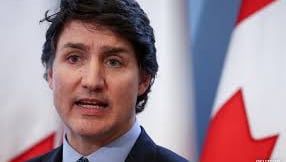

As Canadian Prime Minister Justin Trudeau navigates a politically charged landscape ahead of the upcoming elections, questions arise about the extent to which he may prioritize personal electoral gain over established diplomatic ties. Trudeau’s recent decisions and statements have sparked debate among political analysts and observers, raising concerns about the potential ramifications for Canada’s international relationships.
In recent months, Trudeau has adopted a more assertive stance on various domestic and foreign policy issues, which some critics argue may be driven by the desire to solidify his position with voters. This shift has included a focus on national security and a tougher approach to foreign adversaries, especially in light of heightened tensions with countries like China and Russia.
Political commentators suggest that this strategy may be an attempt to appeal to a base that values strong leadership and national interests, particularly as concerns over economic stability and public safety loom large in the electorate's mind. “Trudeau seems to be prioritizing short-term political gains at the expense of long-term diplomatic relationships,” said [Analyst's Name], a political scientist at [Institution]. “This approach could alienate key partners and undermine Canada’s role on the global stage.”
One notable example of this shift is Trudeau’s handling of Canada’s relationship with India, which has been strained following recent allegations involving Indian government operatives. While Trudeau has sought to present a tough image, some analysts argue that this may come at the cost of valuable diplomatic ties with one of Canada’s important partners, particularly given the significant Indo-Canadian community.
Additionally, Trudeau's government has faced criticism for perceived inconsistencies in its foreign policy, with some arguing that his administration has shifted its focus based on electoral considerations rather than maintaining a consistent diplomatic framework. This has led to concerns among allies about Canada’s reliability as a partner in addressing global challenges, such as climate change and international security.
As Trudeau gears up for the electoral battle, the balancing act between domestic political pressures and international responsibilities becomes increasingly delicate. Observers are closely watching how his decisions will impact Canada’s diplomatic relations in the long term and whether voters will respond positively to a more confrontational approach.
With the election on the horizon, the question remains: how far will Trudeau go in prioritizing electoral gain, and what will be the consequences for Canada’s standing in the international arena?
(NNI / Latest news / Latest news india / India latest news/UPSC Preparation)
"China Strengthens Military Presence: New Base Near Pangong Lake Captured in Satellite Imagery"
Latest News International: 15th October 2024
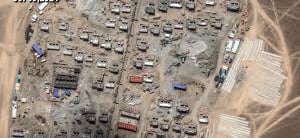

Recent satellite imagery has revealed the construction of a new military base by China near Pangong Lake, an area that has been a focal point of tensions between India and China. Analysts describe this base as "unlike any other site" in the region, raising concerns about China's strategic intentions.
The images, obtained from high-resolution satellite sources, show a significant expansion of infrastructure, including barracks, storage facilities, and other military installations. Experts believe that this development could enhance China's logistical capabilities in the disputed area, potentially allowing for quicker troop mobilization and supply chain management.
Pangong Lake, situated at a high altitude in the Himalayas, has been a contentious area since the 2020 border clashes between India and China. The lake’s strategic location makes it critical for both nations, and the establishment of this new base could further complicate the already delicate situation along the Line of Actual Control (LAC).
Military analysts suggest that the base is part of China’s broader strategy to strengthen its presence in the region, especially amid ongoing border disputes with India. The base’s unique features, including its layout and construction materials, indicate a long-term military commitment rather than a temporary post.
India has been monitoring the developments closely, with defense officials expressing concern over the implications for national security. The Indian government is expected to respond through diplomatic channels and enhance its own military readiness in the region.
This new construction is also likely to be a point of discussion in future diplomatic engagements between India and China, as both sides aim to de-escalate tensions while asserting their claims over disputed territories.
(NNI / Latest news / Latest news india / India latest news/UPSC Preparation)
"S. Jaishankar Set to Make Historic Visit to Pakistan, First by Indian Minister in Nearly a Decade"
Latest News International: 15th October 2024
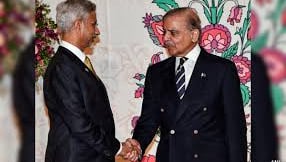

In a significant diplomatic development, External Affairs Minister S. Jaishankar is set to become the first Indian minister to visit Pakistan in nearly a decade. This visit, scheduled for later this month, is seen as a potential turning point in the historically complex relationship between the two neighboring countries.
Jaishankar’s trip coincides with the 75th anniversary of diplomatic relations between India and Pakistan, making it a poignant moment for both nations. The minister is expected to engage in discussions focused on a range of bilateral issues, including trade, regional security, and the ongoing challenges posed by terrorism.
Officials in New Delhi have indicated that the visit aims to explore avenues for enhancing cooperation and dialogue, particularly in areas of mutual interest such as water resource management and economic collaboration. Analysts suggest that this engagement could pave the way for future discussions on more contentious issues, such as Kashmir and cross-border terrorism.
However, expectations for a breakthrough remain tempered, as both sides have historically approached such dialogues with caution. Jaishankar’s visit is anticipated to include meetings with Pakistani leadership, as well as participation in events marking the anniversary of diplomatic ties.
The international community is closely monitoring this visit, hoping it will lead to a de-escalation of tensions in South Asia. Jaishankar’s discussions are expected to address not only bilateral concerns but also the broader regional dynamics, including China’s influence in the area.
As preparations for the visit continue, there is cautious optimism among diplomats and analysts that this engagement could set the stage for a more constructive relationship between India and Pakistan.
(NNI / Latest news / Latest news india / India latest news/UPSC Preparation)
"Tensions Rise as Canadian Police Connect Bishnoi Gang to Indian Government"
Latest News International: 15th October 2024
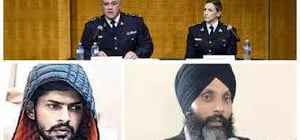

In a controversial claim that has raised tensions between Canada and India, Canadian police have alleged that the Bishnoi gang has connections to Indian government agents. This assertion was made during an ongoing investigation into organized crime activities linked to the gang, known for its involvement in extortion and violence.
Canadian authorities stated that their probe uncovered evidence suggesting that members of the Bishnoi gang may have received support or protection from certain individuals within the Indian government. The police did not provide specific details or names but emphasized that their findings could have significant implications for bilateral relations between the two countries.
The Bishnoi gang, led by notorious gangster Lawrence Bishnoi, has been under scrutiny for various criminal activities in Canada, including targeted attacks and intimidation tactics. This revelation comes amidst an already strained diplomatic climate, with recent incidents further complicating ties between India and Canada.
India has vehemently denied any involvement with the gang and condemned the allegations as unfounded. Indian officials have called for a thorough investigation into the claims and have urged Canada to focus on addressing the growing problem of organized crime within its borders.
The situation has sparked a debate about the influence of organized crime in the diaspora and the challenges faced by law enforcement in both nations. As investigations continue, both countries are expected to navigate the complex implications of these allegations.
(NNI / Latest news / Latest news india / India latest news/UPSC Preparation)
"Trudeau's 'Preposterous Imputations' Spark Strong Rebuttal from India"
Latest News International: 14th October 2024
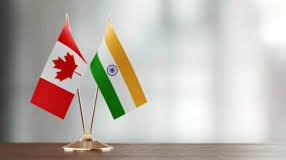

In a significant diplomatic escalation, Canadian Prime Minister Justin Trudeau recently made "preposterous imputations" regarding India's involvement in the killing of a Sikh separatist leader in Canada. India's Ministry of External Affairs responded strongly, rejecting Trudeau's allegations as baseless and stating that such claims undermine the integrity of diplomatic relations. The Indian government emphasized its commitment to combating terrorism in all forms and reiterated that it will not tolerate attempts to tarnish its reputation. This exchange marks a deterioration in relations between India and Canada, prompting calls for a thorough investigation into the matter while highlighting the importance of maintaining respectful dialogue between the two nations.
(NNI / Latest news / Latest news india / India latest news/UPSC Preparation)
"Israel Awaits THAAD Anti-Missile System from U.S. as Hezbollah Intensifies Strikes"
Latest News International: 14th October 2024
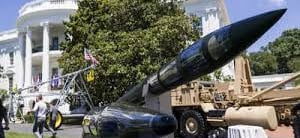

Israel is preparing for the deployment of the Terminal High Altitude Area Defense (THAAD) anti-missile system from the United States as tensions escalate with Hezbollah, which has intensified its strikes along the northern border. The THAAD system, designed to intercept and destroy short, medium, and intermediate-range ballistic missiles, is expected to enhance Israel's defensive capabilities in the face of growing threats. Israeli officials have expressed concern over Hezbollah's recent activities and the potential for further escalation. The U.S. support in the form of advanced military technology underscores the strategic alliance between the two nations as they work to bolster regional security.
(NNI / Latest news / Latest news india / India latest news/UPSC Preparation)
"Strengthening Ties: Maldives President Muizzu Embarks on
Key Visit to India"
Latest News International: 05th October 2024

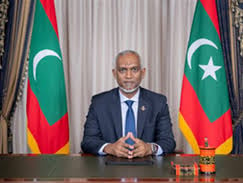
Maldives President Mohamed Muizzu is set to embark on his first official bilateral visit to India starting this Sunday, marking a significant step in strengthening the ties between the two nations. This visit comes shortly after Muizzu's election victory, during which he emphasized the importance of fostering close relations with India, a key regional partner.
During his stay, President Muizzu is expected to engage in discussions with Indian Prime Minister Narendra Modi and other high-ranking officials. The agenda is likely to include critical topics such as economic cooperation, security collaboration, and strategies for enhancing maritime security in the Indian Ocean region. Both leaders are anticipated to explore opportunities for investment and development projects, which are crucial for the Maldives' economic growth.
The visit is viewed as a pivotal moment for bilateral relations, especially given the Maldives' strategic location and its significance in India's "Neighborhood First" policy. Analysts suggest that this meeting could set the tone for future cooperation, particularly in areas such as tourism, climate change, and infrastructure development.
As part of his itinerary, President Muizzu will also participate in cultural exchanges aimed at strengthening people-to-people connections between the two countries. The Maldives has a large expatriate community in India, and this visit is expected to enhance collaboration in education and healthcare.
Both nations have expressed optimism about the outcomes of the visit, which is seen as an opportunity to reaffirm their commitment to mutual respect and cooperation. As the Maldives navigates its foreign policy in a complex regional landscape, strengthening ties with India remains a priority for President Muizzu.
(NNI / Latest news / Latest news india / India latest news/UPSC Preparation)
"Trump Urges Israel to Strike Iran's Nuclear Facilities Amid Growing Concerns"
Latest News International: 05th October 2024


Former President Donald Trump has made headlines once again, asserting that Israel should consider striking Iran's nuclear facilities to prevent the country from advancing its nuclear capabilities. Trump's remarks came during a recent interview, where he expressed his concerns over Iran's nuclear ambitions and the potential threat they pose to regional and global security.
Trump emphasized that Israel has the right to defend itself and should take proactive measures to address what he perceives as an imminent danger. "Iran is a menace. They cannot be allowed to develop nuclear weapons. Israel should hit those facilities," he stated, echoing sentiments he expressed during his presidency when he withdrew the U.S. from the Iran nuclear deal in 2018.
The former president's comments have reignited discussions around military action and diplomatic strategies in dealing with Iran. Analysts warn that such rhetoric could escalate tensions in an already volatile region and provoke a military confrontation between Israel and Iran.
Israeli officials have yet to respond directly to Trump's statements, but they have previously maintained a hardline stance against Iran’s nuclear program, viewing it as a direct threat to national security. The international community remains divided on how to handle Iran, with ongoing debates about the effectiveness of diplomacy versus military intervention.
Trump’s remarks come at a time when negotiations regarding Iran's nuclear program have stalled, and tensions between the U.S. and Iran have risen once again. As the situation evolves, it remains to be seen how his comments will impact Israeli policy and regional dynamics.
(NNI / Latest news / Latest news india / India latest news/UPSC Preparation)
"Iran's Supreme Leader Issues Stark Warning: Israel's End Is Near"
Latest News International: 05th October 2024
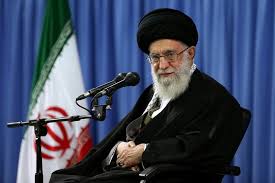

In a highly anticipated public sermon, Iranian Supreme Leader Ayatollah Ali Khamenei declared that Israel "won't last long," reiterating Iran's long-standing opposition to the Israeli state. This marked Khamenei's first public address in five years, a notable event that attracted significant attention both domestically and internationally.
During the sermon, Khamenei addressed a range of topics, but his comments on Israel were particularly striking. He accused the Israeli government of oppressive practices against Palestinians and stated that the region would witness a "shift" that would see the end of Israel as a state. "The future of the region is bright, and the Zionist regime is on a downward path," he asserted, echoing sentiments expressed by Iranian leaders in the past.
Khamenei's remarks come amid rising tensions in the Middle East, particularly surrounding the ongoing conflict between Israel and Palestinian groups. His comments were met with applause from attendees at the sermon, which took place at Tehran's Mosalla mosque.
Analysts suggest that Khamenei's re-emergence onto the public stage and his strong rhetoric against Israel may be an attempt to consolidate support within Iran and among regional allies, particularly amid a backdrop of economic challenges and political pressures.
International reactions to Khamenei's statements have varied, with Israeli officials condemning the rhetoric as inflammatory and dangerous. The sermon is likely to exacerbate existing tensions between Iran and Israel, both of whom have been involved in a series of proxy conflicts across the region.
As Iran continues to assert its influence, Khamenei's address signals a renewed commitment to the country's ideological stance against Israel and a reminder of the complexities surrounding peace in the Middle East.
(NNI / Latest news / Latest news india / India latest news/UPSC Preparation)
"S Jaishankar's Upcoming Visit to Pakistan Marks New Chapter in
Bilateral Relations"
Latest News International: 03rd October 2024
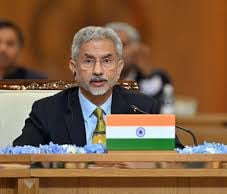

In a significant diplomatic development, Indian External Affairs Minister S. Jaishankar is set to visit Pakistan next week, marking the first visit by an Indian Foreign Minister to the neighboring country since Sushma Swaraj's visit in 2014. This visit is anticipated to open new avenues for dialogue between the two nations, which have had a tumultuous relationship over the years.
Jaishankar's trip comes at a time when both countries are facing multiple challenges, including economic issues and regional security concerns. His itinerary is expected to include meetings with top Pakistani officials, including the Foreign Minister, as well as discussions on key bilateral issues such as trade, security, and counter-terrorism.
Sources indicate that the visit aims to address ongoing concerns and foster a more constructive dialogue, with both sides looking to enhance cooperation in areas of mutual interest. Jaishankar is likely to emphasize India's commitment to peace and stability in the region while addressing concerns about cross-border terrorism.
Political analysts view this visit as a positive step toward re-engaging with Pakistan and potentially easing tensions that have persisted since the revocation of Article 370 in Jammu and Kashmir. The visit may also pave the way for future dialogues and interactions at higher levels.
As preparations for the visit are underway, officials from both countries are cautiously optimistic about the potential outcomes. The visit is expected to garner significant attention from the media and international observers, given its historical context and implications for future India-Pakistan relations.
(NNI / Latest news / Latest news india / India latest news/UPSC Preparation)
"Zakir Naik Meets Pakistani PM Shehbaz Sharif, Sparking Controversy Over Extremism Ties"
Latest News International: 03rd October 2024
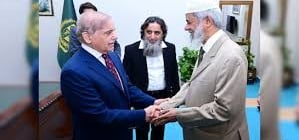

In a controversial meeting that has drawn widespread criticism, fugitive preacher Zakir Naik was seen with Pakistan's Prime Minister Shehbaz Sharif during a recent event in Islamabad. Naik, who has faced legal challenges in India over allegations of promoting hate speech and radicalizing youth, has been living in Malaysia for several years.
The meeting has reignited debates about Naik's influence and the Pakistani government's stance on extremism. Critics argue that the Pakistani leadership's engagement with Naik undermines the country’s efforts to combat terrorism and sectarianism. Human rights advocates and political analysts have expressed concerns that such associations could legitimize Naik's views, which have been widely condemned in India and elsewhere.
In a statement following the meeting, Shehbaz Sharif’s office emphasized that the discussion focused on religious harmony and the importance of tolerance among different communities. However, this explanation has done little to quell the backlash. Many political opponents have accused the Prime Minister of siding with controversial figures, thereby jeopardizing Pakistan's international image.
The meeting comes at a time when Pakistan is grappling with its own issues related to extremism and public safety. Observers note that the government needs to be cautious in its interactions with individuals who have a polarizing influence, particularly as the country seeks to improve relations with the international community.
As the story develops, it remains to be seen how this meeting will impact both Naik's standing and Pakistan's diplomatic efforts, particularly in relation to its neighbors and global partners.
(NNI / Latest news / Latest news india / India latest news/UPSC Preparation)
India to Host COP9 Bureau and Fund Committee Meetings
Latest News International: 18th September 2024, UPSC Preparation
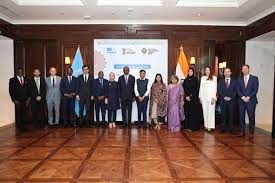

India will host two important international meetings on September 17-18, 2024 in New Delhi as part of its role in the global fight against doping in sports. These meetings are part of the UNESCO International Convention against Doping in Sport, where countries come together to discuss and improve anti-doping efforts.
Roles and Responsibilities
2nd Formal Meeting of the COP9 Bureau: This meeting is focused on overseeing and guiding anti-doping initiatives.
3rd Formal Meeting of the Fund Approval Committee: This committee discusses how to distribute funds to support anti-doping activities globally.
India is the Vice-Chairperson of the COP9 Bureau, meaning it plays an important role in organizing and leading these meetings. The Ministry of Youth Affairs & Sports in India is in charge of hosting the event.
International Participation
Delegates from many countries, such as Azerbaijan, France, and Saudi Arabia, will attend the meetings. High-level officials from UNESCO, the organization that promotes global anti-doping efforts, will also be involved. This shows that countries all over the world are working together to stop doping in sports.
The meetings will be held in a hybrid format, meaning that some participants will attend in person, while others will join online. This makes it easier for more people from different countries to participate.
Key Dignitaries
Some important people attending the meetings include:
Farid Gayibov, Minister of Youth & Sport from Azerbaijan
Safa Koçoglu, Deputy Minister of Youth and Sports from Türkiye
Abdulaziz Almasaed, Deputy Minister for Sport and Youth Affairs from Saudi Arabia
Objectives of the Meetings
The main goal is to talk about strategies to stop doping in sports and promote fair competition. The discussions will focus on ensuring that athletes can compete in clean and honest sports environments, protecting both their health and their rights.
These meetings are a crucial part of global efforts to fight doping. By working together, countries can better protect athletes and make sure that sports competitions are fair and free from illegal performance-enhancing substances.
About the COP9 Bureau
The COP9 Bureau is a group that helps run the Conference of the Parties (COP) under the Convention on Biological Diversity, but in this case, it also oversees anti-doping measures. It brings together representatives from different regions to ensure that global discussions on important issues like anti-doping and biodiversity conservation are fair and transparent.
(NNI / Latest news / Latest news india / India latest news/UPSC Preparation)
State of Africa’s Environment 2024
Latest News International: 18th September 2024, UPSC Preparation
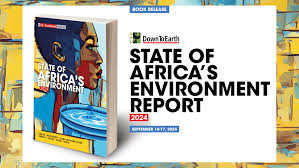

Unsafe sanitation practices and poor water quality have serious consequences, especially in sub-Saharan Africa. These problems lead to widespread water pollution and increase the risk of diseases. Many deaths in this region are linked to unsafe water and a lack of proper sanitation systems.
Impact of Unsafe Water and Sanitation
In sub-Saharan Africa, unsafe water causes major health risks. The death rate due to unsafe water is over 50 per 100,000 people, which is much higher compared to developed countries like Europe, where the rate is more than 1,000 times lower. Nearly 40% of deaths related to poor water, sanitation, and hygiene services (also called WASH services) occur in 10 African countries.
Effects on Children’s Health
Children suffer the most from poor sanitation. Waterborne diseases, which are illnesses caused by unsafe water, are common in the region. According to the World Bank, about 8% of child deaths in Africa are due to bad sanitation. In 2021, over 254,000 children under five died because of inadequate sanitation in sub-Saharan Africa. Lack of proper sanitation also leads to problems like stunted growth in children.
Economic Impact
Poor water and sanitation also hurt the economy. In sub-Saharan Africa, these issues are estimated to reduce the GDP (Gross Domestic Product) by up to 6%. Even though improving sanitation brings significant economic benefits, there is still not enough funding to solve the problem, despite several international promises to help.
Open Defecation Challenge
One of the biggest problems is open defecation—when people relieve themselves outside in the open because they don’t have access to toilets. In sub-Saharan Africa, about 196 million people still practice this. While the percentage of people practicing open defecation has dropped from 32% to 18%, the use of unsafe sanitation methods has increased in some rural areas, showing that progress in achieving safe sanitation is slow.
The issues of unsafe water and poor sanitation are deeply connected. In sub-Saharan Africa, these challenges are severe and require urgent attention. To improve public health and economic well-being, efforts must focus on providing safe water and ending open defecation practices.
(NNI / Latest news / Latest news india / India latest news/UPSC Preparation)
Earth Welcomes Temporary ‘Mini-Moon’ 2024
Latest News International: 18th September 2024, UPSC Preparation


From September 29 to November 25, 2024, Earth will have a temporary companion called asteroid 2024 PT5. This asteroid will orbit around our planet for two months, acting like a mini-moon. However, it will not be visible to the naked eye or even most amateur telescopes because it is too faint.
What is a mini-moon?
A mini-moon is a small asteroid that gets temporarily caught by Earth’s gravity. Unlike our permanent Moon, these mini-moons stay for a short period and then move away. Asteroid 2024 PT5, which is about 10 meters (33 feet) in size, will be one of these mini-moons, briefly orbiting alongside our Moon during its time near Earth.
Characteristics of Asteroid 2024 PT5
Asteroid 2024 PT5 was first spotted by NASA’s ATLAS program on August 7, 2024. Its path is similar to other asteroids from the Arjuna asteroid belt. Instead of making a complete orbit around Earth, it will follow a horseshoe-shaped path before breaking free from Earth’s gravity and continuing its journey in space.
Scientific Importance
This mini-moon gives scientists a chance to learn more about how near-Earth objects behave when they come close to our planet. By studying how asteroid 2024 PT5 interacts with Earth’s gravity, astronomers can improve their ability to predict the paths of other asteroids in the future.
Historical Context of Mini-Moons
Yes, Earth has had other mini-moons in the past. For example, one orbited our planet from July 2006 to July 2007. Another asteroid, called 2022 NX1, temporarily orbited Earth in 1981 and again in 2022. These events show that Earth occasionally catches small asteroids in its gravitational field.
Can we see asteroid 2024 PT5?
Even though this mini-moon is interesting, it will be very hard to see. With a brightness magnitude of 22, only very advanced observatories will be able to detect it. Most people, even with good telescopes, won’t be able to watch its passage.
About mini-moons
Mini-moons are temporary natural satellites that orbit Earth after being captured by its gravity. They are often small—usually just a few meters in diameter—and stay in orbit for only a short time, typically a few months. The most famous mini-moon, called 2006 RH120, orbited Earth for about a year. These objects help scientists better understand the movement and dynamics of asteroids in space, but they are very different from our permanent Moon.
(NNI / Latest news / Latest news india / India latest news/UPSC Preparation)
U.S.-India 2+2 Dialogue Focuses on Global Issues
Latest News International: 18th September 2024, UPSC Preparation
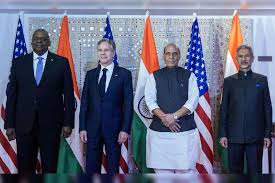

Indian and American officials gathered in New Delhi for the U.S.-India 2+2 Intersessional Dialogue. This meeting happened right before a planned meeting between Indian Prime Minister Narendra Modi and U.S. President Joe Biden, highlighting its importance in strengthening the relationship between the two countries.
Key Participants
The meeting included key officials from both sides:
From the U.S.: Donald Lu, Assistant Secretary of State, and Jedidiah P. Royal, Principal Deputy Assistant Secretary of Defense.
From India: Nagaraj Naidu, Joint Secretary from the Ministry of External Affairs, and Vishwesh Negi, Joint Secretary from the Ministry of Defense.
Discussion Focus
The talks focused on several important issues:
Indo-Pacific Strategy: Ensuring security and stability in the Indo-Pacific region, an area both countries are committed to protecting.
Global Crises: They discussed the ongoing war in Ukraine and the humanitarian needs in Gaza.
Areas of cooperation
Both countries emphasized working together in different areas:
Defence Cooperation: Strengthening military ties between the U.S. and India.
Space and Civil Aviation: Increasing cooperation in aerospace technologies.
Clean Energy Initiatives: Working on projects that focus on sustainable energy.
Industrial and Logistics Coordination: Improving how both countries manage supply chains and industrial coordination.
Commitment to stronger ties
The U.S. representatives, Lu and Royal, stressed their commitment to deepening partnerships with India. They expressed their interest in strengthening ties, not only in defense and industry but also in improving people-to-people connections, which reflects the goal of building a closer relationship in many areas.
About U.S.-India 2+2 Intersessional Dialogue
This dialogue, started in 2018, is a way for both countries to strengthen their strategic partnership. It involves discussions between officials from foreign and defense ministries of both countries. The main topics usually include regional security, military cooperation, and technology sharing. India is considered a major defense partner of the U.S., and they work closely on issues like counterterrorism, maritime security, and defense trade. This dialogue helps both countries coordinate on joint military exercises and intelligence sharing, and it’s a key part of maintaining stability in the Indo-Pacific region.
(NNI / Latest news / Latest news india / India latest news/UPSC Preparation)
India Achieves Tier 1 Status in Global Cybersecurity Index 2024
Latest News International: 17th September 2024, UPSC Preparation


India has achieved Tier 1 status in the Global Cybersecurity Index (GCI) 2024, a remarkable accomplishment that shows the country’s dedication to building a strong cybersecurity foundation. This recognition by the International Telecommunication Union (ITU) reflects India’s growing strength in protecting digital information and improving online safety for everyone.
What is the Global Cybersecurity Index (GCI)?
The GCI is a global tool used to measure how committed different countries are to cybersecurity. It helps raise awareness about why cybersecurity is so important and looks at how different sectors—like business, government, and technology—work to stay secure online. It’s a way to see which countries are leading the way in online safety.
Key Areas of Assessment
The GCI ranks countries by evaluating them in five key areas:
Legal Measures: Are there laws and regulations to protect against cyber threats?
Technical Measures: What technical tools and systems are in place to fight cyberattacks?
Organizational Measures: How well are institutions organized to handle cybersecurity issues?
Capacity Development: Are there efforts to educate and train people in cybersecurity skills?
Cooperation: Are there partnerships with other countries to improve cybersecurity worldwide?
India’s Performance in GCI 2024
India earned an impressive score of 98.49, placing it among the top 47 countries in the world with the best cybersecurity practices!
Some key reasons for this success include:
Strong Legal Framework: India has solid legal measures in place, like the Information Technology Act (2000) and the Digital Personal Data Protection Bill (2022), which help keep the digital space secure.
Advanced Technical and Organizational Measures: India’s high scores in these areas show that the country has invested in modern technologies and organized systems to prevent and manage cyber threats.
Why is Tier 1 Status Important?
Being ranked Tier 1 is a huge win for India and shows that the country is doing exceptionally well in keeping up with the ever-changing world of cybersecurity. Here’s what it means:
Staying Alert: India will continue to improve and update its defenses against new cyber threats.
Digital Inclusion: Efforts will focus on making sure everyone has access to cybersecurity resources.
Raising Public Awareness: People will be encouraged to adopt better online safety habits.
Improving Laws and Technology: India will keep updating its laws and investing in new technologies to stay ahead.
Global Impact
With this achievement, India stands alongside leading nations like the United States, Australia, and the United Kingdom, showing its strong commitment to international cybersecurity cooperation. This is a powerful step forward in making the digital world safer for everyone.
(NNI / Latest news / Latest news india / India latest news/UPSC Preparation)
Turkey Seeks Membership in BRICS
Latest News International: 17th September 2024, UPSC Preparation
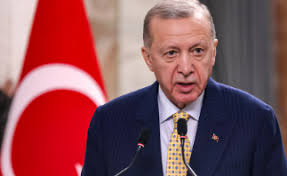

Turkey has officially applied to join BRICS, a group of emerging economies that originally included Brazil, Russia, India, China, and South Africa. The country is waiting for approval of its membership, with Turkish officials confirming the application is under consideration. Russia’s President Vladimir Putin has openly supported Turkey’s interest in joining.
What is BRICS?
BRICS is a coalition of major emerging economies that work together primarily on trade and economic cooperation. Unlike the European Union (EU), BRICS does not have unified security or foreign policies. Instead, it focuses on boosting economic growth and development for its members. Recently, BRICS has expanded to include countries like Egypt, Ethiopia, Iran, and the UAE, and over 20 other countries have expressed interest in joining.
Turkey’s Challenges with EU Membership
Turkey started its process to join the EU in 2005, but since 2018, the progress has slowed down significantly. One of the reasons is that the EU requires potential members to follow its democratic values and governance standards, and Turkey has not met these expectations in recent years. Concerns about Turkey’s human rights record and governance have made its EU application more difficult.
Frustration with the EU
Turkey’s bid to join BRICS might be a sign of frustration with the slow pace of EU membership talks. Turkey has been particularly unhappy with the lack of progress in modernizing its customs agreements with the EU and issues related to visa policies. Critics suggest that by applying to BRICS, Turkey could be seeking new partnerships to expand its global influence, especially after feeling left out by the EU.
Strategic Move by Turkey
Some experts believe Turkey’s interest in BRICS could be a strategic move to gain leverage in its negotiations with the EU. However, this move might damage Turkey’s credibility within its traditional alliances, especially with NATO and other Western countries. Turkey’s complex relations with the West, including its sanctions against Russia and support for Hamas, have added to the tension.
Possible Risks
If Turkey joins BRICS, it may create suspicion among its EU and NATO allies. This could lead to reduced trust and cooperation with Western partners. Observers argue that while it’s beneficial for Turkey to have diverse international relationships, it will need to carefully balance its commitments to both Western and non-Western alliances.
About BRICS
BRICS stands for Brazil, Russia, India, China, and South Africa, with the group officially established in 2010. Together, these countries represent over 40% of the world’s population and about 25% of the global economy. BRICS holds annual summits, with the first one taking place in Russia in 2009. One of its key initiatives is the New Development Bank, founded in 2014 to finance infrastructure projects in member countries. The idea of BRICS came from economist Jim O’Neill in 2001 to highlight the growing importance of these emerging economies.
(NNI / Latest news / Latest news india / India latest news/UPSC Preparation)
UNGA 79th Session Begins
Latest News International: 17th September 2024, UPSC Preparation
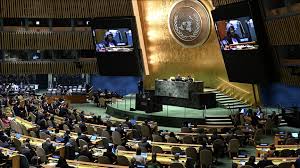

The 79th session of the United Nations General Assembly (UNGA) started on 10th September 2024. This session brings together representatives from 193 countries to discuss important global issues.
What is the Purpose of the UNGA?
The UNGA is a place where leaders from all over the world come together to talk about big issues like international peace, security, development, disarmament (reducing weapons), human rights, and international law. It allows countries with different perspectives to share their ideas and solutions.
Equality Among Member States
In the UNGA, every country, no matter how big or small, rich or poor, has an equal vote. This reflects the UN’s idea of fairness and democracy. Although the decisions made in the UNGA are important and have political weight, they are not legally binding, unlike the decisions of the Security Council.
Who is Leading the 79th Session?
Philemon Yang from Cameroon has been chosen as the President of this session of the UNGA. He has stressed the importance of countries working together to promote sustainable development and human dignity.
When is the General Debate?
The general debate, where representatives from all member states will speak, is set to happen from 24th to 30th September 2024. These discussions will follow the theme of the session.
What is the Theme for This Session?
The theme for the 79th UNGA session is “Leaving no one behind: acting together for the advancement of peace, sustainable development, and human dignity for present and future generations.” This theme focuses on the shared responsibility of making the world a fairer and more sustainable place for everyone.
About the United Nations General Assembly
The UNGA meets every year in September and includes all 193 member countries, making it the only UN body where every country has an equal say. The resolutions passed here are not legally binding but still carry significant influence. The first UNGA meeting was held in London in 1948. The UNGA also elects non-permanent members to the Security Council for two-year terms and helps approve the UN’s budget. One of the important resolutions passed was the “Uniting for Peace” resolution in 1950, which allows the UNGA to discuss peace matters if the Security Council is unable to.
(NNI / Latest news / Latest news india / India latest news/UPSC Preparation)
India Engages in Bilateral Talks at G20 Agriculture Meeting
Latest News International: 17th September 2024, UPSC Preparation
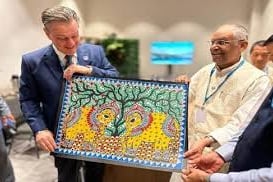

During the G20 Agriculture Ministerial Meeting held in Cuiabá, Brazil, on 12-13 September 2024, India participated in a series of important meetings with key global partners. These discussions focused on improving cooperation in agriculture, dealing with the challenges of climate change, and reducing trade barriers between countries.
Key Participants and Topics
India’s Agriculture Minister, Ram Nath Thakur, led the delegation and met with US, Brazil, Japan, Germany, the UK, Spain, and the UAE officials. The main topics of discussion included:
Climate-smart agriculture: Ways to make farming more adaptable to climate change.
Food processing: Sharing and improving methods to process food.
Trade negotiations: Talking about the exchange of goods between countries.
Technological advancements: Exploring new technologies to help farming.
India-Brazil Collaboration: ICAR-EMBRAPA Agreement
One of the important outcomes of the meetings was progress toward finalizing an agreement between India’s agricultural research body, the Indian Council of Agricultural Research (ICAR), and Brazil’s agricultural research company, EMBRAPA. This agreement, called a Memorandum of Understanding (MoU), will help both countries share ideas and innovations in agriculture. It is expected to be completed before the G20 Leaders’ Summit in November 2024.
Trade Discussions
India and Brazil also discussed ways to improve trade. India wants to sell more products like sorghum (a grain) and rapeseed (used for oil) in Brazil, while Brazil wants to sell more citrus fruits (like oranges) in India. These talks aim to make it easier for both countries to trade agricultural products.
Focus on Climate-Smart Agriculture
The topic of climate-smart agriculture was very important during the meetings. Both India and the US agreed that working together on new agricultural innovations and creating better crop insurance systems could help farmers adapt to climate change.
Technological Collaboration
The meetings highlighted the need for countries to work together on agricultural technology:
India and Germany agreed to collaborate on using artificial intelligence (AI) in farming.
India and the UK discussed precision breeding and gene-editing technologies to improve crops.
Japan showed interest in learning from India’s food processing techniques.
Future Collaborations with the UAE and Spain
The UAE expressed interest in working with India on sustainable agriculture and vertical farming (growing crops in layers).
With Spain, the talks focused on resolving issues related to veterinary certificates (important for trading animal products) and exploring new genomic techniques to help farmers grow crops that can handle climate challenges.
Importance of the G20 Summit
The G20 Leaders’ Summit in November 2024 will be an important event where global leaders can discuss key issues like economic growth, trade, and financial systems. The meetings in Brazil were a step toward improving international cooperation, particularly in agriculture.
(NNI / Latest news / Latest news india / India latest news/UPSC Preparation)
North Korea’s Nuclear Weapons Programme
Latest News International: 15th September 2024, UPSC Preparation
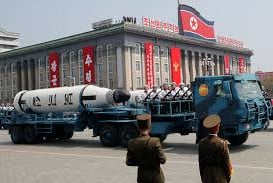

North Korea is ramping up its nuclear weapons program, stating that it needs these weapons to protect itself from perceived threats, especially from the United States and its allies. The government also promotes its military advancements as a source of national pride, reinforcing the idea that nuclear weapons symbolize the country’s power and importance.
Reasons for Developing Nuclear Weapons
Historic Conflicts: North Korea often refers to the Korean War (1950-1953) and the long-standing military tensions with the United States as reasons for its focus on nuclear weapons. The ongoing presence of US troops in South Korea and joint military exercises add to this justification.
National Prestige: Having nuclear weapons is seen by North Korea’s leadership as a way to boost its image both at home and abroad. The regime believes that being a nuclear power strengthens its authority and domestic legitimacy.
Current Estimates of Nuclear Arsenals
North Korea has not officially revealed the exact number of nuclear weapons it possesses. However, experts estimate that the country may have enough material to build 80 to 90 nuclear warheads, and this number could grow to 166 by the year 2030.
Nuclear Weapons Development Process
Collecting Materials: North Korea runs uranium mines and enriches uranium to create the necessary fuel for nuclear bombs.
Key Facilities: Places like the Yongbyon Nuclear Scientific Research Center are critical. This center has reactors and facilities for reprocessing plutonium, which is another material used in nuclear weapons.
Weapon Assembly: After gathering materials, North Korea has factories where they assemble the nuclear devices.
Testing Procedures
North Korea has conducted all of its nuclear tests at the Punggye-ri Nuclear Test Site, located in the northeast of the country.
Between 2006 and 2017, North Korea carried out six nuclear tests, claiming to have developed thermonuclear (hydrogen) bombs.
In 2018, the regime declared a moratorium (temporary pause) on nuclear testing, but there are now signs that they might start testing again.
International Response
The United Nations Security Council has imposed several sanctions on North Korea to discourage its nuclear development. However, efforts to impose new sanctions have been blocked by Russia and China.
Critics argue that North Korea’s focus on nuclear weapons takes away resources that could be used to improve the country’s economy and address the extreme poverty faced by many of its citizens.
(NNI / Latest news / Latest news india / India latest news/UPSC Preparation)
International Conference on Green Hydrogen (ICGH-2024)
Latest News International: 15th September 2024, UPSC Preparation

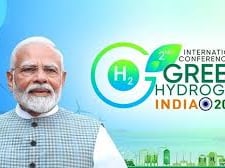
The International Conference on Green Hydrogen (ICGH-2024) in New Delhi, India, announced a significant partnership with the European Hydrogen Week, set for November 2024. This partnership shows India’s commitment to aligning with European green regulations and boosting its exports in the hydrogen sector.
Key Partnerships Established
A major moment during the conference was the signing of a Letter of Intent (LoI) between Chane Terminal from the Netherlands and ACME Cleantech from India. This agreement focuses on setting up ammonia import terminals, marking an important international collaboration.
Focus on Global Decarbonisation
Key sessions were led by representatives from the EU, Australia, and the Netherlands, discussing how green hydrogen can help the world reduce carbon emissions. A highlight of the discussions was the EU’s Emission Trading System (ETS), which is being reformed to set a price on carbon and promote hydrogen as a cleaner alternative to fossil fuels.
Challenges and Collaboration
Government officials from India and international experts discussed the challenges the green hydrogen industry faces. These include:
Creating regulatory frameworks that support hydrogen use,
Developing storage solutions for hydrogen, and
Ensuring widespread access to renewable energy sources needed for green hydrogen production.
They emphasized that collaboration among countries is essential to overcome these challenges.
Youth Session Highlights
The Youth Session focused on the role of young innovators in shaping the future of green hydrogen. Ministries encouraged the youth to participate in sustainable practices, noting that the hydrogen sector has the potential to create millions of jobs by 2050.
Exhibition and International Engagements
The conference featured over 100 stalls where companies displayed the latest technologies related to the green hydrogen value chain. Country Roundtables and talks with nations like Singapore and South Korea deepened strategic dialogues about hydrogen and its future.
ICGH-2024 serves as a key platform for promoting green hydrogen technologies and fostering international partnerships. It brings together countries, companies, and young innovators to work towards a sustainable future and tackle the challenges of climate change.
What is Green hydrogen?
Green hydrogen is made by splitting water using renewable energy like wind or solar, unlike grey hydrogen, which uses fossil fuels. It doesn’t produce carbon emissions and can be stored and transported easily. Producing it needs a lot of electricity—about 50-55 kWh per kilogram. Japan leads in green hydrogen projects, with Chile and Australia also becoming important. Green hydrogen can power vehicles and industries and help reduce emissions in steel and ammonia production.
(NNI / Latest news / Latest news india / India latest news/UPSC Preparation)
Vietnam, Philippines Strengthen Defense Ties
Latest News International: 15th September 2024, UPSC Preparation
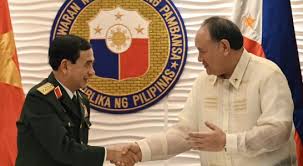

Vietnam and the Philippines have agreed to work more closely on defence and maritime security. This agreement came during a visit by Vietnam’s Defence Minister, Phan Van Giang, to the Philippines. This cooperation aims to address rising tensions with China, particularly over territorial disputes in the South China Sea.
Key Agreements
The defence ministers of both nations signed “letters of intent” to improve their abilities in areas like maritime security and responding to natural disasters. They plan to sign a formal security agreement by the end of the year. This shows their commitment to solving disagreements peacefully and following international laws.
Significance of the Announcement
Experts believe that, for now, the agreement is mostly symbolic and won’t immediately change much in terms of military power. However, if other Southeast Asian countries in ASEAN (Association of Southeast Asian Nations) join forces, this collaboration could grow stronger over time, especially in dealing with China’s maritime influence.
The South China Sea Dispute
China’s Claims: China says that almost the entire South China Sea belongs to them. This sea is important for global trade and has many natural resources.
Countries Disagreeing: Vietnam, Brunei, Malaysia, the Philippines, and Taiwan do not agree with China’s claim.
Court Decision: In 2016, an international court ruled that China’s claims were not valid, but China did not accept this ruling.
Rising Tensions Between the Philippines and China
In recent months, the Philippines and China have had several clashes, including incidents where their coast guard ships collided. Despite attempts to improve communication and manage these disputes, tensions remain high.
China has been trying to divide ASEAN nations, making it difficult for them to work together on issues like the South China Sea. Some experts think that smaller groups of countries with common interests, like Vietnam and the Philippines, might be able to cooperate more effectively than the entire ASEAN group.
Vietnam’s Careful Approach
Vietnam has a long history of territorial disputes with China but has tried to balance its actions carefully since 2011 to avoid escalating tensions. While Vietnam is currently in a better position than the Philippines in its dealings with China, it remains cautious about potential conflicts.
The agreements between Vietnam and the Philippines show that both countries recognize the need to work together in the face of external challenges, especially from China. While the immediate effects may not be dramatic, this cooperation could contribute to regional stability and security in the long run.
(NNI / Latest news / Latest news india / India latest news/UPSC Preparation)
India-Oman Joint Military Exercise AL NAJAH
Latest News International: 15th September 2024, UPSC Preparation
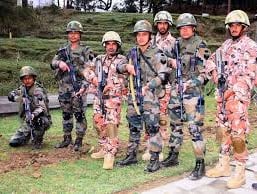

The Indian Army has sent a team to participate in the 5th edition of the India-Oman Joint Military Exercise AL NAJAH, which is being held from 13th to 26th September 2024 in Salalah, Oman. This exercise is an important event that has been helping improve military cooperation between the two countries since it first started in 2015.
Background of AL NAJAH
The AL NAJAH exercise is held every two years and alternates between India and Oman. The last edition took place in Mahajan, Rajasthan. The main goal of each exercise is to improve the joint operational abilities of the two armies, especially in situations involving counter-terrorism.
Indian Army Contingent
The Indian Army’s team includes 60 personnel from a Mechanised Infantry Regiment, along with support from other arms and services. The Royal Army of Oman will also send an equal number of personnel from their Frontier Force.
Aim of the Exercise
The primary goal of Exercise AL NAJAH is to enhance the joint military capabilities of both India and Oman, especially for counter-terrorism operations. This cooperation follows Chapter VII of the United Nations Charter, which focuses on maintaining peace and security.
Focus Areas of the Exercise
The exercise will be held in the desert and will focus on several tactical drills, including:
Joint Planning
Cordon and Search Operations (controlling an area and searching for threats)
Urban Combat (fighting in city or built-up areas)
Mobile Vehicle Check Posts (setting up checkpoints for vehicle searches)
Counter Drone Operations
Room Intervention Techniques (handling dangerous situations inside buildings)
The participants will go through field training exercises that mimic real-world situations, allowing them to practice and improve their counter-terrorism skills.
Benefits of the Exercise
Exercise AL NAJAH V will allow both armies to share their best practices in military tactics and procedures. This will help improve their ability to work together, build goodwill, and strengthen the friendship between the two armies.
In addition to military training, this exercise aims to strengthen defence cooperation and improve the diplomatic relationship between India and Oman, improving closer ties between the two countries.
About the India-Oman Joint Military Exercise
The India-Oman Joint Military Exercise, called AL NAJAH, began in 2015 and focuses on improving the ability of both armies to work together. It is held in the deserts of Oman and mainly involves infantry tactics and counter-terrorism operations. The exercise reflects India’s strategic relationship with Gulf countries, especially with Oman, which is India’s oldest ally in the region, dating back to 1950. This partnership also helps improve maritime security in the Arabian Sea by addressing regional threats. Through these exercises, India and Oman continue to strengthen their mutual respect and understanding.
(NNI / Latest news / Latest news india / India latest news/UPSC Preparation)
"‘PM Sent Me’: Ajit Doval Briefs Putin on Modi’s Upcoming Ukraine Visit in Russia"
Latest News International: 13th September 2024
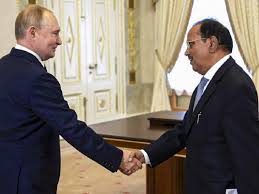

In a high-profile diplomatic engagement, Ajit Doval, India’s National Security Advisor, met with Russian President Vladimir Putin to discuss Indian Prime Minister Narendra Modi's forthcoming visit to Ukraine. Doval, who traveled to Moscow on direct instructions from Modi, provided a comprehensive briefing on the planned visit, underscoring the strategic and diplomatic interests involved. This visit is part of India's broader efforts to engage with key global players amidst the ongoing conflict between Russia and Ukraine.
The meeting, held at the Kremlin, was aimed at reinforcing India's position and ensuring clear communication between the two nations regarding the evolving geopolitical landscape. Both leaders reportedly discussed ways to enhance bilateral cooperation and address mutual concerns related to the Ukraine conflict. Doval's visit highlights India's active role in navigating international diplomacy and balancing relations with major powers amid global tensions.
(NNI / Latest news / Latest news india / India latest news/UPSC Preparation)
"Russia Expels 6 British Diplomats, Accuses Them of Spying and Subversive Activities"
Latest News International: 13th September 2024


Russia has expelled six British diplomats, accusing them of engaging in espionage and subversive activities. The Russian Foreign Ministry announced the decision in a statement, claiming that the diplomats were involved in activities that undermined Russia's national security and violated diplomatic norms. The move is seen as a significant escalation in the ongoing diplomatic tensions between Moscow and London.
In response, the British government has condemned the expulsion, calling the accusations unfounded and politically motivated. The UK Foreign Office has demanded that Russia provide evidence to support its claims and has reiterated its commitment to defending its diplomatic staff against baseless allegations. The expulsion comes amid heightened geopolitical strains, and experts warn that it could further strain already fraught relations between the two countries.
(NNI / Latest news / Latest news india / India latest news/UPSC Preparation)
"Israeli Airstrikes in Gaza Claim 34 Lives, Including 6 UN Staffers"
Latest News International: 13th September 2024
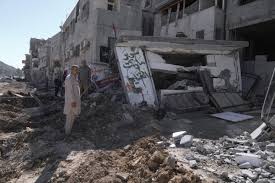

Israeli airstrikes on Gaza have resulted in the deaths of at least 34 individuals, including six United Nations staff members, according to reports from local authorities and the UN. The airstrikes, which are part of an ongoing military operation, have caused significant destruction in the densely populated region. The UN has condemned the attacks, highlighting the tragic loss of its personnel who were working to provide humanitarian assistance in the area.
The escalation has intensified the humanitarian crisis in Gaza, where critical infrastructure has been severely damaged. The international community has called for an immediate cessation of hostilities and a return to dialogue to address the escalating violence and its devastating impact on civilians. The Israeli government has stated that the strikes are in response to ongoing rocket fire from Gaza, but the heavy toll on non-combatants has sparked widespread condemnation and calls for accountability.
(NNI / Latest news / Latest news india / India latest news/UPSC Preparation)
Apple Loses Court Battle, Must Pay €13 Billion in Taxes
Latest News International: 12th September 2024, UPSC Preparation


Apple has recently lost a legal battle with the European Union (EU). Because of this loss, Apple now has to pay 13 billion euros (about $14 billion) in back taxes to Ireland. This decision is part of the EU’s larger plan to stop unfair tax deals, often called “sweetheart deals,” that some countries make with big companies.
What Happened?
In 2016, Margrethe Vestager, who is the EU’s competition chief, accused Ireland of giving Apple illegal tax benefits. Vestager said that these benefits allowed Apple to pay less tax than it should, which unfairly affected how money moves between companies in the EU. At first, Apple and the Irish government disagreed with this accusation and won some points in their defense. However, later on, the European Court of Justice, which is the highest court in the EU for these matters, decided in favor of the EU. The court confirmed that Apple had taken advantage of loopholes in Ireland’s tax laws to reduce its tax payments unfairly.
The ‘Double Irish’ Scheme
Ireland became a popular place for big tech companies like Apple to set up their European headquarters because of its favorable tax laws. One of the main reasons was a tax strategy known as the ‘Double Irish’ scheme. Here’s how it worked:
First Irish Company: A large company like Apple would set up two separate companies in Ireland.
Tax-Free Revenue: The first Irish company would earn revenue (money from sales) but wouldn’t have to pay much tax on it.
Moving Money: This money would then be sent to the second Irish company, which was connected to a country with very low taxes, such as Bermuda.
Avoiding Taxes: By moving the money this way, Apple could avoid paying higher taxes in other EU countries where it made sales.
This scheme allowed Apple and similar companies to keep more of their profits by paying less in taxes. However, in 2014, Ireland closed these loopholes because other countries and organizations, including the EU, pressured them to make their tax laws fairer.
Apple’s Response
After the court ruled against it, Apple expressed disappointment. The company said that the European Commission (part of the EU that handles these issues) is trying to change tax rules after agreements have already been made, which Apple believes is unfair. Apple also insisted that it paid the correct amount of taxes in the United States, where it is based.
Use of Funds by Ireland
Ireland has not yet clearly stated how it will use the 13 billion euros it must pay Apple. However, it is expected that the money will go into a new special investment fund. This fund is designed to use the increasing tax money that Ireland is getting from companies. Here’s what might happen with the money:
Investment: The fund will invest the money to help grow Ireland’s economy.
Budget Surplus: Ireland might have more money than it spends, which is known as a budget surplus.
Public Spending and Tax Cuts: There could be more money for public services (like healthcare and education) and possibly some tax cuts for people before the next election.
Implications for Other Companies
This case against Apple has important lessons for other big companies. It showed that the EU is serious about making sure companies pay their fair share of taxes. Other companies, like Amazon and Starbucks, have also faced similar challenges from the EU over their tax arrangements. These cases have had different outcomes, and it’s not yet clear if those companies will also have to pay large back taxes like Apple. The EU is watching closely to ensure that all companies follow fair tax practices.
(NNI / Latest news / Latest news india / India latest news/UPSC Preparation)
Africa Urban Forum (AUF) 2024
Latest News International: 11th September 2024, UPSC Preparation
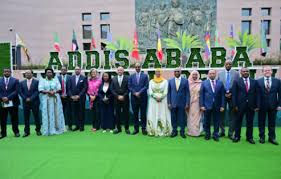

The Africa Urban Forum (AUF) was held in Addis Ababa from September 4-6, 2024, to address the rapid urbanisation happening across Africa. Urbanisation, or the growth of cities, was described as an “irreversible trend,” meaning it’s something that cannot be stopped and must be managed carefully. The forum brought together many different people, including government officials, city planners, and experts, to discuss how to create cities that are environmentally friendly, socially fair, and economically strong.
Importance of Urban Planning
As more people move to cities, it’s important to plan how the city will grow. Without good planning, cities could face problems like a lack of housing, poor infrastructure, and social inequality. Infrastructure includes basic services like roads, water supply, and electricity. Good urban planning ensures that cities can support their growing populations and provide everyone with equal access to services.
Investment Needs for Growing Cities
For cities to grow properly, large investments are required. It’s estimated that Africa needs around $130 billion every year just for building infrastructure. However, this spending can pay off, with each dollar invested bringing back up to $4 in economic benefits.
Governments can’t always fund these projects by themselves, so they need to look for new ways to raise money. Some of these options include:
Public-private partnerships: When the government works with private companies to share the costs and benefits of development.
Development finance: Loans and funding from international organisations that focus on helping countries grow.
Green bonds: Special loans meant for environmentally friendly projects.
Impact investing: Investments made by people or companies that want both financial returns and positive social impact.
Crowdfunding: Raising small amounts of money from a large number of people.
These financing methods are important to gather enough resources to fund the urban growth of Africa.
Mobilising Resources for City Growth
A strong, coordinated effort is needed to raise the necessary resources for city development. Governments must create systems that clearly show how public money is being used, and make sure that investments match the needs of local governments. This is called following the subsidiarity principle, which means that decisions should be made as close as possible to the people they affect.
Housing Policies and Climate Resilience
Development banks and financial institutions are being encouraged to create housing policies that help low-income families. At the same time, there is a focus on making cities climate-resilient. This means cities need to be prepared for climate change by both mitigating (reducing the causes of climate change) and adapting (adjusting to its effects).
As cities grow quickly in Africa, they also become more vulnerable to climate change. Cities are called climate hotspots because they face higher risks from extreme weather events like floods, heatwaves, and storms. These risks can affect people’s jobs, homes, and access to basic services like water and electricity.
The Africa Urban Forum was created to address both the challenges and opportunities of urbanisation. It aims to develop ways for governments to work together, across the continent, to make the most of urban growth. By doing so, African countries can diversify their economies and build sustainable, resilient cities.
(NNI / Latest news / Latest news india / India latest news/UPSC Preparation)
ICA General Assembly and the Global Cooperative Conference 2024
Latest News International: 11th September 2024, UPSC Preparation
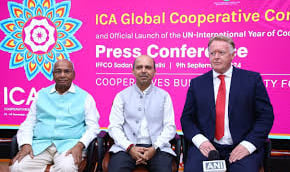

The International Cooperative Alliance (ICA) is set to hold its General Assembly and Global Cooperative Conference in India for the first time in 130 years, from November 25-30, 2024. The event theme, “Cooperatives Build Prosperity for All,” aligns with Prime Minister Narendra Modi’s vision of “Sahkar se Samriddhi,” which translates to prosperity through cooperation. This important event will also mark the beginning of the UN International Year of Cooperatives in 2025.
Significance of the Event
This conference is a big deal for India because it will help boost its position in the global cooperative movement. Cooperatives in India will showcase their products and services in a special marketplace called a ‘Haat,’ designed to look like traditional Indian villages. To commemorate the event, a special stamp will also be released for the International Year of Cooperatives.
Leadership and Vision
Under Prime Minister Modi’s leadership and Home Minister Amit Shah’s guidance, India has made great strides in the cooperative sector. A special Ministry of Cooperation was created to help cooperative businesses grow and succeed. So far, 54 new initiatives have been launched, highlighting that India is home to one-quarter of the world’s cooperatives.
Progress in the Cooperative Sector
Significant improvements have been made, including new guidelines for Primary Agricultural Credit Societies (PACS). India has also created three new national cooperatives:
National Cooperative Organics Ltd. (NCOL)
National Cooperative Exports Ltd. (NCEL)
Bharatiya Beej Sahkari Samiti Ltd. (BBSSL)
These efforts show that India is leading the global cooperative movement.
The conference will be carbon neutral, meaning efforts will be made to reduce and balance the environmental impact. IFFCO’s subsidiary, IFFDC, has played a key role in earning carbon credits. As part of the environmental efforts, 10,000 Peepal trees will be planted to show the cooperative movement’s commitment to sustainability.
Global Participation
The event will attract key global leaders, including the Prime Minister of Bhutan and representatives from the United Nations. Around 1,500 important guests from over 100 countries will attend, showing the global significance of cooperatives in tackling challenges like climate change and social equality.
About the International Cooperative Alliance (ICA)
The ICA, founded in 1895, is a global organization that represents cooperatives and promotes values like self-help, democracy, and equality. It has members in over 100 countries and is headquartered in Brussels. In 1966, the ICA established Cooperative Principles, which are still followed today. Every year, the ICA celebrates the International Day of Cooperatives on the first Saturday of July. Their long-term plan, called the “Blueprint for a Cooperative Decade,” aims to strengthen the global cooperative movement, focusing on reducing poverty and improving social welfare.
(NNI / Latest news / Latest news india / India latest news/UPSC Preparation)
NASA’s Europa Clipper Mission
Latest News International: 11th September 2024, UPSC Preparation


NASA has officially approved the launch of the Europa Clipper mission, which is scheduled to take off on October 10, 2024. This decision comes after a successful review of the spacecraft’s design to ensure it can handle intense radiation. The announcement was made on September 10, addressing previous concerns about the spacecraft’s electronics.
Launch Details
The Europa Clipper mission has a budget of $5 billion and will be launched aboard a SpaceX Falcon Heavy rocket. The mission must be launched within a specific three-week period to ensure the spacecraft can reach Jupiter using gravity assists from Mars and Earth. This carefully timed launch is crucial for the spacecraft to follow its planned trajectory.
Earlier concerns about the spacecraft’s electronics involved the reliability of its transistors, which could be affected by radiation. To address these concerns, NASA conducted additional testing to see how radiation might degrade the transistors and impact the spacecraft’s performance.
Testing & Confidence
Over the past four months, NASA teams rigorously tested the spacecraft’s systems to ensure everything would work correctly. Project manager Jordan Evans confirmed that the team is confident in their ability to complete the mission successfully, having addressed all major concerns.
Mission Objectives
The main goal of the Europa Clipper mission is to investigate whether the ocean beneath Europa’s icy surface could support life. The spacecraft will conduct 49 flybys of Europa, coming as close as 16 miles (25 kilometers) to the moon’s surface. It will use advanced instruments to map and analyze Europa’s icy shell.
Journey to Jupiter
The spacecraft’s journey to Jupiter will take about six years. Once it arrives, it will perform close flybys every three weeks to collect important data about Europa. This data will help scientists understand if Europa has the right conditions for life.
About Europa Clipper
The Europa Clipper is a NASA mission designed to explore Jupiter’s moon Europa. It is set to launch in the 2020s, with the spacecraft expected to arrive in the 2030s. The mission will carry 10 scientific instruments to study the thickness of Europa’s ice shell and search for organic compounds that could indicate the presence of life. Europa’s subsurface ocean makes it a key target for astrobiology research. The mission will focus on remote sensing and detailed analysis of Europa’s surface to assess its potential for habitability.
(NNI / Latest news / Latest news india / India latest news/UPSC Preparation)
Barakah Nuclear Energy Plant
Latest News International: 10th September 2024, UPSC Preparation


The United Arab Emirates (UAE) has achieved a major milestone with the completion of the Barakah Nuclear Energy Plant, which is the first nuclear power facility in the Arab world. This is an important step for the UAE as it works to diversify its energy sources and improve its energy security.
Location and Structure
The Barakah Nuclear Energy Plant is located in Al Dhafra, about 53 km from Ruwais in the Emirate of Abu Dhabi. The plant is made up of four nuclear reactors and will play a big role in supplying electricity to the region.
Energy Production and Impact
Once the plant is fully operational, it will provide 25% of the UAE’s electricity needs. This amount of electricity is equal to what the entire country of New Zealand uses in a year. The plant will support industries that use a lot of energy, such as oil production, steel manufacturing, and aluminum production.
Environmental Goals
The UAE’s President, Sheikh Mohamed bin Zayed Al Nahyan, has said that this project is an important part of the UAE’s efforts to reach net zero emissions. The Barakah Plant is a key part of the country’s overall strategy to ensure energy sustainability and security.
The Barakah Plant is just one part of the UAE’s larger plan to use more renewable energy. By the year 2050, the UAE aims to get 50% of its electricity from clean energy sources, showing the country’s move towards more sustainable energy practices.
About the Barakah Nuclear Energy Plant
The Barakah Nuclear Energy Plant is the first nuclear power plant in the Arab world. It consists of four reactors, each capable of producing 1,400 megawatts of electricity. Construction started in 2012, and the first reactor was connected to the UAE’s electricity grid in 2020. The plant is operated by the Emirates Nuclear Energy Corporation and will supply 25% of the UAE’s electricity. It also uses the latest safety technologies and is part of the UAE’s plan to reduce carbon emissions and depend less on fossil fuels for energy.
(NNI / Latest news / Latest news india / India latest news/UPSC Preparation)
Australia Recognizes 750 New Species, Including Laughing Frog
Latest News International: 10th September 2024, UPSC Preparation


Australia’s National Species List has been updated with 750 newly recognized species, reflecting the country’s rich biodiversity. Some notable new additions include a frog that sounds like it’s laughing, a marine worm named after Sir David Attenborough, and a spider inspired by Tom Hardy’s character, Venom.
Key Discoveries
Western Laughing Tree Frog (Litoria ridibunda): This frog is special because it makes a laughing sound instead of the usual croak that frogs are known for.
David Attenborough Worm (Marphysa davidattenboroughi): A colorful, glowing marine worm that has been named in honor of Sir David Attenborough, the famous nature documentary host.
Cracking-Clay Pilbara Planigale (Planigale tealei): This tiny marsupial, which looks a bit like a shrew, has adapted to live in the clay habitats of the Pilbara region.
What is Taxonomy?
Taxonomy is the science of classifying and naming organisms. Taxonomists study an animal or plant’s physical traits, behavior, and genetics to decide if it is a new species. In Australia, 70% of native species are still unnamed, which means there is a lot of work left to do in discovering and understanding the wildlife.
Australia’s Unique Biodiversity
Australia is known for its incredible biodiversity. It is home to over 150,000 native species, many of which are not found anywhere else in the world. However, only about two new species are officially named each day because there is still so much unexplored wildlife.
Working with Indigenous communities is important for learning more about Australia’s wildlife. Indigenous people have a deep understanding of the land and its animals, and their knowledge can help scientists discover new species that Western science has not yet studied.
The Australian Biological Resources Study provides funding to help scientists find and describe new species. In the 2024-25 period, $2 million will be distributed across 14 projects. These projects will focus on identifying species like frogs and orb-weaving spiders.
Invertebrates and Plants
Most of the newly recognized species are invertebrates (animals without backbones, like insects and worms), but new plants are also being discovered. One example is the Eremophila saxatilis, a flowering shrub that helps deepen our understanding of Australia’s plant life.
Taxonomic research and wildlife surveys will continue to reveal more of Australia’s hidden biodiversity. Using advanced techniques and involving the public in citizen science projects will help uncover even more unique species in the future.
(NNI / Latest news / Latest news india / India latest news/UPSC Preparation)
NASA’s DART Mission May Create First Human-Made Meteor Shower
Latest News International: 10th September 2024, UPSC Preparation


NASA’s DART mission made history by successfully crashing a spacecraft into the asteroid moonlet Dimorphos. This marked a major step forward in protecting Earth from possible asteroid impacts by testing ways to change the direction of threatening space objects.
What is Dimorphids: The First Human-Made Meteor Shower?
As a result of the DART mission’s impact, debris from Dimorphos has been scattered into space. Scientists believe that more than 2 million pounds of this material could eventually reach Earth and Mars. If this happens, it could create a meteor shower, known as the “Dimorphids,” in the next 10 to 30 years, leading to periodic meteor displays.
NASA’s DART Mission Explained
The Double Asteroid Redirection Test (DART) was launched in 2021 as NASA’s first attempt to move an asteroid from its path. The idea behind the mission was to see if a spacecraft could deflect an asteroid by crashing into it—this technique is called “kinetic impact.” DART’s goal was to show that this method could be used to protect Earth from potential asteroid threats in the future.
The DART mission was a success. The spacecraft hit Dimorphos and managed to shorten its orbit around the larger asteroid Didymos by 33 minutes. This was a major victory, as it proved that using a spacecraft to change an asteroid’s path is possible. It is the first time humans have intentionally changed the movement of a celestial body.
The Impact on Dimorphos
The impact of DART not only changed Dimorphos’ orbit but also altered its shape. It now resembles a ‘triaxial ellipsoid,’ meaning its form became more stretched and irregular. This suggests that the asteroid underwent significant geological changes as a result of the collision.
Dimorphos was selected for the mission because it is relatively close to Earth and has a size similar to other asteroids that might pose a threat in the future. It is part of a two-asteroid system with Didymos. Importantly, neither Dimorphos nor Didymos is on a collision course with Earth, making it a safe target for testing.
Significance of Asteroid Deflection
The success of the DART mission shows that asteroid deflection is a real possibility. By proving that kinetic impact can change an asteroid’s course, the mission has provided humanity with a tool to defend Earth against potential asteroid collisions, improving planetary safety.
(NNI / Latest news / Latest news india / India latest news/UPSC Preparation)
How Olympic Rings On Eiffel Tower Turned Into Political Battle In France
Latest News International: 09th September 2024, UPSC Preparation


The display of Olympic rings on the Eiffel Tower has ignited a political controversy in France. Critics argue that the installation, meant to celebrate Paris's upcoming Olympics, is a misuse of the iconic monument. The debate underscores tensions over public symbolism and the intersection of national pride with international events, reflecting broader discussions about France's role on the global stage.
(NNI / Latest news / Latest news india / India latest news/UPSC Preparation)
As Gaza War Rages, Netanyahu Rival Calls Iran, Hezbollah "Real Issues"
Latest News International: 09th September 2024


As the Gaza war continues, a prominent rival of Israeli Prime Minister Benjamin Netanyahu has called attention to Iran and Hezbollah as the "real issues." The statement highlights ongoing concerns about regional security and strategic threats beyond the immediate Gaza conflict. The remarks add to the complex political and security landscape in the Middle East.
(NNI / Latest news / Latest news india / India latest news/UPSC Preparation)
India Reviews Trade Agreement With Malaysia
Latest News International: 08th September 2024, UPSC Preparation
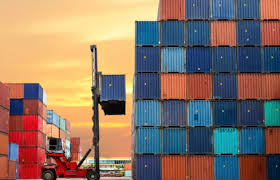

India is reviewing its trade agreement with Malaysia because the trade deficit has significantly increased over time. A trade deficit means India is buying more goods from Malaysia than it is selling to them. In 2011, this deficit was $2.6 billion, but by the fiscal year 2024 (FY24), it has grown to an estimated $5.5 billion. This has raised concerns about the balance of trade between the two countries.
What is the India-Malaysia Trade Agreement?
India and Malaysia signed the India-Malaysia Comprehensive Economic Cooperation Agreement (CECA) in 2011. This agreement was designed to boost trade by making it easier for the two countries to buy and sell goods, services, and investments. It also includes provisions for the movement of people between the countries, especially for business and trade purposes. The goal was to strengthen economic ties and increase trade, but the growing trade deficit has led India to reconsider some of the terms. Both nations are important trading partners—India is Malaysia’s 10th largest, while Malaysia ranks 14th for India. The agreement also serves as a strategic counterbalance to China’s growing influence in the region.
Increasing Trade Deficit
India imports a lot more from Malaysia than it exports. India’s major exports to Malaysia include petroleum products, buffalo meat, and aluminium. However, the key things India imports from Malaysia include vegetable oils, electrical machinery, and chemicals. The large amount of imports, particularly essential items like vegetable oil, is a major reason for the growing trade deficit.
‘Rules of Origin’
As part of the trade review, India is focusing on something called ‘rules of origin’. These rules help determine where a product is made and whether it qualifies for certain tax benefits under the agreement. By adjusting these rules, India hopes to make it easier for Indian products to be integrated into global supply chains, which could help reduce the trade deficit by promoting more exports.
What are Non-Tariff Barriers?
Non-tariff barriers are rules or regulations that make it difficult for one country to export goods to another, even if there aren’t high taxes on those goods. India’s commerce department is identifying these barriers in Malaysia, such as strict sanitary and phytosanitary standards (rules for food safety and plant/animal health). By addressing these issues, India hopes to increase the competitiveness of its exporters.
The Indian government plans to talk with various industry stakeholders—businesses and exporters—about the challenges they face when trading with Malaysia. These consultations will help the government understand what changes are needed to improve the trade relationship and ensure that the agreement works better for Indian businesses.
The review of the trade agreement may open new opportunities for Indian exports, especially in sectors like petrochemicals, plastics, and pharmaceuticals. However, experts warn that changing the agreement might not significantly reduce India’s imports of essential goods like palm oil and electronics, which are key imports from Malaysia.
(NNI / Latest news / Latest news india / India latest news/UPSC Preparation)
India, EU Strengthen Defence Ties in Indo-Pacific Initiative
Latest News International: 08th September 2024, UPSC Preparation
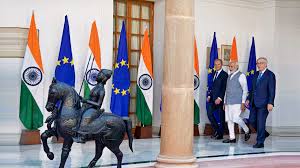

In September 2024, a group of high-level Indian officials visited Europe for three days to strengthen defence cooperation between India and the European Union (EU). Their main focus was on building better military partnerships and improving how they work together to handle security challenges. These challenges are across different areas like the sea (maritime), land, and cyberspace.
Objectives of the Visit
The EU delegation to India helped arrange this visit. It included officials from India’s Defence Ministry and the Ministry of External Affairs (MEA). The purpose was to understand the EU’s security and defence systems, particularly its Common Security and Defence Policy (CSDP). The CSDP focuses on the EU’s missions, including in important regions like the Indo-Pacific, where both India and the EU have shared interests.
Maritime Security Collaboration
Maritime security, which means keeping sea routes safe, is a major concern for both India and the EU. Ambassador Hervé Delphin highlighted how both sides are committed to working together, particularly through the operations of the EU Naval Force (NAVFOR) and the Indian Navy. These operations, especially in the Indian Ocean, help ensure that international sea routes stay free and follow agreed rules, making trade and travel safer.
Importance of the Indo-Pacific Region
The Indo-Pacific is a key area because of its economic importance and the large number of ships that pass through it. This region connects countries through trade and is a focus for both India’s and the EU’s defence strategies. By working together in the Indo-Pacific, both India and the EU aim to keep the region stable and tackle common security threats.
Engagement with EU Institutions
During their visit, Indian officials had meetings with important EU institutions, such as the European External Action Service and the European Maritime Security Agency. They talked about how they could work together in areas like maritime security, with a particular focus on involving the Indian Coast Guard.
One of the highlights of the visit was a tour of the headquarters for the EUNAVFOR ATALANTA Operation in Spain. This operation focuses on maritime security in the Horn of Africa and the Western Indian Ocean, giving Indian officials a chance to understand how the EU operates in these regions.
India and the EU have already worked together on joint operations. For example, in August 2023, the EUNAVFOR flagship (a leading EU ship) conducted joint operations with India’s INS Visakhapatnam (a destroyer), showing how both sides are committed to closer military cooperation in the Indo-Pacific.
Facts About the European Union
The European Union (EU) started as the European Economic Community in 1957.
Today, the EU has 27 member states.
The EU flag shows a circle of 12 stars, representing unity.
The EU introduced the euro in 1999, now used by 19 countries.
The EU’s court system, the Court of Justice, was founded in 1952.
The Schengen Area allows passport-free travel between 22 EU countries.
The European Parliament is directly elected, with the first election held in 1979.
Each member state takes turns holding the EU presidency.
(NNI / Latest news / Latest news india / India latest news/UPSC Preparation)
Forum on China-Africa Cooperation (FOCAC)
Latest News International: 07th September 2024, UPSC Preparation
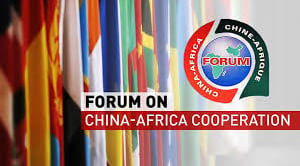

Chinese President Xi Jinping announced that China would provide $51 billion to help African countries during the Forum on China-Africa Cooperation (FOCAC). The money will be used to support 30 major infrastructure projects, which could include building roads, bridges, power plants, and other critical facilities in African countries. This decision reflects China’s current economic strategy as it faces challenges at home and wants to continue its strong relationship with Africa.
What is FOCAC?
The Forum on China-Africa Cooperation (FOCAC) was created in 2000 to strengthen the partnership between China and African countries. It is a meeting that happens every three years, sometimes held in China and sometimes in an African country. Currently, 53 African nations, except for Eswatini, are part of this forum. The African Union Commission is also involved, helping to guide discussions and plans for the future.
Significance of FOCAC
FOCAC is an essential platform where African leaders can directly discuss important political and economic matters with China. It helps both sides agree on joint projects and actions for the future. The 2024 FOCAC summit, themed “Joining Hands to Advance Modernization and Build a High-Level China-Africa Community with a Shared Future,” aims to outline how the two regions can collaborate better in the coming years.
Evolution of China-Africa Relations
China’s involvement with Africa started in the 1950s when it supported African countries’ fight for independence from colonial powers. One of its major contributions was building the Tanzania-Zambia railway in the 1970s. Over the years, China became Africa’s biggest trading partner, with trade volumes reaching $282 billion in 2023. This trade mostly involves raw materials from Africa and manufactured goods from China.
Belt and Road Initiative (BRI)
Africa is a key player in China’s Belt and Road Initiative (BRI), which seeks to create new economic and cultural ties between countries, similar to the ancient Silk Road. In the last decade, China has spent over $120 billion on African infrastructure projects through the BRI.
Concerns and Criticisms
While China’s investments in Africa are significant, some critics argue that they lead to ‘debt trap diplomacy.’ This means that some African countries struggle to repay the loans, raising concerns that China might use the debt to gain control over assets. However, some people believe that these problems are more related to how African governments handle their finances rather than a deliberate strategy by China.
FOCAC 2024’s Significance
The 2024 FOCAC summit will be very important as China tries to deal with a slowing economy after the COVID-19 pandemic, as well as loan defaults from countries like Zambia and Ghana. China may focus more on smaller projects and green technologies, while African countries will likely ask for more loans despite their existing debt challenges.
China presents itself as a developing country, like many African nations, and often highlights its shared experience of opposing Western colonialism. This message is well received by African leaders, even though there are still concerns about the balance of trade and dependency on Chinese investments.
(NNI / Latest news / Latest news india / India latest news/UPSC Preparation)
World Experiences Hottest Northern Hemisphere Summer
Latest News International: 07th September 2024, UPSC Preparation
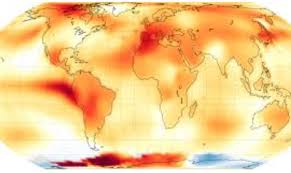

The Copernicus Climate Change Service (C3S) has announced that the summer of 2024 was the hottest ever recorded in the northern hemisphere, from June to August. This surpassed the previous record set last year. The rising temperatures are a result of ongoing global warming trends, driven by human activities.
Key Findings
The summer of 2023 is officially the warmest summer ever recorded globally.
Experts predict that 2024 could be even hotter than 2023.
Over the last three months, temperature records were broken, including the hottest single day and the hottest boreal (northern) summer.
Causes of Climate Change
The main cause of climate change is human activity, particularly the burning of fossil fuels like coal, oil, and gas. This releases greenhouse gases that trap heat in the atmosphere.
The El Niño phenomenon, a natural climate pattern, has also contributed to the rising temperatures. However, there are signs that this may shift towards La Niña, which typically brings cooler conditions.
Impact on Weather Patterns
Extreme weather events, such as floods and droughts, are becoming more frequent and severe because of climate change.
Sudan is experiencing severe flooding.
Italy is facing long periods of drought.
Typhoon Gaemi was intensified by climate factors, leading to significant casualties in the Philippines, Taiwan, and China.
Global Temperature Trends
According to C3S data, which tracks climate patterns since 1940, the summer of 2024 was the hottest since records began in the pre-industrial era (1850).
Even though La Niña may bring some temporary cooling, the ocean’s surface temperatures remain unusually high, particularly in August.
Experts are urging immediate action to reduce greenhouse gas emissions. If emissions continue at their current rate, extreme weather events will become more frequent and severe, posing serious risks to ecosystems, human communities, and the planet as a whole.
About Copernicus Climate Change Service (C3S)
C3S is part of the European Union’s Copernicus Programme, which started in 2015. It provides important data about climate change by using satellite observations. C3S supports over 7,000 users worldwide and helps policymakers make informed decisions to adapt to climate change. It also partners with leading research institutions in Europe and publishes an annual report called the European State of the Climate.
(NNI / Latest news / Latest news india / India latest news/UPSC Preparation)
Andaman and Nicobar Islands Integrated Development Corporation (ANIIDCO)
Latest News International: 07th September 2024, UPSC Preparation


The Andaman and Nicobar Islands Integrated Development Corporation (ANIIDCO) is managing a massive ₹72,000 crore infrastructure project on Great Nicobar Island. This includes building a large trans-shipment port, an airport, tourist facilities, and solar and gas power plants. While this project promises to boost development, it has raised concerns about environmental protection and whether ANIIDCO, a relatively unknown government agency, is equipped to handle such a large undertaking.
What is ANIIDCO?
ANIIDCO has been playing a vital role in promoting economic development in the Andaman and Nicobar Islands since its establishment in 1978. The agency focuses on sectors like tourism, agriculture, and fisheries. It also runs several eco-tourism projects aimed at preserving the unique environment of the islands. By supporting local businesses and sustainable development, ANIIDCO contributes significantly to the region’s economy while working to protect its natural beauty.
Financial Performance
In the last three years, ANIIDCO has made an average annual revenue of ₹370 crore and a profit of ₹35 crore. Many people are questioning whether the agency can handle a project as large and complex as this one, given its relatively modest financial track record.
Concerns About Capability
When ANIIDCO was chosen to lead this project in July 2020, it did not have a clear environmental policy or enough skilled workers to handle the project. It only started hiring specialists in late 2022, revealing a significant delay between the start of the project and the agency’s readiness to execute it properly.
Environmental Oversight Issues
In May 2021, the Expert Appraisal Committee (EAC) raised questions about ANIIDCO’s ability to manage environmental responsibilities. Even though ANIIDCO admitted it did not have an environmental policy, the EAC still approved its request for environmental clearance in November 2022. This has raised concerns about whether proper oversight was conducted.
Conflict of Interest Concerns
There have been allegations that ANIIDCO is self-certifying its environmental assessments because the agency’s managing director was also the Secretary for Environment and Forests at the time. This overlap of roles has led to worries about potential conflicts of interest, which could affect the fairness of the environmental reviews.
Historical Perspectives
Some past administrators have expressed doubts about ANIIDCO’s ability to manage such a huge project. Lt Gen A.K. Singh acknowledged ANIIDCO’s potential but insisted that outside experts should be brought in to help. Similarly, former Chief Secretary Sanat Kaul suggested that the entire organisation needed to be restructured to be more effective in handling large-scale development projects.
(NNI / Latest news / Latest news india / India latest news/UPSC Preparation)
US, EU, UK Set to Sign Historic AI Treaty
Latest News International: 07th September 2024, UPSC Preparation
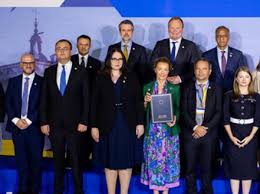

The United States, European Union, and United Kingdom are preparing to sign a new and important treaty called the Council of Europe Framework Convention on Artificial Intelligence and Human Rights, Democracy, and the Rule of Law. This treaty will be the first international agreement that sets legal rules for how AI technology should be developed and used, making sure that AI systems respect human rights and democratic values.
Significance of this treaty
This treaty is significant because it focuses on protecting human rights while also creating a unified approach for many countries. Without such a treaty, different nations could create their own, possibly conflicting rules for AI, which could slow down the development of technology. By having a common set of guidelines, the treaty helps ensure that AI advances safely and fairly.
How was the treaty developed?
The treaty was created over two years, with representatives from more than 50 countries contributing. It uses a “risk-based framework,” which means it looks at how risky an AI system is and sets rules accordingly. The treaty covers both government and private sector use of AI, and it holds those who use AI accountable if the technology harms people or violates rights like privacy or equality.
What are the main goals of the treaty?
The treaty has three key goals:
Protect human rights in how AI is used.
Safeguard democracy, ensuring AI doesn’t interfere with fair political processes.
Provide legal support for anyone whose rights are violated by AI systems.
What must countries do after they sign the treaty?
Once countries sign the treaty, they must make sure that:
AI systems used in their countries respect human rights.
AI does not harm democratic systems.
There are protections in place for people’s freedoms throughout the entire life of an AI system, from creation to use.
The treaty does not fully cover national security and certain research activities. However, both public and private organizations are still responsible for managing any AI-related risks in their operations.
Relate to other AI regulations
This treaty is one part of a broader effort to regulate AI globally. It aligns with other regulatory initiatives like the G7 accord on AI and the European AI Act. These efforts aim to create international standards for AI technology so that its development is safe, fair, and transparent.
While the treaty is legally binding, it doesn’t include strict enforcement tools like fines. Instead, countries will be monitored for their compliance, but there’s no strong punishment if they don’t follow the rules. This raises questions about how effectively the treaty will hold countries accountable.
Around ten countries are expected to be the first to sign the treaty, showing a commitment to responsible AI development. These nations will continue working together in international discussions to ensure AI is used in a way that benefits everyone.
(NNI / Latest news / Latest news india / India latest news/UPSC Preparation)
Bangladesh won't turn into Afghanistan: Muhammad Yunus's message to India
Latest News International: 06th September 2024
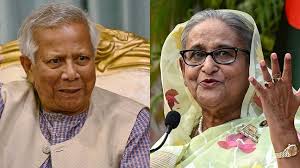

Nobel laureate Muhammad Yunus has reassured India that Bangladesh will not experience a situation similar to Afghanistan's. Yunus's message aims to dispel concerns about regional stability and political developments in Bangladesh. His statement emphasizes the country's commitment to maintaining its unique path and stability amidst regional uncertainties.
(NNI / Latest news / Latest news india / India latest news/UPSC Preparation)
2024 Chief Science Advisers Roundtable in Paris
Latest News International: 06th September 2024, UPSC Preparation
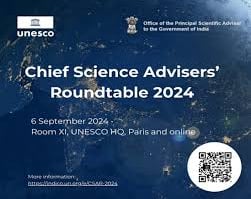

The 2024 Chief Science Advisers’ Roundtable (CSAR) is an important event happening on September 6, 2024, at UNESCO’s headquarters in Paris. It is supported by the Office of the Principal Scientific Adviser to the Government of India and UNESCO’s Natural Sciences Sector. This roundtable brings together top science advisors from around the world to discuss and improve global science policies.
How did CSAR Begin?
CSAR started during India’s G20 Presidency in 2023. The main goal was to create stronger international frameworks for scientific advice, meaning better ways for countries to share and use scientific knowledge to make informed decisions.
Global Participation
This year’s event will include delegations from 28 countries and six international organizations. These delegations will be led by Chief Science Advisers (CSA) or people with similar roles. It’s a global gathering aimed at improving how countries work together in the field of science.
Central Theme
The main theme for 2024 is “Fostering open science, bridging knowledge asymmetry, and building science advice capacity globally.” This means the event will focus on:
Making scientific knowledge open and accessible to everyone (open science).
Reducing gaps in knowledge between different countries or groups (knowledge asymmetry).
Strengthening the ability of countries to give reliable and useful science advice.
Who will Lead the Event?
Two key figures will co-chair the event:
Ajay Kumar Sood, the Principal Scientific Adviser to India.
Lidia Brito, UNESCO’s Assistant Director-General for Natural Sciences.
Together, they will guide the discussions and ensure that the event stays focused on the key themes.
A major part of the event is the knowledge session, which will focus on how science advisory systems can help build trust in science. This session will allow experts to discuss ways to improve how science advice is provided to the public and policymakers.
Collaboration and Future Goals
The 2024 CSAR aims to continue building international cooperation in science advisory practices. South Africa is expected to lead future efforts, which will focus on closing knowledge gaps, promoting open science, and improving how science advice is shared globally.
The 2024 CSAR is a key event that promotes global cooperation, transparency in science, and better ways for countries to share and use scientific knowledge. It will play a crucial role in shaping the future of international science policies.
(NNI / Latest news / Latest news india / India latest news/UPSC Preparation)
Vladimir Putin says India, China, Brazil could mediate Russia-Ukraine talks
Latest News International: 05th September 2024

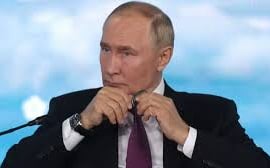
Russian President Vladimir Putin has proposed that India, China, and Brazil could play a role in mediating talks between Russia and Ukraine. Putin's suggestion reflects a strategic move to involve neutral and influential nations in resolving the ongoing conflict. The proposal aims to garner broader international support for negotiations and highlights the shifting dynamics in global diplomacy concerning the Russia-Ukraine war.
(NNI / Latest news / Latest news india / India latest news/UPSC Preparation)
Tulsi Gabbard says Biden administration placed her on ‘secret terror watchlist’ after she criticised Kamala Harris
Latest News International: 05th September 2024
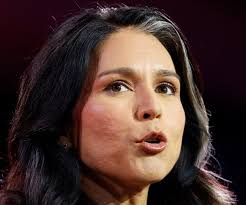

Former Congresswoman Tulsi Gabbard has alleged that the Biden administration placed her on a "secret terror watchlist" following her criticism of Vice President Kamala Harris. Gabbard's claim highlights ongoing tensions and controversies surrounding political dissent and government surveillance. The allegation has sparked a debate about freedom of expression and the potential for political retribution.
(NNI / Latest news / Latest news india / India latest news/UPSC Preparation)
Indian Navy’s P8i Aircraft Lands in France for Varuna Exercise
Latest News International: 05th September 2024, UPSC Preparation
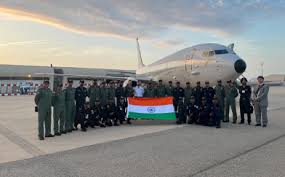

For the first time, an Indian Navy P8i Poseidon aircraft has landed at Air Base 125 Istres-Le Tube in France. This is a significant event, happening as part of India’s participation in the bilateral naval exercise ‘Varuna,’ which is scheduled to take place from September 2 to September 4, 2024, in the Mediterranean Sea.
Objective of Exercise Varuna
The main goal of Exercise Varuna is to conduct advanced tactical drills that help the Indian and French navies work better together. These drills include a variety of complex maritime maneuvers designed to enhance cooperation and coordination between the two naval forces.
Historical Significance
The landing of the P8i Poseidon in France is historically significant because it marks the first time in 63 years that an Indian Navy aircraft has operated from a French airbase. The last time this happened was when the Indian Navy’s Alize aircraft operated from Hyeres Airbase. This event highlights the strong and long-standing naval relationship between India and France.
The P8i Poseidon Aircraft
The P8i Poseidon is a specialized aircraft designed for maritime patrol and reconnaissance missions. It was developed by Boeing Defence and is based on the Boeing 737-800 aircraft. Since being introduced into the Indian Navy in 2013, the P8i Poseidon has flown over 35,000 hours. It plays a vital role in coastal patrolling, monitoring the seas, fighting against submarines, and conducting search-and-rescue missions.
Indian Navy’s Participation
In addition to the P8i Poseidon, the Indian Navy’s warship INS Tabar has also arrived in Toulon, France, to take part in the Varuna exercise. This demonstrates the strong engagement and cooperation between the Indian and French navies.
History of Exercise Varuna
Exercise Varuna began in 1993 and was officially named ‘Varuna’ in 2001. Over the years, it has become an important part of the strategic relationship between India and France. The exercise typically includes a range of naval assets, such as guided missile frigates, tankers, maritime patrol aircraft, and helicopters from both countries. These joint exercises allow both navies to share best practices and improve their operational interactions, making them better prepared to work together in real-world situations.
(NNI / Latest news / Latest news india / India latest news/UPSC Preparation)
Russia To Revise Nuclear Doctrine Over Actions Of The "Collective West"
Latest News International: 04th September 2024
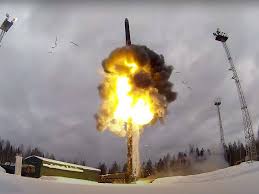

Russia has announced plans to revise its nuclear doctrine, citing actions by the "collective West" as a key factor in this decision. The move reflects growing geopolitical tensions and concerns about security threats from Western nations. The updated doctrine will outline new strategies and policies for Russia's nuclear arsenal, emphasizing the country's stance on international relations and defense priorities.
(NNI / Latest news / Latest news india / India latest news/UPSC Preparation)
UN Allocates $100 Million For Urgent Humanitarian Needs
Latest News International: 03rd September 2024, UPSC Preparation
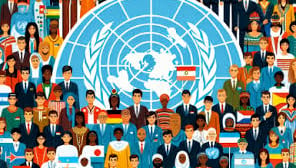

The United Nations has recently allocated $100 million from its Central Emergency Response Fund (CERF) to help address urgent humanitarian needs in ten countries facing severe crises. This decision highlights the pressing need for funding, as noted by UN humanitarian chief Joyce Msuya.
How Is the Funding Distributed?
The $100 million is divided among several countries facing different challenges:
Yemen ($20 million): Dealing with a long-lasting civil war.
Ethiopia ($15 million): Struggling with internal conflict and ethnic tensions.
Myanmar ($12 million), Mali ($11 million), Burkina Faso ($10 million), Haiti ($9 million): These countries are dealing with ongoing conflicts and climate-related problems.
Cameroon ($7 million) and Mozambique ($7 million): Both countries are facing chronic instability.
Burundi ($5 million) and Malawi ($4 million): Experiencing severe food shortages due to climate issues.
Historical Context
This $100 million allocation is the second of its kind in 2024, with the first one made in February. Over the last three years, the total amount of CERF funding has decreased. This shows a growing gap between the increasing humanitarian needs and the available resources.
Global Humanitarian Needs
The global humanitarian community has requested $49 billion this year to help 187 million people. However, only 29% of this amount has been provided so far, leaving a $35 billion shortfall. Some of the current funding supports climate-related initiatives through CERF’s Climate Action Account, which was introduced at COP28. This account focuses on addressing climate emergencies by funding proactive measures and resilience projects.
CERF’s Impact and Goals
Since it started in 2005, CERF has distributed $9.3 billion to help millions of people in over 110 countries. Of this, $3.2 billion has gone to underfunded crises. CERF is crucial for quick humanitarian responses and aims to raise $1 billion annually for its efforts.
About the United Nations
The United Nations (UN) was created in 1945 after World War II to promote peace and cooperation. It has 193 member countries and six official languages, with its headquarters in New York City. The UN’s budget is mainly funded by contributions from its member states. It has five main organs, including the General Assembly and the Security Council. The UN conducts peacekeeping missions, with its first mission starting in 1948. Specialized agencies like UNICEF and WHO are part of the UN system. UN Day is celebrated on October 24, and the Universal Declaration of Human Rights was adopted by the UN in 1948.
(NNI / Latest news / Latest news india / India latest news/UPSC Preparation)
Greece Declares Emergency over Massive Flood of Dead Fish
Latest News International: 02nd September 2024, UPSC Preparation
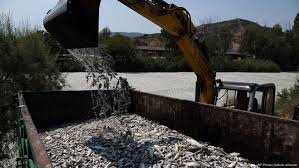

The port city of Volos in Greece has declared a month-long state of emergency. This is because an unusually large number of dead fish have washed up in the Pagasetic Gulf, creating a major problem for residents and businesses.
Cause of the Crisis
The dead fish issue began after severe flooding hit the Thessaly region last year. The floods caused a nearby lake to overflow. As a result, freshwater fish from the lake were carried into the sea, where they couldn’t survive in the salty water, leading to their deaths.
Impact on Local Economy
The local economy, especially businesses related to tourism and hospitality, has suffered greatly. Visitor numbers have dropped by 80% since the flooding, which has caused financial difficulties for many residents and businesses in Volos. People are worried about their jobs and income because fewer tourists are coming to the city.
To address the situation, the Greek climate ministry is providing funding and resources for cleaning up the mess. They have placed special nets at the mouths of rivers to catch dead fish before they reach the beaches. Authorities have already removed a large amount of dead fish from local beaches.
Environmental Concerns
This is not the first environmental problem Volos has faced. It is the second major environmental disaster for the city, prompting public prosecutors to investigate the situation. They are looking into how this incident affects the environment and what it means for the future.
The situation in Volos shows how serious environmental issues can have far-reaching effects on both nature and local economies. It highlights the need for better preparedness and response to climate-related disasters to protect communities and their livelihoods.
(NNI / Latest news / Latest news india / India latest news/UPSC Preparation)
3rd Edition of India-U.S. Defence Acceleration Ecosystem (INDUS-X)
Latest News International: 02nd September 2024, UPSC Preparation
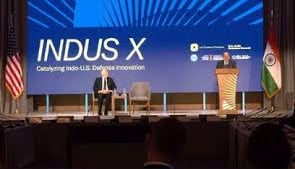

The INDUS-X Summit is a major event where leaders from India and the United States come together to talk about new ideas and technologies in the defense sector. The third edition of this summit is set to take place on September 9-10, 2024, at Stanford University in California. The goal of the summit is to strengthen the collaboration between the U.S. and India, especially in defense innovation.
What is the Purpose of the INDUS-X Summit?
The main purpose of the INDUS-X Summit is to provide a platform where top defense leaders from both countries can discuss how to improve cooperation in advanced technology and innovation. This collaboration is essential for developing new technologies that can be used in defense.
Key Participants
The summit will have many important participants, including prominent figures like former U.S. Secretary of State Condoleezza Rice. The event will also bring together policymakers, startups, venture capitalists (people who invest in new businesses), and academics from both India and the United States. This diverse group will work together to explore new opportunities for defense innovation.
Themes and Focus Areas
The theme for this year’s summit is “harnessing investment opportunities to enhance cross-border defense innovation ecosystems.” This means that a lot of attention will be given to how private investments (money from businesses and investors) can help drive innovation in defense technology.
Background of INDUS-X
The INDUS-X initiative started in June 2023 to build stronger partnerships in strategic technology and defense industries between the U.S. and India. This collaboration is seen as important for both countries to stay ahead in defense technology.
At the first INDUS-X Summit, Indian and U.S. startups from various fields, such as maritime, artificial intelligence (AI), autonomous systems, and space, displayed their cutting-edge technologies. These exhibits were particularly interesting to top defense officials.
The INDUS-X Tech Expo, which will be part of the summit, will feature the latest innovations in defense technology. This expo will help connect technology firms, government officials, and investors, all working together to advance defense capabilities.
(NNI / Latest news / Latest news india / India latest news/UPSC Preparation)
UN Calls for Urgent Action on Rising Sea Levels
Latest News International: 29th August 2024, UPSC Preparation
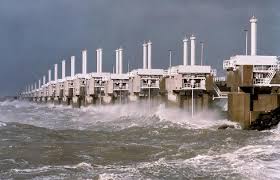

UN Secretary-General Antonio Guterres visited Tonga to highlight a serious global issue—rising sea levels. He spoke at the Pacific Islands Forum, emphasizing how quickly sea levels are increasing and the dangers this poses, especially to low-lying nations like Tonga.
Understanding Rising Sea Levels
Rising sea levels mean that the ocean water is getting higher over time. This is happening faster than ever before, mainly because of climate change. The Pacific region, where Tonga is located, is seeing some of the fastest rises in sea levels, with some places experiencing rates more than twice the global average. The two main reasons for this are:
Warmer Oceans: As the ocean water gets warmer, it expands and takes up more space.
Melting Ice: Glaciers and ice sheets in places like Antarctica and Greenland are melting, adding more water to the oceans.
How Does This Affect Coastal Communities?
Rising sea levels have several harmful effects on communities living near the coast, including:
More Storm Surges: Storms can push the higher ocean water onto the land, causing severe flooding.
Coastal Flooding: Higher sea levels mean that coastal areas are more likely to flood, even without storms.
Saltwater Intrusion: Seawater can seep into freshwater supplies, making it hard for people to get clean drinking water.
These problems threaten people’s homes, livelihoods, and the natural environment in vulnerable regions.
Guterres’ Call for Global Action
Guterres urged world leaders to act quickly to address this crisis. He emphasized four key actions:
Reduce Greenhouse Gas Emissions: These are the gases that contribute to global warming and climate change.
Phase Out Fossil Fuels: Fossil fuels, like coal and oil, are major sources of greenhouse gases.
Invest in Renewable Energy: Energy sources like solar and wind power don’t produce greenhouse gases.
Adapt to Climate Change: Since some effects of climate change are unavoidable, communities need to prepare for the impacts.
He stressed that we must limit global warming to 1.5 degrees Celsius to avoid the worst consequences, such as the collapse of major ice sheets, which could cause even more rapid sea level rise.
Focus on G20 Countries
The Secretary-General pointed out that the G20 nations, which include the world’s largest economies, are responsible for 80% of global emissions. He said that without significant cuts in emissions from these countries, it will be impossible to keep global warming within safe limits, potentially leading to a dangerous increase beyond two degrees Celsius. Guterres also emphasized the need for more financial help for countries like Tonga that are most affected by rising sea levels. This support is crucial for helping these nations adapt to the changes and build resilience against future impacts.
(NNI / Latest news / Latest news india / India latest news/UPSC Preparation)
Australia Records Historic Winter Temperature of 41.6°C
Latest News International: 28th August 2024, UPSC Preparation


Australia recently recorded its hottest winter temperature ever, reaching 41.6°C (106.7°F) at Yampi Sound. This breaks the previous winter record by 0.4°C. It’s also the highest temperature ever recorded in August across the country. The previous winter record was 41.2°C (106.2°F), set in August 2020 at West Roebuck. In Australia, winter lasts from early June to late August, and extreme heat is common in desert areas year-round.
What Affects Australia’s Climate?
Australia’s climate is influenced by three main factors: temperatures in the Indian Ocean, the Southern Annular Mode (winds between Australia and Antarctica), and Pacific weather patterns like El Niño and La Niña. These factors cause varying weather across the country.
The Impact of Climate Change
Climate change is making temperatures rise faster in Australia, leading to more severe bushfires, floods, droughts, and heatwaves. Research from the Commonwealth Scientific and Industrial Research Organisation shows that human-caused climate change is affecting these natural climate patterns. Globally, 2023 is expected to be Australia’s hottest winter ever. From January to July, temperatures were 0.7°C above the 1991-2020 average, and 2024 is likely to set new global temperature records. Australia’s recent temperature spikes highlight broader climate trends, raising concerns about the effects of human activity on the environment and natural climate systems.
Facts About Yampi Sound
Yampi Sound is a narrow strait in Australia, separating the Yampi Peninsula from Western Australia’s mainland.
The area has rich biodiversity and a pristine marine environment.
Yampi Sound is part of the Buccaneer Archipelago, known for its dramatic tides and limestone cliffs.
It was historically used for pearl diving.
The sound has unique rock formations and is home to species that are found nowhere else.
It serves as an important habitat for various marine life and migratory birds.
(NNI / Latest news / Latest news india / India latest news/UPSC Preparation)
Who is Pavel Durov, CEO of Telegram, Arrested in France?
Latest News International: 28th August 2024, UPSC Preparation


Pavel Durov, the co-founder and CEO of Telegram, was arrested at Le Bourget airport in Paris. His arrest is connected to an ongoing investigation in France. Authorities are looking into accusations that Telegram, due to its privacy features and lack of moderation, has allowed various illegal activities to occur on its platform. These activities include crimes like drug trafficking and cyberstalking, and the French government is concerned that Telegram isn’t doing enough to stop them or help law enforcement.
Who is Pavel Durov?
Pavel Durov was born in the Soviet Union and later studied at St. Petersburg University. He is well-known for creating the social media platform VKontakte (VK), which became very popular in Russia. However, when the Russian government asked him to hand over user data, he refused. This led him to leave Russia and, in 2013, he founded Telegram. His main focus with Telegram has always been on protecting user privacy and providing strong security features.
What makes Telegram Different?
Telegram is a messaging app that puts a lot of emphasis on user privacy. It uses advanced encryption to protect messages and allows users to participate in very large group chats. By 2024, the app had gained over 900 million users. One of the reasons for its popularity is that users can sync their chats across multiple devices, making it more convenient than other apps like WhatsApp.
Why is Telegram Facing Legal Issues?
The French government has raised concerns about how Telegram’s privacy features might be helping people commit crimes. Because Telegram is so focused on privacy, some people are using it to do illegal things, like drug trafficking and cyberstalking. Authorities also suspect that Telegram has been used to spread harmful content, such as child pornography. Pavel Durov’s refusal to fully cooperate with the investigation has put him and Telegram under more intense scrutiny.
What is Telegram’s Content Policy?
Telegram has always stated that it is committed to protecting user privacy. The company has a policy of removing illegal content when they are legally required to do so. However, Telegram is also firm about not engaging in censorship that is politically motivated. The platform aims to stay neutral and support free speech, meaning they try not to take sides in political matters.
What does this mean for tech companies worldwide?
Pavel Durov’s situation highlights a bigger issue that many tech companies are facing around the world. Governments are increasingly pressuring these companies to do more content moderation, but this often conflicts with the companies’ commitments to free speech and privacy. Other major tech companies like Meta (formerly Facebook) and X (formerly Twitter) are also dealing with similar challenges, as they try to balance following laws and protecting user rights.
(NNI / Latest news / Latest news india / India latest news/UPSC Preparation)
INS Mumbai to Make Maiden Visit to Colombo
Latest News International: 27th August 2024, UPSC Preparation
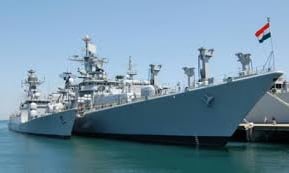

The Indian Naval Ship (INS) Mumbai is scheduled to visit Colombo, Sri Lanka, on August 26, 2024. This visit is important as it highlights the growing maritime cooperation between India and Sri Lanka and showcases India’s dedication to regional security and mutual assistance.
What is the Background of INS Mumbai?
INS Mumbai was commissioned on January 22, 2001, and is part of the Delhi-class destroyers, which are among the Indian Navy’s frontline warships. The deployment of INS Mumbai demonstrates India’s strong naval capabilities and readiness for operations.
What is the Purpose of the Visit?
The primary goal of this visit is to strengthen naval ties between India and Sri Lanka. One of the key activities during this visit is the delivery of essential spare parts for the Sri Lankan Air Force’s Dornier maritime patrol aircraft. Additionally, the Indian Navy has been actively involved in training Sri Lankan Air Force personnel to operate these aircraft, further enhancing the cooperation between the two countries. During its stay in Colombo, INS Mumbai will participate in various joint activities with the Sri Lankan Navy. These include familiarization tours for Sri Lankan naval personnel, sports events, yoga sessions, and beach cleaning initiatives. These activities are designed to foster goodwill and strengthen mutual understanding between the two naval forces.
Significance of Dornier Aircraft
The Dornier aircraft, which has been operational for two years, plays a crucial role in monitoring Sri Lanka’s maritime domain. Its enhanced surveillance capabilities are vital for the country’s national security, making it an important asset for the Sri Lankan Air Force.
Previous Interactions Between India and Sri Lanka
The visit of INS Mumbai follows several other Indian naval engagements in Sri Lanka throughout 2024. This includes visits from other Indian warships such as INS Kabra, Karanj, Kamorta, and Shalki, as well as vessels from the Indian Coast Guard. These interactions reflect the ongoing and deepening naval cooperation between the two nations in the region.
Significance of INS Mumbai’s Visit
The visit of INS Mumbai underscores the strategic partnership between India and Sri Lanka, promoting regional stability through joint naval initiatives and technical support. The visit is a clear indication of the strengthening ties between the two countries, particularly in the area of maritime security. INS Mumbai will conclude its visit and depart from Colombo on August 29, 2024.
Facts About INS Mumbai
INS Mumbai is a powerful warship in the Indian Navy, part of the Kolkata-class destroyers.
Commissioned in 2001, it has been in active service for decades.
The ship is armed with advanced weapons, including BrahMos missiles, which are highly effective.
It has a displacement of around 7,400 tons, meaning it’s quite large and heavy.
INS Mumbai can move fast, reaching speeds of up to 30 knots (about 55 km/h).
It features stealth technology, making it harder to detect by enemy radar.
The ship has a modern combat management system that helps coordinate its operations.
INS Mumbai took part in the Indo-Pakistani maritime exercise in 2020 and has been involved in international exercises like RIMPAC.
The ship is named after Mumbai, India’s financial hub.
(NNI / Latest news / Latest news india / India latest news/UPSC Preparation)
India, and Indonesia Condemn Cross-Border Terrorism From Pakistan
Latest News International: 27th August 2024, UPSC Preparation
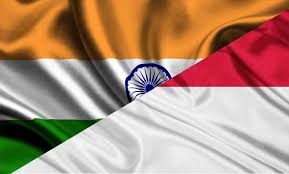

India and Indonesia recently criticized the use of terrorist groups to carry out attacks across borders, focusing on Pakistan’s support for terror groups targeting Jammu and Kashmir. This issue was discussed during the sixth meeting of the India-Indonesia joint working group on counter-terrorism in Jakarta.
What is Cross-Border Terrorism?
Cross-border terrorism happens when terrorist groups based in one country carry out attacks in another. This type of terrorism affects regional security and requires countries to work together internationally to tackle the problem.
Joint Working Group Meeting
At the sixth meeting of the India-Indonesia joint working group on counter-terrorism, held in Jakarta, the focus was on finding ways to work together to fight terrorism. The discussions included how terrorists are using new technologies to further their activities. Both India and Indonesia strongly condemned terrorism in all its forms and called for better international cooperation to tackle these threats effectively and thoroughly.
Focus Areas
Key topics included:
The use of terrorist proxies for cross-border terrorism.
Emerging technologies and their misuse by terrorists.
Terror financing and its links to organized crime.
Use of Technology by Terrorists
The meeting also addressed concerns about how terrorists are using new technologies. This includes the misuse of the internet for carrying out terrorist activities and funding their operations. India and Indonesia agreed on the importance of sharing information about terrorism threats and working together more closely in regional and global forums like the United Nations and the ASEAN Regional Forum to improve counter-terrorism efforts.
Delegations
The Indian delegation was led by K D Dewal, the Joint Secretary (Counter-Terrorism) in the Ministry of External Affairs, while the Indonesian delegation was headed by Andhika Chrisnayudhanto, the Deputy for International Cooperation at the National Counter Terrorism Agency.
(NNI / Latest news / Latest news india / India latest news/UPSC Preparation)
North Korean leader Kim Jong Un unveils new ‘suicide drones’
Latest News: 26th August 2024
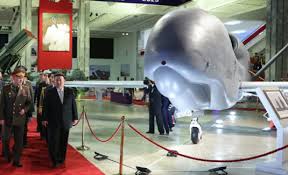

Suicide drones are explosive-carrying unmanned drones designed to be deliberately crashed into enemy targets, effectively acting as guided missiles.
(NNI / Latest news / Latest news india / India latest news/UPSC Preparation)
India, Ukraine Sign Agreements to Strengthen Bilateral Ties
Latest News: 25th August 2024, UPSC Preparation
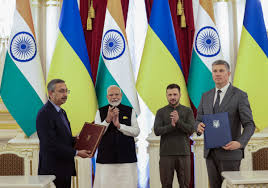

India and Ukraine have taken a big step forward in their relationship by signing four important agreements. These agreements are designed to improve cooperation between the two countries in key areas like defence, trade, medicine, green energy, and education.
Bilateral Talks
Indian Prime Minister Narendra Modi and Ukrainian President Volodymyr Zelenskyy had important discussions where they both expressed a strong interest in upgrading their relationship from a general partnership to a more strategic alliance. While they did talk about the ongoing Russia-Ukraine conflict, they made sure to focus on the importance of strengthening ties between India and Ukraine.
Defence Cooperation
One of the key areas they focused on was defence. The leaders agreed to work together more closely on defence matters, including creating joint ventures to manufacture military equipment in India. This will help strengthen their strategic ties. Since the war in 2022, trade between India and Ukraine has decreased. To address this, Modi and Zelenskyy decided to task the India-Ukraine inter-governmental commission with revitalizing trade and bringing it back to the levels it was at before the conflict.
Sectoral Agreements
The four agreements that were signed cover various important sectors, including agriculture, the food industry, medicine, culture, and humanitarian assistance. Both countries want to enhance cooperation in these areas, with a special focus on trade, agriculture, and pharmaceuticals. The two leaders agreed to encourage more business interactions and explore joint projects. They also plan to make it easier for businesses to operate in each other’s countries by reducing trade barriers. Modi and Zelenskyy also talked about future collaborations in education, including the mutual recognition of educational qualifications and the possibility of opening branches of higher education institutions in both countries.
Global Security and Terrorism
Both India and Ukraine strongly condemned terrorism and reaffirmed their commitment to working together against extremism, following international laws. They also called for reforms in the United Nations Security Council to make it more effective. Modi invited Zelenskyy to visit India, showing a strong commitment to continuing to build this important relationship. Moving forward, both countries plan to focus on strengthening their collaboration across various sectors to promote mutual growth and security.
(NNI / Latest news / Latest news india / India latest news/UPSC Preparation)
India-Denmark Launch Smart Laboratory for Clean Rivers Initiative
Latest News International: 25th August 2024, UPSC Preparation


The Environmental Strategic Partnership between India and Denmark has launched the Smart Laboratory on Clean Rivers (SLCR) project to help restore the Varuna River. This project has received ₹16.8 crore from India’s Jal Shakti Ministry and an additional ₹5 crore from Denmark.
Objectives of the SLCR
The main goal of the SLCR is to improve the health of the river and boost the local economy and social conditions. This will be achieved using advanced technology and a detailed river management plan over the next 2 to 3 years. The SLCR will use special models to study how the river’s water moves and behaves. It will also use real-time monitoring tools and data visualization to help make better decisions about managing the river. Certain parts of the Varuna River will get specific treatments to enhance the river’s health and benefit the local communities economically and socially.
Hydrogeological Model for Recharge Sites
In the final phase of the project, a Hydrogeological Model will be developed for the Varuna Basin. This model will help find the best places for managed aquifer recharge using advanced techniques and mathematical models to figure out the best ways to recharge the groundwater. The SLCR is a great example of teamwork between India and Denmark. It highlights how important it is for government agencies, universities, and local communities to work together to find effective solutions for improving river water quality.
Facts About Varuna River
The Varuna River flows through Varanasi in India and is a tributary of the Ganges.
It is considered sacred in Hinduism and named after Varuna, the Vedic god of water.
The river is about 45 kilometers long, making it shorter than many other Indian rivers.
It is linked to the myth of the Ganges coming down to Earth.
The river supported ancient trade routes and farming.
The banks of the Varuna are home to many unique and native species.
Pollution is a major threat to the river’s ecosystem.
(NNI / Latest news / Latest news india / India latest news/UPSC Preparation)
Non-Native Species Threaten Antarctic Marine Ecosystems
Latest News: 24th August 2024, UPSC Preparation

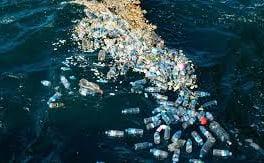
Recent research published in Global Change Biology warns about the increasing danger of non-native species reaching Antarctica, especially through floating objects like marine debris. This is becoming a bigger concern due to climate change and more ships traveling to and from Antarctica, which can carry organisms from warmer regions.
Why Non-Native Species are a Problem
Non-native species, whether they are plants or animals, can disrupt the natural balance of life in Antarctica. The native species there have adapted to extremely cold and unique conditions, and the introduction of new species could threaten their survival. As the climate warms and more ice-free areas appear, conditions might become favorable for these non-native species to survive and spread, leading to significant changes in the local ecosystem.
Where These Species Are Coming From
Studies have shown that floating objects can drift to Antarctica from various places, not just nearby sub-Antarctic islands but also from continents like Australia, South Africa, South America, and New Zealand. These regions have species that can survive long journeys by clinging to floating debris, increasing the likelihood that they might reach Antarctica.
How the Research Was Conducted
To understand this risk better, researchers used computer models to simulate how virtual particles, representing floating objects, would move through the ocean. They released these particles from ten locations, including areas known for having southern bull kelp, a species with strong rafting abilities, as well as places where marine debris is common. The simulations showed that there is a significant connection between Antarctica and other southern landmasses. For instance, particles from places like Macquarie Island, Kerguelen Islands, and South Georgia had the highest chances of reaching Antarctica. On the other hand, Tasmania had the least connection, meaning fewer particles from there reached Antarctic shores.
The Role of Human-Made Debris
The rise in plastics and other human-made debris in the ocean is providing more opportunities for organisms to hitch a ride to Antarctica. For example, molluscs and kelp can attach themselves to these objects and potentially start new populations in Antarctica, which could harm the native marine life there.
The Specific Threat of Southern Bull Kelp
Southern bull kelp (Durvillaea antarctica) is a particularly worrying species because of its large size and ability to reproduce over long distances in the ocean. If it manages to establish itself in Antarctica, it could change marine ecosystems by creating new habitats, which would support different species and potentially disrupt the current ecological balance
This research highlights the serious risk that non-native species pose to Antarctica’s unique ecosystems, especially as the environment changes. It stresses the importance of monitoring these threats and developing strategies to protect the region’s biodiversity from these emerging dangers.
uniform civil code / what is uniform civil code / uniform civil code meaning / uniform civil code article / uniform civil code in india / uniform civil code in hindi / uniform civil code upsc / uniform civil code kya hai / ucc uniform civil code / what is uniform civil code in india / uniform civil code Uttarakhand / uniform civil code essay / uttarakhand uniform civil code / uniform civil code means / uniform civil code kerala / kerala uniform civil code / uniform civil code in which state of india / uniform civil code pdf / uniform civil code in Uttarakhand / uniform civil code india
India-US Discuss Energy Cooperation in High-Level Meeting
Latest News International: 24th August 2024, UPSC Preparation

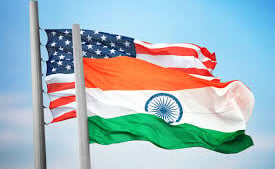
Union Power Minister Manohar Lal held an important discussion with John Podesta, a senior adviser to the US President on International Climate Policy. This meeting marked a key moment in strengthening the cooperation between India and the United States in the energy sector, with a strong focus on clean energy projects.
Bilateral Cooperation
The talks were described as “productive,” meaning both sides felt the meeting was successful and positive. Minister Lal and Podesta both agreed on the importance of working together to address energy challenges and move towards a future that relies more on clean energy.
Key Areas of Discussion
Grid Modernization: They discussed the importance of improving India’s electricity grid and transmission systems. This is crucial for handling future energy needs, especially as India shifts more towards renewable energy sources.
Manufacturing Capacity: Another topic was how to strengthen India’s ability to produce energy-related technologies, such as solar panels and wind turbines. Increasing manufacturing capacity would help India become more self-sufficient in clean energy technology.
Energy Storage Systems: They explored the idea of partnerships between Indian states and the US for research and development of advanced energy storage solutions. This includes long-term battery systems that can store large amounts of energy, which is important for maintaining a stable power supply from renewable sources like solar and wind.
Energy Efficiency: Improving energy efficiency was another major point. They talked about high-efficiency cooling systems, which use less energy and could be part of broader efforts to make India’s energy use more efficient.
Strategic Clean Energy Partnership (SCEP)
The meeting also highlighted the significance of the ‘Power & Energy Efficiency Pillar’ under the Strategic Clean Energy Partnership (SCEP). This partnership shows a shared commitment between India and the US to work together on creating a sustainable energy future.
Future Collaborations
Both countries showed interest in continuing technical exchanges, policy discussions, and exploring funding options to support these initiatives. They emphasized the need to build strong supply chains and create partnerships driven by investment. Overall, the dialogue between India and the US represents an important step towards their shared goal of a clean energy transition. Both sides are dedicated to deepening their cooperation in critical energy areas, making this meeting a significant milestone in their ongoing partnership.
uniform civil code / what is uniform civil code / uniform civil code meaning / uniform civil code article / uniform civil code in india / uniform civil code in hindi / uniform civil code upsc / uniform civil code kya hai / ucc uniform civil code / what is uniform civil code in india / uniform civil code Uttarakhand / uniform civil code essay / uttarakhand uniform civil code / uniform civil code means / uniform civil code kerala / kerala uniform civil code / uniform civil code in which state of india / uniform civil code pdf / uniform civil code in Uttarakhand / uniform civil code india
Army’s unmanned aerial vehicle develops snag, drifts into PoK
Latest News: 23rd August 2024

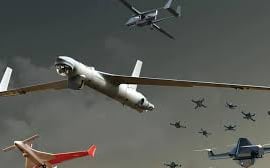
An unmanned aerial vehicle (UAV) belonging to the Indian Army experienced a technical malfunction, causing it to drift into Pakistan-occupied Kashmir (PoK). The incident, which occurred during routine surveillance operations, has raised concerns about border security and the integrity of military equipment. The Indian Army has acknowledged the mishap and is coordinating with relevant authorities to address the situation. Measures are being taken to retrieve or secure the UAV while ensuring that such incidents do not compromise national security. The incident has also prompted discussions on improving UAV technology and operational protocols.
uniform civil code / what is uniform civil code / uniform civil code meaning / uniform civil code article / uniform civil code in india / uniform civil code in hindi / uniform civil code upsc / uniform civil code kya hai / ucc uniform civil code / what is uniform civil code in india / uniform civil code Uttarakhand / uniform civil code essay / uttarakhand uniform civil code / uniform civil code means / uniform civil code kerala / kerala uniform civil code / uniform civil code in which state of india / uniform civil code pdf / uniform civil code in Uttarakhand / uniform civil code india
AIM Invites Applications for Australia-India Agritech Program
Latest News International: 22nd August 2024, UPSC Preparation

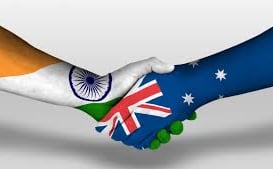
The Atal Innovation Mission (AIM) has opened applications for Indian and Australian startups and small businesses to join the climate-smart Agritech group of the India Australia Rapid Innovation and Startup Expansion (RISE) accelerator. This program is designed to help businesses grow internationally and collaborate between India and Australia, especially in the Agritech field.
Program Overview
The RISE Accelerator supports startups and small businesses in testing and adapting their technologies for international markets. The focus is on improving farming methods and resilience in the face of climate change, limited resources, and food shortages. The goal of this group is to support businesses that create technologies to help farmers and improve farming practices. The aim is to strengthen farming operations in both India and Australia.
Program Structure
The program lasts for nine months and includes both online learning and in-person activities in India and Australia. Participants will get deep insights into the market, personalized coaching, and mentorship from industry experts to help them grow and fit better into the market. Participants will have the chance to conduct field trials and test their technologies in real-world situations. They will also have opportunities to network with potential partners and customers, which is crucial for business success.
Applications and Support
The application deadline is September 15, 2024. There are no fees to join, and selected businesses might receive non-equity grants of up to Rs 45 lakhs. They will also have opportunities to travel between Australia and India, promoting further collaboration. This accelerator program aims to tackle important agricultural challenges and make innovative, effective farming practices available to farmers. It supports the goal of sustainable development in agriculture.
About Atal Innovation Mission (AIM)
The Atal Innovation Mission (AIM) is a major program started by NITI Aayog in 2016. Its main goal is to encourage new ideas and support people starting their businesses all over India. AIM aims to build a supportive environment for innovation and entrepreneurship at every level, including schools, universities, research centers, small and medium-sized businesses (MSMEs), and large industries.
uniform civil code / what is uniform civil code / uniform civil code meaning / uniform civil code article / uniform civil code in india / uniform civil code in hindi / uniform civil code upsc / uniform civil code kya hai / ucc uniform civil code / what is uniform civil code in india / uniform civil code Uttarakhand / uniform civil code essay / uttarakhand uniform civil code / uniform civil code means / uniform civil code kerala / kerala uniform civil code / uniform civil code in which state of india / uniform civil code pdf / uniform civil code in Uttarakhand / uniform civil code india
India Amends Power Export Rules Amid Bangladesh Electricity Supply Concerns
Latest News International: 21st August 2024, UPSC Preparation

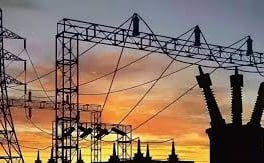
India made changes to its rules about exporting electricity to other countries, in August 2024. These changes were made to protect Indian companies from political risks in countries like Bangladesh. The new rules allow Indian power companies to bring the electricity back to India if there are delays in payments from the countries they supply. One of the companies affected by this is Adani Power, which runs a power plant in Godda, Jharkhand, that sends all its electricity to Bangladesh. Despite these changes, Adani Power has assured that it will continue to meet its commitments to Bangladesh.
What is the Godda Project?
Adani Power runs a very large power plant in Godda, Jharkhand, that can produce 1,496 megawatts (MW) of electricity. This entire amount of electricity is sent to Bangladesh. The project began in 2017 when Adani Power signed a 25-year agreement with the Bangladesh Power Development Board (BPDB). This agreement, called a Power Purchase Agreement (PPA), marked India’s first project that sends electricity across borders to another country.
Goals and Benefits of the Godda Project
The main goal of the Godda project is to help Bangladesh improve its electricity supply. It does this by providing cheaper electricity generated from coal, replacing the more expensive electricity made from liquid fuels. In June 2023, Bangladesh could produce a total of 24,911 MW of electricity, and the Godda plant contributed about 6% of this with its 1,496 MW.
Criticism and Concerns
The Godda project has faced some criticism. One issue is that the coal used at the Godda plant is imported from a mine in Australia, which makes the electricity more expensive for Bangladesh. Bangladeshi officials have said that the cost of coal under the PPA is too high. There are also concerns about the high costs of maintaining the plant and its capacity, which adds to the overall expense.
Why Does Bangladesh Need to Import Power?
Although Bangladesh has expanded access to electricity for its people, the country still struggles with problems in getting enough fuel to run its power plants. This has led to many power plants being underused. By June 2023, Bangladesh had a total power generation capacity of 28,098 MW, but about 11,621 MW of this capacity was not being used because of financial and logistical problems.
What Do These Changes Mean?
The new rules in India give power companies more options, reducing their reliance on selling electricity to other countries when there are payment issues. While these changes might cause some short-term disruptions in the supply of electricity to Bangladesh, experts believe that Bangladesh’s long-term energy plans won’t be greatly affected.
(NNI / Latest news / Latest news india / India latest news/UPSC Preparation)
Germany Joins 18th Member State of United Nations Command in South Korea
Latest News: 20th August 2024, UPSC Preparation
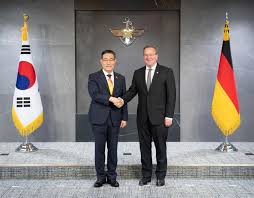

Germany recently joined the U.S.-led United Nations Command (UNC) in South Korea, making it the 18th member. This move shows Germany’s commitment to global security and its belief that stability in Europe and the Indo-Pacific region are connected.
What is UNC?
The UNC was established in 1950 to help restore peace during the Korean War and enforce the armistice agreement. Although it was created under the United Nations, it operates independently and serves as a communication link with North Korea. The command is mainly led by the U.S. military commander in South Korea.
Germany’s Role in the UNC
Germany’s addition to the UNC brings fresh perspectives and resources, which strengthens the command’s capabilities. This decision aligns with the goals of the U.S. and its allies to boost regional security, especially in the face of challenges from authoritarian regimes.
Impact on European and Indo-Pacific Security
Germany sees its participation in the UNC as essential for collective security, emphasizing that peace in Europe is connected to stability in the Indo-Pacific. German Defence Minister Boris Pistorius has highlighted the importance of unity in addressing global crises.
Reactions from Other Countries
Germany’s inclusion in the UNC has faced criticism from China and North Korea, who have historically opposed the command. North Korea views the UNC as a tool for U.S. confrontation, while China is concerned about NATO’s growing influence in Asia. Germany plans to reopen its embassy in Pyongyang, which was closed during the COVID-19 pandemic, and is considering its role within the UNC. The exact duties of German troops in Korea are still being discussed. South Korean Defence Minister Shin Won-sik has welcomed Germany’s involvement as a significant contribution to peace efforts on the Korean Peninsula.
Facts About Germany
Germany is known for the Berlin Zoo, the oldest zoo in the world, founded in 1844, with over 19,000 animals.
The country is famous for its beer, with about 1,500 varieties, governed by the Reinheitsgebot, or Beer Purity Law.
Germany’s Autobahn has sections with no speed limit, attracting speed enthusiasts.
The Berlin Wall, which was taken down in 1989, symbolized the Cold War division.
Munich’s Oktoberfest is the world’s largest beer festival.
Germany produces about 1 million cars each year, mainly from brands like Volkswagen, and has the largest economy in Europe.
Facts About the United Nations Command (UNC)
The UNC was established in 1950 during the Korean War to support South Korea against the North.
It’s not a standing army but a coalition of member states.
Headquartered in Seoul, it operates under United Nations Security Council resolutions.
The UNC has maintained a ceasefire since 1953 but doesn’t have a formal peace treaty.
Major General Paul J. LaCamera is the current commander.
The UNC also conducts humanitarian missions and disaster relief efforts in the region.
(NNI / Latest news / Latest news india / India latest news/UPSC Preparation)
PM Modi to address Third Voice of Global South Summit
Latest News: 20th August 2024, UPSC Preparation

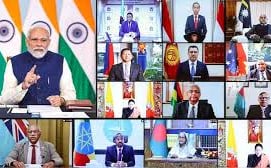
India hosted the third Voice of Global South Summit (VOGSS), following the principle of ‘Vasudhaiva Kutumbakam,’ which means “the world is one family.” This summit supports Prime Minister Narendra Modi’s vision of development that includes everyone.
Purpose of the Summit
The VOGSS is designed to empower countries in the Global South by providing a platform to discuss and address ongoing challenges like conflicts, food and energy crises, and climate change—issues that heavily impact developing nations.
Participation and Format
All countries from the Global South are invited to join the summit, which is held online. The event includes a Leaders’ Session and several sessions for different ministers.
Key Themes and Sessions
The main theme of the summit is “An Empowered Global South for a Sustainable Future.” There are specific sessions for different topics:
Foreign Ministers: “Charting a Unique Paradigm for Global South”
Health Ministers: “One World-One Health”
Youth Ministers: “Youth Engagement for a Better Future”
Commerce Ministers: “Trade for Development”
IT Ministers: “Digital Public Infrastructure for Development”
Finance Ministers: “People-Centric Approach to Global Finance”
Energy Ministers: “Sustainable Energy Solutions”
Education Ministers: “Human Resource Development”
Environment Ministers: “Mitigating Climate Change”
Background
India hosted the first and second VOGSS on January 12-13 and November 17, 2023. Over 100 countries participated in each summit, leading to discussions that influenced the agenda of the G-20 Summit during India’s presidency. The 3rd VOGSS is a significant effort to bring developing nations together to address shared challenges and promote sustainable development, especially during global uncertainties.
Facts About Voice of Global South Summit
The Voice of Global South Summit, which began in 2023, aims to bring the voices of developing nations to the forefront of global discussions.
India started this summit to strengthen cooperation among Southern Hemisphere countries.
The summit focuses on issues like climate change, sustainable development, and economic inequality, with 120 countries participating.
It emphasizes shared challenges and solutions, promoting unity among these nations.
The event is part of India’s broader strategy to enhance its influence on the global stage.
(NNI / Latest news / Latest news india / India latest news/UPSC Preparation)
Hamas Again Accuses Israel's Netanyahu Of "Obstructing" Gaza Truce Deal
Latest News International: 19th August 2024
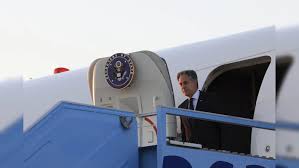

Gaza City, August 19, 2024 — In a renewed escalation of tensions, Hamas has once again accused Israeli Prime Minister Benjamin Netanyahu of obstructing progress towards a truce agreement for the Gaza Strip. The latest accusations come amid ongoing discussions aimed at de-escalating the violence and addressing humanitarian concerns in the region.
In a statement released late yesterday, Hamas officials charged that Netanyahu’s administration has been deliberately hindering efforts to finalize a ceasefire deal, which both sides have been negotiating for several weeks. The group claims that the Israeli government's recent demands and actions have stalled the truce process, exacerbating the humanitarian crisis in Gaza.
"Hamas holds Netanyahu responsible for the continued suffering of the Palestinian people," said a senior Hamas spokesperson. "His actions are a deliberate attempt to obstruct any meaningful progress towards peace and exacerbate the humanitarian situation in Gaza."
The accusations from Hamas come after a series of failed negotiation rounds, with both sides struggling to reach an agreement on key issues, including border access, humanitarian aid, and security arrangements. Hamas asserts that Netanyahu’s position has been inflexible, particularly regarding concessions on the movement of goods and people into and out of Gaza.
Israeli Response
In response to Hamas’s allegations, Israeli officials have denied any obstructionist behavior. A spokesperson for Prime Minister Netanyahu dismissed the claims, stating that Israel is committed to finding a viable solution but remains cautious about making concessions that could compromise security.
"Israel remains dedicated to achieving a lasting and sustainable truce," the spokesperson said. "We are willing to negotiate in good faith but will not agree to terms that endanger our security or undermine our interests. It is important for Hamas to acknowledge the complexities involved and engage constructively."
Humanitarian Concerns
The standoff has heightened humanitarian concerns in Gaza, where the ongoing conflict has led to severe shortages of essential supplies and services. International organizations have called for an urgent resolution to the truce negotiations to address the escalating needs of the civilian population.
"The humanitarian situation in Gaza is dire," said a representative from the United Nations Office for the Coordination of Humanitarian Affairs (OCHA). "Both sides must prioritize the well-being of civilians and work towards a resolution that addresses their immediate needs and long-term stability."
Prospects for Peace
The path to a truce remains uncertain, with both sides entrenched in their positions. Analysts suggest that while external pressures and international mediation efforts could play a role in advancing negotiations, the deep-seated mistrust and complex political dynamics pose significant challenges.
As the conflict continues, the international community watches closely, hoping for a breakthrough that will lead to a sustainable peace agreement and alleviate the suffering in Gaza. The latest accusations from Hamas add another layer of complexity to the already fraught negotiations, underscoring the difficulties in reaching a resolution to one of the region’s most enduring conflicts.
(NNI / Latest news / Latest news india / India latest news/UPSC Preparation)
Sweden Reports First Case of mpox Strain outside Africa
Latest News International: 18th August 2024, UPSC Preparation

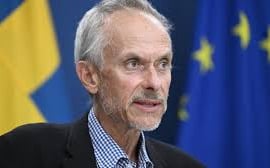
The World Health Organization (WHO) announced that Sweden became the first country outside of Africa to report a case of the emerging clade I variant of mpox, on August 15, 2024. Due to the rapid spread of clade 1b, a variant of clade 1, the WHO declared a Public Health Emergency of International Concern (PHEIC). In the United States, mpox has been detected in wastewater at three locations, mainly in California and Illinois, linked to clade II, which was part of the 2022 outbreak. The more dangerous clade I, common in Africa, has not been detected in the US.
Statistics and Spread:
In 2024, over 2,100 confirmed mpox cases and 13 deaths were reported in the Democratic Republic of the Congo and eleven other countries, including Burundi, Cameroon, and Nigeria. This marks a significant increase from the previous year, which saw 1,145 confirmed cases and seven deaths.
Vaccine Development:
In response to the outbreak, the WHO is fast-tracking the Emergency Use Listing (EUL) process for mpox vaccines. This effort aims to make vaccines more accessible to low-income countries that lack national regulatory approval, strengthening global public health defenses against the crisis.
About Mpox:
Mpox, previously known as monkeypox, is caused by the mpox virus, part of the Orthopoxvirus genus. It was first identified in 1958 in monkeys used for research. Mpox spreads mainly through close contact with an infected person’s lesions, body fluids, or respiratory droplets. Symptoms include fever, rash, and swollen lymph nodes, lasting 2-4 weeks. Though historically found in Africa, cases surged globally in 2022. The smallpox vaccine offers some protection against mpox, and animals like rodents and primates can also spread the virus.
Facts About World Health Organization
WHO: The World Health Organization was started in 1948 and is part of the United Nations, based in Geneva.
Members: It has 194 countries working together on health issues around the world.
HIV Test: In 1985, WHO approved the first blood test to detect HIV.
Smallpox: WHO’s advice helped eliminate smallpox by 1980.
World Health Day: Every year, April 7 is celebrated as “World Health Day” by WHO.
Antimicrobial Resistance: In 2017, WHO called the problem of bacteria becoming resistant to drugs a global health emergency.
Health Rules: WHO manages rules on how countries should respond to public health threats.
(NNI / Latest news / Latest news india / India latest news/UPSC Preparation)
WHO Declares Mpox a Global Public Health Emergency
Latest News: 17th August 2024


The World Health Organization (WHO) declared mpox a “public health emergency of international concern” (PHEIC), on August 14, 2024. This decision was made after experts noticed a rise in mpox cases, especially in the Democratic Republic of the Congo (DRC) and other African countries.
What is a PHEIC?
A PHEIC is a serious health event that can affect multiple countries and needs a coordinated global response. It refers to an unusual event that could spread internationally, requiring countries to work together.
Definition of Mpox
Mpox is a viral disease first found in humans in 1970, commonly found in Central and West Africa. The WHO had previously declared mpox a global emergency in July 2022 due to an outbreak that ended in May 2023.
Current Situation
The DRC is experiencing a rapid increase in mpox cases, with over 15,600 cases and 537 deaths reported this year. A new strain of the virus, called clade 1b, is spreading quickly in the DRC and nearby countries like Burundi, Kenya, Rwanda, and Uganda—places where mpox wasn’t previously reported.
Response Efforts
Two vaccines are currently recommended for mpox and have been approved in several countries. The WHO has provided $1.45 million to help with immediate response efforts, with more funding expected as the situation develops. An estimated $15 million will be needed to improve monitoring and preparedness.
More About Mpox
Mpox, formerly called monkeypox, is a viral disease mostly found in Central and West Africa. It was first discovered in monkeys in 1958 but mainly spreads through rodents. Symptoms include fever, rash, and swollen lymph nodes, and it looks similar to smallpox but with a shorter incubation period of about 7-14 days. The disease can spread between people through respiratory droplets and bodily fluids. The WHO declared it a public health emergency in 2022. A smallpox vaccine can provide some protection.
More About International Health Regulations (IHR)
The International Health Regulations (IHR) were first adopted in 1969 and updated in 2005. They aim to improve global health security by managing disease outbreaks. The IHR applies to 196 countries, including all WHO member states. Certain diseases must be reported within 24 hours. The regulations also promote a “One Health” approach, linking human, animal, and environmental health. The IHR provides guidelines for emergency response and public health capabilities, with compliance monitored through annual reports.
(NNI / Latest news / Latest news india / India latest news/UPSC Preparation)
India-Australia Hold Maritime Security Dialogue
Latest News: 16th August 2024, UPSC Preparation
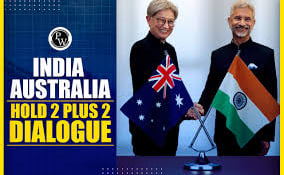

On August 13, 2024, the 6th India-Australia Maritime Security Dialogue was held in Canberra, focusing on strengthening maritime security cooperation in the Indian Ocean Region. This meeting reflects the Comprehensive Strategic Partnership between India and Australia and addresses crucial maritime issues.
Key Discussions
During the dialogue, senior officials from both countries discussed ways to maintain a safe maritime environment that supports inclusive growth and global well-being. Key topics included:
Maritime Security in the Indo-Pacific: Enhancing security in the region.
Humanitarian Assistance and Disaster Relief (HADR): Coordinating responses to emergencies and disasters at sea.
Maritime Cooperation Areas
The discussions also covered:
Search and Rescue (SAR): Improving joint efforts for effective search and rescue operations.
Pollution Response: Addressing maritime pollution, particularly concerning plastic waste.
Blue Economy: Promoting sustainable economic activities that utilize marine resources responsibly.
Port State Control: Enhancing the enforcement of international maritime regulations.
Indo-Pacific Ocean Initiative (IPOI)
Both nations reviewed progress and future plans under the Indo-Pacific Ocean Initiative (IPOI), which focuses on preserving maritime ecology and was established by Prime Minister Narendra Modi in 2019.
Historical Background
In June 2020, India and Australia formalized a Shared Vision for Maritime Cooperation, reinforcing their commitment to peace and stability in the Indo-Pacific. This agreement aims to improve navy-to-navy cooperation and enhance maritime domain awareness through information sharing.
Facts About India-Australia Maritime Security Dialogue
Started in 2015: The dialogue began to improve cooperation between India and Australia in the Indo-Pacific region.
Joint Naval Exercises: Both countries conduct exercises like AUSINDEX to strengthen their military partnership.
Addressing Maritime Challenges: The dialogue works on issues such as:
Piracy: Fighting against pirate activities.
Illegal Fishing: Preventing unauthorized fishing.
Cybersecurity and Information Sharing: Focuses on protecting maritime data and sharing important information.
Regional Collaboration: India and Australia work together in groups like the Quad (which also includes the US and Japan).
Capacity-Building: They help neighboring countries improve their maritime security and abilities.
Promoting a Free and Open Indo-Pacific: Supports a region where maritime routes are open and international laws are followed.
(NNI / Latest news / Latest news india / India latest news/UPSC Preparation)
NASA-ISRO Synthetic Aperture Radar (NISAR)
Latest News International: 15th August 2024
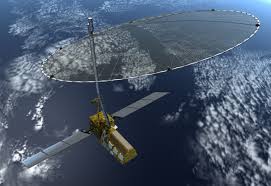

The NASA-ISRO Synthetic Aperture Radar (NISAR) mission, a joint project between NASA and the Indian Space Research Organisation (ISRO), has encountered delays, pushing its launch to after February 2025. This mission is focused on improving our understanding of environmental changes and natural hazards through advanced radar imaging.
Reasons for Delay
The delay is mainly due to two reasons: challenges related to the satellite’s orbit and the need to make adjustments to the spacecraft’s antenna. A key launch period from early October 2024 to early February 2025 was missed because of temperature fluctuations that could have affected the satellite’s performance.
Technical Considerations
To address these temperature issues, NASA is making adjustments to the radar antenna reflector in California. They are applying a special coating to prevent the antenna from overheating, ensuring it will work reliably when it is deployed in space. Once this work is finished, the reflector will be sent back to India to be reattached to the spacecraft. NASA and ISRO are working closely together to determine a new date for the launch. This project highlights the strong collaboration between the two space agencies, with each bringing cutting-edge radar technology to the table.
Mission Objectives
Even with the delays, the mission’s goals are still highly important for global climate research. The NISAR satellite is designed to track changes in ecosystems, study the stability of ice sheets, and provide valuable data on natural disasters like earthquakes and tsunamis. The information collected will be crucial for scientific studies and for planning responses to disasters.
Facts About NASA
NASA was created in 1958, originally starting as an organization called NACA.
In 1969, NASA’s Apollo 11 mission made Neil Armstrong the first person to walk on the Moon.
NASA launched the Voyager spacecraft in 1977, which carry golden records with sounds and images from Earth.
NASA ran the Space Shuttle program from 1981 to 2011, completing 135 missions during that time.
In 2012, NASA’s Mars rover, Curiosity, landed on Mars to explore the planet.
The Hubble Space Telescope, launched in 1990, has greatly improved our knowledge of the universe.
Facts About ISRO
The Indian Space Research Organisation (ISRO) was established in 1969.
ISRO launched its first satellite, Aryabhata, in 1975.
In 2014, ISRO’s Mars Orbiter Mission, called Mangalyaan, made India the first Asian country to reach Mars.
In 2017, ISRO set a world record by launching 104 satellites in one mission.
ISRO’s Polar Satellite Launch Vehicle (PSLV) is known for being very reliable.
ISRO also created the GSLV Mk III rocket, which can carry heavier loads into space.
news live / news24 live / news aaj tak / news18 live / news live hindi / news today / news 24 / news aaj ka / news aaj ki / news abp live / news aaj tak live today 2024 live / news asianet live / news abp / news arjun / ai news today / news Pakistan / news live / ai news 24 / news book / news channel / dd news / news eighteen live / news english live india / news elvish Yadav / news English / news election / news eighteen / news english live / bd news 24 / dd news live / news debate in hindi latest / news dijiye / news db live / news drishti ias / news dikhaiye / news bharat / news live / news channel live hindi / news channel live hindi all / news channel live / news nation / news live
#breakingnews #sneakernews #freefirenews #fortnitenews #footballnews #cryptonewsdaily #artnewss #artsnewss #aeronewsx #goodnewsxhm #runews24 #wasinews24 #xebernews24 #cryptonews24 #foxnews5 #wkrgnews5 #actionnews5 #wlwtnews5 #ktlanews5 #cearánews7 #eyewitnessnews7 #abcnews7 #bvbnews7 #commentwithnews7tamil
#baynews9
Vinay Mohan Kwatra Becomes Indian Ambassador to the US
Latest News International: 15th August 2024, UPSC Preparation

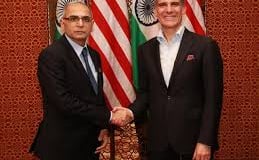
Vinay Mohan Kwatra has been appointed the Indian Ambassador to the United States, starting his role on August 12, 2024, and succeeding Taranjit Singh Sandhu. This move is part of a broader plan to strengthen India-US relations.
Background on Vinay Mohan Kwatra
Kwatra previously served as India’s Foreign Secretary, gaining extensive experience in international diplomacy. Before that, he was the Minister of Commerce at the Indian Embassy in Washington, DC, where he built key diplomatic connections. Kwatra’s appointment is crucial for strengthening the strategic partnership between India and the US.
Objectives as Ambassador
As the new Ambassador, Kwatra is expected to work closely on improving diplomatic relations and cooperation, especially in trade, security, and cultural exchange. His transition into this role highlights India’s continued diplomatic efforts in the US. With his extensive background in foreign affairs, Kwatra will play a key role in managing international relations and building a strong partnership between the two countries.
Who is Vinay Mohan Kwatra?
Vinay Mohan Kwatra, an Indian Foreign Service officer since 1996, has had a distinguished career. He was India’s Ambassador to Nepal before becoming Secretary (Economic Relations) in the Ministry of External Affairs. Kwatra has held key roles in strengthening India’s partnerships with countries like the USA and Japan. His expertise includes international economics and diplomacy, and he has significantly contributed to India’s alliances in South Asia. Additionally, Kwatra is noted for his work on climate change and sustainable development at international forums.
About India-US partnership
The India-US partnership, established in 2005, is based on strategic, economic, and military collaboration. India is a key defense partner for the US, which is one of its largest arms suppliers. The countries conduct many joint military exercises each year. The 2020 “Basic Exchange and Cooperation Agreement” enhanced their intelligence sharing. Trade between India and the US surpassed $150 billion in 2022. They work together on technology through the India-US Initiative on Critical and Emerging Technologies and also collaborate on climate change and public health, contributing to global stability.
news live / news24 live / news aaj tak / news18 live / news live hindi / news today / news 24 / news aaj ka / news aaj ki / news abp live / news aaj tak live today 2024 live / news asianet live / news abp / news arjun / ai news today / news Pakistan / news live / ai news 24 / news book / news channel / dd news / news eighteen live / news english live india / news elvish Yadav / news English / news election / news eighteen / news english live / bd news 24 / dd news live / news debate in hindi latest / news dijiye / news db live / news drishti ias / news dikhaiye / news bharat / news live / news channel live hindi / news channel live hindi all / news channel live / news nation / news live
#breakingnews #sneakernews #freefirenews #fortnitenews #footballnews #cryptonewsdaily #artnewss #artsnewss #aeronewsx #goodnewsxhm #runews24 #wasinews24 #xebernews24 #cryptonews24 #foxnews5 #wkrgnews5 #actionnews5 #wlwtnews5 #ktlanews5 #cearánews7 #eyewitnessnews7 #abcnews7 #bvbnews7 #commentwithnews7tamil
#baynews9
August 9, Ukrainian troops had advanced as far as 35 kilometers (21 miles) into Russian territory in the Kursk region, according to the US-based Institute for the Study of War.
Latest News International:14th August 2024


Details about Kursk Region:
Kursk is a city and the administrative center of Kursk Oblast, Russia.
Geographical Aspect
Located at the confluence of the Kur, Tuskar, and Seym rivers.
Surrounded by "Black Earth"
Chernozem also called black soil, regur soil or black cotton soil, is a black-colored soil containing a high percentage of humus (4% to 16%) and high percentages of phosphorus and ammonia compounds.
The climate is moderately continental.
Economic Activity
Activity focuses on iron-based industry, the chemical sector and a large food processing industry.
Particularly noteworthy is the so-called Kursk Magnetic Anomaly, the world's largest known iron-ore reserve, where the iron content of the ore ranges from 35% up to 60%.
Energy
In Kurchatov, some 40 km (25 mi) to the south-west, the Kursk Nuclear Power Plant is located.
Transportation
Kursk is located on a major railway line between Moscow and Kharkov, with trains also linking the city to Voronezh and Kiev.
Historical Aspect:
The first written record of Kursk dates back to 1032.
Destroyed by the Mongols under Batu Khan during the Mongol invasion of Kievan Rus' around 1237.
Modern: After the Bolshevik revolution in Russia, the Soviets took power in Kursk on 26 November (9 December – new style) 1917.
Kursk played a role in the Cold War as host to Khalino air base.
(NNI / Latest news / Latest news india / India latest news)
(UPSC current affairs / UPSC / UPSC Preparation / UPSC Preparation Books / UPSC Preparation Strategy )
U.S. Deploys Submarine Amid Escalating Tensions in Middle East
Latest News International:13th August 2024

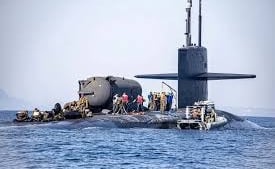
On August 11, 2024, U.S. Defence Secretary Lloyd Austin ordered the deployment of a guided missile submarine to the Middle East due to increasing tensions after the deaths of top members of Hamas and Hezbollah. This move comes as a response to fears that Iran and its allies might retaliate.
Submarine Deployment
The USS Georgia, a nuclear-powered guided missile submarine, is part of this strategic military response. Its deployment is significant because it’s a strong show of military strength in a time of rising regional threats.
Accelerated Naval Response
The Abraham Lincoln strike group, which includes fighter jets and Navy warships, has also been told to speed up its arrival in the region. This additional military presence will help support Israeli defensive operations.
Assassination of Key Figures
The recent deaths of Hamas leader Ismail Haniyeh on July 31, 2024, in Tehran, and Hezbollah commander Fuad Shukr in Beirut, have raised concerns about a larger conflict. Although Israel has not officially taken credit for these actions, they are believed to be part of Israel’s ongoing military efforts against Hamas in Gaza.
Iran’s Retaliation Threats
Iran has expressed a willingness to retaliate against Israel for these killings and blames the U.S. for supporting Israel. Tensions have been further heightened by recent attacks on U.S. forces in Syria. The current military actions and political statements highlight the tense situation in the Middle East. The U.S. seems determined to support its allies while preparing for possible retaliation from Iran and its allies.
Facts About USS Georgia
The USS Georgia (SSGN-729) is a big nuclear-powered submarine launched in 1984.
It is one of four Ohio-class submarines that were upgraded to carry cruise missiles and special forces.
The submarine is 560 feet long, can dive over 800 feet deep, and can run for up to 15 years without refueling.
It has a special dry deck shelter for operations and can carry up to 154 Tomahawk missiles.
With a crew of about 150, the USS Georgia is built for stealth and flexibility in modern warfare.
(NNI / Latest news / Latest news india / India latest news)
(UPSC current affairs / UPSC / UPSC Preparation / UPSC Preparation Books / UPSC Preparation Strategy )
US to Release $3.5 Billion Military Aid to Israel
Latest News International: 12th August 2024, UPSC Preparation
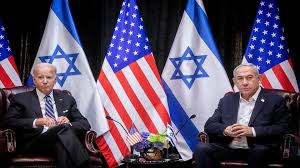

The U.S. State Department announced the release of $3.5 billion in military assistance to Israel after Congress approved the funds amidst rising tensions due to the ongoing conflict in Gaza. This money is part of a larger $14 billion supplemental bill that was passed in April 2023.
Key Details of the Funding
Amount: The $3.5 billion is specifically set aside for military financing.
Purpose: The funds are to be used to buy U.S.-made weapons and military equipment.
Congressional Approval: The U.S. Congress approved this funding while Israel was actively engaged in military action in Gaza.
Background of the Conflict
Tensions in the Middle East escalated after Hamas attacked Israel on October 7, 2023, resulting in heavy casualties on both sides:
Israeli Casualties: Around 1,200 Israelis were killed, and approximately 250 were taken hostage.
Palestinian Casualties: The Israeli military response has led to nearly 40,000 Palestinian deaths.
Humanitarian Crisis in Gaza
The ongoing conflict has caused a severe humanitarian crisis:
Displacement: Nearly the entire population of Gaza, about 2.3 million people, has been displaced.
Hunger Crisis: There are widespread food shortages, and Israel has been accused of genocide, which the Israeli government denies.
About Israel
Established in 1948, Israel is the only country with a majority Jewish population. It has a high number of museums per capita, innovative technology, and agriculture sectors, and its capital is Jerusalem. Israel was named after the biblical patriarch Jacob and is home to the Dead Sea, the lowest point on Earth.
About Gaza
Gaza is one of the world’s oldest inhabited areas, dating back to at least the 15th century BCE. It is densely populated, with over 5,000 people per square kilometer. Known for its history and agriculture, particularly olive and citrus production, Gaza’s economy has struggled due to conflicts and blockades. The Gaza Strip is about 41 kilometers long and was occupied by Israel until 2005 when Israel withdrew from the area.
(NNI / Latest news / Latest news india / India latest news)
(UPSC current affairs / UPSC / UPSC Preparation / UPSC Preparation Books / UPSC Preparation Strategy )
Africa Faces Urgent Mpox Outbreak, WHO Holds Emergency Meeting
Latest News International: 12th August 2024, UPSC Preparation


Africa is facing a serious outbreak of mpox, and the World Health Organization (WHO) has held an urgent meeting to decide if this situation should be declared a Public Health Emergency of International Concern. Currently, 15 African countries, including Burundi, Kenya, Rwanda, and Uganda—which previously had no cases—are reporting confirmed cases of mpox.
Current Statistics
There have been 2,030 confirmed cases of mpox and 13 deaths across these countries in 2024. The number of suspected cases has also risen sharply to over 15,000, with more than 500 deaths reported. This is a significant increase compared to the previous year, which saw 1,145 cases and seven deaths.
Variant Concerns
A new variant of the virus, called clade 1b, has appeared, mainly affecting the Democratic Republic of Congo (DRC), where 90% of the cases have been recorded. This variant is particularly dangerous for children, with a 10% mortality rate. It is also harder to detect because of mutations that current tests may miss. The spread of this variant across borders has led to deaths in Burundi, South Africa, and the DRC.
What is Mpox?
Mpox, which used to be called monkeypox, is caused by the monkeypox virus, part of the Orthopoxvirus family. It was first discovered in lab monkeys in 1958. The virus can spread through bites from infected animals, close contact with an infected person, or touching contaminated materials. Symptoms include fever, a rash, and swollen lymph nodes. Mpox is commonly found in Central and West Africa. Vaccination against smallpox can provide some protection against mpox. Despite its name, the primary hosts of the virus are rodents, not monkeys. In 2022, mpox was declared a public health emergency due to outbreaks occurring outside the regions where it is typically found.
Facts about the World Health Organization (WHO)
The World Health Organization (WHO) was founded on April 7, 1948.
It is based in Geneva, Switzerland.
WHO has 194 member countries.
To make sure everyone has access to good health care worldwide.
It responds to health emergencies and controls diseases, like polio.
WHO’s International Classification of Diseases helps doctors use the same names for illnesses everywhere.
It works on addressing the factors that affect health through various initiatives.
(NNI / Latest news / Latest news india / India latest news)
(UPSC current affairs / UPSC / UPSC Preparation / UPSC Preparation Books / UPSC Preparation Strategy )
Who is Muhammad Yunus, Chief Adviser to Bangladesh Interim Government?
Latest News International: 8th August 2024, UPSC Preparation
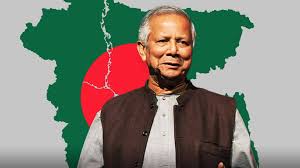

Muhammad Yunus, who won the Nobel Peace Prize in 2006, has been appointed as the chief adviser to Bangladesh’s interim government. This happened after Prime Minister Sheikh Hasina resigned due to growing protests. The announcement was made by Army Chief Waker-uz-Zaman and is related to widespread unrest over government job quotas.
Who is Muhammad Yunus?
Yunus was born in 1940 in Chittagong. He is a respected economist with a PhD from Vanderbilt University. After Bangladesh gained independence, he returned and became the head of the economics department at Chittagong University. Yunus is famous for creating the concept of microcredit, which involves giving small, collateral-free loans to poor entrepreneurs who don’t have access to traditional banking.
The Birth of Grameen Bank
In 1983, Yunus founded Grameen Bank, which became a leader in microfinance. The bank has given out over $34 billion in loans to nearly 10 million people, with a 97% repayment rate. Grameen Bank’s success inspired similar models worldwide. Yunus and Grameen Bank received the Nobel Peace Prize for their work in promoting economic and social development.
Friction with Sheikh Hasina
Yunus’s relationship with Sheikh Hasina became strained after he considered starting a political party following his Nobel win, which she opposed. When she returned to power in 2009, her government launched investigations against Yunus, accusing him of exploiting borrowers.
Legal Challenges and Accusations
Yunus is facing several legal issues. In January, he received a six-month prison sentence for labour law violations but was soon granted bail. He is also being investigated for alleged tax evasion and improper financial transactions. In 2011, he was removed from his position as managing director of Grameen Bank due to retirement rule violations. These legal troubles have sparked international concern, with prominent figures like Barack Obama and Ban Ki-moon warning about the “judicial harassment” he faces.
Bangladesh’s Leadership Transition Poses Risks to India Relations
Latest News International: 7th August 2024, UPSC Preparation

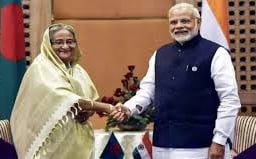
Since Sheikh Hasina became Prime Minister of Bangladesh in 2009, the country has built a strong relationship with India. This partnership is based on working together against terrorism and sharing economic and cultural interests. However, leadership changes could threaten this relationship, potentially affecting trade, travel, and a planned Free Trade Agreement (FTA).
Bi-lateral Trade
India and Bangladesh are important economic partners, with Bangladesh being India’s largest trade partner in the region. In the financial year 2023-24, their trade reached $13 billion. India mainly exports cotton (34.9% of total exports) and petroleum products to Bangladesh, while Bangladesh exports mostly readymade garments to India.
The potential of a Free Trade Agreement
Talks about an FTA started in October 2023. The aim is to reduce customs duties between the two countries, boosting trade and investment. Studies suggest that a full FTA could increase Bangladeshi exports to India by up to 182%, and with better infrastructure, this could rise to 297%. India’s exports could also increase by 172%.
Infrastructure & Connectivity
Infrastructure development is a crucial part of India-Bangladesh relations. Since 2016, India has provided $8 billion in credit for projects, including rail and port developments. New projects, like the Akhaura-Agartala rail link, have significantly cut travel times and boosted trade and tourism. A strained relationship could disrupt India’s access to the Northeast, complicating logistics and connectivity between the two countries.
Current Transport Routes
Besides improved rail links, five bus routes facilitate travel between India and Bangladesh. Agreements to use ports like Chittagong and Mongla aim to make cargo movement easier, strengthening commercial ties further.
About India-Bangladesh Trade Agreement
Enhanced Bilateral Trade: The India-Bangladesh Trade Agreement, in place since 2011, aims to strengthen trade relations by providing duty-free access for 97% of Bangladeshi products, significantly boosting bilateral trade.
Key Trade Elements: Despite India having a trade deficit with Bangladesh, major exports include mineral fuels and machinery, while significant traded items between the countries are garments and pharmaceuticals.
Trade Facilitation and Cooperation: The agreement focuses on improving trade facilitation, customs cooperation, and sanitary standards, supported by various joint working groups to resolve trade disputes and enhance connectivity through rail and waterways.
(NNI / Latest news / Latest news india / India latest news)
(UPSC current affairs / UPSC / UPSC Preparation / UPSC Preparation Books / UPSC Preparation Strategy )
14th India-Vietnam Defence Policy Dialogue
Latest News: 6th August 2024, UPSC Preparation

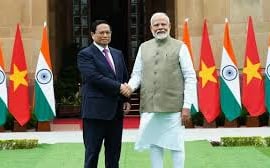
The 14th India-Vietnam Defence Policy Dialogue was held in New Delhi, showing the commitment to strengthen defence cooperation between the two countries, especially with growing security concerns in the region. The meeting was led by India’s Defence Secretary Giridhar Aramane and Vietnam’s Deputy Minister of National Defence, Senior Lieutenant General Hoang Xuan Chien. This dialogue builds on the ‘Joint Vision Statement on India-Vietnam Defence Partnership towards 2030’ signed in June 2022, which serves as a framework for ongoing collaboration.
Proposed Areas for Cooperation
Delegation Exchanges and Dialogue: Regular meetings and exchanges between defence officials.
Staff Talks: Discussions between military staff for better coordination.
Service-to-Service Cooperation: Collaboration between different branches of the armed forces.
Education and Training: Sharing knowledge and training programmes.
Defence Industry Cooperation: Working together in defence technology and production.
Emerging Focus Areas by India
India suggested focusing on new defence areas:
Cyber Security: Protecting against online threats.
Information Security: Safeguarding sensitive information.
Military Medicine: Medical support and advancements for military personnel.
Submarine Search and Rescue: Techniques and technology for submarine emergencies.
The discussions led to a Letter of Intent aimed at enhancing training exchanges to improve the preparedness and operational capabilities of both countries.
Importance of Defence Cooperation
Defence collaboration is a key part of the Comprehensive Strategic Partnership between India and Vietnam. Vietnam is an important player in India’s Act East Policy and is strategically important in the Indo-Pacific Region. The 14th Defence Policy Dialogue is a crucial step in strengthening bilateral relations, focusing on modern security challenges and enhancing military capabilities to ensure both nations are well-prepared for future challenges.
(NNI / Latest news / Latest news india / India latest news)
(UPSC current affairs / UPSC / UPSC Preparation / UPSC Preparation Books / UPSC Preparation Strategy )
India-Indonesia Business Chamber Relaunches in Jakarta Ceremony
Latest News International: 6th August 2024, UPSC Preparation

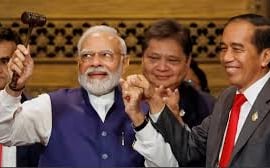
The Embassy of India in Jakarta and IndCham recently restarted the Indian Chamber of Commerce in Indonesia. This event attracted more than 150 members from important Indian and Indonesian companies, marking a key moment in boosting economic ties between the two countries.
Importance of Relaunch
The revival of the chamber meets the need for a lively business community that supports economic relations between India and Indonesia, which have grown significantly in the past ten years. The original chamber was set up in 1977 but became inactive during the pandemic.
Significant Partnerships
India and Indonesia have formed a strong partnership called Comprehensive Strategic Partners. Together, they have a combined GDP of $5 trillion and a population of 1.7 billion, making them important centers for future global growth.
Bilateral Trade Objectives
In 2022, trade between the two countries reached $38.8 billion, with plans to increase this to $50 billion by 2025. India is the 14th largest investor in Indonesia, with 80 Indian companies operating there.
Future Vision and Goals
Both countries are working towards sustainable development, focusing on industrial growth and making it easier to do business. This fits with India’s Atmanirbhar Bharat (self-reliant India) and Indonesia’s Emas (Golden Indonesia) goals. The relaunch event included presentations about the chamber’s new goals, a talk by well-known economist Sanjeev Sanyal, and discussions on Indonesia’s new Personal Data Protection Law. This shows a commitment to supporting business and encouraging new ideas.
About India-Indonesia Economic Partnership
Strong Trade Relationship: India and Indonesia have a strong trade relationship, with trade reaching $20 billion recently. They aim to increase this to $50 billion by 2025.
Collaboration in Key Sectors: They work together in important areas like energy, textiles, and technology. In 2020, they also signed a defense cooperation pact.
Shared Goals: Both countries are part of the G20 and support sustainable development, working together to achieve common goals.
(NNI / Latest news / Latest news india / India latest news)
(UPSC current affairs / UPSC / UPSC Preparation / UPSC Preparation Books / UPSC Preparation Strategy )
Stalked by polio, Gaza faces another siege
Latest News International: 5th August 2024


Should Israel continue to sustain harmful living conditions in Gaza, the outcomes of its actions will be indistinguishable from those of biological warfare
(NNI / Latest news / Latest news india / India latest news)
Bangladesh protests: Nearly 100 killed, hundreds injured in clashes between protesters and ruling party supporters
Latest News International: 5th August 2024
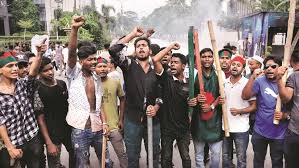

Protesters have dismissed PM Hasina’s invitation for dialogue aimed at quelling escalating violence and consolidated their demands into a unified call for the government’s resignation
(NNI / Latest news / Latest news india / India latest news)
India Host 3rd Edition of Global South Summit
Latest News International: 4th August 2024, UPSC Preparation
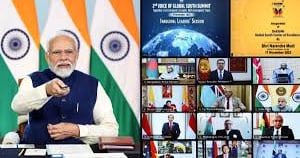

India will host the third Voice of the Global South Summit on August 17, 2024. This virtual event will address major global issues like conflicts, development challenges, and climate change. Prime Minister Narendra Modi will lead the summit, which will involve discussions with representatives from various countries.
Purpose of the Summit
The summit provides a platform for countries in the Global South—those in Latin America, Africa, and parts of Asia to share their views, difficulties, and priorities. Its goal is to improve communication and cooperation among developing nations. The first summit took place in January 2023, and the second in November 2023, just after the G20 Summit. Each event involved over 120 countries.
Themes of Previous Summits
Themes for the Summits:
First Summit (January 2023): “Unity of Voice, Unity of Purpose”
Second Summit (November 2023): “Together, for Everyone’s Growth, with Everyone’s Trust”
Both themes focused on working together and collective effort.
Key Issues Addressed
Main Focus Areas of the Summits:
Climate change
Sustainable development
Global governance
Ministerial sessions covered various topics like foreign affairs, education, finance, environment, energy, health, and trade.
Initiatives Announced
Global South Centre of Excellence (‘Dakshin’)
Global South
Science and Technology Initiative
Global South Scholarship Programme
Cooperation in the health sector
Global South Young Diplomats Forum
These initiatives aim to promote knowledge sharing and cooperation on important issues.
About Global South Summit
The Global South Summit, which started in 2004 in Havana, Cuba, seeks to enhance cooperation among developing nations. It includes diverse cultures and economies and focuses on sustainable development, climate change, and social equality. The outcomes of these summits can influence UN policies and improve partnerships among member states, with rotating leadership to ensure inclusivity.
(NNI / Latest news / Latest news india / India latest news)
(UPSC current affairs / UPSC / UPSC Preparation / UPSC Preparation Books / UPSC Preparation Strategy )
India Retains Eighth Position in Global Agricultural Exports
Latest News International: 3rd August 2024, UPSC Preparation


In 2023, India continued to be the eighth-largest exporter of agricultural products worldwide. However, India’s agricultural exports dropped from $55 billion in 2022 to $51 billion. This decline happened during a time when many other leading countries also saw a decrease in their agricultural exports.
Global Export Trends
Out of the top ten agricultural exporting countries, only three saw growth in their exports in 2023:
Brazil: Agricultural exports increased by 6% to $157 billion.
European Union (EU): Agricultural exports grew by 5% to $836 billion.
Thailand: Agricultural exports increased slightly by 0.2%, though it is not among the top three exporters.
Factors Impacting Indian Exports
India’s reduction in agricultural exports can be attributed to several geopolitical factors, such as:
The Red Sea crisis
The Russia-Ukraine war
Export Bans and Their Effects
These events have disrupted global trade. Additionally, India’s export bans on key agricultural products also contributed to the decline. These bans included:
Wheat in May 2022
Non-basmati rice in July 2023
Sugar in October 2023
Comparison with Other Major Exporters
Despite a decrease in exports to $198 billion, the United States remains the second-largest agricultural exporter. China is the fourth-largest, with a slight decrease to $95 billion. Other significant countries in the top ten include Canada, Mexico, and Indonesia. Australia.
New WTO Trade Statistics Tool
The World Trade Organization (WTO) introduced an interactive platform in its 2023 report for analyzing international trade data. This tool allows users to explore trends in world trade by value and volume, with options to filter by economy, region, and product group.
(NNI / Latest news / Latest news india / India latest news)
(UPSC current affairs / UPSC / UPSC Preparation / UPSC Preparation Books / UPSC Preparation Strategy )
India Retains Eighth Position in Global Agricultural Exports
Latest News International: 3rd August 2024, UPSC Preparation


In 2023, India continued to be the eighth-largest exporter of agricultural products worldwide. However, India’s agricultural exports dropped from $55 billion in 2022 to $51 billion. This decline happened during a time when many other leading countries also saw a decrease in their agricultural exports.
Global Export Trends
Out of the top ten agricultural exporting countries, only three saw growth in their exports in 2023:
Brazil: Agricultural exports increased by 6% to $157 billion.
European Union (EU): Agricultural exports grew by 5% to $836 billion.
Thailand: Agricultural exports increased slightly by 0.2%, though it is not among the top three exporters.
Factors Impacting Indian Exports
India’s reduction in agricultural exports can be attributed to several geopolitical factors, such as:
The Red Sea crisis
The Russia-Ukraine war
Export Bans and Their Effects
These events have disrupted global trade. Additionally, India’s export bans on key agricultural products also contributed to the decline. These bans included:
Wheat in May 2022
Non-basmati rice in July 2023
Sugar in October 2023
Comparison with Other Major Exporters
Despite a decrease in exports to $198 billion, the United States remains the second-largest agricultural exporter. China is the fourth-largest, with a slight decrease to $95 billion. Other significant countries in the top ten include Canada, Mexico, and Indonesia. Australia.
New WTO Trade Statistics Tool
The World Trade Organization (WTO) introduced an interactive platform in its 2023 report for analyzing international trade data. This tool allows users to explore trends in world trade by value and volume, with options to filter by economy, region, and product group.
(NNI / Latest news / Latest news india / India latest news)
(UPSC current affairs / UPSC / UPSC Preparation / UPSC Preparation Books / UPSC Preparation Strategy )
Biden credits allies for prisoner swap with Russia: Why its vital to have friends
Latest News: 2nd August 2024
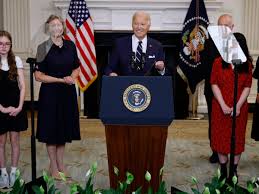

Joe Biden called the multinational prisoner swap deal "a powerful example of why it's vital to have friends in this world.
(NNI / Latest news / Latest news india / India latest news)
India and China Hold 30th Round of Border Issues
Latest News International: 2nd August 2024, UPSC Preparation
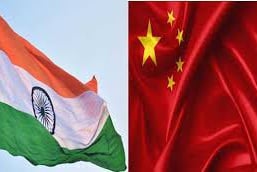

On October 25, 2023, India and China held their 30th meeting of the Working Mechanism for Consultation and Coordination on India-China Border Affairs (WMCC) in New Delhi. They described their discussions as “in-depth, constructive, and forward-looking.” The main focus was on the ongoing stand-off along the Line of Actual Control (LAC) in eastern Ladakh.
Background of the Stand-off
The stand-off between India and China started in 2020 and has included both military and diplomatic efforts to manage the tensions. The WMCC is important for discussions about border issues, alongside higher-level military talks.
Significance of the Meeting
This recent WMCC meeting is part of larger efforts to resolve outstanding issues and bring back peace. The Ministry of External Affairs (MEA) stressed the importance of respecting the LAC to normalize relations between the two countries.
Ongoing Diplomatic Engagements
Diplomatic efforts, including talks between Foreign Ministers and previous meetings, aim to keep the momentum in resolving border tensions. Recent meetings in Astana and Vientiane helped show a united approach in negotiations.
Military Coordination Efforts
Regular Corps Commander talks also support the WMCC meetings, with the 21st round held in February 2023. However, there have been no major breakthroughs in reducing tensions in key areas. There is speculation that India might consider easing some economic restrictions on Chinese companies. This is based on recent economic surveys suggesting more Foreign Direct Investment (FDI) from China could be beneficial.
About Working Mechanism for Consultation and Coordination (WMCC)
Establishment and Purpose: The Working Mechanism for Consultation and Coordination (WMCC) was set up by India and China in 2017 to work together on border issues and keep the peace. This group provides a way for both countries to talk and solve problems, showing their growing relationship and need for stability.
Function and Focus: The WMCC holds regular meetings between military and diplomatic officials from both countries, focusing on regional security, counterterrorism, and trade to help manage conflicts.
Significance: The WMCC helps solve problems and manage relations between India and China, showing their growing connection and need for stability.
(NNI / Latest news / Latest news india / India latest news)
(UPSC current affairs / UPSC / UPSC Preparation / UPSC Preparation Books / UPSC Preparation Strategy )
Sturgeon Poaching Threatens Endangered Species in Danube River
Latest News International: 1st August 2024, UPSC Preparation
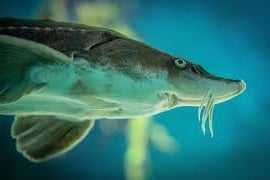

Poaching and trafficking are putting four species of sturgeon in the Lower Danube Basin in great danger. This area is an important habitat in southeastern Europe. A report by the World Wide Fund for Nature (WWF) shows that between 2016 and 2023, there were 395 cases of illegal sturgeon fishing affecting over 1,000 sturgeon. This indicates that there may be even more unreported cases.
The Lower Danube Basin
The Lower Danube Basin is where the Danube River flows into the Black Sea and includes parts of Bulgaria, Romania, and Ukraine. It is crucial for the remaining self-reproducing sturgeon populations in Europe.
Illegal Activities
Between 2016 and 2023, 395 illegal sturgeon activities were recorded: 144 in Bulgaria, 157 in Romania, and 94 in Ukraine. Poachers often use banned traditional fishing methods, like unbaited hook lines (karmaci), and many activities go undetected.
Impact on Sturgeon Species
All four types of sturgeon in the Danube Basin are considered threatened according to the IUCN Red List. The stellate sturgeon, Russian sturgeon, and beluga sturgeon are Critically Endangered, while the sterlet is Endangered. All of these sturgeons are affected by poaching.
Species Breakdown
All four sturgeon species in the Danube Basin are considered threatened by the IUCN Red List. These species are:
Sterlet (Acipenser ruthenus): Most frequently reported, involved in 78 poaching cases in 2018. It is classified as Endangered.
Stellate Sturgeon (Acipenser stellatus): Documented in 76 cases. It is Critically Endangered.
Russian Sturgeon (Acipenser gueldenstaedtii): Reported in 39 cases. It is Critically Endangered.
Beluga Sturgeon (Huso huso): Present in 32 cases. It is also Critically Endangered.
About World-Wide Fund for Nature (WWF)
The World Wide Fund for Nature (WWF) was founded in 1961 and originally called the World Wildlife Fund for Nature. Its panda logo, created in 1961, represents endangered species. WWF’s “Earth Hour” campaign started in 2007 and encourages global participation in climate action. The organization works in over 100 countries, focusing on wildlife conservation and reducing humanity’s ecological footprint. WWF is one of the largest conservation organizations in the world, funding over 1,300 conservation projects. It also promotes sustainable practices in agriculture and fishing industries.
(NNI / Latest news / Latest news india / India latest news)
(UPSC current affairs / UPSC / UPSC Preparation / UPSC Preparation Books / UPSC Preparation Strategy )
SpaceX and NASA Set Crew-9 Launch for August 18
Latest News International: 31st July 2024, UPSC Preparation
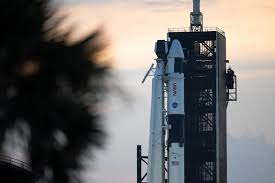

On July 26th, SpaceX and NASA announced they would send Crew-9 to the International Space Station (ISS) as early as August 18. This comes after the Federal Aviation Administration gave the go-ahead for SpaceX’s Falcon 9 rocket, which had been stopped because it failed in the middle of its flight.
Background on Falcon 9
The Falcon 9 is the world’s most popular and important rocket for many space projects. An important setback happened when a rocket failed in the middle of the trip, losing a payload of Starlink satellites. This was the first loss in more than seven years.
Upcoming Crew-9 Mission Details
NASA and SpaceX are getting ready for the ninth trip to the ISS where crews will switch places. Zena Cardman, Nick Hague, Stephanie Wilson, and Alexander Gorbunov, a Russian cosmonaut, will all be on the journey. They will be sent into space on top of a Falcon 9 rocket by the SpaceX Dragon ship.
Significance of the Mission
Crew-9 is an example of how NASA and SpaceX are continuing to work together to keep sending people to the ISS. It shows how far space technology has come and how strong SpaceX’s operational skills are after recent setbacks.
More About SpaceX
Elon Musk started SpaceX in 2002. In 2008, Falcon 1 was the first plane sent into orbit by a privately funded company. In 2012, its Dragon spacecraft was the first commercial ship to bring goods to the ISS. SpaceX was the first company to use reused rocket technology, which cut launch costs by a huge amount. This is one of the most powerful rockets. It was launched in 2018. Starlink wants to use satellites to connect everyone in the world to the internet. The Starship, which is made to travel between planets, is being built for future trips to Mars.
(NNI / Latest news / Latest news india / India latest news)
(UPSC current affairs / UPSC / UPSC Preparation / UPSC Preparation Books / UPSC Preparation Strategy )
India Assumes ADPC Chairmanship for 2024-25
Latest News International: 31st July 2024, UPSC Preparation
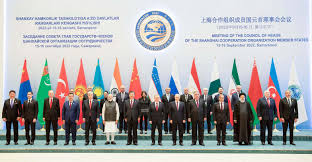

India will lead the Asian Disaster Preparedness Center (ADPC) from 2024 to 2025, taking over from China on July 25, 2024, in Bangkok, Thailand. India has made a big step forward in disaster risk reduction (DRR) and climate resiliency with this.
Significance of India’s Leadership
India’s appointment shows that it is becoming more important in global and regional attempts to manage disasters. The country’s dedication to DRR has grown stronger under Prime Minister Narendra Modi, making India a major player in this area.
The Coalition for Disaster Resilient Infrastructure (CDRI)
The CDRI, which was started by Prime Minister Modi, is a key part of building infrastructure that can survive disasters. This project shows that India is taking the lead in making communities more resilient to disasters.
About the Asian Disaster Preparedness Centre (ADPC)
Capacity Building and Training: The Asian Disaster Preparedness Centre (ADPC) works to make 14 Asian countries more disaster-resistant by offering a wide range of training and capacity-building programs. The goal of these programs is to give local governments, communities, and organizations the skills and information they need to handle disaster risks and lower their impact.
Technological Integration and Early Warning Systems: The ADPC encourages the use of technology to make early warning systems better so that accurate and timely information can be shared during crises. This integration of technology helps communities and authorities react better, which makes disasters less likely to happen.
(NNI / Latest news / Latest news india / India latest news)
(UPSC current affairs / UPSC / UPSC Preparation / UPSC Preparation Books / UPSC Preparation Strategy )
Japan’s Sado Gold Mines Added to UNESCO World Heritage List
Latest News International: 31st July 2024, UPSC Preparation
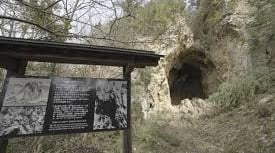

On July 27, 2024, UNESCO added the Sado gold and silver mines in Japan to its World Heritage List after South Korea withdrew its objections. This inclusion is significant due to the historical context of forced labor during World War II, where Korean laborers were conscripted to work under harsh conditions.
Historical Background
The Sado mines have a long history, believed to have been operational since the 12th century. They continued producing gold and silver until after World War II. These mines are particularly notable for their traditional, artisanal mining techniques, which stand in contrast to the mechanized methods seen in European mines during the same period. This historical and cultural heritage, showcasing the evolution of mining technology and methods over several centuries, makes the Sado mines unique.
Controversy and Objections
South Korea initially opposed the UNESCO listing due to the use of Korean forced labor during Japan’s occupation of the Korean peninsula. During the war, Korean workers faced extremely harsh conditions, reportedly more severe than those experienced by their Japanese counterparts. This aspect of the mines’ history raised historical and ethical concerns, leading to South Korea’s initial objections.
UNESCO Listing Process
Japan advocated strongly for the Sado mines’ inclusion on the World Heritage List, emphasizing their cultural, historical, and archaeological significance. A key argument was the emphasis on preserving traditional mining activities and the unique social organization of the mining community that developed around the Sado mines. After years of diplomatic negotiations and advocacy, South Korea agreed to the listing on the condition that there would be a proper historical acknowledgment of the forced labor issues.
International Impact and Recognition
The addition of the Sado mines to the UNESCO list is part of a broader effort to recognize and commemorate historical mining sites in Japan. This UNESCO recognition aims to improve tourism and raise global awareness about the site’s cultural and historical importance. Additionally, it seeks to address historical injustices by ensuring that the darker aspects of the mines’ history, including the discriminatory labor practices during World War II, are not overlooked.
About Sado Gold and Silver Mines
Historical Significance and Production: The Sado Gold and Silver Mines, located on Sado Island in Japan, began operations in the 17th century and were once among the country’s largest gold producers, especially prominent during the Edo period.
Forced Labor and Unique Features: The mines utilized forced labor from political exiles and are known for their unique underground tunnels, some of which stretch over 2,000 meters, showcasing the extensive and arduous mining work that took place.
Closure and UNESCO Nomination: Declining production led to the closure of the mines in 1989. Today, they are a UNESCO World Heritage nominee, emphasizing their historical and cultural significance in Japan’s complex mining history.
(NNI / Latest news / Latest news india / India latest news)
(UPSC current affairs / UPSC / UPSC Preparation / UPSC Preparation Books / UPSC Preparation Strategy )
India to have more contacts with Russia, Ukraine for peace efforts: Jaishankar
Latest News International: 30th July 2024

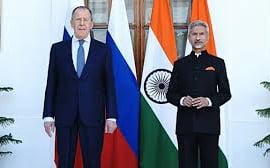
India will be involved in more contacts with Russia and Ukraine to find a peaceful resolution to the conflict because there aren’t many countries that are talking to both Moscow and Kyiv, external affairs minister S Jaishankar said on Monday.
(NNI / Latest news / Latest news india / India latest news)
‘Will make position known at right time’: EAM Jaishankar on reports of PM Modi's Ukraine visit
Latest News International: 30th July 2024

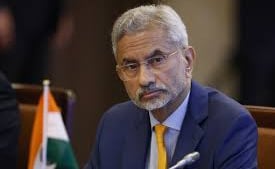
On the reports of Prime Minister Narendra Modi's visit to Ukraine, External Affairs Minister S Jaishankar clarified that India, like any other government will make its position known at the right time, and through the right channel.
(NNI / Latest news / Latest news india / India latest news)
US offers consultancy to India to build advanced drones under predator deal
Latest News International: 29th July 2024

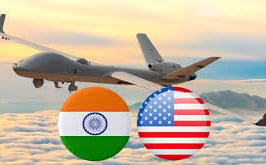
Amid ongoing negotiations for the acquisition of 31 Predator drones, the United States has proposed to provide consultancy services to India for developing advanced unmanned aerial vehicles with enhanced surveillance and reconnaissance capabilities, officials said on Saturday.
Notably, India and the US have been in talks to finalise the deal, which aims to equip all three branches of the Indian Armed Forces with state-of-the-art drones to bolster surveillance and domain awareness. Of the 31 Predator drones, the Navy will get 15 birds and Air Force and Army will be getting eight each.
(NNI / Latest news / Latest news india / India latest news)
Maldives Tourism Minister Ibrahim Faisal to visit India today
Latest News International: 29th July 2024
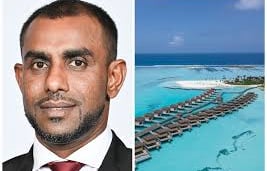

Maldives Tourism Minister Ibrahim Faisal is slated to visit India today to kick off a series of tourism roadshows under the "Welcome India" initiative. The campaign aims to reinforce the Maldives' status as a prime holiday destination for Indian travellers through a series of events in three major cities.
The roadshow schedule is the following:
1. New Delhi: July 30, 2024
2. Mumbai: August 1, 2024
3. Bangalore: August 3, 2024
(NNI / Latest news / Latest news india / India latest news)
India – US Signed Cultural Property Agreement
Latest News International: 28th July 2024, UPSC Preparation
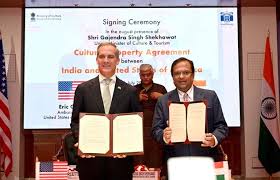

India and the US signed a deal on cultural property on July 26, 2024. The goal was to make it easier for them to work together to protect cultural heritage. Both countries have made a larger promise to return stolen artifacts and stop the illegal trade of cultural property, which includes this deal.
Purpose of the Agreement
The main goals of the Cultural Property Agreement between the United States and India are twofold:
Justice: It makes sure that culture items that belong to India are returned to the country.
Cultural Exchange: It helps people around the world understand Indian culture and shows how important it is to human history.
Signatories and Background
Gajendra Singh Shekhawat, who is Minister of Culture, was there when U.S. Ambassador Eric Garcetti and Indian Union Culture Secretary Govind Mohan signed the deal. It was signed after experts from both countries worked together to negotiate for almost two years.
International Framework
This deal is in line with the UNESCO Convention of 1970, which is meant to stop the illegal sending and receiving of cultural property. The U.S. has 29 bilateral agreements on cultural property, which show that it wants to protect cultural assets around the world.
Statements of Commitment
Ambassador Garcetti stressed how important this deal is for fairness and cultural understanding. He said again that the US was committed to saving cultural heritage around the world and making Indian culture more well-known. The Cultural Property Agreement between the United States and India is a big step toward working together to stop the illegal trade of cultural items. It also protects and honors cultural history for future generations.
(NNI / Latest news / Latest news india / India latest news)
(UPSC current affairs / UPSC / UPSC Preparation / UPSC Preparation Books / UPSC Preparation Strategy )
UK and India Launch New Technology Security Initiative
Latest News International: 28th July 2024, UPSC Preparation
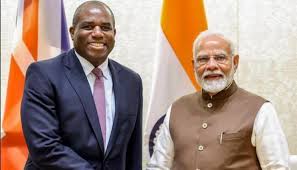

The Governments of India and the UK just started the Technology Security Initiative (TSI). The goal is to improve their strategic relationship as technology becomes more important for national security and economic growth. This project shows that people are serious about working together more on important and new technologies.
Strategic Importance
The TSI shows that both the UK and India understand how important technology is for improving national security and boosting the economy. The India-UK Roadmap 2030 lists a number of areas where leaders from both countries want to work together, including technology.
Bilateral Mechanisms
Under the TSI, a two-way system will be set up, with the National Security Advisors (NSAs) of both countries in charge. This system will handle trade problems involving important and new technologies, allowing for a full discussion on the most important areas for cooperation.
Key Technology Areas
The TSI will focus on making it easier for people to work together in several areas, including
Telecoms: Creating a Future Telecoms Partnership to study Open RAN systems and improve telecom security.
Critical Minerals: Creating a community for critical minerals to make it easier for people to share data and come up with new ideas in the supply chain.
Semiconductors: Making it easier for businesses and universities to work together on chip design and advanced production.
Artificial Intelligence (AI): Working together to make sure that AI is used in an ethical and responsible way by having multilateral talks.
Quantum Technologies: Working together on projects that use quantum computing in a variety of fields.
Biotechnology and HealthTech: Making it easier for biotechnology and healthtech companies to work together on genomics, smart biosensors, and precise medicine that is ethical.
Advanced Materials: Pay attention to new ideas and rules in materials science, especially nanotechnology.
Political Engagement
India’s Prime Minister Narendra Modi has said that he is very committed to improving relations between India and the UK. This is especially true now that the Labour government is putting more emphasis on foreign partnerships. To deal with future problems and find ways for innovation and economic growth to help everyone, the TSI is a proactive step. The Technology Security Initiative is a big step toward strengthening the strategic partnership between the UK and India. It will encourage teams to work together to make progress in important technologies, which will improve national security and the economy.
(NNI / Latest news / Latest news india / India latest news)
(UPSC current affairs / UPSC / UPSC Preparation / UPSC Preparation Books / UPSC Preparation Strategy )
South Africa Passes its First Sweeping Climate Change Law
Latest News International: 27th July 2024, UPSC Preparation

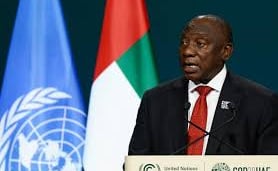
President Cyril Ramaphosa of South Africa signed a major climate change act into law in October 2023. This law tries to limit the amount of pollution big polluters can make and requires every municipality to make a plan for dealing with climate change. This makes South Africa’s efforts more in line with the Paris Climate Agreement.
Objectives of the Climate Change Act
The main goal of the act is to cut down on greenhouse gas emissions, which are high in South Africa because the country gets most of its energy from coal. The country is one of the biggest producers of carbon dioxide and has been having a hard time meeting its goals for lowering pollution.
Legal Framework and Responsibilities
South Africa’s reaction to climate change has been written into domestic law for the first time. Every state and city must look at the risks that climate change poses and come up with a plan for how to deal with them. Also, emissions goals will be set for important areas like agriculture, transportation, and industry. To meet these targets, ministers in charge of those areas will have to take action.
Carbon Budget Allocations
The law sets up a carbon budget method for big companies that release a lot of greenhouse gases. Each big company that emits will have its pollution limited for a certain amount of time. Companies will have to pay more in carbon taxes if they go over this limit, even though it’s not illegal to do so.
Expectations and Challenges
When carbon budgets are put in place, experts expect big businesses to cut their pollution by a large amount. To make sure responsibility, reporting must be clear and honest. But the law will only work if clear rules for allocating resources are put in place and people are given money to help them switch to green energy sources. This act could mean a change in how the South African government deals with climate change, pointing to a more aggressive approach than in the past. Still, problems like not having enough money and clear plans for switching to green energy are already there.
(NNI / Latest news / Latest news india / India latest news)
(UPSC current affairs / UPSC / UPSC Preparation / UPSC Preparation Books / UPSC Preparation Strategy )
Digital Assets Ease Payment Issues Between Russia and China
Latest News International: 27th July 2024, UPSC Preparation

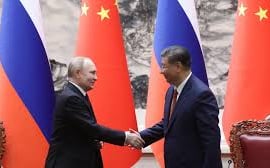
Digital assets are being used more and more in cross-border transactions between Russia and China. This is mostly because traditional banking has been slow for a long time because of international bans. Qifa, a digital tool, has come up as a way to solve these payment problems by using cryptocurrencies to speed up transactions.
Overview of Qifa
When Qifa was first started in 2013, its main goal was to bring Chinese goods into Russia. As the economies of the two countries changed and trade between them grew, Qifa changed its focus to make trade between the two countries easier in 2023.
Sanctions and Payment Delays
Because of the sanctions, bank transactions are taking a long time. Some payments are taking months. Chinese banks have made it harder for Russian companies that don’t know about these new rules to make payments because they have to follow more rules.
Use of Digital Assets
To deal with these problems, Qifa has turned to digital asset transactions, especially using the stablecoin Tether (USDT). By going around standard banking systems, this method of payment makes transactions possible quickly—often in just one day.
Legislative Developments
Russia is thinking about passing laws that would allow cryptocurrencies to be used in international trade. This would make deals involving digital assets even more legal and speed them up. Qifa is closely watching the rules in both Russia and China to make sure they are followed.
Compliance Issues
More checks for compliance have slowed down payments, which has made process times longer. One thing Qifa says is that many Russian businesses are starting to adjust to these rules, but problems still exist with paperwork and products that can be used for two different things. Qifa wants to go public on the Moscow Exchange and is looking into business chances in Kazakhstan and other former Soviet countries. This shows a bigger regional goal at a time when international trade is changing.
About Bilateral Trade
When two different countries trade with each other, this is called bilateral trade. It can make economic ties stronger, which usually leads to trade deals that lower taxes. In particular, trade between the US and China is very important and makes up a big part of all trade in the world. Foreign investment can grow with the help of bilateral trade deals. Surprisingly, about 60% of all trade in the world takes place through regional deals instead of bilateral ones. A lot of emerging countries also depend on trade between two countries to grow their economies.
(NNI / Latest news / Latest news india / India latest news)
(UPSC current affairs / UPSC / UPSC Preparation / UPSC Preparation Books / UPSC Preparation Strategy )
World’s Most Powerful Passports 2024: India ranks at 82nd
Latest News International: 26th July 2024, UPSC Preparation
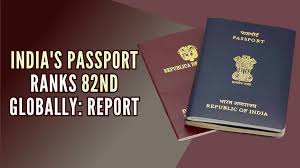

According to the Henley Passport Index, Singapore’s passport is once again the most powerful in the world, granting visa-free entry to 195 amazing places. This position is a testament to Singapore’s robust diplomatic network and its citizens’ ease of movement around the world. India ranks 82nd, allowing visa-free entry to 58 countries.
Global Passport Rankings
1st Place: Singapore – 195 destinations
Joint 2nd Place: France, Germany, Italy, Japan, Spain – 192 destinations
Joint 3rd Place: Austria, Finland, Ireland, Luxembourg, Netherlands, South Korea, Sweden – 191 destinations
4th Place: UK, Belgium, Denmark, New Zealand, Norway, Switzerland – 190 destinations
8th Place: USA – 186 destinations
82nd Place: India – 58 destinations (tied with Senegal and Tajikistan)
In 2014, the UK and USA jointly held first place in passport strength but have since declined in rankings. Notably, Afghanistan remains the weakest passport, offering access to only 26 countries.
Noteworthy Climbs and Drops
UAE: Rose from 62nd to 9th, now with access to 185 destinations.
China: Improved from 83rd to 59th, gaining access to 85 destinations.
Ukraine: Jumped from 53rd to 30th with access to 148 destinations.
Venezuela: Dropped from 25th to 42nd.
Other countries like Yemen, Nigeria, and Syria also experienced declines.
Bangladesh fell from 86th to 97th.
Access Discrepancies
There are large disparities in the strength of passports and the levels of openness in countries like as Nepal, Djibouti, Burundi, Sri Lanka, and Somalia. On the other hand, there is a substantial correlation between passport quality and access in nations like Barbados, Singapore, Barbados, Malaysia, and the Bahamas, where there are very few disparities.
About Henley Passport Index
The Henley Passport Index rates passports according to the amount of countries that do not require a visa in advance. It has been in operation since 2006 and gets its information from the IATA. At the top of the list, with access to 193 nations, are Japan and Singapore. Quarterly updates are made to the index. Afghans can visit only 27 countries without a visa, which is quite low. Discussions among governments regarding global mobility and travel freedom are impacted by the index. It also represents international accords and diplomatic ties.
(NNI / Latest news / Latest news india / India latest news)
(UPSC current affairs / UPSC / UPSC Preparation / UPSC Preparation Books / UPSC Preparation Strategy )
How Kamala Harris is hurtling towards presidency
Latest News International: 25th July 2024


She wasn't in the reckoning. But within a week, things changed dramatically for Kamala Harris. She has been endorsed by top Democrats as the presidential nominee and gets to inherit Biden's campaign treasure. A poll now shows her ahead of Republican Trump. Lotus could indeed be POTUS.
(NNI / Latest news / Latest news india / India latest news)
Biden on ending re-election bid: Passing torch to new generation to unite country
Latest News International: 25th July 2024
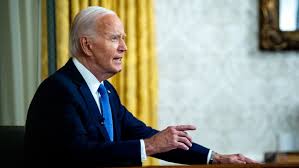

US President Joe Biden explained his abrupt departure from the 2024 presidential race to Americans for the first time on Wednesday night in an Oval Office address.
(NNI / Latest news / Latest news india / India latest news)
Israel Approves Bill Declaring UNRWA a Terrorist Organization
Latest News International: 24th July 2024, UPSC Preparation
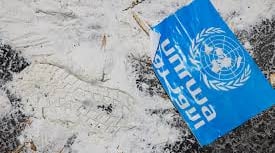

The Israeli parliament (Knesset) gave preliminary support to a controversial bill on July 22, 2024, that would have called UNRWA a terrorist group. After being accused of working with Hamas, Israel has been campaigning against the UN agency, and this move is a big step up in that campaign.
The Bill’s Details
After its first reading, the suggested law will be talked over again by the foreign affairs and defense committees. The bill’s sponsor, Yulia Malinovsky, called UNRWA a “fifth column within Israel,” which shows that the organization and Israeli officials have long-standing problems.
UNRWA’s Role
UNRWA is in charge of giving millions of Palestinians in Gaza, the West Bank, and several nearby countries basic services like schooling, health care, and humanitarian aid. The agency has had tense relationships with Israel in the past, and things have gotten even worse since the war in Gaza started.
Accusations Against UNRWA
Israeli officials say that a lot of UNRWA workers are connected to terrorist groups, mostly Hamas and Islamic Jihad. But the Israeli government hasn’t shown proof of these claims to a separate U.N. study yet.
International Response
Because of Israel’s claims, some donor countries stopped giving money to UNRWA. However, many of them are now starting to give again. Britain just recently said that it would start paying again. The Israeli bill was criticized by both Hamas and the Palestinian Authority. Palestinian officials asked people around the world to fight any attempts to break up the UN organization.
About United Nations Relief and Works Agency (UNRWA)
Establishment and Scope of Operations: The United Nations Relief and Works Agency (UNRWA) was established in 1949 specifically to support Palestinian refugees. It operates in five areas: Jordan, Lebanon, Syria, the West Bank, and the Gaza Strip, serving over 5 million registered refugees. UNRWA’s mandate includes providing essential services such as education, health care, and social services, emphasizing human rights and long-term development.
Funding and Contributions: UNRWA relies on voluntary contributions, primarily from UN member states, to fund its operations. This financial model requires continuous support from the international community to sustain its programs and services for Palestinian refugees. The agency’s dependence on voluntary donations often leads to financial instability, impacting its ability to deliver consistent services.
(NNI / Latest news / Latest news india / India latest news)
(UPSC current affairs / UPSC / UPSC Preparation / UPSC Preparation Books / UPSC Preparation Strategy )
India Ranks Third in Global Forest Area Gains
Latest News International: 24th July 2024, UPSC Preparation


India has made great progress in protecting forests. From 2010 to 2020, 266,000 hectares of new forest will be added each year. According to the Food and Agriculture Organization (FAO), this makes India the third country in the world in terms of forest area growth.
Global Forest Area Gains
China and Australia lead the rankings, having increased their forest areas by 1,937,000 and 446,000 hectares respectively. Other countries in the top ten include Chile, Vietnam, Turkey, the United States, France, Italy, and Romania.
India’s Initiatives
When India worked hard to fix up damaged lands and promote agroforestry using new ideas and new national policies meant to support these practices, the FAO praised the country.
Deforestation Trends
The FAO’s study shows that the rate of deforestation has gone down significantly in many parts of the world. In 2023, the rainforests in Indonesia shrank by 8.4%, and the rainforests in Brazil’s Amazon shrank by a shocking 50%. Climate change makes woods more vulnerable to wildfires and pests, even though there are some good signs. A big part of the world’s carbon emissions in 2021 came from boreal woods. In 2023, wildfires are expected to release 6,687 megatonnes of carbon dioxide into the air.
Mangrove Losses and Forest Health
The amount of gross world mangrove loss went down by 23% between 2000 and 2010 and will continue to go down until 2020. The FAO did say, though, that insects and diseases pose a major threat to U.S. forests, and they expect big losses by 2027.
About the Food and Agriculture Organisation (FAO)
Foundation and Membership: The Food and Agriculture Organization (FAO) was established in 1945 and comprises 194 member countries along with the European Union. The FAO’s headquarters is located in Rome, Italy. As a specialized agency of the United Nations, it is dedicated to leading international efforts to defeat hunger and improve nutrition and food security worldwide.
Role and Initiatives: FAO plays a key role in combating hunger and improving nutrition through global initiatives such as the “Zero Hunger” goal. The organization also hosts the Codex Alimentarius Commission, which sets international food standards to ensure the safety and quality of food products. By monitoring food security and agricultural sustainability, the FAO provides critical data and analysis to support informed policy-making and effective interventions.
Support and Development Projects: FAO actively supports rural development through various projects in over 130 countries. Its work encompasses a wide range of activities, from improving crop production and improving livestock management to promoting sustainable agricultural practices. These efforts aim to boost productivity, increase resilience to climate change, and improve the livelihoods of farmers and rural communities around the world.
(NNI / Latest news / Latest news india / India latest news)
(UPSC current affairs / UPSC / UPSC Preparation / UPSC Preparation Books / UPSC Preparation Strategy )
Bangladesh PM Sheikh Hasina blames opposition for job quota violence
Latest News International: 23rd July 2024


Bangladesh's Supreme Court on Sunday ordered scaling down quotas in state jobs, previously reserved for groups including families of freedom fighters, women and so-called disadvantaged groups, to 7 per cent from 56 per cent.
(NNI / Latest news / Latest news india / India latest news)
Drug giants eye China for deals despite growing Sino-US tensions
Latest News: 23rd July 2024


Bristol Myers Squibb, Sanofi looking at China M&A -employees
AstraZeneca, Novartis have done China deals this year
*
Political risks are a consideration -analysts
By Andrew Silver and Kane Wu
SHANGHAI/HONG KONG, - Some of the biggest global drugmakers, undeterred by mounting Sino-U.S. tensions, are scouring for deals in China to replenish drug pipelines and boost their presence in the world's second-biggest pharmaceutical market, industry executives and investment bankers said.
Several major deals have already been completed this year, including AstraZeneca's $1.2 billion purchase of China-based cell therapy developer Gracell Biotechnologies and Novartis' acquisition of remaining shares of kidney disease therapy developer SanReno Therapeutics for an undisclosed amount.
Bristol Myers Squibb and Sanofi are also hunting for deals, according to company employees, even as some rivals have looked to exit China in the wake of COVID-related supply chain disruptions, a local economic slowdown and price cuts to get state insurance listing.
(NNI / Latest news / Latest news india / India latest news)
Indian-American billionaire torches Donald Trump in exchange with Elon Musk
Latest News: 23rd July 2024
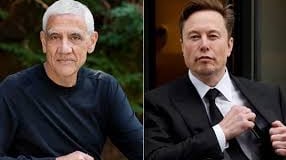

Indian-American tech billionaire Vinod Khosla clashed with Tesla CEO Elon Musk over former US President Donald Trump just minutes after President Joe Biden announced he was “standing down” from the presidential race.
(NNI / Latest news / Latest news india / India latest news)
Microsoft update flaw triggers worldwide chaos
Latest News International: 22nd July 2024
(UPSC / UPSC preparation / UPSC strategy)


The Crowd Strike update flaw serves as a stark reminder of the vulnerabilities inherent in our increasingly digitized world. It highlights the need for improved quality control, robust backup systems, and enhanced cybersecurity measures to safeguard against similar incidents in the future. The recovery efforts and cooperation among affected entities demonstrate the importance of prompt and coordinated responses to mitigate the impact of such disruptions.
A recent faulty update by Crowd Strike, a Texas-based cybersecurity firm, caused significant global disruptions across multiple sectors, including aviation, banking, hospitals, TV channels, and telecommunications. This incident highlights the vulnerabilities in digital systems and the cascading effects of software errors.
The update was part of the Falcon endpoint threat detection and response product developed by CrowdStrike. The faulty update resulted in Windows computers and servers entering a boot loop with a blue screen of death, causing widespread outages.
Impact on Aviation:
Flights were briefly grounded in the United States and other countries.
Airports worldwide, including major Indian cities like Bengaluru, Chennai, New Delhi, and Mumbai, experienced digital system failures, leading to manual passenger check-ins and handwritten boarding passes.
Numerous flights were delayed or canceled, with IndiGo cancelling at least 283 flights over two days.
Impact on Other Sectors:
Banking, telecommunications, hospitals, TV channels, and other industries faced significant disruptions.
The Union government’s eOffice suite was impacted for two hours.
Maruti Suzuki India Ltd briefly halted production and despatch operations.
Issues
Software Reliability: The incident underscores the critical need for rigorous quality control in software updates, especially those related to cybersecurity.
Dependency on Digital Systems: The heavy reliance on digital systems across sectors makes them vulnerable to software glitches.
Response and Recovery: The necessity for manual intervention in recovery highlights the lack of automated and immediate solutions.
Significance
Operational Disruption: The chaos caused by the update affected millions of users and critical infrastructure, showcasing the far-reaching consequences of software failures.
Economic Impact: Flight delays, cancellations, and disruptions in various sectors likely resulted in significant economic losses.
Cybersecurity Concerns: The incident raises questions about the robustness of cybersecurity measures and the potential for such failures to be exploited maliciously.
Solutions
Enhanced Quality Control: Implementing more stringent testing and validation processes for software updates to prevent such incidents.
Robust Backup Systems: Developing comprehensive backup and recovery systems to minimize downtime and ensure continuity of operations.
Collaboration and Communication: Strengthening coordination between cybersecurity firms, software providers, and critical infrastructure entities to facilitate quick resolution and mitigation of such issues.
(NNI / Latest news / Latest news india / India latest news)
India and a case for strategic autonomy
Latest News International: 21th July 2024

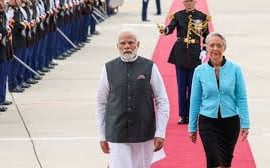
India’s commitment to strategic autonomy, despite U.S. concerns, underscores its pursuit of national interests amid shifting global dynamics. Balancing ties with Russia and the West, India seeks to maintain independent foreign policy choices in a multipolar world.
Introduction:
On July 11, 2024, after Prime Minister Modi’s visit to Moscow, U.S. Ambassador Eric Garcetti stated that strategic autonomy is impractical during conflicts, emphasising the need for mutual understanding during crises.
The Biden administration expressed concerns about Modi’s visit, especially as it coincided with a NATO summit, which reportedly disturbed the U.S. administration.
Stress Points and Historical Overview:
Despite a steady strategic partnership between India and the U.S., recent stress points have emerged, particularly India’s stance on the Ukraine war.
India maintained its strategic partnership with Russia, expanded energy cooperation, and refused to condemn the invasion, which the West viewed as support for Putin’s war.
Ambassador Garcetti’s comment contradicts the principle of strategic autonomy, which involves making decisions based on national interests despite external pressures.
India’s Strategic Autonomy:
India has consistently followed strategic autonomy since its Independence, adapting its foreign policy to serve its interests in a changing international system.
Initially equidistant from both capitalist and communist blocs, India later strengthened ties with Moscow due to regional dynamics but retained strategic autonomy.
Post-Cold War, India integrated more with the global economy and formed closer partnerships with the West while maintaining its independent stance.
Great Power Rivalry and Russia Policy:
The global order is shifting, with the U.S. remaining powerful but facing competition from China and challenges from Russia.
India aims to balance relationships with great powers without joining any alliance system, maintaining strategic autonomy as crucial.
Energy ties with Russia are opportunistic, driven by cheap prices, while the defence partnership is structural, with a significant portion of India’s military equipment originating from Russia.
Positive-Sum Game Perspective:
The U.S. should not view India’s strategic autonomy as unfriendly; India supports a multilateral global order and seeks a more representative international system.
Strategic autonomy for India means greater engagement with various power centres based on informed national interest, viewing foreign policy as a positive-sum game where all parties can benefit.
India’s energy trade with Russia helps stabilise global oil prices and its cooperation with Moscow can moderate Russia’s relationship with China, aligning with broader geopolitical interests.
Conclusion:
India’s strategic autonomy reflects a nuanced foreign policy approach in a multipolar world, challenging the binary perspective of being either with or against a major power.
This approach emphasizes India’s role in promoting a more balanced and representative global order.
(NNI / Latest news / Latest news india / India latest news)
Mark Zuckerberg declines to endorse Donald Trump or Joe Biden for upcoming election
Latest News International: 20th July 2024


Mark Zuckerberg is staying neutral in the US presidential election, won't endorse Donald Trump or Joe Biden.
(NNI / Latest news / Latest news india / India latest news)
Bangladesh protests its internal matter, India committed to citizens’ safety: MEA
Latest News International: 20th July 2024
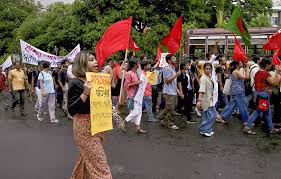

Ministry of External Affairs spokesperson Randhir Jaiswal said Friday that there were around 15,000 Indians, including 8,500 students, currently residing there and they were all safe
(NNI / Latest news / Latest news india / India latest news)
National Quantum Mission – Current Updates (July, 2024)
Latest News International: 20th July 2024, UPSC Preparation


India set up the National Quantum Mission in 2022 with a budget of Rs 6,000 crore, which is about $0.75 billion. India is now one of only a few countries that is actively spending in quantum technology in order to use it to solve problems in energy, healthcare, and other areas. India knows it needs to speed up its efforts to catch up to leading countries like China and the US in quantum sciences, even though it already has a strong study base in the field.
Understanding Quantum Technologies
Quantum technologies use the strange and often counterintuitive behavior of subatomic objects like electrons, which can be in more than one place at the same time (superposition) and be entangled over long distances. After being tested in many experiments, these qualities are now being used in real-world things like quantum computing, communications, sensors, and materials.
The Scale of Global Investment and Competitiveness
In the area of quantum science, China and the US are investing and producing a lot more than India. China is investing about $15 billion, while the US is investing about $3.75 billion, which is more than India is spending right now. These countries also do a lot more research and invention filings than India does. This makes the competition in this field very tough.
India’s Current Standing and Potential
India is not starting from scratch, even with these problems. In terms of the amount of students studying quantum topics, the country has more than China and the US combined. It also has strong research groups led by 110 to 145 senior scientists. Indian experts are the best at some things, like quantum communications and sensing. This shows that India might be able to close the technology and innovation gap in these areas.
Strategic Steps Forward
Many people see the National Quantum Mission as the start of a planned and serious effort to make India better at using quantum technologies. To help reach this goal, India should strongly encourage young people to become scientists. This could help the country build a devoted group of quantum scientists, similar to what it does in the atomic energy or space science fields. The goal of this strategic aim is to build an ecosystem that can finally lead to technological leadership and big economic gains. India wants to catch up to and maybe even beat its global competitors in quantum technologies by building on its current strengths and focusing on strategy development and working with other countries.
(NNI / Latest news / Latest news india / India latest news)
(UPSC current affairs / UPSC / UPSC Preparation / UPSC Preparation Books / UPSC Preparation Strategy )
Ivory Coast Joins UN Water Convention as 10th African Member
Latest News International: 20th July 2024, UPSC Preparation
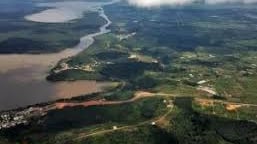

With its recent membership, Ivory Coast became the 10th country in Africa to sign the UN Water Convention. This accession is very important because it makes it easier for everyone to work together to manage water resources better, which is especially important now that water shortages and the effects of climate change are getting worse in the area.
Background of the UN Water Convention
Its full name is the Convention on the Protection and Use of Transboundary Watercourses and International Lakes. The UN Water Convention was created in 1992 mainly for the European area. In 2016, its goals were made more global so that all UN Member States could join and support the long-term management of shared water supplies.
Ivory Coast’s Water Resource Challenges
Ivory Coast shares eight transboundary river basins with its six neighboring countries. These areas have a lot of water stress. Climate change is making important rivers, like the Niger, very vulnerable, and their flows are expected to drop by a lot.
Importance of Cooperative Water Management
Countries must work together to make sure that transboundary waters are used in a way that doesn’t harm the environment. Because Ivory Coast is very vulnerable to climate change and doesn’t have a lot of water, joining the agreement should make it easier for countries in the region to work together on water management.
More About UN Water Convention
The “Convention on the Protection and Use of Transboundary Watercourses and International Lakes,” as the UN Water Convention is legally known, was signed in 1992. It encourages sustainable control of water across borders. It has only been approved by 47 countries, mostly in Europe. The Convention stresses the fair and sensible use of shared water supplies. It motivates people to be involved in managing water. The 2016 change lets states that aren’t UN members join. UNECE is in charge of the staff. It also has rules for keeping the water clean and stopping waste.
(NNI / Latest news / Latest news india / India latest news)
(UPSC current affairs / UPSC / UPSC Preparation / UPSC Preparation Books / UPSC Preparation Strategy )
Von Der Leyen Re-elected as EU Commission President
Latest News International: 20th July 2024
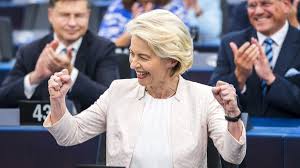

The President of the European Commission, Ursula von der Leyen, was re-elected and will serve for another five years. 401 votes from the European Parliament supported her election, showing a large group of people who agree with her in the face of ongoing global problems.
Election Details
The secret vote took place in Strasbourg, and von der Leyen got a lot of support from the Greens, as well as from parties on the center-right, center-left, and liberal sides. This alliance helped her easily get more votes than the necessary majority of 361 votes.
Key Pledges
From der Leyen listed her main goals for the new term, which are:
Defense Union: A promise to build a European Defense Union to make everyone safer, especially in light of Russia’s aggressiveness.
Climate Policy: Moving forward with the European Green Deal, which aims to cut emissions by 90% by 2040 compared to 1990 levels.
Competition in the Industrial Sector: Efforts to help European businesses switch to cleaner methods without hurting their ability to compete.
Response to Global Issues
Problems that her program tries to solve include:
War in Ukraine:The West continues to back Ukraine against Russian military actions, saying that it is protecting European ideals and freedoms.
Defense Reliance: Stressing that Europe needs to improve its defenses, especially since the US’s help is uncertain.
Controversies and Criticism
Russia did not like Von der Leyen’s ideas and called them attempts to make the country more militarized. At home, Parliament agreed with what she said about Hungarian Prime Minister Viktor Orban’s diplomatic attempts, which shows how tense things are politically in Europe.
About Ursula von der Leyen
Ursula von der Leyen, who was born in 1958, will be the first woman to lead the European Commission when she starts her job in December 2019. Before, she was Germany’s Minister of Defense, which made her the first woman to fill that job. She is an educated doctor and has a background in economics as well. von der Leyen is skilled in English, French, and Dutch, among other languages. He has six children. She stressed the EU’s digital and green changes in 2021.
About European Union
Formation and Membership: Established in 1993 by the Maastricht Treaty, the EU currently has 27 member states, with Brussels serving as its de facto capital.
Economic and Monetary Union: The Euro is the official currency for 19 member countries, and the Maastricht criteria guide its adoption. The EU’s annual budget exceeds €160 billion, facilitating economic cooperation.
Population and Achievements: With a population of over 447 million, the EU promotes peace and stability in Europe. It won the Nobel Peace Prize in 2012 for its efforts in improving reconciliation.
(NNI / Latest news / Latest news india / India latest news)
(UPSC current affairs / UPSC / UPSC Preparation / UPSC Preparation Books / UPSC Preparation Strategy )
Pelosi privately told Biden he can't beat Trump in 2024 presidential election
Latest News International: 19th July 2024
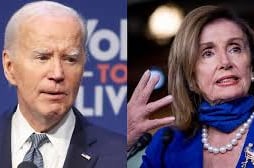

Former US House Speaker Nancy Pelosi privately told President Joe Biden that polling data suggests he cannot defeat Donald Trump in the 2024 election and that his bid for a second term could harm the Democratic Party's chances in the House. Biden pushed back, citing polls indicating he can win.
(NNI / Latest news / Latest news india / India latest news)
19 killed in Bangladesh protests: 5 points on crisis in India's neighbourhood
Latest News International: 19th July 2024


As the quota protests and turmoil continue in Bangladesh, at least 19 people have reportedly been killed following nationwide clashes with security personnel. The stir that has left thousands injured, has crippled life in several cities in Bangladesh. The trains, metro, and the internet were hit. A TV station was torched too.
(NNI / Latest news / Latest news india / India latest news)
Riots break out in UK's Leeds, bus set on fire, police car overturned
Latest News International: 19th July 2024


Riots broke out in Leeds's Harehills area with a bus being set on fire and several people throwing debris at it. The windows of a police car were smashed before the vehicle was flipped over. People were advised to avoid the area.
(NNI / Latest news / Latest news india / India latest news)
India great power: Russian Foreign Minister slams pressure over Moscow ties
Latest News International: 18th July 2024
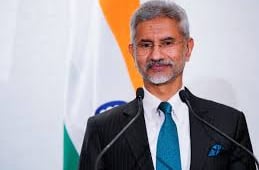

Russian Foreign Minister Sergey Lavrov praised India's independent stance on national interests and criticised the international pressure on New Delhi regarding its energy cooperation with Moscow.
MANAS – India’s First toll-free National Anti-Narcotics Helpline
Latest News International: 17th July 2024


The Union Home Minister, Amit Shah, is set to launch India’s first-ever toll-free national helpline for narcotics-related issues, termed MANAS (Madak Padarth Nisedh Asuchna Kendra), or the Narcotics Prohibition Intelligence Centre. The launch is set to happen on July 18 during the seventh meeting of the Narco-Coordination Centre (NCORD). The helpline, which has a specific phone number (1933) and an email address (info.ncbmanas@gov.in), is meant to give people a safe and easy way to report drug-related activities.
Objectives and Functioning of MANAS
MANAS is an all-in-one service that helps fight drug trafficking and related crimes. It does this by letting people report crimes directly through a website (ncbmanas.gov.in) and other methods. Crimes like illegal drug dealing, selling, buying, storing, making, and growing drugs or substances that make you feel high are what the focus is on. As required by the Narcotic Drugs and Psychotropic Substances (NDPS) Act, the Narcotics Control Bureau (NCB) will verify the information given by reporters and take action based on that information.
Integration and Impact
As ordered by Prime Minister Narendra Modi, this project is part of a larger plan by the central government to have a “zero tolerance” stance on drug abuse. India wants to be drug-free by 2047. This will be done by improving institutional frameworks, making it easier for drug agencies to work together, and running large-scale public awareness programs. Before the MANAS helpline was created, similar efforts used less available ways to get in touch, showing a big improvement in how people can talk to each other and how efficiently things work. This service is meant to be an important part of the national fight against drugs.
Strengthening the Anti-Narcotics Framework
At the same time that the MANAS helpline opens, the NCB’s new zonal office in Srinagar opens and the NCB’s annual report for 2023 is made public. Both of these events are important parts of ongoing efforts to improve anti-drug operations across the country. The NCORD system, which was set up in 2016 and improved in 2019, is a key part of this plan because it helps the national, state, and district levels work together. This is made even stronger by the creation of special task teams, drug disposal drives, and other programs that aim to stop the drug problem in India.
About Narco-Coordination Centre (NCORD)
The Narco-Coordination Center (NCORD) was opened in 2021 in Maharashtra, India. It helps law enforcement agencies work together to fight drug crime. NCORD uses digital platforms to share information and coordinate actions from different offices, like the Narcotics Control Bureau, police, and customs. Through real-time information and coordinated law enforcement efforts, the center hopes to stop drug abuse and trafficking from getting worse. This project shows that the Indian government is taking action to stop the drug problem from getting worse. The “war on drugs” order from the government tells NCORD how to run its business.
(NNI / Latest news / Latest news india / India latest news)
(UPSC current affairs / UPSC / UPSC Preparation / UPSC Preparation Books / UPSC Preparation Strategy )
New High-Efficacy Malaria Vaccine Launched in Cote d’Ivoire
Latest News International: 17th July 2024


The introduction of the R21/Matrix-M vaccine in Cote d’Ivoire was a big step forward in the fight against malaria around the world. The World Health Organization (WHO) approved the vaccine last year, and this is the first time it has been given to everyone in the country.
Development and Approvals
Novavax contributed its Matrix-M adjuvant technology to the R21/Matrix-M vaccine, which was made by the University of Oxford and the Serum Institute of India (SII). It was put through strict WHO regulatory and clinical tests that proved it worked and was safe.
Manufacturing and Distribution
The vaccine is highly effective and only needs a small dose, which makes it possible to make a lot of them quickly. Already, 25 million doses have been made, and plans are in place to make that number 100 million doses a year. Also worth mentioning is how cheap it is—each dose costs less than USD 4.
Rollout and Impact
Cote d’Ivoire was the first country to use R21/Matrix-M. The goal is to vaccinate about 250,000 children ages 0 to 23 months in 16 areas. According to recent sources, malaria kills about four people a day in the country, mostly young children. This could cut that number down by a huge amount. Aside from Côte d’Ivoire, the vaccine has also been approved in Ghana, Nigeria, Burkina Faso, and the Central African Republic. The release of R21/Matrix-M and another vaccine called RTS,S is projected to save tens of thousands of lives every year. With help from Gavi, 15 African countries plan to use this vaccine by 2024. This will protect about 6.6 million children over two years.
About Serum Institute of India
The Serum Institute of India, founded in 1966 by Cyrus Poonawalla, is the world’s largest vaccine manufacturer by number of doses produced.
It is headquartered in Pune, India, and was originally set up to manufacture immunobiologicals.
The company played a pivotal role during the COVID-19 pandemic by mass-producing the Covishield vaccine, a version of the Oxford-AstraZeneca vaccine.
Notably, Serum Institute also produces vaccines for polio, diphtheria, tetanus, pertussis, BCG, r-Hepatitis B, measles, mumps, and rubella.
Its facility in Pune is the world’s largest vaccine factory in terms of doses produced and sold globally.
(NNI / Latest news / Latest news india / India latest news)
PM Modi – Most Followed Leader on X with over 100 Million Followers
Latest News International: 17th July 2024, UPSC Preparation
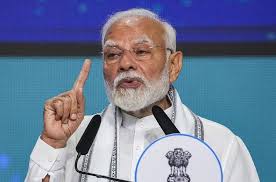

Prime Minister Narendra Modi now has more than 100 million followers on the social media site X. This makes him the most followed world leader on this site. With this important accomplishment, he stands ahead of other famous people around the world, such as US Vice President Joe Biden and Pope Francis.
Modi’s Rapid Growth
In the past three years, about 30 million more people have started following PM Modi on platform X, which is a huge jump. This increase shows how influential he is becoming and how interesting his online presence is.
Engagement and Popularity
Not only do other politicians and leaders connect with PM Modi’s ideas, but so do celebrities, sports, and regular people around the world. His fans are bigger than those of famous Indian politicians like Rahul Gandhi and Arvind Kejriwal, as well as foreign stars like Taylor Swift and sports stars like Virat Kohli.
Strategic Use of Platform X
Narendra Modi has been constantly interacting with his followers on platform X since 2009. He does not use paid promotions or bots and instead talks to them directly. His easygoing and interactive online persona is a big reason for his huge rise in fame. PM Modi has a lot of followers, which not only makes him more visible but also makes it easier for him to connect with other world leaders and improves their social media metrics. This interaction strengthens his position on the world stage and shows how smart he is at using digital tools to connect people around the world.
About Narendra Modi
Early Life and Education: Narendra Modi was born on September 17, 1950, in Vadnagar, India. He helped his father sell tea at the local railway station and later completed a Master’s degree in Political Science from Gujarat University. Before entering politics, Modi was deeply involved with the RSS, a nationalist volunteer organization.
Political Career and Milestones: Modi has been serving as the Prime Minister of India since 2014, representing the BJP party. Notably, he implemented the controversial demonetization policy in 2016 to combat corruption and illegal cash flows. He also inaugurated the world’s tallest statue, the Statue of Unity in Gujarat, standing 182 meters tall, in 2018.
Recognition and Controversies: Modi is India’s first Prime Minister who was born after the country got its freedom in 1947. His entry into the US was limited until 2014 because of claims he was involved in the 2002 riots in Gujarat, but this was lifted when he became Prime Minister. Awarded the Champions of the Earth Award by the United Nations in 2018, it is the highest environmental prize given by the UN. Speaking to the nation about different problems on his monthly radio show, “Mann Ki Baat,” which has been very popular since 2014.
(NNI / Latest news / Latest news india / India latest news)
(UPSC current affairs / UPSC / UPSC Preparation / UPSC Preparation Books / UPSC Preparation Strategy )
Philippines Chosen to Host U.N. Climate Fund Board
Latest News International: 16th July 2024, UPSC Preparation


The Philippines was recently chosen to house the board of the “Loss and Damage” fund. This is a big step toward helping people who have been hurt by climate change. This choice was made during talks at the United Nations, which were mostly about giving money to countries that are being hit hard by global warming. Following that, the World Bank agreed earlier that month to oversee this fund for four years temporarily.
Concerns Over Hosting
Some countries had problems with the World Bank’s job as the temporary host. People were worried that funding countries, especially the US, which has a lot of power over the World Bank, might have too much of an effect. This worry shows how complicated international financial systems and diplomacy around the world are.
The Philippines’ Role and Responsibilities
Since they were picked from a group of seven candidates, the Philippines has a big role to play in making climate policy. As President Ferdinand Marcos Jr. said, this job supports the country’s dedication to allowing everyone to participate in global climate discussions. As an island that is often hit by typhoons and other natural disasters, the Philippines is about to bring much-needed attention to the climate problems in the Asia-Pacific region.
Legislative and Operational Steps
Before the Philippines can truly take on this hosting role, it needs to pass the necessary laws. No specific date has been given for when the Philippines will start doing its job. At this growth stage, changes to local government and diplomatic interactions between countries are very important.
Expected Leadership from the Philippines
With its new position, the Philippines is expected to show a lot of political leadership by pushing developed countries to accept and take action on their past climate damage impacts. The Philippines needs to push for reparations and stronger promises from richer countries, as Lidy Nacpil of APMDD has said. Overall, the Philippines’ holding of the “Loss and Damage” fund board is a major step toward better global cooperation and support for countries dealing with the terrible effects of climate change. The next task is to put this framework into action and make sure it helps people who need it the most.
About Loss and Damage fund
The “Loss and Damage” fund was set up at the COP27 UN Climate Change Conference in 2022 to help countries that are weak and have been hit by natural disasters. With a focus on the economic and non-economic effects in emerging countries, it talks about “loss and damage” as opposed to “mitigation and adaptation.” Even though it has support from around the world, the fund’s operations and funding sources are still not clear in early 2023. This plan is a big step forward in climate talks because it recognizes that developed countries are responsible for past pollution that hurt poorer countries more than they hurt rich countries. International discussions about contributions and governance systems are still going on.
(UPSC current affairs / UPSC / UPSC Preparation / UPSC Preparation Books / UPSC Preparation Strategy )
Wolbachia Bacteria
Latest News International: 16th July 2024, UPSC Preparation


One of the most important studies ever published by Shenyang Agricultural University (SAU) in June showed how Wolbachia bacteria have changed the wasp Encarsia formosa’s reproductive system, creating groups of only females. This finding is very important, especially for biological pest control, since E. formosa feeds on destructive whiteflies in farms.
Historical Background
American researchers Marshall Hertig and Simeon Burt Wolbach were the first to notice the link between Wolbachia bacteria and arthropods one hundred years ago. It was noticed that these bacteria lived inside bug cells, which turned out to be a common occurrence in many arthropods.
Understanding Wolbachia’s Impact
Wolbachia bacteria can only be passed down through female insects because they are found in eggs but not sperm. Because of this, the bacteria are more likely to reproduce with females than with males, which can change the ratio of males to females in host groups.
Mechanism of Male Elimination in E. formosa
Scientists at SAU saw that E. formosa wasps in the wild almost always had female babies. More tests in the lab showed that giving antibiotics like tetracycline to female wasps caused them to produce more male offspring—almost 70% of the offspring. This showed that normal amounts of Wolbachia caused chromosomes to double in wasp eggs that hadn’t been fertilized, which mostly led to female growth. The antibiotic treatment lowered the amount of Wolbachia, which let the eggs turn into boys. Wolbachia Saves Genetics The SAU study also found that the wasp’s genome is missing important parts of a gene (tra) that is needed for female growth. Interestingly, Wolbachia makes up for this loss by giving the wasp eggs a working tra gene that it gets from transferring genes from another insect order. This lets the eggs grow into female wasps.
Potential Challenges and Future Directions
Concerns about the species’ long-term survival are raised by the fact that there are no males in natural communities. Males raised in labs after antibiotic treatment were not interested in or able to mate, which suggests that long-term absence may have caused genetic or behavioral changes that can’t be undone. More study needs to be done to find out if these males can reproduce and if any natural, rare male occurrences can help gene exchange to stop bad genetic mutations from building up.
(UPSC current affairs / UPSC / UPSC Preparation / UPSC Preparation Books / UPSC Preparation Strategy )
Germany to Phase Out Huawei, ZTE in 5G Networks
Latest News International: 16th July 2024, UPSC Preparation


Germany has said it wants to slowly remove parts of its 5G network equipment that were made by Chinese telecom companies Huawei and ZTE. This choice was made to protect national security and is part of a larger plan to make the economy less dependent on Beijing. The move is similar to what the European Union said about the security risks that could come from relying too much on Chinese technology. German officials have stressed how important it is to protect important information networks, calling cyberattacks an existential threat.
Agreements with Operators
To make this change, Germany has worked with its own 5G network providers to come to deals that will replace the Chinese parts with healthier ones.
Responses from Huawei and Beijing
Huawei has denied the claims, saying there is no solid proof that their technologies pose a threat to safety. At the same time, the Chinese embassy in Berlin said that this move was wrong because it was based on false accusations.
Apple’s EU Settlement
Another important event is that Apple has decided to let outsiders use the technology behind Apple Pay. The European Union started an antitrust investigation in 2020 to see if Apple unfairly stopped competitors from entering the market for payment services. This ruling ends that investigation. This deal does not, however, cover technologies in the Apple Watch.
FTC Action Against NGL
On a different note, the U.S. Federal Trade Commission (FTC) has hit NGL, an anonymous texting app, hard. Teens were told this app was a safe place, but it was found to break child privacy and consumer protection laws, so people under 18 aren’t allowed to use it. Also, dishonest activities were found, such as the sending of fake texts to users to trick them into paying for something. For these violations to be over, a large settlement with fines has been reached. In short, these events have caused big changes in the worlds of technology, defense, and government actions. These changes have effects on business operations and policymaking across borders.
(UPSC current affairs / UPSC / UPSC Preparation / UPSC Preparation Books / UPSC Preparation Strategy )
IMF Agrees to $7 Billion Loan Program for Pakistan
Latest news international 15th July 2024
UPSC preparation
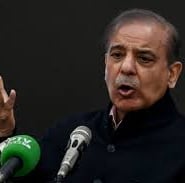

The International Monetary Fund (IMF) and Pakistan reached a deal on July 12, 2024, for a $7 billion loan program that will last for 37 months. The main goal of this Extended Fund Facility program is to help Pakistan, a country that has had a lot of economic problems, become more stable and grow in a way that benefits everyone.
Approval and Conditions
The IMF has said that the new program can’t start until its Executive Board agrees to it. Pakistan also needs to get “timely confirmation of necessary financing assurances” from important developmental and bilateral partners like China, the United Arab Emirates, and Saudi Arabia. These assurances could include loan rollovers or payments.
Background of Negotiations
This deal was discussed in May after a short-term $3 billion scheme was successfully finished. This earlier scheme was very important for stabilizing Pakistan’s economy and keeping the country from defaulting on its debt.
Economic Reforms and Aims
Nathan Porter, head of the IMF mission in Pakistan, said that the goal of the new program is to build on the “hard-won macroeconomic stability” of the past year. To encourage growth driven by the private sector, efforts will be focused on improving the economy’s health, lowering inflation, building up external buffers, and getting rid of economic flaws.
Fiscal Targets and Economic Challenges
To get ready for the IMF program, Pakistan has set a high tax income goal of 13 trillion rupees ($47 billion) for the fiscal year that starts on July 1. This is almost 40% more than the previous year’s goal. Pakistan’s economy has been unstable in the past, which is why it has needed 22 IMF bailouts since 1958. Pakistan is still the IMF’s fifth-biggest customer, with $6.28 billion in loans still due as of mid-July 2023. This project shows that the Pakistani government, led by Ali Pervaiz Malik, Minister of State for Finance, Revenue, and Power, is still working to keep the economy growing and the finances stable. Malik has stressed how important it is to finalize the new loan agreement before the IMF Executive Board’s annual August break. However, the exact time that the board will consider the deal is still unknown.
(NNI / Latest news / Latest news india / India latest news)
(UPSC current affairs / UPSC / UPSC Preparation / UPSC Preparation Books / UPSC Preparation Strategy )
Philippines Chosen to Host U.N. Climate Fund Board
Latest news international 15th July 2024
UPSC preparation
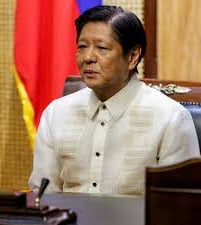

The Philippines was recently chosen to house the board of the “Loss and Damage” fund. This is a big step toward helping people who have been hurt by climate change. This choice was made during talks at the United Nations, which were mostly about giving money to countries that are being hit hard by global warming. Following that, the World Bank agreed earlier that month to oversee this fund for four years temporarily.
Concerns Over Hosting
Some countries had problems with the World Bank’s job as the temporary host. People were worried that funding countries, especially the US, which has a lot of power over the World Bank, might have too much of an effect. This worry shows how complicated international financial systems and diplomacy around the world are.
The Philippines’ Role and Responsibilities
Since they were picked from a group of seven candidates, the Philippines has a big role to play in making climate policy. As President Ferdinand Marcos Jr. said, this job supports the country’s dedication to allowing everyone to participate in global climate discussions. As an island that is often hit by typhoons and other natural disasters, the Philippines is about to bring much-needed attention to the climate problems in the Asia-Pacific region.
Legislative and Operational Steps
Before the Philippines can truly take on this hosting role, it needs to pass the necessary laws. No specific date has been given for when the Philippines will start doing its job. At this growth stage, changes to local government and diplomatic interactions between countries are very important.
Expected Leadership from the Philippines
With its new position, the Philippines is expected to show a lot of political leadership by pushing developed countries to accept and take action on their past climate damage impacts. The Philippines needs to push for reparations and stronger promises from richer countries, as Lidy Nacpil of APMDD has said. Overall, the Philippines’ holding of the “Loss and Damage” fund board is a major step toward better global cooperation and support for countries dealing with the terrible effects of climate change. The next task is to put this framework into action and make sure it helps people who need it the most.
About Loss and Damage fund
The “Loss and Damage” fund was set up at the COP27 UN Climate Change Conference in 2022 to help countries that are weak and have been hit by natural disasters. With a focus on the economic and non-economic effects in emerging countries, it talks about “loss and damage” as opposed to “mitigation and adaptation.” Even though it has support from around the world, the fund’s operations and funding sources are still not clear in early 2023. This plan is a big step forward in climate talks because it recognizes that developed countries are responsible for past pollution that hurt poorer countries more than they hurt rich countries. International discussions about contributions and governance systems are still going on.
Prime Minister Narendra Modi’s visit to Moscow
Latest news international 14th July 2024
UPSC preparation
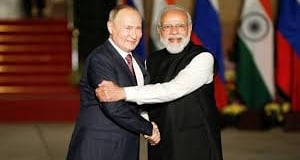

Prime Minister Modi’s visit to Moscow, while reinforcing India-Russia ties, has highlighted the challenges of maintaining a balanced diplomatic stance in a highly polarized global environment. India’s task moving forward will be to assert its independent foreign policy while managing its relationships with both Western allies and Russia, ensuring that its long-term national interests are safeguarded.
Background
Bilateral Focus: The visit was projected to emphasize the bilateral relationship between India and Russia, with a strong focus on economic and trade ties.
Global Impact: Despite its bilateral nature, the visit had global repercussions due to the ongoing war in Ukraine and the geopolitical tensions involving Russia.
Outcomes of the Visit
Reaffirmation of Ties: The visit underscored the strong India-Russia relationship and the personal rapport between Modi and Putin.
Economic Engagement: A bilateral trade target of $100 billion by 2030 was announced, driven by India’s increased oil imports from Russia at discounted rates due to Western sanctions.
Civilian Award: Modi received Russia’s highest civilian award, highlighting the significance of the visit.
Military and Defense: Unlike previous visits, no new military purchases were announced, partly due to delays in existing deals and the desire to avoid international censure.
Conflict Statement: Modi emphasized that there is “no solution on the battlefield” to the Ukraine conflict, reflecting a balanced stance.
Issues
Optics and Timing: The visit coincided with a devastating missile attack in Ukraine and a summit in Washington aimed at showcasing Russia’s isolation, leading to criticism of Modi’s trip.
International Criticism: Both the U.S. State Department and Ukraine openly criticized the visit, complicating India’s diplomatic relations with the West.
Geopolitical Balancing: India’s need to maintain its independent foreign policy stance while navigating the pressures from both the Western bloc and its longstanding relationship with Russia.
Significance
Economic Gains: Strengthening economic ties with Russia, particularly in energy imports, is crucial for India’s energy security and economic interests.
Diplomatic Stance: The visit highlights India’s attempt to balance its diplomatic relations, asserting its independent stance in a polarized world.
Global Perception: The optics of the visit amidst global tensions reflect the complex nature of international diplomacy and India’s role in it.
Solutions
Diplomatic Engagement: India needs to engage in robust diplomatic efforts to mitigate any potential damage to its relations with the U.S. and Europe.
Balanced Communication: Clearly communicate India’s stance on the Ukraine conflict and its reasons for maintaining strong ties with Russia to the international community.
Strategic Partnerships: Continue to strengthen strategic partnerships with other global players to diversify diplomatic and economic engagements.
Why are dengue cases on the rise worldwide?
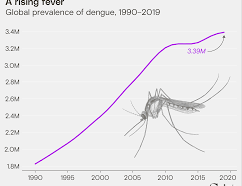

Dengue cases are surging globally and in India due to urbanization, climate change, and favourable breeding conditions for Aedes mosquitoes. Significant outbreaks in Karnataka, Kerala, and Tamil Nadu highlight the urgent need for enhanced surveillance, immediate response, and community education.
Context: Surge in Dengue Cases in India
Significant Increases in Southern States: Karnataka, Kerala, and Tamil Nadu have seen substantial rises in dengue cases.
Current Statistics: As of April 30, India recorded 19,447 cases and 16 deaths, with Kerala and Tamil Nadu leading. Karnataka now has 7,840 cases and seven deaths, with 293 new cases reported on July 10.
Global Dengue Situation:
WHO Reports: Over 7.6 million dengue cases were reported worldwide as of April 30, 2024, with 3.4 million confirmed cases, 16,000 severe cases, and over 3,000 deaths.
Widespread Transmission: 90 countries have active dengue transmission. The Americas, Southeast Asia, and the Western Pacific are the most affected, with Asia bearing 70% of the global burden.
Emerging Areas: Dengue is spreading to new regions in Europe, the Eastern Mediterranean, and South America.
Factors Contributing to Dengue Spread:
Environmental Factors: Monsoon seasons create suitable conditions for Aedes mosquito breeding. Urbanisation and population movements also contribute significantly.
Changing Patterns: Shifts in the distribution of Aedes aegypti, human activities, and climate change-induced weather patterns are increasing dengue epidemic risks.
Dengue Transmission and Treatment:
Transmission: Dengue virus is primarily transmitted through the bite of infected Aedes aegypti mosquitoes.
Symptoms and Management: Acute febrile illness with symptoms such as headache, pain, rash, and hemorrhagic manifestations. Treatment involves symptomatic and supportive care for those without complications.
Historical and Regional Patterns in Tamil Nadu:
Historical Outbreaks: Dengue-like illness was first recorded in Madras in 1780; the virus was isolated in 1945.
Cyclical Outbreaks: Tamil Nadu experiences dengue outbreaks every five years, with the last occurring in 2017.
Current Situation and Response: Seasonal variations and the building up of susceptible populations lead to more cases. Surveillance, immediate response, and community education are critical to controlling outbreaks.
Romania, Bulgaria, Greece Boost NATO Eastern Flank Mobility
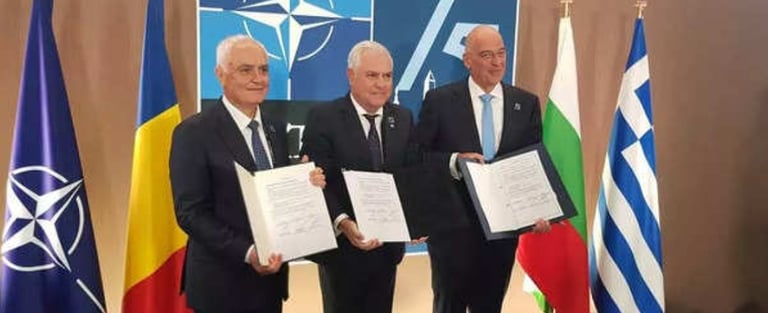

Romania, Bulgaria, and Greece signed a strategic deal on July 11. All three countries are members of NATO and the EU. This deal will make it easier for troops and weapons to move quickly across their lines, especially along NATO’s eastern flank. Russia’s aggressive invasion of Ukraine in 2022 has made people in NATO and EU countries even more worried about their safety, which makes this choice even more important.
About NATO’s Eastern Lank
Strategic Importance: NATO’s eastern flank, which is very important for European security, is made up of countries like Estonia, Latvia, Lithuania, Poland, and others that border Russia and Belarus directly. Since Russia took over Crimea in 2014, this area has been the center of increased defense.
Enhanced Defense Measures: In response, NATO sent multinational battlegroups to the Baltic states and Poland as part of the Enhanced Forward Presence. Defense Europe 20 and other large military drills show how important it is from a strategic point of view.
Airspace Protection: Due to Russian military operations, the area sees a lot of air intercepts. Furthermore, NATO’s Air Policing tasks protect the airspace integrity of its eastern members.
The Need for Swift Military Mobility
Russia’s recent actions in Ukraine have made it clear how important it is for NATO and the EU to speed up their armed responses and readiness. To prepare for possible threats, these groups have stressed how important it is to get rid of the bureaucratic delays that make it hard for military troops to move across Europe right now.
Details of the Agreement
The deal was part of larger talks at the NATO summit in Washington, D.C., that aimed to set up a military mobility corridor that worked well for everyone. To do this, the best road and train routes will have to be chosen so that military logistics and movements between Romania, Bulgaria, and Greece can happen quickly and easily. The goal is to make military operations easier by cutting down on paperwork during normal times. This will allow for quick deployment in case of an emergency.
Additional Collaborative Efforts
The three states want to connect the Aegean and Black Seas by combining their marine facilities and making good supply lines. This union is very important because Romania and Bulgaria are already working with Turkey to deal with threats from sea mines in the Black Sea. Also, the defense ministers of both Romania and Bulgaria have taken steps to set up a regional command center for special operations. This project will make it a lot easier for NATO’s special operations troops to plan and run operations in the strategically important Black Sea region.
Why Indo-Pacific Countries are Joining the NATO Summit?


Why Indo-Pacific Countries are Joining the NATO Summit?
The recent NATO summit held in Washington included the Indo-Pacific Four (IP-4): Japan, South Korea, New Zealand, and Australia. This shows how NATO’s strategy has changed because of new global risks, like the tension over Taiwan and closer cooperation between Russia and China. These countries are taking part because they are worried about China’s actions and goals in the area, which could upset the balance of power in the world.
About NATO
Establishment and Membership: NATO, or the North Atlantic Treaty Organization, was established on April 4, 1949. It originally included 12 countries and has since grown to 30 members.
Collective Defense and Military Action: Article 5 of NATO says that an attack on one country is an attack on all. This article has only been used once, after the September 11 attacks in the United States. The first time NATO sent troops into battle was in Bosnia in the 1990s.
Standardization and Headquarters: The NATO script was created to make military communication more uniform, but it is now used all over the world. The group’s main office is in Brussels, Belgium, and its secretary-general is replaced every few months.
NATO’s Strategy and Its Expansion Beyond the North Atlantic
NATO used to only be concerned with security in the Euro-Atlantic area, but as risks around the world have changed, it has slowly grown to include more areas. Because Russia and China are becoming bigger problems, the 2023 meeting stressed how important the Indo-Pacific is to the politics of the Euro-Atlantic region. In addition to protecting the “rules-based international order,” NATO is now also working to stop China from using force, and it is tackling structural threats to European security.
Indo-Pacific Alignment with NATO Objectives
NATO is building ties with non-member countries in the Indo-Pacific to improve global security, even though it is usually an alliance between countries in the Euro-Atlantic region. This includes projects that bring together people from different fields to work on new areas like cybersecurity, AI, and fighting misinformation. This change also backs up larger U.S. plans to work together with Indo-Pacific forces more closely, which makes NATO even better at adapting to the needs of global security.
European Involvement in the Indo-Pacific Region
Even though European involvement in the Indo-Pacific is growing, it is still pretty low-key. For example, the U.K. is a part of the AUKUS deal, and Europe’s military is only sometimes present in the area. But some NATO members and Indo-Pacific countries are worried that NATO’s reach is growing too far beyond its original regional focus.
Future Perspectives on NATO and the Indo-Pacific
Since things are getting worse in the area, especially around Taiwan, NATO may play a bigger role there. Some people say that a strong NATO in Europe could give the U.S. more time to deal with growing problems in the Indo-Pacific. Still, some people aren’t sure what the real effects of NATO’s role in Asian conflicts are. They say that the European militaries aren’t as strong as they could be because of a history of underinvestment and their need for U.S. help with logistics. The main point is that NATO’s growing attention on the Indo-Pacific shows how global security problems are linked and how the roles of international alliances in keeping different areas stable are changing.
India Ranks Fifth in Global Generative AI Innovations
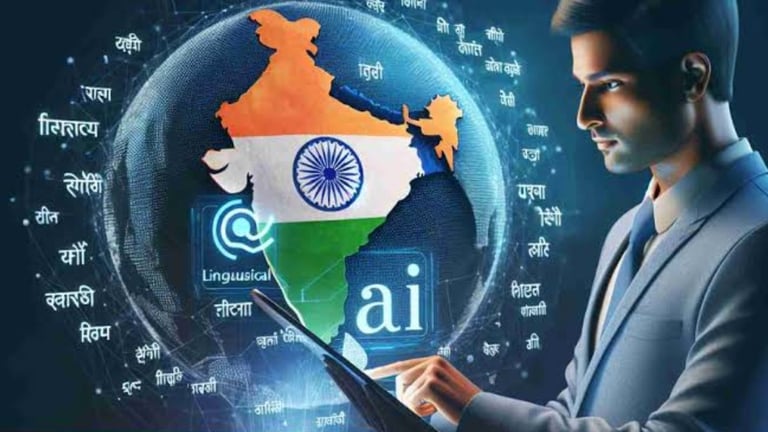

New research shows that India is fifth in the world when it comes to innovations in. India is behind China, the US, Republic of Korea, and Japan in terms of the number of GenAI patents it publishes each year. However, it stands out because of its fast yearly growth rate. India now has more rights in this area than either the UK or Germany, with 1,350 issued between 2014 and 2023. Indian companies like RN Chidakashi Technologies and Tata Consultancy Services have made important contributions to new ideas in retail AI and contract management, respectively.
Global Patent Landscape
This list is in order:
China has 38,210 patents,
the US has 6,276 patents,
the Republic of Korea has 4,155 patents,
Japan has 3,409 patents.
India is responsible for only 3% of the world’s GenAI patents, but the number of patents it publishes each year grows by an amazing 56%.
Impact of Recent Technological Advancements
When transformer models came out in 2017, they pushed the limits of GenAI technologies. New apps like ChatGPT came out in 2022, which led to even more innovation and patent action in this area. In 2017, GenAI patents made up 4.2% of all AI patents. By 2023, they would make up 6.1%. A lot of GenAI inventions were discovered in 2023, which shows that research and development are moving very quickly.
India’s Strategic Growth and Global Impact
Almost all GenAI patents (98%) were filed in India, which shows that the company is growing quickly in that country. An EY study from May says that GenAI could increase India’s GDP by $359–438 billion by 2030. This means that GenAI will have a big effect on the economy shortly. The Ministry of Electronics and Information Technology (MeitY) launched the Global IndiaAI Summit on July 3, 2024, as part of this potential. This event showed India’s strategic move toward a global, cooperative approach to managing AI risks and encouraging international cooperation.
Patent Strategy and Regulatory Framework
Even though there are a lot of new ideas, a clear set of rules is still important for AI to grow. The World Intellectual Property Organization (WIPO) has pointed out how advanced China’s patent system is. India’s task now is to create an environment for AI intellectual property that encourages innovation while balancing legal and moral concerns. India is on a good track to big economic growth and international cooperation in artificial intelligence thanks to its all-around approach to understanding and using GenAI technologies.
Putin accepts Modi’s request to release Indian military recruits
Russian President Vladimir Putin has agreed to Prime Minister Narendra Modi’s request to discharge Indian soldiers serving in Ukraine, following intense diplomatic efforts. This decision, alongside agreements on increased bilateral trade and cooperation, marks a significant development in India-Russia relations.Introduction:
Russian President Vladimir Putin has accepted Prime Minister Narendra Modi’s request to discharge Indian soldiers serving in Ukraine.
The discharge is expected to take place within weeks from various deployment locations.
This decision follows Modi’s direct intervention during a private dinner and subsequent talks.
Diplomatic Efforts and Background:
The issue was raised by the Indian Embassy in Moscow and External Affairs Minister S. Jaishankar during the SCO Summit in Astana.
Foreign Secretary Vinay Kwatra confirmed Modi’s strong stance on the return of all Indian military recruits.
The demand for discharge grew due to recruitment on false promises of high salaries and Russian residency papers.
Rising Concerns and Government Response:
Hyderabad MP Asaduddin Owaisi highlighted the issue in Parliament, noting the increasing pressure on the government.
The Ministry of External Affairs acknowledged the problem, initially downplaying it but later admitting to at least 50 Indian men serving in the conflict.
Four Indian recruits have been killed, and several have received discharge papers awaiting formal release.
Bilateral Trade and Agreements:
Modi and Putin agreed to increase bilateral trade to $100 billion by 2030, focusing on using national currencies.
Cooperation projects in Russia’s Far East and a joint vision statement on trade and economic cooperation were discussed.
MoUs on climate change, polar research, legal arbitration, and pharmaceutical certification were signed.
Economic and Diplomatic Developments:
Modi announced the opening of Indian consulates in Kazan and Yekaterinburg.
Bilateral trade already stands at around $65 billion, with a significant increase due to discounted Russian crude imports.
The focus on economic issues marked a shift from previous summits centred on military supplies and strategic partnerships.
Defence and Strategic Partnerships:
Delays in defence supplies were discussed, with a commitment to explore the co-production of defence equipment.
Modi accepted Russia’s highest civilian honour, the Order of St Andrew the Apostle.
Modi was invited to the first “Extended BRICS” summit in Kazan in the coming months.
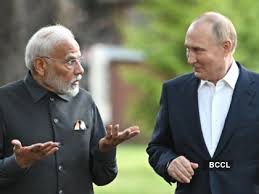

Diplomatic solution to the Russia-Ukraine conflict
The ongoing brutality of Russia’s invasion of Ukraine, marked by missile strikes on civilian targets and incremental territorial gains, highlights the urgent need for dialogue. With military solutions elusive, global leaders call for both sides to pursue peaceful negotiations.
Introduction:
Russia’s missile strikes across Ukraine on 8 July resulted in at least 38 deaths.
Civilian locations, including the Okhmatdyt Children’s Hospital in Kyiv, were hit.
Russia claims to target military and industrial bases, but civilian areas are also heavily affected.
The attack coincides with a NATO summit in Washington discussing long-term military aid for Ukraine.
Recent Territorial Gains and Challenges:
Russia has made incremental gains in Kharkiv Oblast and Donetsk.
Ukrainian forces withdrew from a neighbourhood in Chasiv Yar.
Despite some advances, Russia’s capabilities are questioned due to the lack of dramatic gains.
Ukraine continues to target Russian ships, energy depots, and border regions with drones.
The Need for Dialogue:
Neither side seems capable of finding a military solution.
Ukraine faces difficulty in pushing Russian troops out of captured territories.
Russia’s aggression has strengthened NATO, which has expanded and committed to long-term assistance for Ukraine.
World leaders, including China’s President Xi Jinping and India’s Prime Minister Narendra Modi, call for talks.
Both Russia and Ukraine are encouraged to pursue dialogue to end the conflict.
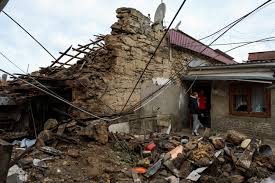

The innate limitations in executing iCET
Despite promising talks, the Initiative on Critical and Emerging Technologies (iCET) faces significant challenges due to U.S. defence companies’ reluctance to transfer technology and strict export controls, hindering progress and potentially replicating past failures like the DTTI
Introduction:
Despite productive talks between National Security Adviser Ajit Doval and U.S. counterpart Jake Sullivan, the Initiative on Critical and Emerging Technologies (iCET) faces structural challenges.
Issues mainly involve the autonomy of U.S. defence companies in transferring costly, Washington-developed technologies.
Strict U.S. export control laws hinder the sharing of military technologies via joint ventures, even when strategically beneficial.
Current Focus of iCET:
iCET’s defence component includes local manufacturing of General Electric GE F-414INS6 engines for Tejas Mk-II light combat aircraft.
Plans to locally assemble 31 armed MQ-9 Reaper/Predator-B UAVs for $3 billion are also in progress.
Negotiations for transferring 80% of F-414 engine technology to Hindustan Aeronautics Limited exclude critical turbine forging metallurgy.
Technology transfer for MQ-9 UAVs is around 10-15%, with plans for a domestic maintenance, repair, and overhaul (MRO) facility.
Limitations and Historical Context:
The U.S. government cannot act on behalf of defence companies owning intellectual property rights, affecting technology transfer.
U.S. defence vendors are motivated by commercial interests, impacting the extent of technology they are willing to share.
Similar technology transfer issues led to the failure of the 2012 Defense Technology and Trade Initiative (DTTI), which iCET replaced with broader goals.
Innovative Solutions and Strategic Shifts:
Indian defence officials suggest using the jugaad (innovation) approach for U.S. platforms like helicopters and aircraft.
Jugaad has historically allowed India’s military to make foreign systems serviceable in extreme conditions and terrains.
However, enabling protocols and the stricter ‘Golden Sentry’ end-use monitoring program prevent the use of jugaad on U.S. acquisitions.
The iCET aligns with U.S. policy to reduce India’s dependency on Russian arms, as suggested in a Senate Foreign Relations Committee report.
Conclusion and Caution:
There are concerns that iCET might succumb to “Augustine’s Laws,” where excessive discussion replaces actionable progress.
Efforts must focus on practical implementation rather than prolonged discussions to avoid stagnation.
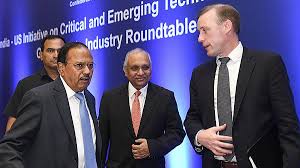

Mamata again says no to sharing Teesta river water with Bangladesh’
The Teesta river water-sharing dispute between India and Bangladesh remains a complex issue with significant implications for regional relations, environmental management, and interstate cooperation. Chief Minister Mamata Banerjee’s concerns highlight the need for inclusive and collaborative approaches to address water scarcity and flood risks.
Teesta River Dispute: The Teesta river, originating in Sikkim and flowing through West Bengal into Bangladesh, has been a contentious issue between India and Bangladesh regarding water sharing.
Recent Developments: The issue gained prominence following Bangladesh Prime Minister Sheikh Hasina’s visit to India, where Indian Prime Minister Narendra Modi mentioned the formation of a technical team to discuss Teesta river management.
Chief Minister’s Concerns
Water Scarcity: Ms. Banerjee warned that sharing the Teesta’s waters with Bangladesh would leave North Bengal residents without sufficient water.
Flooding Risks: The full spate of several rivers, including the Teesta, poses a flood threat to North Bengal.
Hydel Projects: She questioned the Centre’s decision to construct multiple hydel power projects on the Teesta in Sikkim, which could impact water availability downstream.
Administrative Actions
Flood Shelters: Nine flood shelters have been opened in Jalpaiguri, providing relief to 500 people.
Monitoring: A call for round-the-clock monitoring of the flood situation has been made.
Issues
Lack of State Involvement
Exclusion from Discussions: The Centre’s failure to involve the West Bengal government in discussions about water sharing with Bangladesh is a major concern for Ms. Banerjee.
Hydel Projects in Sikkim: The construction of multiple hydel power projects upstream in Sikkim without considering downstream impacts on West Bengal.
Environmental and Infrastructural Concerns
Damming Impact: The construction of dams by Bangladesh and China on the Atrayee river has led to water scarcity in West Bengal’s Dakshin Dinajpur district.
DVC Water Release: The Damodar Valley Corporation’s (DVC) practice of releasing large quantities of water at once causes problems, necessitating a call for staggered releases.
Significance
Regional Relations
India-Bangladesh Relations: The Teesta river dispute affects bilateral relations between India and Bangladesh, impacting cooperation and goodwill.
Interstate Relations: The issue also highlights the importance of cooperative federalism in India, requiring better coordination between the Centre and state governments.
Environmental Management
Water Resource Management: Effective management and sharing of transboundary water resources are crucial for environmental sustainability and regional stability.
Disaster Preparedness: Proper planning and infrastructure development, such as flood shelters and reservoirs, are vital for mitigating flood risks.
Solutions
Inclusive Decision-Making
Involvement of States: The Centre should involve the West Bengal government in discussions and decisions regarding water sharing with Bangladesh.
Collaborative Approach: A collaborative approach involving all stakeholders can help in finding sustainable solutions to the water-sharing dispute.
Environmental and Infrastructural Measures
Hydrological Studies: Conduct comprehensive hydrological studies to understand the river’s flow and capacity during different seasons.
Staggered Water Release: Implement staggered water release policies from dams to prevent sudden flooding and ensure better water management.
Reservoir Dredging: Regular dredging of reservoirs to increase their water-holding capacity and prevent overflow.
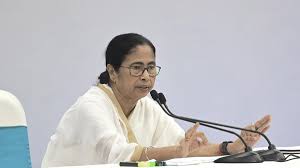

Japan, Philippines sign defence pact amid China concerns’
Japan and the Philippines have signed a significant defence pact, allowing the deployment of Japanese forces for joint drills in the Philippines. This agreement marks a major step in the defence cooperation between the two nations, amidst increasing assertiveness from China in the region.
Details of the Agreement
Reciprocal Access Agreement: The pact allows Japanese forces to enter the Philippines for joint combat training and vice versa, facilitating greater military collaboration.
Signatories: The agreement was signed by Philippine Defence Secretary Gilberto Teodoro and Japanese Foreign Minister Yoko Kamikawa.
Ratification: The agreement will take effect after being ratified by the legislatures of both countries.
Historical Context
World War II Occupation: Japan’s brutal occupation of the Philippines during World War II adds historical significance to this modern-day alliance.
Alliance Building: Both nations are now aligning more closely to counter China’s growing assertiveness in the region.
Issues
China’s Assertiveness
South China Sea Disputes: The South China Sea, a vital global trade route, is claimed almost entirely by China but is also contested by the Philippines, Vietnam, Malaysia, Brunei, and Taiwan.
Recent Confrontations: The agreement comes in the wake of recent confrontations between China and the Philippines in the South China Sea, particularly at the Second Thomas Shoal.
Regional Stability
Military Tensions: Increasing military activities and alliances in the region could lead to heightened tensions and instability.
Sovereignty Concerns: Nations in the region are concerned about preserving their sovereignty and territorial integrity against Chinese claims.
Significance
Strengthening Defence Ties
Enhanced Cooperation: The agreement is seen as a groundbreaking achievement that will boost defence cooperation between Japan and the Philippines.
Strategic Alliance: It reflects a strategic alignment of interests as both nations seek to counterbalance China’s influence.
Regional Security
Deterrent Effect: The pact is expected to serve as a deterrent against aggressive actions by China, contributing to regional security.
Global Trade Route: Ensuring the security of the South China Sea is crucial for maintaining the free flow of global trade.
Solutions
Diplomatic Engagement
Multilateral Dialogue: Engaging China in multilateral dialogues involving all claimant nations could help reduce tensions.
Confidence-Building Measures: Implementing confidence-building measures between China and the Southeast Asian nations to prevent conflicts.
Strengthening Alliances
Regional Cooperation: Enhancing cooperation within regional organizations like ASEAN to present a united front.
International Support: Seeking support from other global powers to ensure a balanced approach to regional security.
Nut Graf: The signing of the Reciprocal Access Agreement between Japan and the Philippines marks a significant step in bolstering their defence ties. Amidst the backdrop of historical animosities and contemporary regional challenges posed by China’s assertiveness, this pact underscores the importance of strategic alliances and cooperation for regional stability and security. Moving forward, diplomatic engagements and multilateral efforts will be crucial in maintaining peace and preventing escalations in the South China Sea.
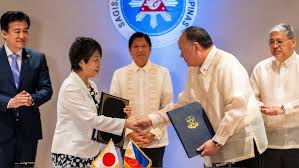

A brewing duel amid Manila’s dual engagement’
With Ferdinand Marcos Jr., affectionately known as “Bongbong”, as the President of the Philippines, the nation is adopting a more assertive stance against China, emphasizing its security ties with the United States. This marks a shift from the previous administration under Rodrigo Duterte, who leaned towards Beijing for developmental funds
Shifting Stance Under President Marcos Jr.
US-Philippines Relations: Since Marcos Jr.’s electoral victory in 2022, the relationship between the United States and the Philippines has strengthened, with a focus on security cooperation.
Confrontation with China: Marcos Jr. has been vocal about China’s aggressive actions in the South China Sea, sharply criticizing them at international forums like the Shangri-La Dialogue in Singapore.
China’s Reaction: China views Marcos Jr. as an ally of the United States, similar to former Taiwanese President Tsai Ing-wen, and accuses him of inviting regional conflict.
Rising Tensions in the South China Sea
Chinese Aggressions: Instances of the Chinese maritime militia using water cannons and bumping into Philippine fishing boats have escalated tensions.
Philippines’ Response: Marcos Jr. has warned that any Filipino casualty due to Chinese force would be considered an act of war, highlighting the serious nature of the confrontations.
American Involvement and Strategic Interests
Mutual Defense Treaty: The US has had a Mutual Defense Treaty with the Philippines since 1951. Despite supporting Marcos Jr., the US remains cautious about getting involved in another naval conflict.
Strategic Location: The Philippines is crucial to the US’s Indo-Pacific strategy due to its geographic position in the South China Sea.
Military Enhancements: The Philippines is focused on enhancing its military capabilities, including a $35 billion acquisition plan and modernizing former US military bases like Subic Bay and Clark Air Base.
Quad Support and Regional Alliances
Quad Partners: The Philippines is leveraging support from Quad partners (India, Australia, Japan, and the US) to bolster its military.
India’s Support: India has delivered BrahMos missiles to the Philippines and supports the 2016 Tribunal ruling against China’s claims in the South China Sea.
Japan’s Assistance: Japan has provided coastal surveillance radars and patrol ships, strengthening the Philippine Coast Guard.
Australia’s Contributions: Australia is the second largest bilateral grant aid donor to the Philippines, enhancing its military and coast guard capabilities.
Issues
Dual Engagement Challenges
Reliance on China: Despite the military buildup against China, the Philippines remains dependent on Beijing for financial support, which poses a challenge to its dual engagement strategy.
Economic Aid: China has committed significant financial aid to the Philippines, complicating the dynamics of Manila’s assertive stance against Beijing.
Strategic Uncertainty
Balance of Power: The ongoing friction with China and reliance on US military support raise questions about how long the Philippines can maintain this dual engagement without significant repercussions.
Impact on Financial Flows: Increasing tensions with China may affect the flow of developmental aid from Beijing, impacting the Philippines’ economic stability.
Significance
Regional Security and Stability
Strategic Importance: The Philippines’ stance and its alliances significantly impact regional security dynamics in the South China Sea.
US-Indo-Pacific Strategy: Strengthening US-Philippines ties reinforces the US strategy to counter China’s influence in the region.
Military Modernization
Enhanced Capabilities: The focus on modernizing military bases and acquiring advanced weaponry enhances the Philippines’ defense capabilities.
Quad Collaboration: Collaboration with Quad partners aids in the technological and strategic upliftment of the Philippine military.
Solutions
Balancing Relations
Diplomatic Engagement: The Philippines should continue diplomatic efforts to balance its relations with both the US and China, ensuring that economic ties with Beijing are not severely disrupted.
Multilateral Cooperation: Strengthening multilateral cooperation through ASEAN and other regional forums can help Manila navigate the complex geopolitical landscape.
Enhancing Self-reliance
Domestic Defense Industry: Investing in the domestic defense industry can reduce reliance on foreign military aid and build self-reliance.
Diversifying Economic Partners: Diversifying economic partnerships beyond China can provide the Philippines with more financial stability and reduce geopolitical risks.
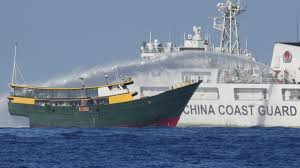

Ahead of talks with Putin, PM says will ‘back’ peace in region
Prime Minister Narendra Modi is set to meet Russian President Vladimir Putin to discuss the ongoing Russia-Ukraine conflict and other bilateral issues at the 22nd India-Russia Summit. The message from PM Modi emphasizes that the solution to the war will not be found on the battlefield but through dialogue and diplomacy.
Context of the Visit
Significance: This visit marks the first time the leaders will hold the annual summit in three years and PM Modi’s first bilateral visit abroad after re-assuming office in June.
Warm Reception: PM Modi was warmly received by Russian First Deputy Prime Minister Denis Manturov, highlighting the importance of the visit.
Dinner Meeting: The informal dinner hosted by Mr. Putin at his Dacha set the tone for the structured talks.
Key Agenda
Economic Issues: Expected to drive the agenda, focusing on geo-economic changes due to the Russia-Ukraine conflict.
Indians Misled into Joining Russian Military: A priority issue for India, seeking the discharge of these individuals.
Peaceful Resolution: PM Modi is expected to emphasize that the conflict’s resolution requires both parties to engage in dialogue.
Bilateral and Regional Focus
Bilateral Ties: A comprehensive review of bilateral ties, including trade, energy cooperation, and investments in Russia’s Far East.
Global and Regional Issues: Perspectives on global and regional issues, with India supporting a peaceful and stable region.
NATO Summit Context: The timing of the summit coincides with a NATO meeting in Washington, emphasizing the global attention on the conflict.
Issues
Conflict Resolution
Battlefield vs. Diplomacy: The ongoing Russia-Ukraine war cannot be resolved through military means but requires diplomatic efforts.
Global South Perspective: India’s stance aligns with the global south’s view that dialogue is essential for resolving the conflict.
Economic and Energy Cooperation
Trade and Energy Supplies: Facilitating trade agreements and securing long-term commitments on energy supplies from Russia.
Investments in Russia’s Far East: Building on previous agreements to enhance cooperation and investments in this region.
Misled Indians
Discharge of Indians: Addressing the issue of Indians misled into joining the Russian military, ensuring their safe return.
Significance
Strengthening Bilateral Relations
Economic Ties: Enhancing trade and investment ties, particularly in energy and the Far East.
Strategic Partnership: Reinforcing the long-standing strategic partnership between India and Russia.
Regional Stability
Peace and Stability: India’s role in promoting peace and stability in the region, supporting diplomatic solutions over military actions.
Global Role: India’s stance as a responsible global player advocating for peaceful conflict resolution.
Humanitarian Concerns
Protecting Citizens: Ensuring the safety and well-being of Indian citizens misled into military involvement.
Solutions
Diplomatic Engagement
Promoting Dialogue: Encouraging both Russia and Ukraine to engage in dialogue to find a peaceful resolution.
Supportive Role: India playing a supportive role in facilitating discussions and providing a platform for dialogue.
Economic Cooperation
Trade Agreements: Signing agreements to enhance trade and secure energy supplies.
Investments: Encouraging investments in Russia’s Far East, building on previous MoUs.
Addressing Misled Indians
Safe Return: Ensuring the discharge and safe return of Indians misled into joining the Russian military.



